A sustainable movement that matters
Barista Group’s triple threat
Veneziano’s road to B Corp Certification
Grinder adjustment eliminated for good
Jasper Coffee’s journey of people and purpose

A World-Class Coffee Magazine JUNE 2023 ISSN 1449-2547 9 771449254002 03 No.62 No. 87





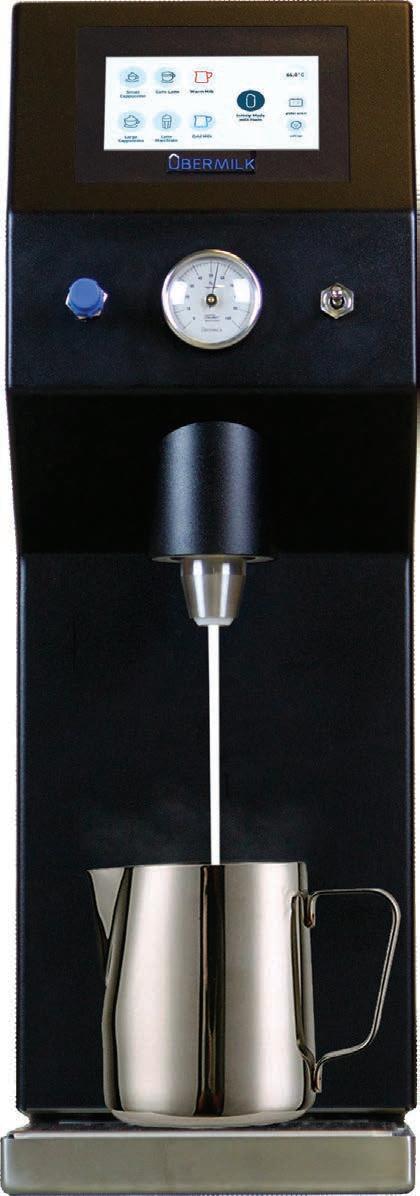


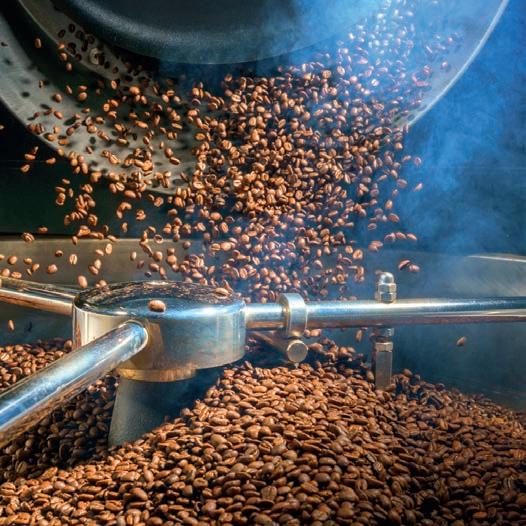
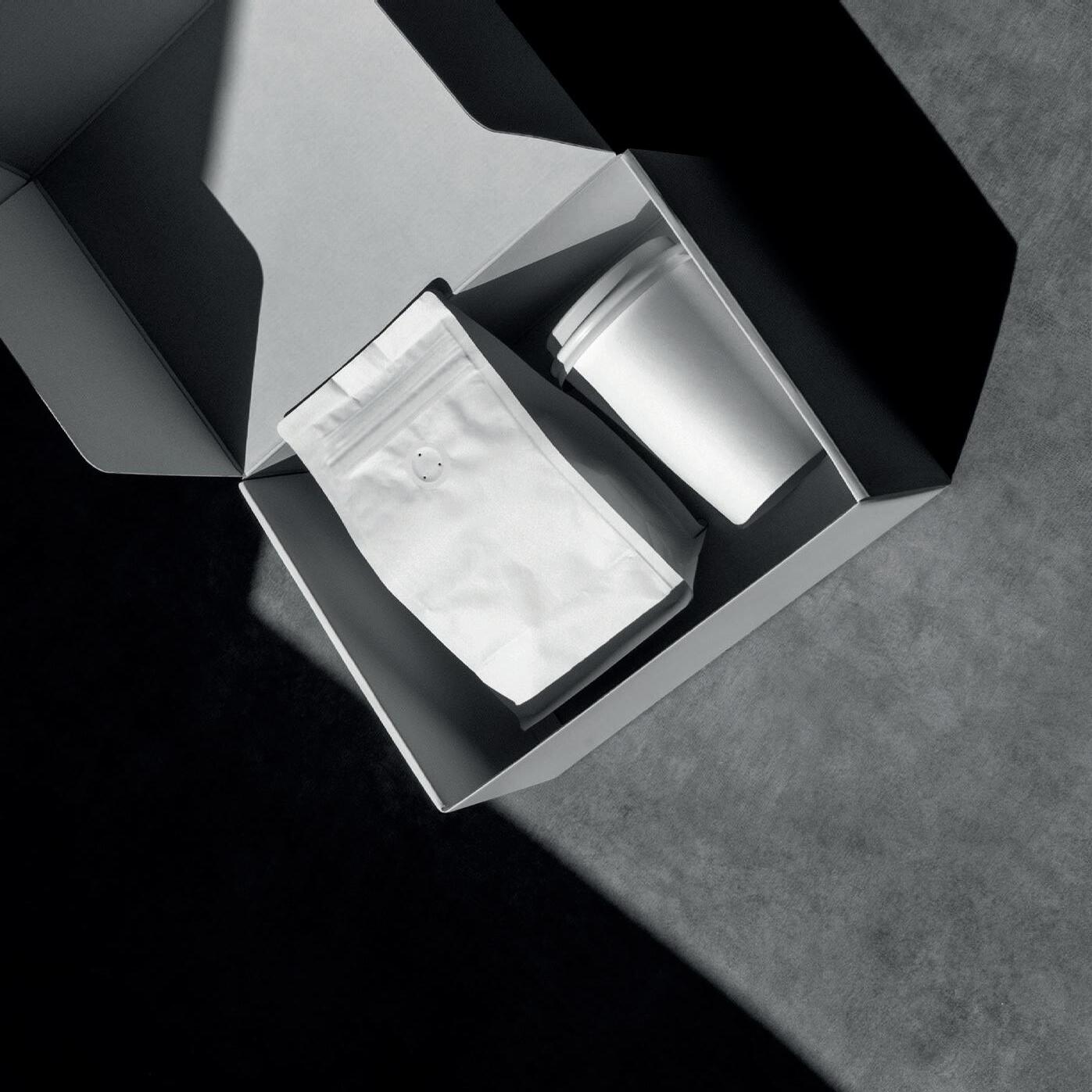
Melbourne International Coffee Expo Visit the Southern Hemisphere’s CELEBRATING 10 YEARS OF EVERYTHING COFFEE 17— 19 August 2023
ROASTERS

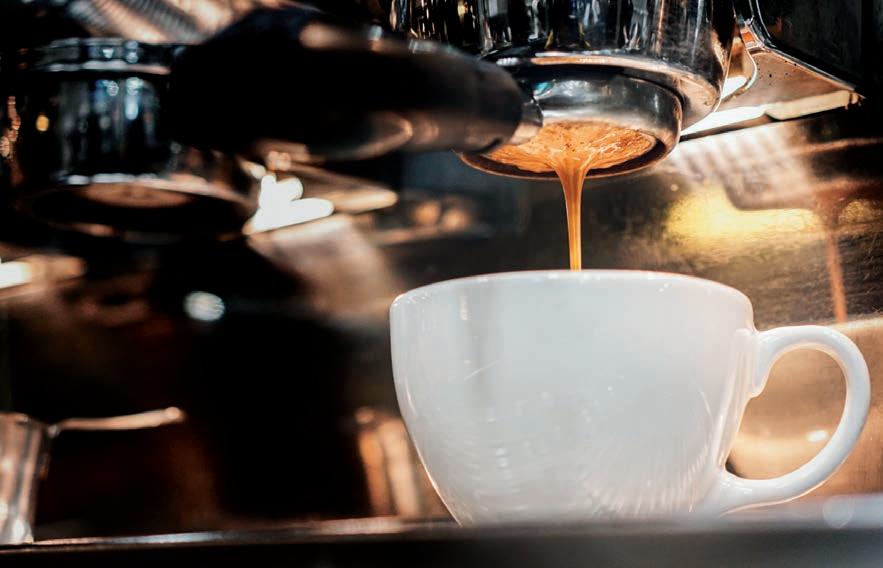
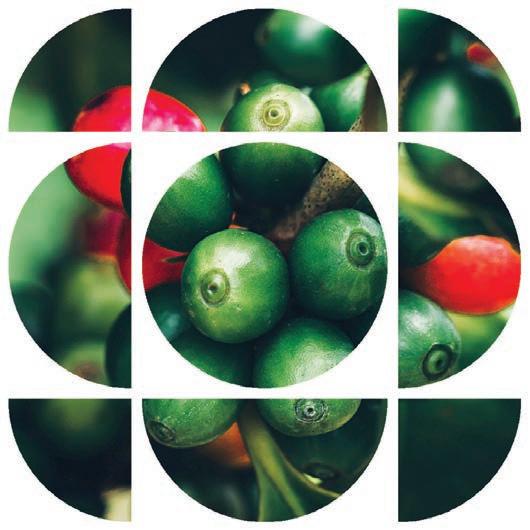
internationalcoffeeexpo@primecreative.com.au Melbourne Convention and Exhibition Centre Celebrating 10 years of MICE and everything coffee ORIGIN COFFEE MACHINES www.internationalcoffeeexpo.com
31 THE MISSING PIECE
How the Flow Grinder eliminates the worry of adjusting the grinder
63 THE TICKING CLIMATE CLOCK Happy Happy Foods unveils its new Climate Clock
64 A FORCE FOR GOOD
Why B Corp Certified was a natural progression for Five Senses

65 BUY, DROP, SWAP
How Huskee is helping society transition from a single-use world
66 THE FUTURE TASTES SWEET
Piazza D’Oro develops an end-toend solution for its café customers
67 SMALL ACTIONS, BIG CHANGE
Detpak’s sustainable packaging options for roasters and cafés

68 RECYCLE READY
Grinders Coffee trials packaging solutions with Jet Technologies

SKILL BASE
96 TRAINING TACTICS
UCC’s Anthony Lawrence solves common workflow problems
98 ESPRESSO YOURSELF
Amy Zhang shares her take on a tribal chieftain
CAFÉ SCENE
56 MORE THAN JUST H20
BRITA’s Birgit Kohler explains how minerals influence coffee taste
SUSTAINABLE FEATURES
60 MERLO GOES GREENER
Why offsetting emissions is front of mind for Merlo Coffee
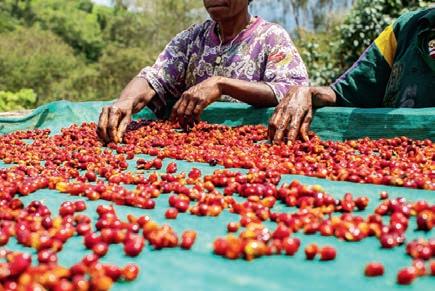
61 AHEAD OF THE PAK
BioPak releases pulp-based compostable lids
62 CONSCIOUS COFFEE
Southland Merchants supports an economically viable supply chain
58 WHO’S YOUR CHEERLEADER?
Penny Wolff on the importance of loyalty and finding a strong mentor
92 CAFÉ SCENE
Around Australia and New Zealand
101 NZSCA
First time competitors fly high
JUNE 2023 contents 12 NEWS 16 STUFF ON THE SCENE INDUSTRY PROFILES 18 KNOWLEDGE LEADER How Jasper Coffee has led a 34-year career shaped by sustainability and people power 22 C ELEBRITY CHEF Attica chef-owner Ben Shewry on the psychology of his coffee drinking 27 TO INFINITY AND B-EYOND Nomad Coffee Group discusses the road to B Corp Certification 50 TIME-HONOURED TRADITION Coffee Tools Distributing explains why moka pots are a mainstay 70 E LEVATE THE EXPERIENCE Nestlé Professional creates precious moments for all Buondi drinkers 72 VITTORIA VICTORY Vittoria Coffee Barista Smackdown Competition crowns a champion 75 ULTIMATE OFFICE INCENTIVE Why St Ali is bringing specialty coffee to the office market 78 GIVE IT YOUR BEST SHOT Get ready for the inaugural Richest Barista competition at MICE2023 80 FROTHIN FOR MORE MONIN welcomes cold foam 82 ULTIMATE SEA CHANGE Miss Cocoa’s Coffee Roastery is on the market and it could be yours 84 THE POWER OF A CUP CafeSmart embarks on its 13th year with a new Principal Sponsor 86 FEELING GOOD How Feel Good Foods caters to market trends and needs 45 27 88 88 DUAL PURPOSE, DUAL GOALS Fairtrade ANZ and NASAA Organic assist farmers to maintain ideal living standards 90 PLANT-BASED, PURPOSELEAD Why Vitasoy is driving transformational
change TECH PROFILES
34 TIME TO SHINE
Mazzer embraces 75 years of grinding expertise
TRIPLE
Barista Attitude’s Tempesta multi-boiler gets ready for the WBC 37 TAKE THE PRESSURE OFF CMT on the importance of its Australian designed Viper 41 ALL ABOUT THE GRIND
45
THREAT Barista Group unveils the latest milk foaming technology from Übermilk 48 POWERS COMBINED Franke Coffee Systems launches a new product category and automatic machine line
6 beanscenemag.com.au


MORE THAN JUST A BLACK COFFEE www.mocopan.com.au 1954 MELBOURNE’ S COFFEE PION EERS
BeanScene covershoot
CHIEF OPERATING OFFICER
Christine Clancy christine.clancy@primecreative.com.au
MANAGING EDITOR
Sarah Baker sarah.baker@primecreative.com.au
JOURNALIST
Hayley Ralph hayley.ralph@primecreative.com.au
Veneziano Coffee
Roasters
16 River Street, Richmond VIC 3121
venezianocoffee.com.au
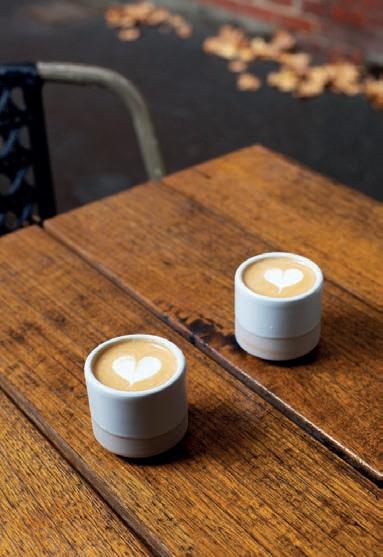
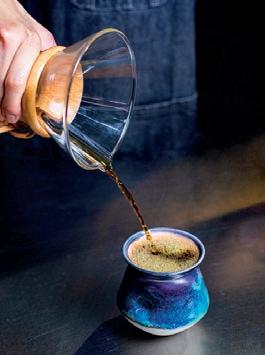
While the temperature was shy of 20°C and raining on the day of BeanScene’s June edition photo shoot, things were heating up inside Veneziano Coffee Roasters at the reveal of some big news – becoming B Corp Certified.
“Seeing the B Corp certification come to life is really exciting. We can’t wait for Nomad Coffee Group’s collection of specialty coffee brands to be the choice coffee for customers this year,” says Veneziano Coffee Roasters Brand Strategist Sarah Eagles.
The featured coffee on the cover is a Colombia Cerro Azul La Esperanza Geisha Natural. Veneziano Coffee Roasters Head Barista
Gabrel Tan used this coffee in the 2023 Vitasoy Australian Barista Championship, and saved a little for us especially.
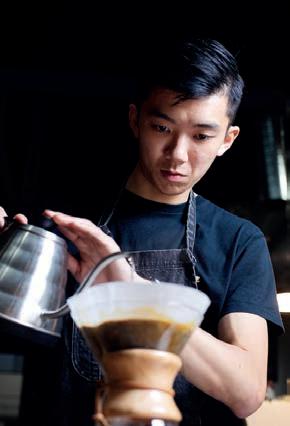
“I love this coffee because of its consistency and quality. It’s not very often you get to taste coffees of this level as a consumer or even as a coffee professional,” says Gabrel.
The flavour profile includes notes of orange and ruby grapefruit paired with an especially smooth, chocolatey mouthfeel. This Geisha is not especially floral in nature, but rather citrus fruit filled with background notes of coffee and orange blossom.
“Naturally, we had to try Gabrel’s coffee to make sure it was on point for his competition run and for the cover,” says BeanScene Editor Sarah Baker. “You’ll just have to take my word for it and imagine how delicious it was by looking at the cover shot. Gabrel was a master on the day and brewed up a range of options, trying everything from Chemex to flat white. The beauty of this coffee is its diversity, and now served from a B Corp Certified roaster – it seems to taste ever better.”
Veneziano Coffee Roasters’ Richmond café was the ideal backdrop for this shoot. Its large-framed windows from ceiling to floor added lots of natural light, while plants, bench tops and ledges made for interesting angles and textures to photograph. After many takes, the winning cover shot was the one with the most ‘wow factor’.
“Having the cover of BeanScene’s June edition is a fantastic opportunity to celebrate coffee, community and evolution. We thrive on story sharing and supporting the local community, just like BeanScene. It’s the perfect alignment of values,” says Sarah Eagles.
For more information about the coffee, visit venezianocoffee.com.au
ART DIRECTOR/DESIGN
Daz Woolley
HEAD OF DESIGN
Blake Storey
DESIGN PRODUCTION MANAGER
Michelle Weston
BUSINESS DEVELOPMENT MANAGER
Adele Haywood adele.haywood@primecreative.com.au
C LIENT SUCCESS TEAM LEADER
Janine Clements janine.clements@primecreative.com.au
PHOTOGRAPHY
Blake Storey, Colin Page, ATPhoto, Andrew Turner CONTRIBUTORS
Emma McDougall, Amy Zhang, Anthony Lawrence, Birgit Kohler, Penny Wolff, Lewis Cross
HEAD OFFICE
Prime Creative Pty Ltd
379 Docklands Drive, Docklands, Victoria 3008 p: 03 9690 8766 f: 03 9682 0044 enquiries@primecreative.com.au www.beanscenemagazine.com.au
SUBSCRIPTIONS
03 9690 8766 subscriptions@primecreative.com.au
BeanScene magazine is available by subscription from the publisher. The rights of refusal are reserved by the publisher.
A RTICLES
All articles submitted for publication become the property of the publisher. The Editor reserves the right to adjust any article to conform with the magazine format.
COPYRIGHT
BeanScene magazine is owned by Prime Creative Media and published by Christine Clancy. All material in BeanScene magazine is copyright and no part may be reproduced or copied in any form or by any means (graphic, electronic or mechanical including information and retrieval systems) without written permission of the publisher. The Editor welcomes contributions but reserves the right to accept or reject any material. While every effort has been made to ensure the accuracy of information Prime Creative Media will not accept responsibility for errors or omissions or for any consequences arising from reliance on information published. The opinions expressed in BeanScene magazine are not necessarily the opinions of, or endorsed by, the publisher unless otherwise stated.
A World-Class Coffee Magazine 2023 1449-2547 771449254002 03 A sustainable movement that matters Veneziano’s road to B Corp Certification Barista Group’s triple threat Jasper Coffee’s journey of people and purpose Grinder eliminatedadjustment for good
8 beanscenemag.com.au
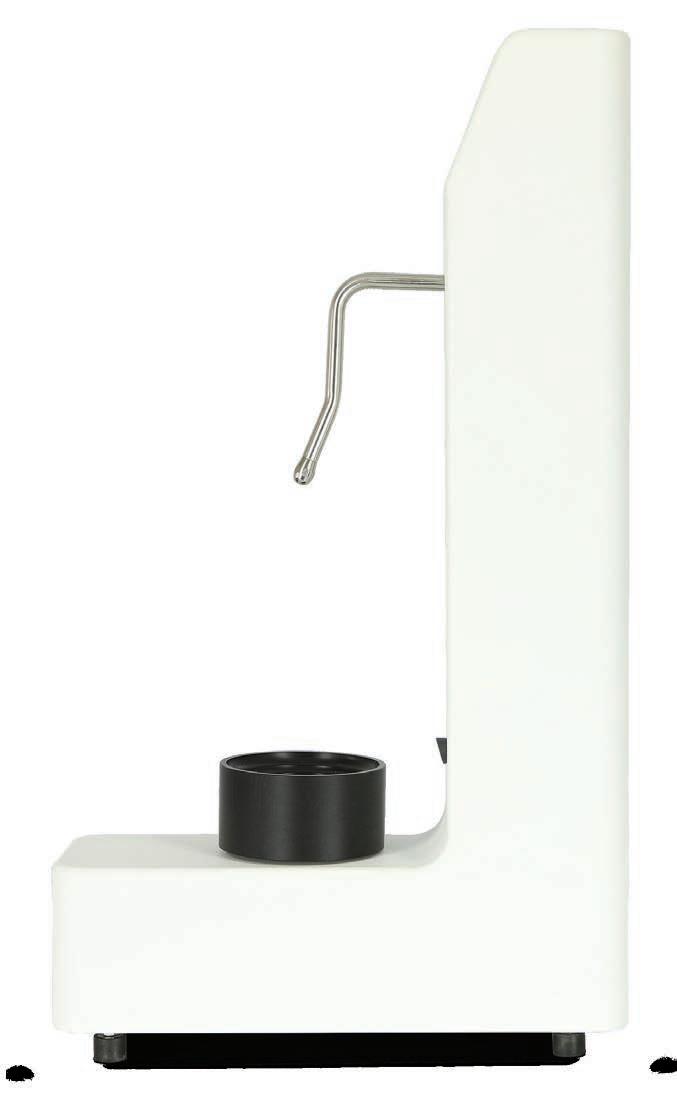

CONTRIBUTORS

Each issue of BeanScene we profile a few of our talented contributors.
Amy Zhang is the 2022 ASCA Australian Latte Art Champion. Born in China, Amy is a Coffee Quality Institutecertified Q Grader and Barista Trainer, basing many of her latte art patterns off her favourite Disney films. Amy won the 2022 ASCA Northern Region Latte Art Championship, and the 2022 National title. She currently works at The Maillard Project in Brisbane, Queensland.

Penny Wolff of Wolff Coffee Roasters is heavily focused on leadership through coaching and mentoring. Penny enjoys collaborating on philanthropy, stakeholder engagement, branding, design, culture and marketing. She is a community focused individual who thrives working in an inclusive workplace, where relationships are valued and a genuine sense of belonging and community is promoted. Penny is passionate about fostering powerful social change by working with like-minded leaders in their respective fields.
Emma McDougall is the Communication and Administration Coordinator for the NZSCA. After gaining a degree in hospitality management, Emma has worked in Sydney, Dublin, Auckland, London, and most recently, Wellington. She has owned and managed cafés and tech-judged the New Zealand Barista Championship in 2015 and 2016. Now, she gets to help run them. One of the greatest joys she gets from the coffee industry is watching young people progress through their coffee journey.
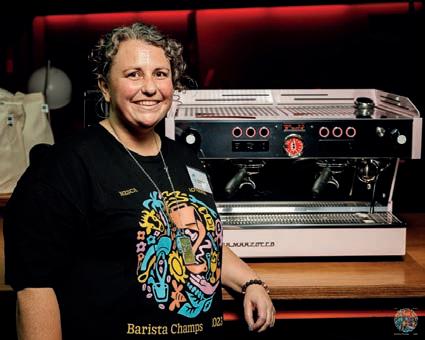
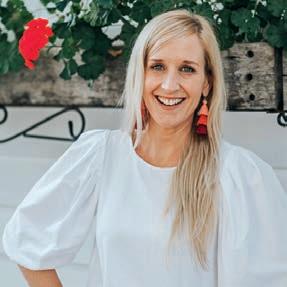

Anthony Lawrence is a barista trainer for UCC Coffee. He has been in the industry for 20 years and brings his expertise of coffee service and sensory understanding to the training sessions he conducts. Working with coffee has taken him to London and Byron Bay, and back to Brisbane where he currently resides. Anthony is passionate about making coffee accessible and exciting for baristas of any skill level.
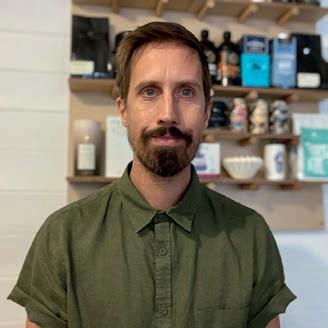
Birgit Kohler is the Head of Organoleptic Department at BRITA where her focus is on understanding the sensory perception of water, tea, and coffee, and bringing this knowledge into product development. Birgit is a trained water sommelière, receiving qualifications from the renowned Doemens Genussakademie in Germany, alongside having a background of studies in nutrition science, and qualifications as a coach.

A word from the Editor
The time is now
welve years ago, I visited Jaspers Coffee in Collingwood. CoFounder Wells Trenfield was one of the first people I recall interviewing for BeanScene. I was a young ‘20-something-year old’. I was excited to visit one of my first roasteries, and with camera and notepad in hand, I set out to interview Wells about his sustainable initiatives and partnership with Fairtrade. He greeted me with his characteristic smile and long beard, but it was he who did the questioning, asking what I knew about Fairtrade and Fairtrade Premiums. I never forgot it. He was deeply passionate about creating a sustainable business and advocating for the farmers he represented.
Over the years, I would see Wells at international events like Re:Co and the SCA expo. He was always hungry for knowledge. When I returned to the roastery last month, some things had changed. We had both aged, the business had evolved, and Wells’ son Jasper was present and taking on a more active position in the company. What hadn’t changed, was Wells’ quick-fire questioning, his passion for producers, and making decisions guided by the principles of sustainability.
This year, we are proud to see nine companies join our sustainable feature to share their own stories and progress of sustainable initiatives, from packaging and recycling programs to plant-based initiatives, traceability efforts, and greater emphasis on producer living income.
They are terrific examples of active game-changers, but it begs the question, what are you doing? What can you or your business do to make a more sustainable choice? The action may be small, but collectively, the impact can be huge. We all need to play our part if Australia has any hope of significantly reducing our greenhouse gas emissions by 2025, in accordance with the Paris Climate Agreement.
One company that hasn’t shied away from the challenge is Veneziano Coffee Roasters, this edition’s cover story company. The Melbourne-based roaster first employed a full-time sustainability manager, then became carbon neutral and undertook B Corp Certification. It’s a display of sustainable leadership and one I hope many others will follow.
As Veneziano explains, achieving B Corp status was a positive experience that helped clarify that it was already above the benchmark in some areas, but has also provided a boost to strive for more. For there is no real finish line when it comes to environmental change, only consequences that will impact our livelihoods, and those in generations to come if we don’t put our best foot forward, now.
SARAH BAKER
Follow us on Twitter @BeanSceneEd

‘Like’ us on Facebook @BeanSceneCoffeeMag



Follow us on Instagram @beanscenemag
Follow us on LinkedIn @BeanSceneMag

10 beanscenemag.com.au

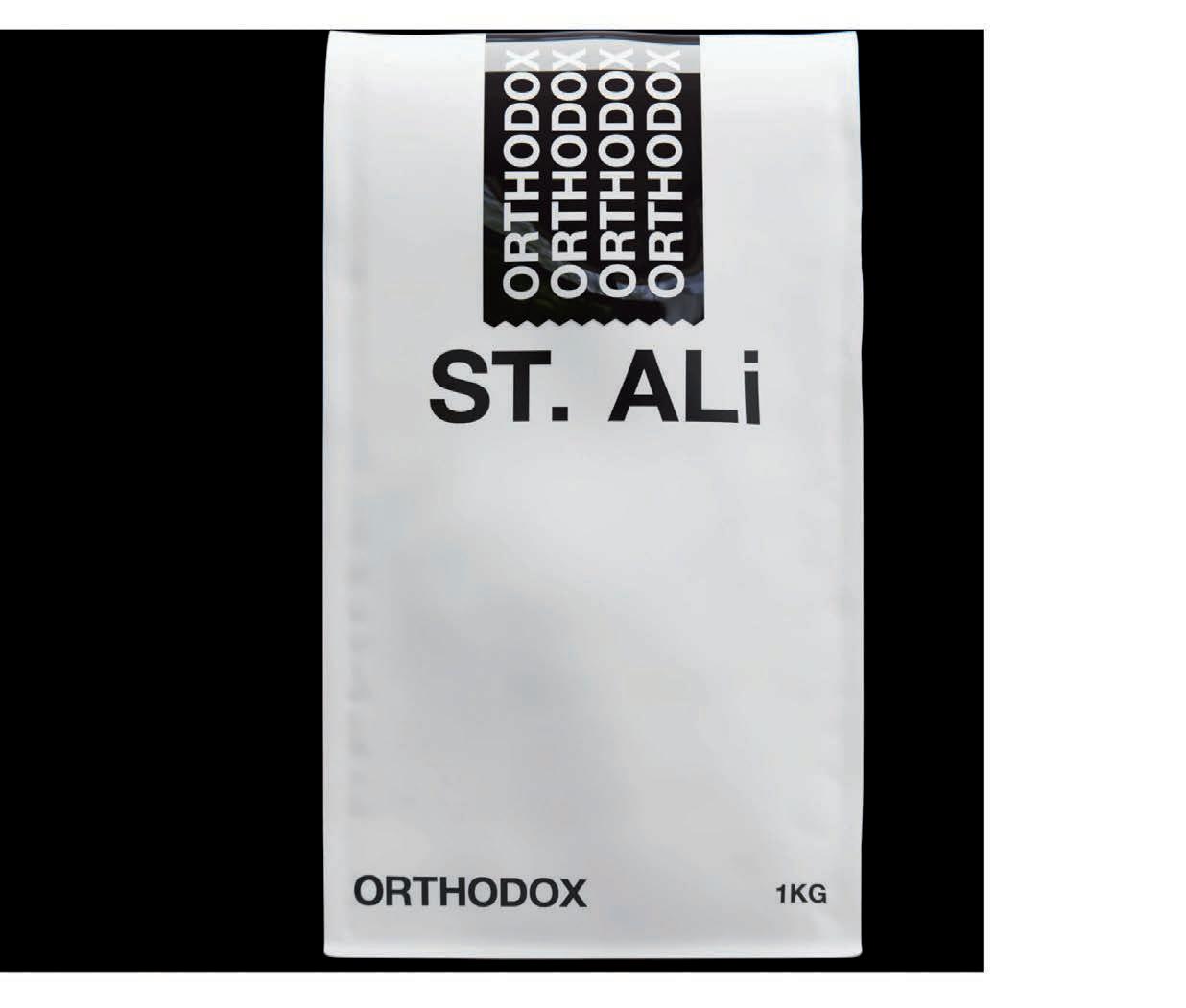
JACK SIMPSON OF AXIL COFFEE WINS ASCA AUSTRALIAN BARISTA CHAMPIONSHIP

Jack Simpson of Axil Coffee has won the 2023 ASCA Vitasoy Australian Barista Championship, held at The Industrique in Coburg, Victoria from 8 to 12 May.
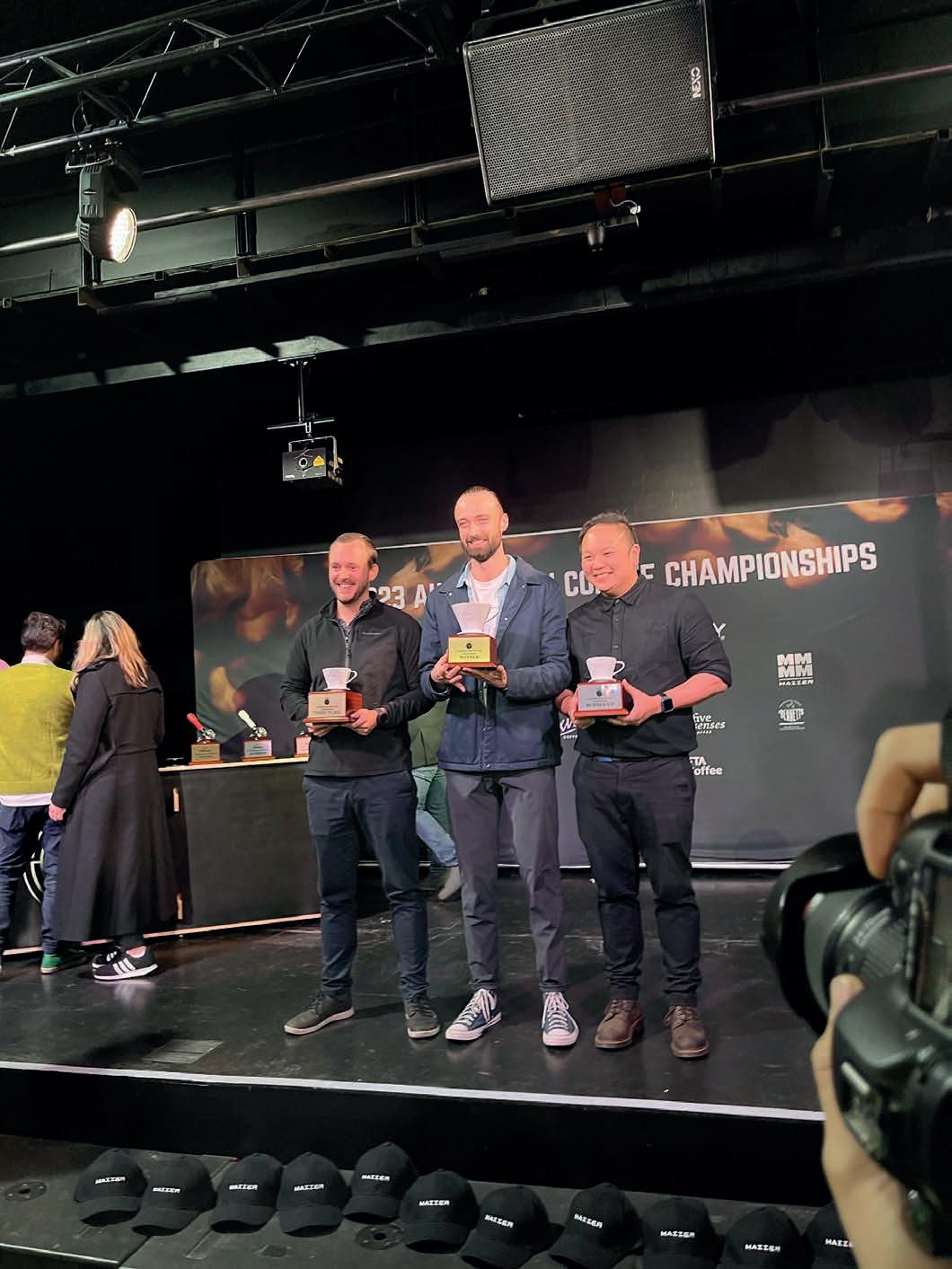

“It is an incredible honour to be crowned Australian Barista Champion. Anthony Douglas [of Axil Coffee] has been such an inspiration to me since being crowned World Barista Champion, so to be able to follow in his footsteps is a massive achievement. [Axil Coffee Head Roaster] Matt Crowley was also a pivotal part of my success,” Jack says.
natural ombligon coffee, featuring flavours of red cherry, blood plum, and bergamot, produced from Nestor Lasso of Finca El Diviso in Colombia.
“We tried a lot of different coffees, and we couldn’t beat this varietal with anything else we tried,” he says.
Jack thanks Axil Coffee Co-owners Dave Makin and Zoe Delany for their assistance.
“I’m lucky enough to be surrounded by amazing coffee professionals that provided an endless source of knowledge and advice. I couldn’t have done it without them,” says Jack.
triggered when I taste this coffee, such as the first time I was in a lolly shop as a kid, and my aunty Paula’s magical rose garden,”
Thomas used an anerobic natural Chiroso from Las Flores in Colombia thanks to producer Jhoan Vergara.
“I have never tasted coffee like this my entire life. It has insane confectionary sweetness, and aroma and flavour notes of passionfruit, tinned peaches, purple grapes, strawberries, and rose,” he says.

For his brew, Thomas used a metal Hario V60 and Hario drip assist with 20 grams of coarse coffee and 300 grams of custom made 145 parts per million water split evenly over four pours of 75 grams. The water temperature for the first three pours was 95°C, and 85°C for last pour for a sweet, long finish.
Helping him each step of the way was Code Black Operations Manager Archie Chiu, Head Roaster Allan Yeh, Senior Roaster Amber Cheng, and Coach Mark Jamieson.
“This victory is as much theirs as it is mine, without a doubt,” Thomas says.
“While I knew winning was possible, I still can’t believe we are taking the trophy home.”
NEWS
Image: Jon O’Neill
The ASCA Australian Brewers Cup top three winners from left: David Train, Thomas Hutchins and Devin Loong.


We believe in the greatness of small things and exceptional routines www.barista-attitude.com
APISIT BOONLIANG OF SCHMUCKS BAGELS WINS VENEZIANO’S AEROPRESS CUP COMPETITION
First-time competitor Apisit “Art” Boonliang won Veneziano Coffee Roasters’ Aeropress Cup Competition on 23 March at its Richmond roastery.
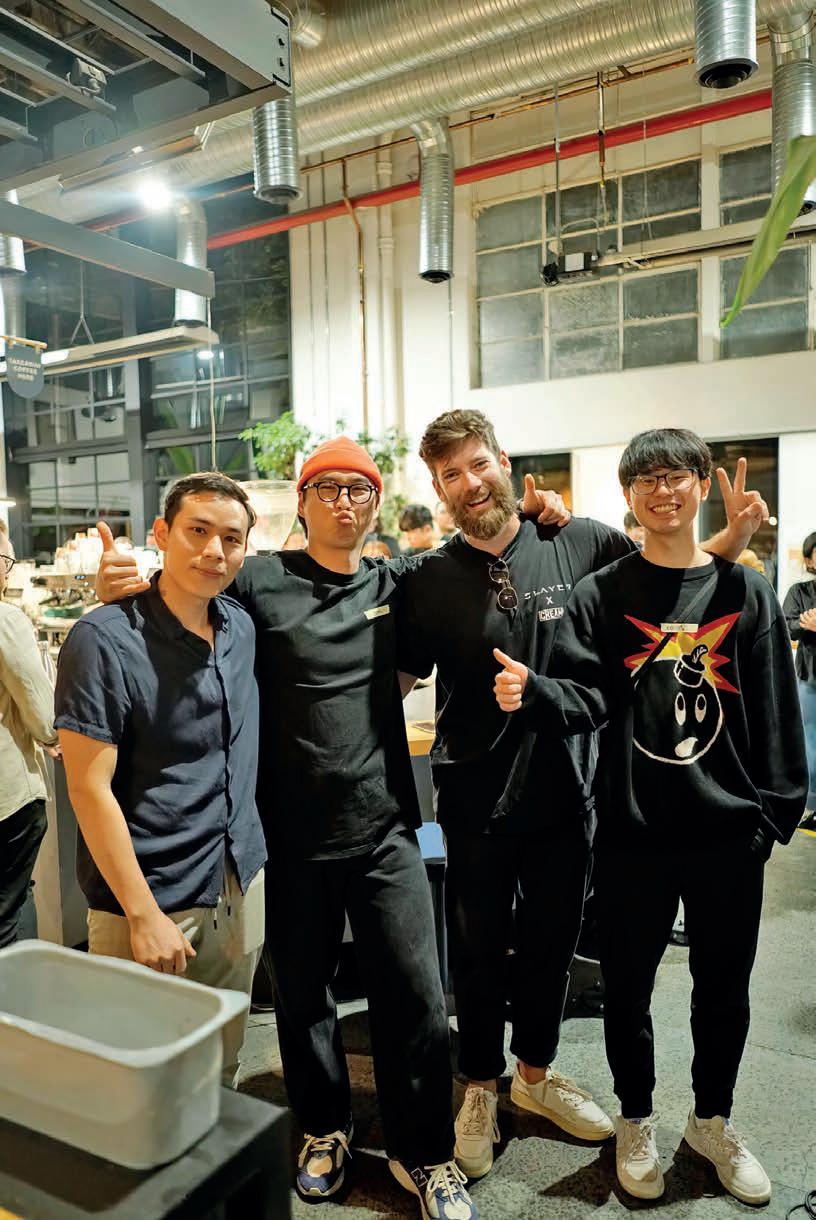
Independent barista Louis Cheung placed runner up, Ohkyung Kwon of St Ali placed third, and Hugh McDonnell of Slayer Espresso placed fourth.
“I just wanted to enjoy the moment really, but winning is the bonus,” says Art. “I’m very happy.”
Art, a barista at Schmucks Bagels in Melbourne, heard about the competition via his sister, and signed up straight away.
“I wanted to get a glimpse of what the coffee community, particularly Melbourne’s, was like, and play a small part in its disaster relief event,” he says.

Proceeds from the event were donated to the Red Cross disaster aid for Türkiye, Syria and New Zealand.
The competition consisted of 19 competitors and five elimination rounds. It involved four rounds of five baristas, with the winning baristas from each round competing in the final round to decide the champion. Each round involved 10 minutes of dialling in with the Mahlkonig X54
THE ALTERNATIVE DAIRY CO. CROWNS QLD CHAMPION
Jake Huang of The Single Guys Café has won The Alternative Dairy Co.’s final heat of the Alternative Barista Smackdown, which took place on 4 May at Barista Technology Australia in Queensland.
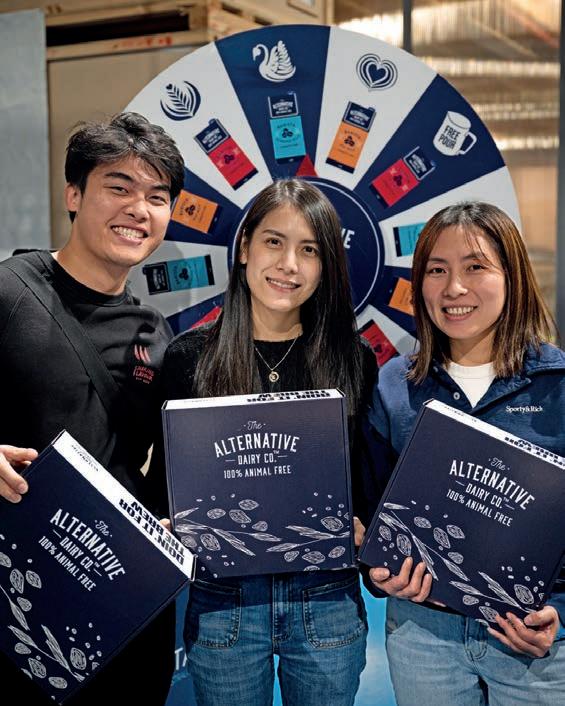

Juan Escobar of Parallel Roasters came in second place and Snowie Jeon of Blackbird Specialty Coffee in third, who flew in especially from Cairns to compete.
The event attracted more than 70 spectators as 30 baristas went head-to-head in the plant-based smackdown.
As in the previous four smackdowns, each barista competed in a knockout format
Jake’s pegasus pattern with oat milk was the deciding pour that won him top spot and $1000 in prize money.
Judging the smackdown was Amy Zhang, current ASCA Australian Latte Art Champion, Alex Milosevic of Extraction Artisan Coffee Roasters and Jon Laker of Tim Adams Specialty Coffee.
The grand final for The Alternative Barista Smackdown National Tour will take place on 15 June at Veneziano Coffee
Australia’s Alternative Barista. All proceeds from competitor entry tickets sold on the national tour go directly to TipJar, an Australian hospitality relief fund powered by StreetSmart Australia.
TipJar partners with social enterprises across Australia, directly funding the next generation of venue staff while also providing vulnerable people the tools to
14
beanscenemag.com.au
NEWS
The top four competitors from left: Apisit “Art” Boonliang, Ohkyung Kwon, Hugh McDonnell, and Louis Cheung.
The Alternative Dairy Co’s top three QLD Smackdown baristas from left: Juan Escobar, Jake Huang, and Snowie Jeon.
The Alternative Dairy Co’s top three VIC Smackdown baristas from left: Victor Vu, Junnie Phyu, and Jodie Chan.
Image: Veneziano Coffee Roasters
2022 CHAMPION AUSTRALIAN ROASTER

Caribbean Trio Gift Pack
For a limited time, Merlo Coffee has released a collective of Central American coffees intended to delight coffee connoisseurs. Delivered in a reusable gift box, the limitededition release of its Caribbean Trio takes a trip through the mountainous ranges of Nicaragua, Costa Rica and Panama. All three coffees extract the best of their volcanic origin homelands. The La Bastilla from Nicaragua displays sweet candied fruit and watermelon flavours. The Sol Naciente coffee from Costa Rica boasts bright blood orange, honeycomb and toffee apple flavours; and the Las Nubes coffee from Panama highlights red apple and liquorice flavours in a smooth offering.
Whether indulging or gifting to a special someone, each coffee is
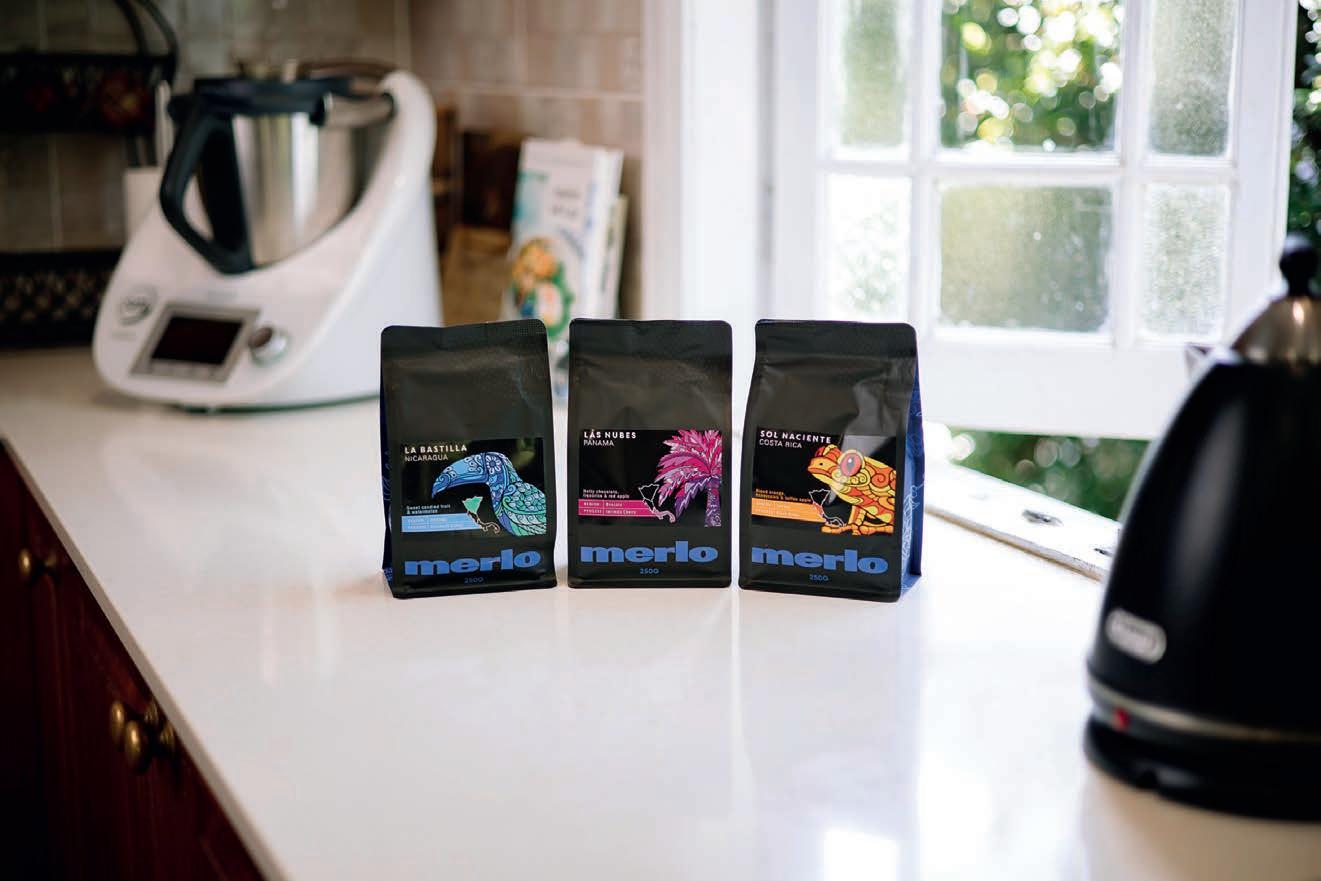
advanced roast and particle analysis to help the coffee industry improve quality and meet consumers’ demand for high-quality coffee. The smart vibration device includes 2D near-infrared imaging, multi-band data fusion, instant precise result without preheating, and multiple data display modes. It has a 2.8-inch high-definition touchscreen and supports data with APP, SDK, and OTA. The coffee industry is one of the indispensable industries in the entire ecosystem. For Barista Group, the common basis behind everything is the many phenomena it has seen, and the turning point behind it is just like the digitisation of
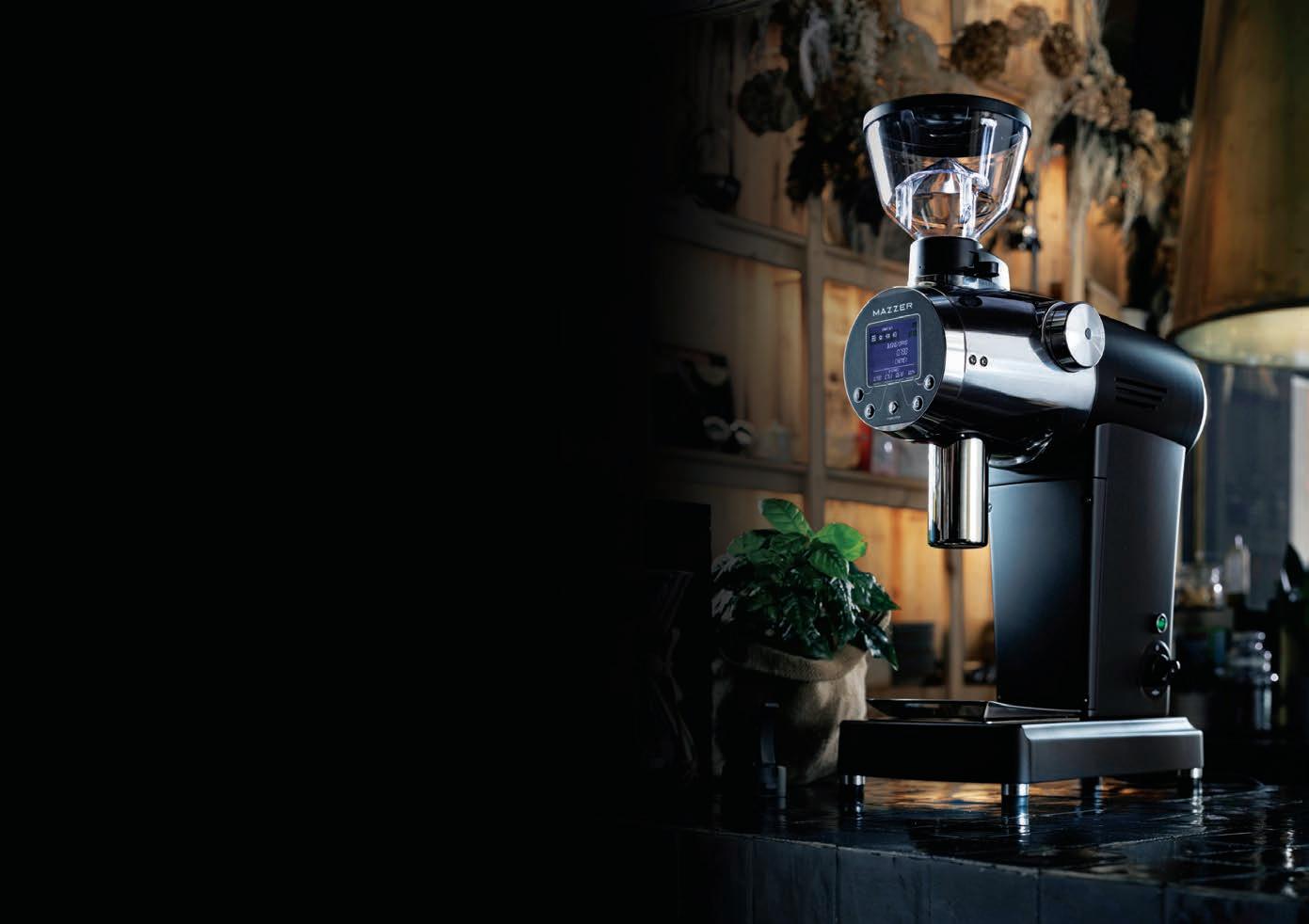
baristagroup.com.au

independently with accuracy and rapidity. The programmable intelligent touchscreen display enables easy and accurate management of temperature and yield in real time. The Indie boasts a patented brewing group water infusion preheating system where fresh water heats through the head to give full control of the temperature directly on the group rather than in a boiler. This ensures maximum oxygen content in the water for a more well-balanced extraction, making this ideal for specialty coffee. The Indie is a project that delivers satisfaction to baristas, taking on the modern world of specialty coffee with confidence.
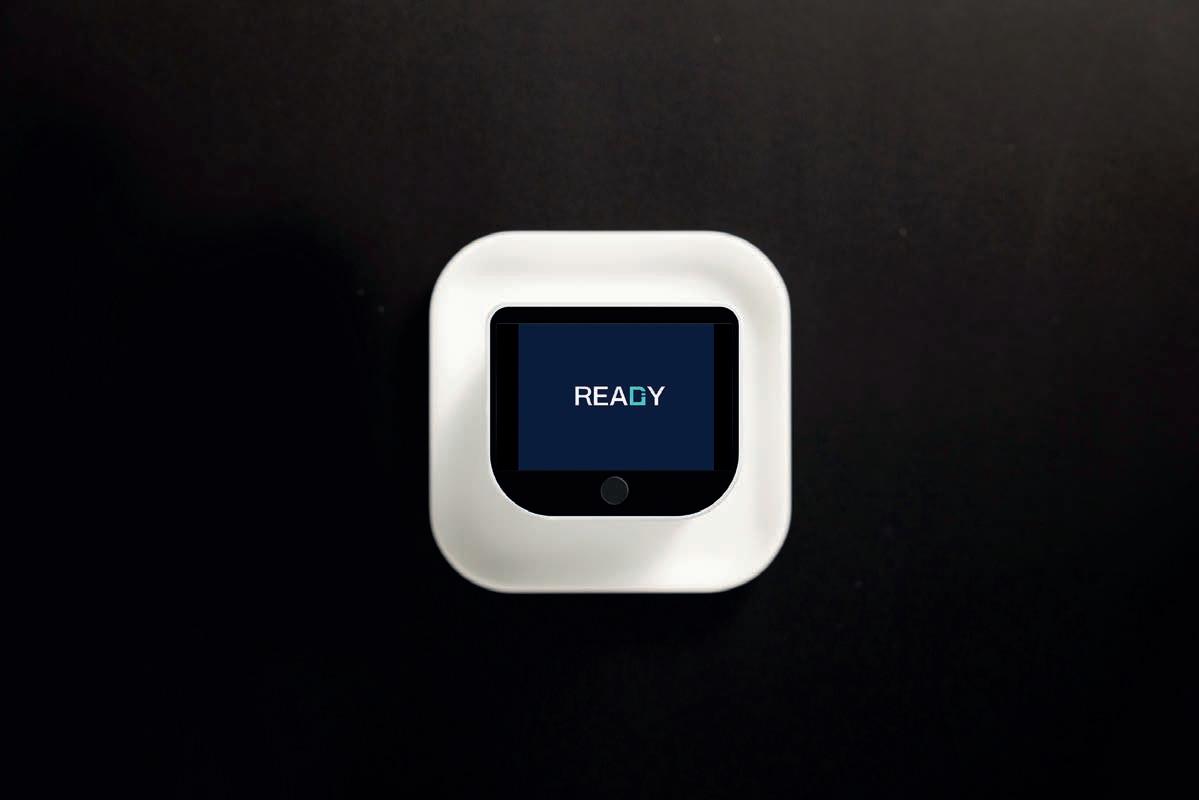
For more information, visit www.coffeemachinetechnologies.com.au
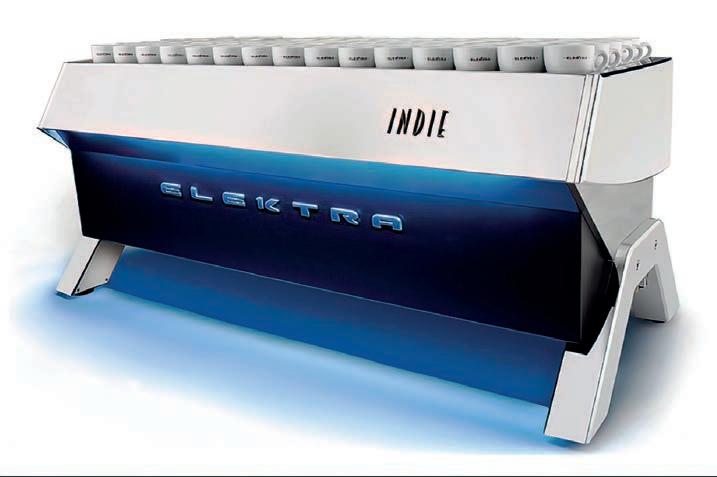
16 beanscenemag.com.au STUFF ON THE SCENE
T-Tamper
The Mazzer T-Tamper automatically distributes, levels and tamps ground coffee, optimising both workflow and results. It is designed to guarantee precision when calibrating the weight distributed on the coffee puck by the rotating tamper. The machine’s solid structure and high-quality materials prevent it from deforming during the work cycle. The ground coffee is pressed evenly and parallel to the surface, in order to obtain optimum extractions. The compact design extends upwards rather than outwards, allowing for plenty of place on the workbench.
The T-Tamper is easy to clean and keeps the coffee in the portafilter when handling large doses. The automated coffee distribution and tamping process achieves ideal results without barista intervention, helping to prevent occupational-related strains such as repetitive use of wrists, hands and elbows. The machine has been designed with inductive cup-detecting sensors and mechanical locking systems to fully protect baristas’ hands during the work cycle.
For more information, visit www.cwe.com.au
VacOne
Make smoother hot coffee, faster cold brew and coffee concentrate for milkbased drinks, all with the one device. The VacOne’s vacuum technology pulls water through a bed of ground coffee, extracting more flavour in a shorter amount of time, while also reducing bitterness and acidity. This patented and unique method uses air to harness the full flavour of coffee. It results in a hot cup of coffee with a brew time of 30 seconds, and cold brew in as little as four minutes.
Rechargeable via USB, the VacOne can make up to 100 cups of coffee on a single charge. It features a reusable, metal mesh filter and hand-made borosilicate glass carafe. Easy to use and easy to clean, the VacOne is fully waterproof and only requires a simple rinse to have it ready for the next use.

For more information, visit www.coffeetools.supply/vacone
AND SHARP TALENTS
Mazzer ZM boasting seriously sharp precision cutting technology is an impressive performer. Digital control, True Zero calibration and consistent grind. This beast is sure to outlast the daily grind and greet it with demand. Game on.
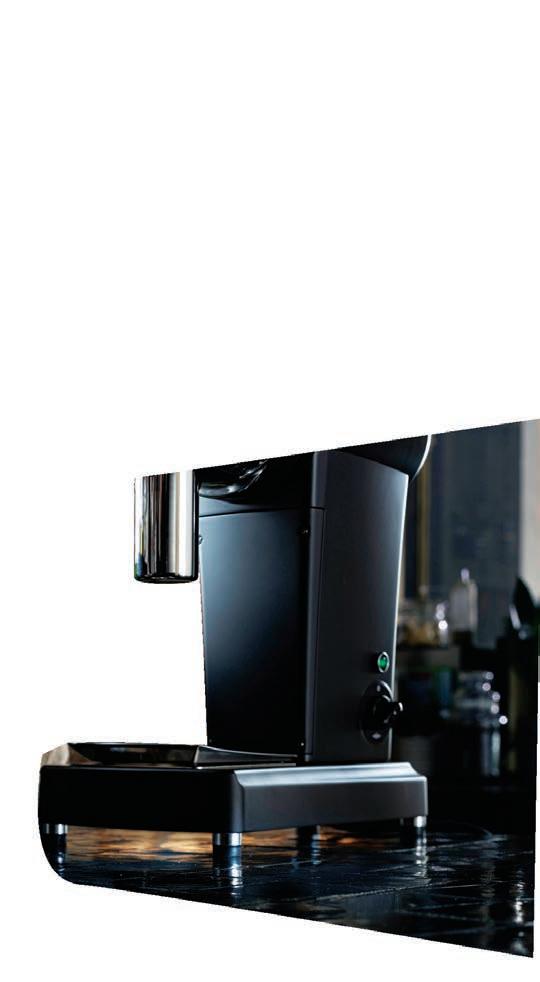


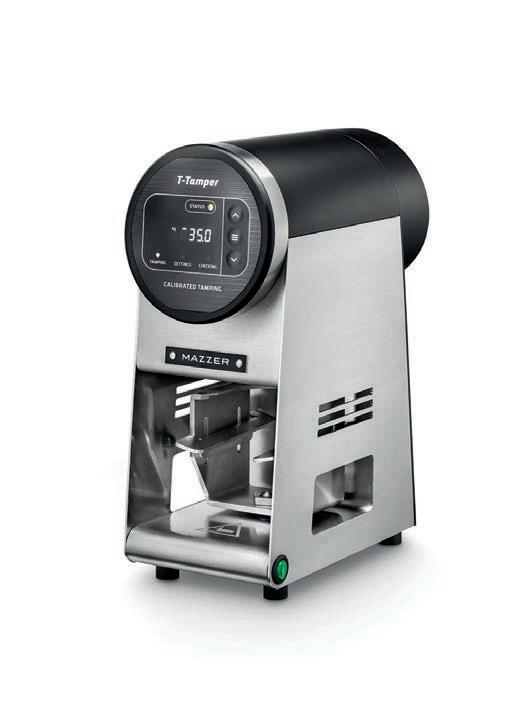
Coffee Works
the Australian distributor.
Available from
MELBOURNE | INFO@CWE.COM.AU | 03 9462 5055 WWW.COFFEEWORKSEXPRESS.COM.AU SYDNEY | SALES@CWE.COM.AU | 02 9533 2693
Express,
QUALITY SPECIALTY COFFEE GRINDER & OFFICIAL GRINDER OF THE WORLD BREWERS CUP.
A vehicle for change
asper Parker Trenfield grew up in his parents’ coffee store lying on coffee sacks in Smith Street, Collingwood. There, his parents owned two venues: one, a warehouse and office; the other, a shop with a smorgasbord of origin coffees, chocolates, lollies, umbrellas, and tin toys with a subterfuge coffee machine for only those “in the know”.
“We didn’t have a license to sell cup coffee,” says Jasper Coffee Co-Director Merilyn Parker. “In the old days, around 1990, the old Collingwood Council had imposed a rule to regulate the mix of businesses. They controlled how many cafés, bars and restaurants were in the Melbourne city of Yarra, Fitzroy, and Collingwood. You couldn’t necessarily get a permit to run a café, but we could do coffee tastings, which we did with the coffee machine hidden behind a wall until the licence lifted.”
Co-Founders Merilyn and Wells Trenfield entered the world of coffee with zero industry knowledge. They bought the business with a friend in 1989, first based in the Victorian suburb of Thomastown. While the partnership didn’t last, the business did, aptly named after their son Jasper who recalls being dropped at school in the company delivery van, and assuming his surname was Coffee for a long time.
“We had to reinvent the business. We had always come from a background where sustainability mattered. Wells grew biodynamic vegetables in Alexandra in the country in the early 70s and would bring them down to sell to organic shops in Melbourne. The whole premise was sustainability and our interest in organic food naturally extended into coffee,” Merilyn says.
“We wanted to know what organic coffee tasted like, who were the people that grow it, and how it’s grown. It led us to ask a lot of questions of Scott Bennett [Director of H.A. Bennett & Sons] who has been our broker the whole way through. Once we understood that organic coffee is grown without the use of pesticides or herbicides, we started selling it as such. There was quite a big market for it. We sold it all over New South Wales, Victoria, and even Darwin. It was a little niche that was natural to us.”
In the early 1990s, Wells and Merilyn sent their coffee to Giancarlo Giusti, Founder of Grinders Coffee, to contract roast to their preferred profile. Merilyn ran
the Smith Street shop and Wells knocked on any door. He went to cafés, delis, wineries, and restaurants in search of customers, with Australian chef Stephanie Alexander an early supporter.
“It was the boost of confidence we needed. It was about finding a niche of credibility in who we were selling to, and then getting our product into people’s homes. We were also in Myers and David Jones retailers for a while,” Merilyn says, remembering how Wells would handwrite the coffee descriptions on a blank label with a fountain pen.
“In those days our packaging was cellophane because it was biodegradable, made from cellulose and seaweed,” Wells says.
The material was later found to not be impervious for coffee, so the company moved to lined Kraft bags, and later to compostable packaging.
Wells say the key to education and adapting new concepts over the years, has been the curiosity he and Merilyn have shared. It’s what led them to attend industry conferences around the world.
“We didn’t know enough in the beginning. That’s why we kept going to Re:Co Symposium and expos like the Specialty Coffee Expo. It’s enriched us to see that there’s a much bigger world that’s not just coffee in a cup,” Wells says.
A NATURAL EVOLUTION
Over time, Jasper Coffee has tried to keep the sustainable and ethical ethos it started with and has adapted new initiatives as they become available and relative. This includes Fairtrade and Organic Certification in 2003, Carbon Neutral certification in 2009, and B-Corp Certification in 2015.
For years, Jasper Coffee has sponsored non-profit marine conservation activism organisation Sea Shepherd, and empowered a group of young people in Cambodia to set up a café. After the devastation of two cyclones in Honduras in 2022, it established a GoFundMe campaign to support its cooperative coffee farmers, and paid out a cooperative’s bank loan after it had a container of green beans stolen. Wells says their sustainable relationships help to keep farmers growing coffee and maintain livelihoods.
“Sustainability has always shaped how we do business. It also extends to how
people can sustain their livelihood,” Wells says.
Merilyn recalls a Smith Street customer who once inquired about one of their coffees for sale, considered of the most sustainable and organic coffees in the world because it grew wild in a remote forest near Lae in Papua New Guinea. Its remote location made hard work for pickers, who would crush the cherries using jam tin cans, then roll the pulp over bark. They had no other equipment.
“It was their only source of income. It made us really aware of how people were living in the origin countries we were buying and selling coffee from. So when Fairtrade came along, it was like a relief because it was a vehicle to really assist, and over our 30-odd years we’ve been to lots of places where we’ve seen incredible change as a result of Organic certification and Fairtrade. They really do make a huge difference to communities,” Merilyn says.
She adds that the reason she and Wells have committed to travelling the world over to origin countries is simply to verify the impact of such certifications.
“We wanted to see what people are doing with their Fairtrade Premiums. We wanted to hear what they say and hear how their lives have changed. We’ve been to remarkable places because of that connection with coffee. Coffee has taken us everywhere. But when we come home, it’s so important for us to represent the growers.”
For Wells, travelling to origin was also to ensure a reciprocal understanding and respect for the coffee they served. He would always take a packet of their roasted coffee for farmers to see.
“A lot of the time we would knock on the door of strangers and leave as friends, and in some cases, it’s been lifelong friendships. They really do appreciate our efforts and our friendship,” Wells says.
“The premise of our purpose is to be a conduit between the growers and the customers. It’s important that the growers hear and understand what happens at our end: to learn what we do, what the customer expects, even to the point about prices and costs where they learn that it sells for an extraordinary exorbitant price in Australia. Many don’t understand why it’s so expensive. But when you break it down to the cost of labour and the cost of
A conduit between opposite ends of the supply chains, Jasper Coffee has led a 34-year career shaped by sustainability and the power of people.
18 beanscenemag.com.au KNOWLEDGE LEADER
Jasper Coffee sources coffee from about 28 origins and 14 cooperatives, many of whom have been clients since 2003. It aims to be consistent with the communities it sources from and committed to bringing special release coffees to customers, such as those from Hawaii, Yemen, and Jamaica.
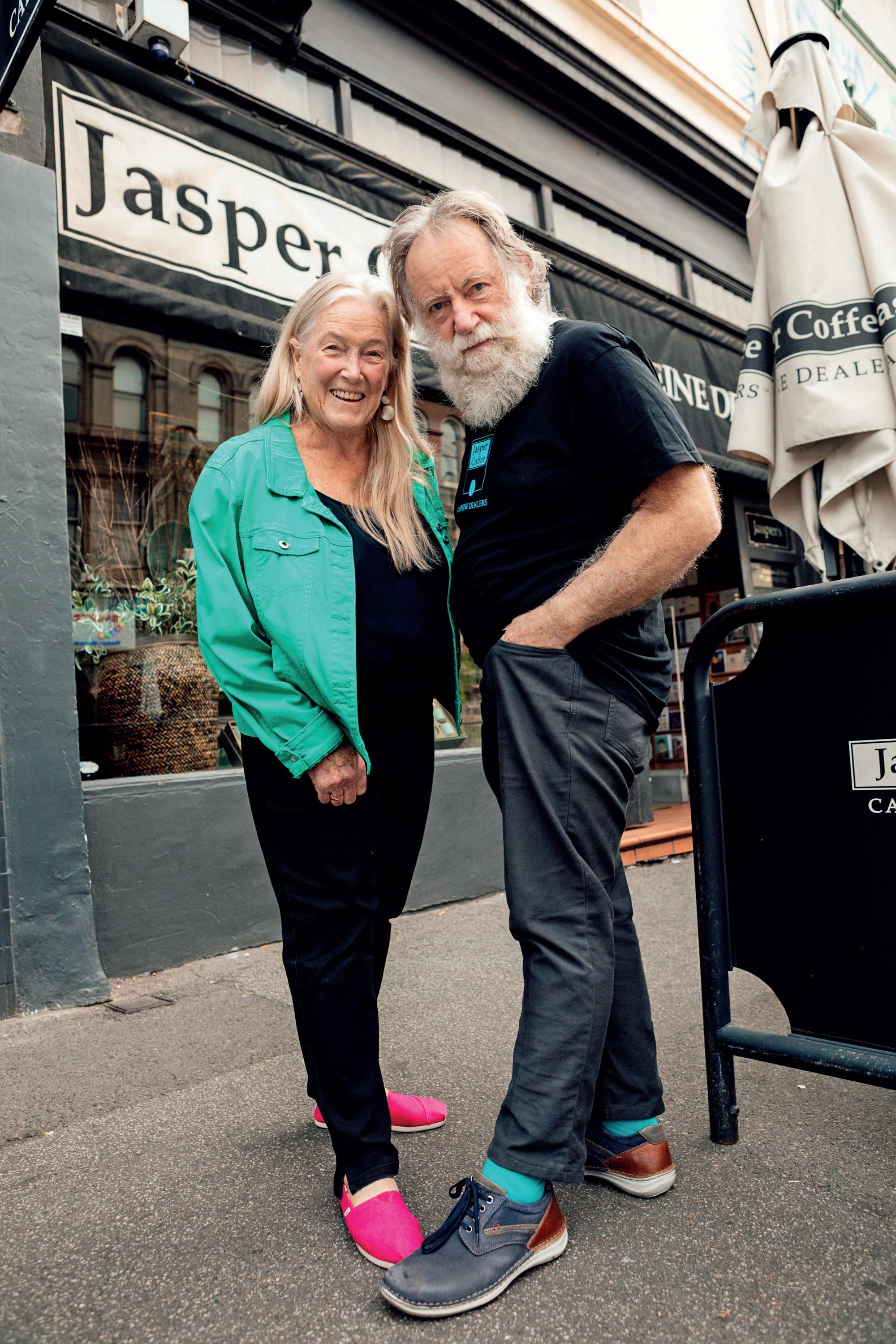
beanscenemag.com.au 19
living, they get a more rounded picture.”

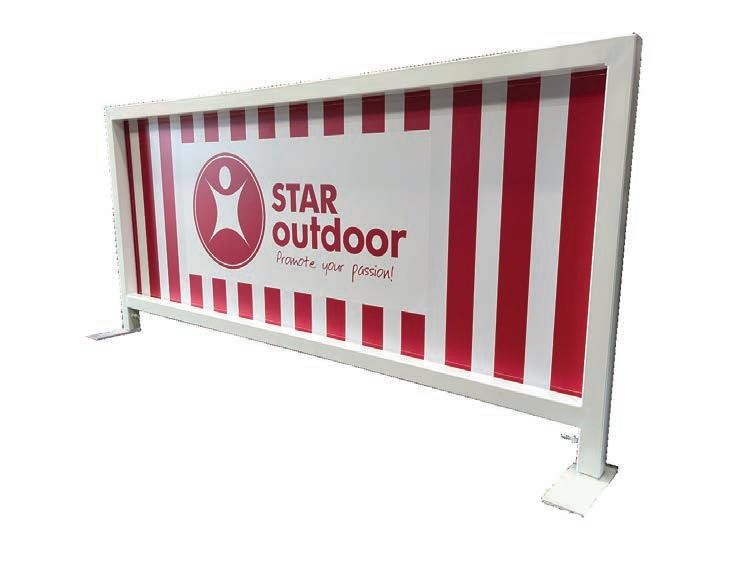
When the La Roya disaster hit Honduras in 2011, decimating 80 per cent of crops, Jasper Coffee still bought a container of green bean from their regular farmers. And throughout the global pandemic, Wells
made it a personal responsibility to connect with as many cooperatives as he could to understand how they were coping.
Coffee’s support of a World Vision coffee cooperative, and an Indigenous group of
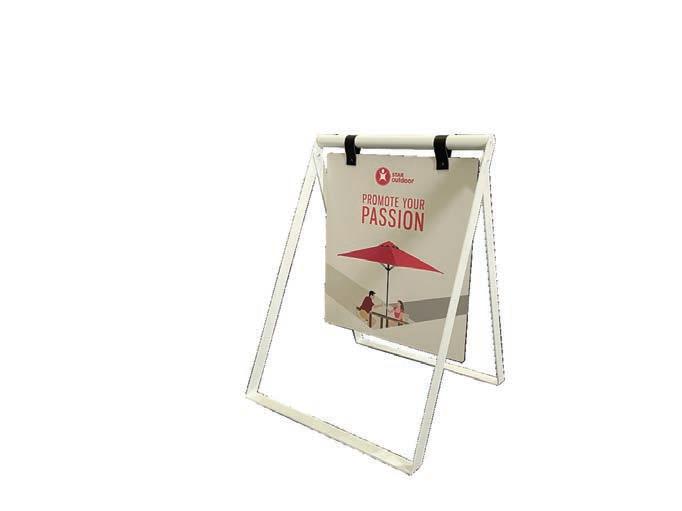

coffee growers in Santa Marta, northern Colombia, both of which have become self-sufficient through their use of Certified Fairtrade and Fairtrade Premiums, and Organic coffee. It also works closely with Outback Academy Australia, a not-forprofit majority Aboriginal-led organisation of which it partners to roast its First Nations coffee, and supports its Follow the Flowers alliance-based regenerative farming business movement based on Fairtrade business principles.
“It’s a rewarding project to see how the profits of this coffee help Indigenous people gain a connection back to the land they once lost, and help empower and develop a sense of community,” Merilyn says.
That sense of community is the one thing Wells and Merilyn treasure most about the coffee industry. They see it in the cafés they serve, the loyal customers of their coffee, and the people they meet at origin.
“Coffee is just a vehicle to start talking,” Wells says. “For us, it’s always been about connecting with people – from the growers to the customers – and always will be. But the best part – we dared to go on an adventure and take our customers along for the ride.”
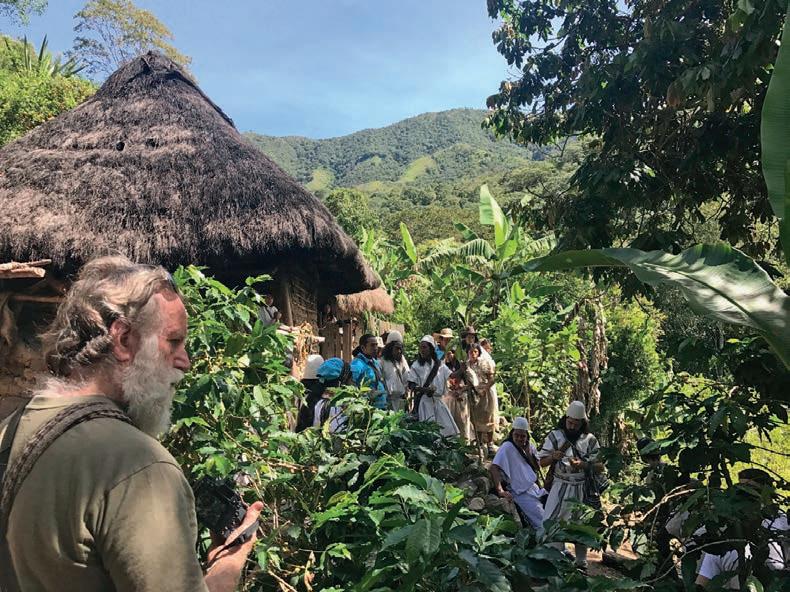
KNOWLEDGE LEADER
Wells Trenfield says travelling is a sign of reciprocal support for the producers he works with.




CONSUMER FOCUSED
Attica chef Ben Shewry says the most important factor in a good café – apart from exceptionally good coffee – is how it makes you feel. Service is important, as is the use of quality produce, and the overall experience. It’s something Ben strives to deliver at his own restaurant Attica, in Ripponlea, Victoria. This winning formula is one of the many reasons Attica is revered as one of Australia’s – and the world’s – best restaurants.
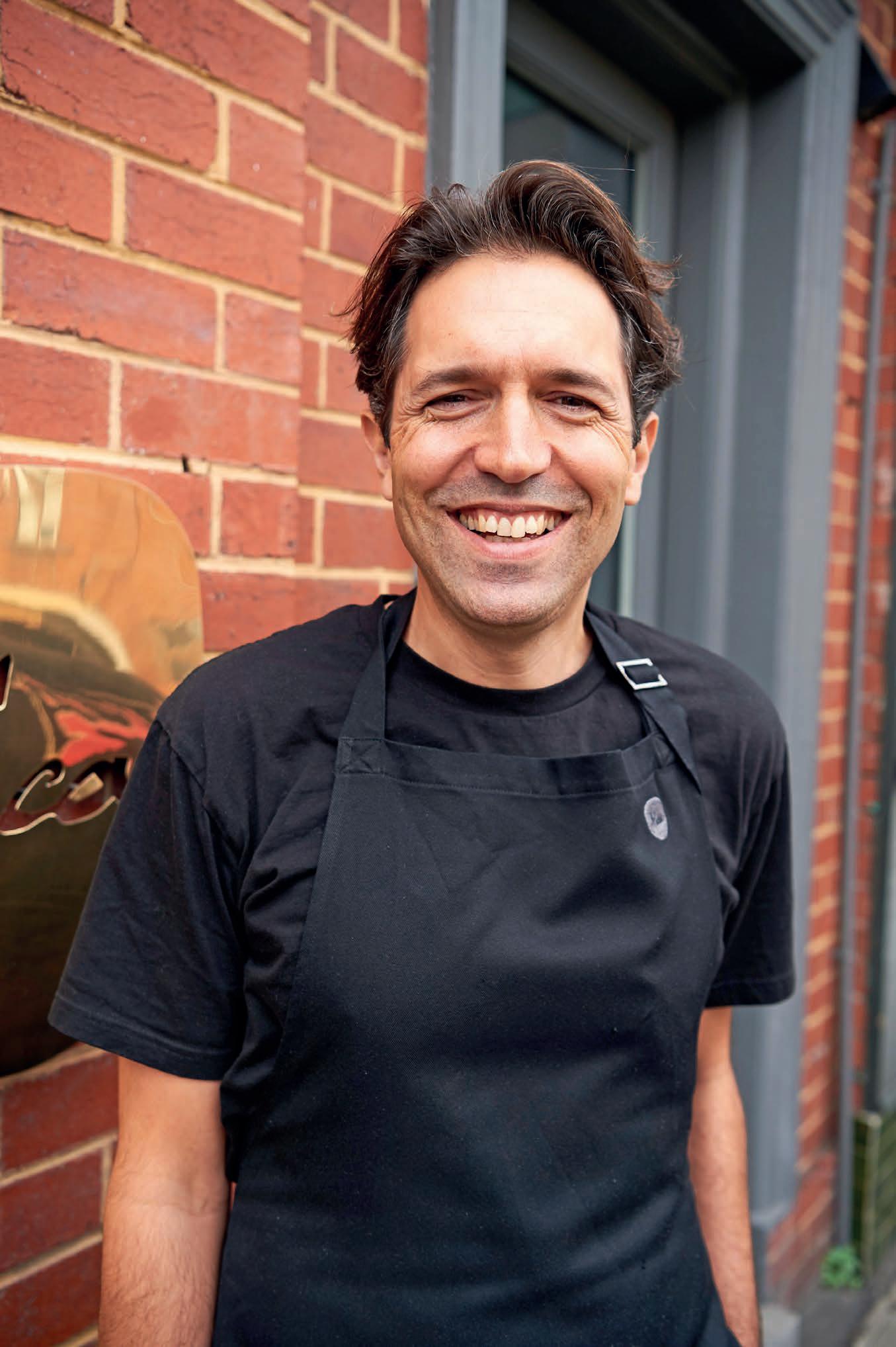
Colin Page CELEBRITY CHEF grfsgds
Images:
22 beanscenemag.com.au
Right At home
Attica chef-owner Ben Shewry on the psychology of his coffee drinking, the beauty of conversation, and the intrinsic joy food brings him.
hen BeanScene asked to interview chef Ben Shewry about five or six years ago, the request was met with a polite decline. Ben wasn’t a coffee drinker. This time around, something’s changed.
“I am a coffee drinker now,” Ben says. “I am New Zealand born but I am from Melbourne, and it’s sacrilegious not to drink coffee.”
Ben says the real reason he abstained for so long was out of fear of caffeine addiction.
“[Coffee] wasn’t something I longed for, but I have never disliked the flavour of it. What I dislike is being addicted to things. In my teens, I developed an addiction to Diet Coke. It was quite hard to give it up, but I did. I went cold turkey for probably 20 years. Then we undertook a really massive renovation at Attica [Ben’s fine-dining- restaurant in Victoria]. I was working 20 to 22-hour days for 15 days to build a new dining room, and I started drinking coffee,” Ben says.
“I was on site with tradie friends and family, and everybody drank lattes. To support them I’d go to the café across the road to buy lattes for everybody and I started drinking it too. I quite liked it. It’s been a great decision, and I have to say, that unlike Diet Coke, I’m not addicted to it and can go without if I want.”
As it turns out, coffee brewing is an important part of Ben’s family heritage.
“I had a Canadian grandmother, Elaine. My father said she was one of the first people in New Zealand to have some sort of stove top coffee brewing device. She drove specifically from where we lived in Taranaki to Wellington to purchase it in the 1950s or 60s,” Ben says. “My father always said it was a really big deal.”
But the legacy didn’t last. Tea drinking was more prevalent in Ben’s family than instant coffee, however, he recalls drinking some sort of coffee extract combined with condensed milk in a steel toothpaste tube he’d add hot water too.
“It tasted like sweetened coffee. It was pretty delicious and something we would have when we went camping at the Tahora Folk Festival in Taranaki my uncle ran,” he says.
By Sarah Baker
On-the-go coffee has come a long way, with Ben noticing its evolution when he recently enjoyed a coffee drip bag in a Japanese hotel, and from Padre coffee in Melbourne.
He credits Market Lane Coffee Founder Fleur Studd for inspiring him about coffee and igniting his enthusiasm.
“I saw Fleur applying this incredible sourcing detail to her coffee which mirrors our sourcing detail at Attica,” he says. “So, every time I’m in Prahran Market I visit Market Lane.”
In Wellington, Ben enjoys Coffee Supreme. In Melbourne’s CBD, he loves visiting “coffee institution” Brother Baba Budan. In his home suburb of Caulfield North, it’s Goodies; and in Ripponlea, home to Attica, Ben spreads the love between Follow the Leader Café and Spout Cafe.
Ben says one of the privileges of his vocation as a cook, has been travelling the world over with regularity, but he’s adamant nothing compares to Melbourne coffee.
“Australia is miles ahead of everyone else. Anyone to suggest otherwise is foolish,” he says.
“There’s not really another country or another city to compare Melbourne too. I know you can go to Copenhagen and have a good coffee. I know you can go to Portland and have a good coffee there. But those are isolated experiences. They’re not just around the corner from wherever you are. I think that’s the power of Melbourne’s coffee scene. Generally, you can expect to have great coffee everywhere.”
That expectation starts at 5.30am when Ben wakes up and turns his Moccamaster on. He grinds his Market Lane beans, makes the maximum pot, and sits on his morning brew for a few hours while he writes from 5.30am to 8.30am.
“I’m writing a memoir. It’s been my life for the last eight months. I’ll keep that morning ritual going until I have to hand the manuscript in at the end of November,” he says.
Sharing this project for the first time, Ben reveals the book will be “a conversation and a search for the meaning of everything”.
“I love writing. I failed a lot of subjects in high school, but writing was one of the
things I excelled at, as well as things I did with my hands, such as wood working. I have fond memories of it. Positive reinforcement from good teachers means that I still love it today,” he says.
Away from the classroom, Ben’s upbringing was enriched with valuable life learnings on the family farm in North Taranaki. There, he and his two sisters got involved in the preparation and procurement of food, and grew up understanding what it was like to be “close to the source”.
“We didn’t have much money, but it never felt like that because we had a lot of food in lots of ways because my parents farmed sheep and cattle. To this day they’re really passionate gardeners, so there was always a very sizable vegetable garden. Plus, we were in a pretty wild environment so there was lots of wild food, whether it be dad hunting or us harvesting berries, or going to the coast for shellfish. Food was probably the most important part of our lives in a lot of ways,” Ben says.
He learned early on about the directness of food. Before leaving the farm to study food at age 16, Ben had a clear understanding that meat comes from an animal, fish from the ocean, and brussels sprouts from the ground.
“A lot of children don’t learn these things, and that’s a real problem for our society, and for our planet. Learning about this directness was really important to me,” he says.
Ben’s horizon “exploded” when he went to chef school. His tutors from Switzerland, France and England taught him the fundamentals of French cuisine. It was only when Ben started cooking professionally in his late 20s that he appreciated his foundational years on the land, and started to care about sustainability as a result of seeing its impact on his sourcing.
“I’m not being remiss when I say I care about where things are from more than other cooks because of my childhood, because I lived with [that lifestyle]. It wasn’t something I had to learn about. It was something I knew about,” Ben says. “I lived with overfishing because I saw overfishing
beanscenemag.com.au 23
and then I saw the disastrous circumstance of that on the coastline where I lived.”
It’s for this reason that Ben established Attica restaurant in 2015 with a sustainable and holistic framework, and a motto to “do the absolute best we can and not hurt anybody in the process, whether that be community, our employees, or the planet”.
“We’re an independent business. There’s no big money behind us. It’s just cooking. I have a wonderful team. The reason we’re fiercely independent is so that we can make the creative decisions we need to, and to keep going in the direction that I want to, which is a state of constantly evolving and getting better,” Ben says. “[I’m not] interested in trends or following fashion or anything like that. We just want to do our own creative thing. We have for 17 years, and that will never ever change as long as I still run it. That’s where the intrinsic joy is for me – finding new ways to evolve it, present things, and move the conversation around food more.”
For Ben, the conversations that have arisen from and with food, elicit some of the most powerful connections, whether it be shared at home, in a café, or a restaurant.
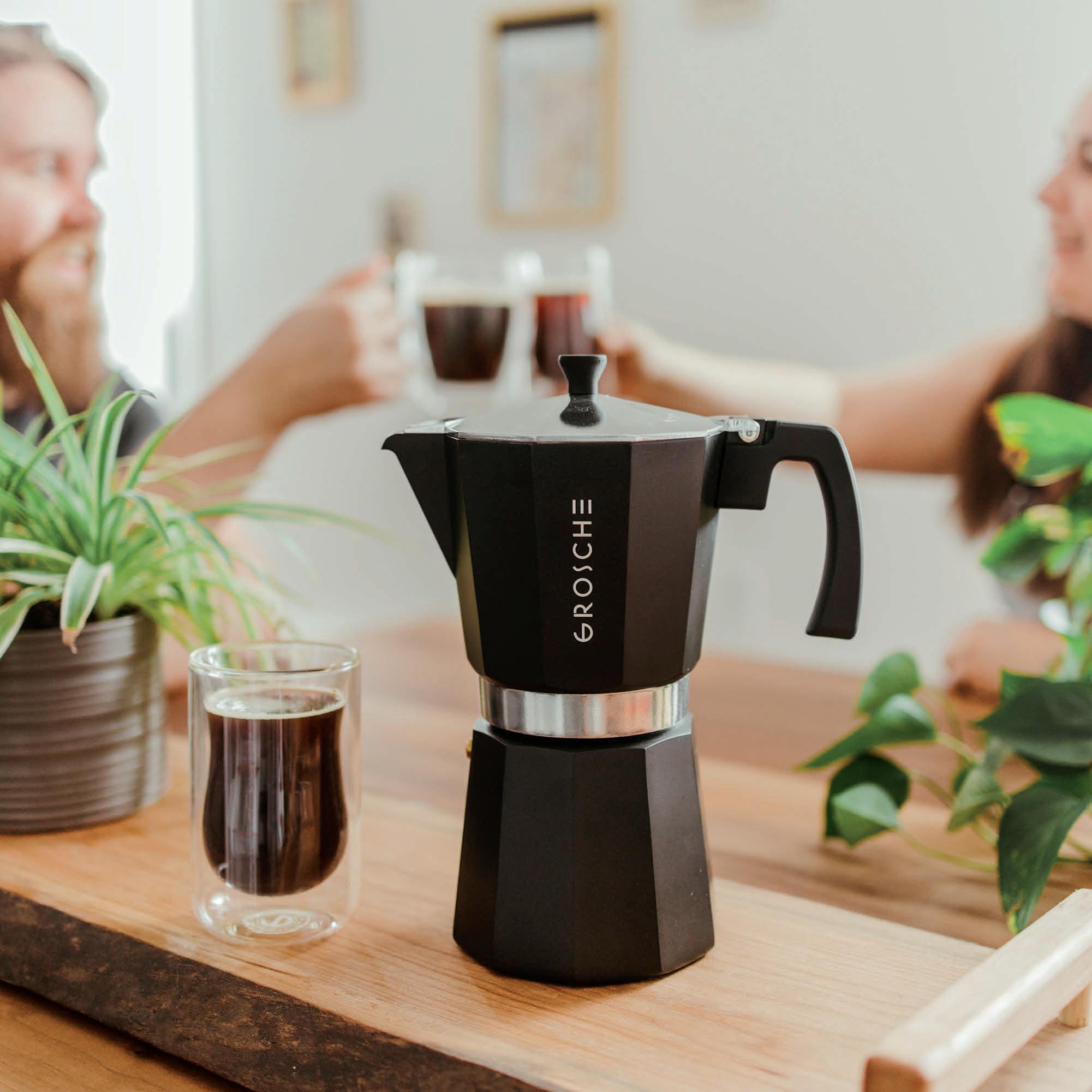
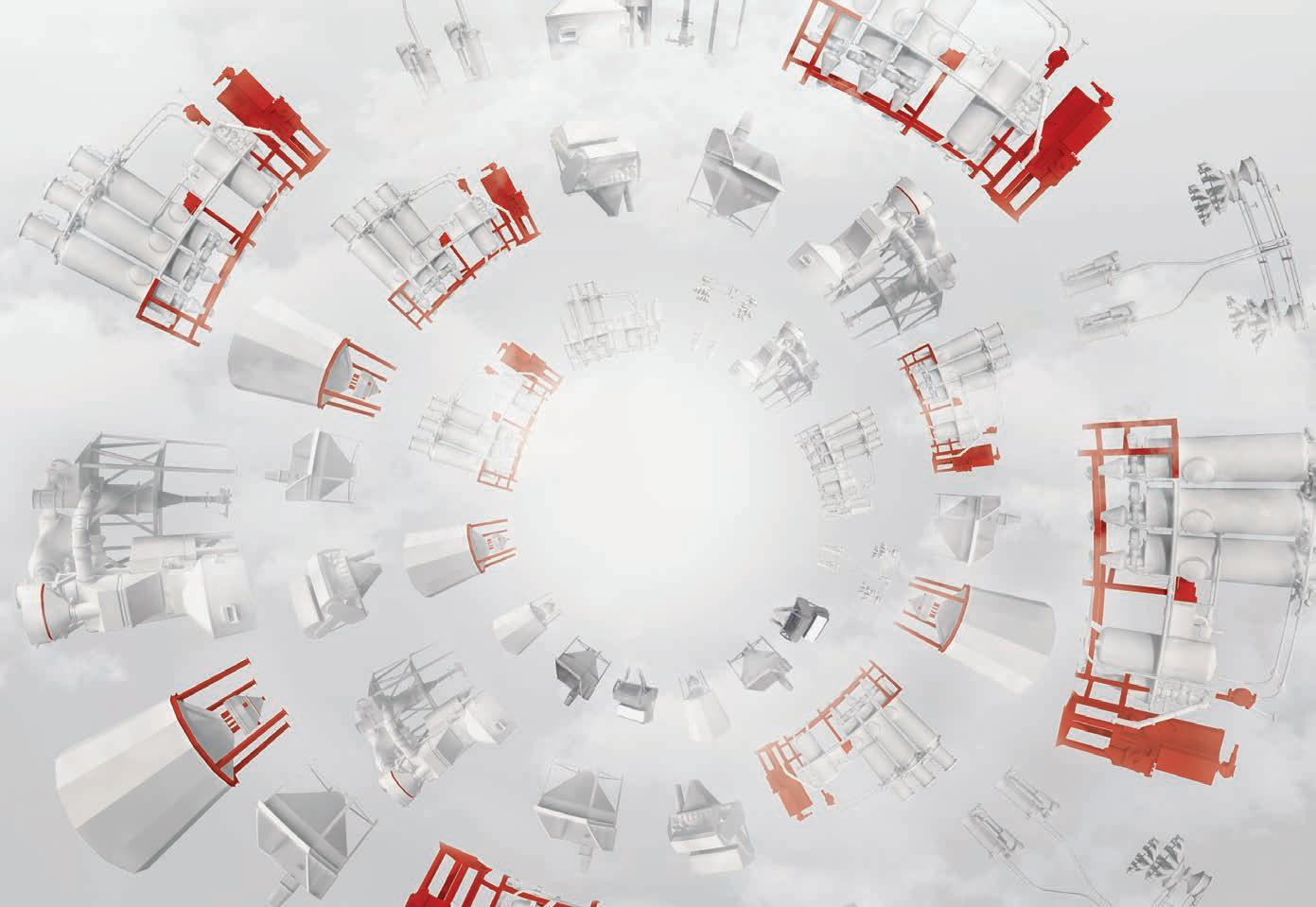
“Sometimes the conversation is about the food, and sometimes the food evokes some sort of memory: that time you went on a hunting trip, that time you nearly caught a trout or had a terrible meal on an
aeroplane,” Ben says. “But what it does, is start a coming together of different people from different backgrounds, and there’s beauty in that.”
As such, Ben places little merit on accolades, such as Attica achieving an all-time high ranking of number 20 in The World’s 50 Best Restaurants in 2018. What
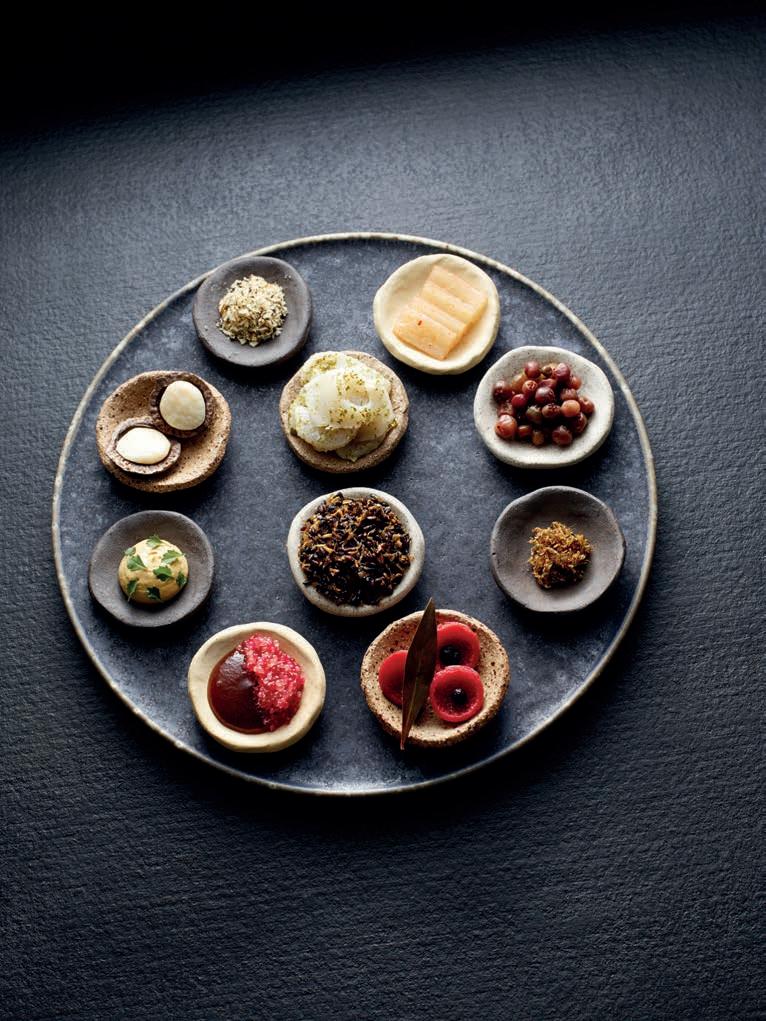
TMR ROASTER

he values, is maintaining excellence for his restaurant guests.
“I don’t put any emphasis on external sources of validation other than our guests, our community and our staff,” Ben says. “Those are the people that matter. It’s such a privilege to have an audience and do our work for them.”
Attica Chef and Owner Ben Shewry takes a sustainable and holistic framework to the ingredients he sources.
Energy-efficient roasting technology. ima.it/coffee Visit us at HOST Milan, Italy • 13-17 October GULFOOD MANUFACTORING Dubai, United Arab Emirates • 7-9 November
CELEBRITY CHEF
Every GROSCHE Moka pot purchased provides 50+ days of safe drinking water for people in need.
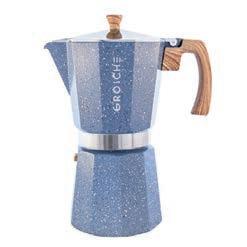
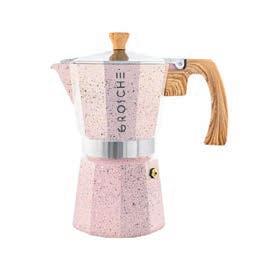
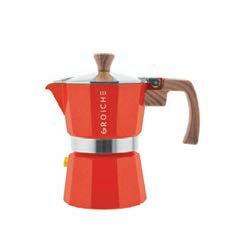
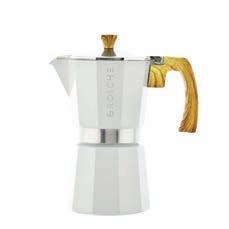
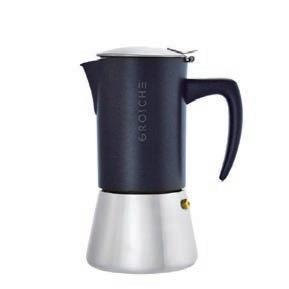

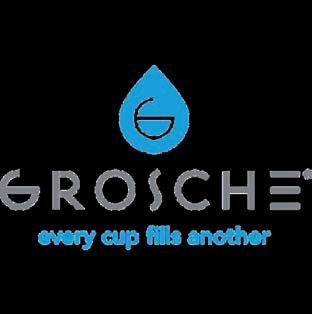




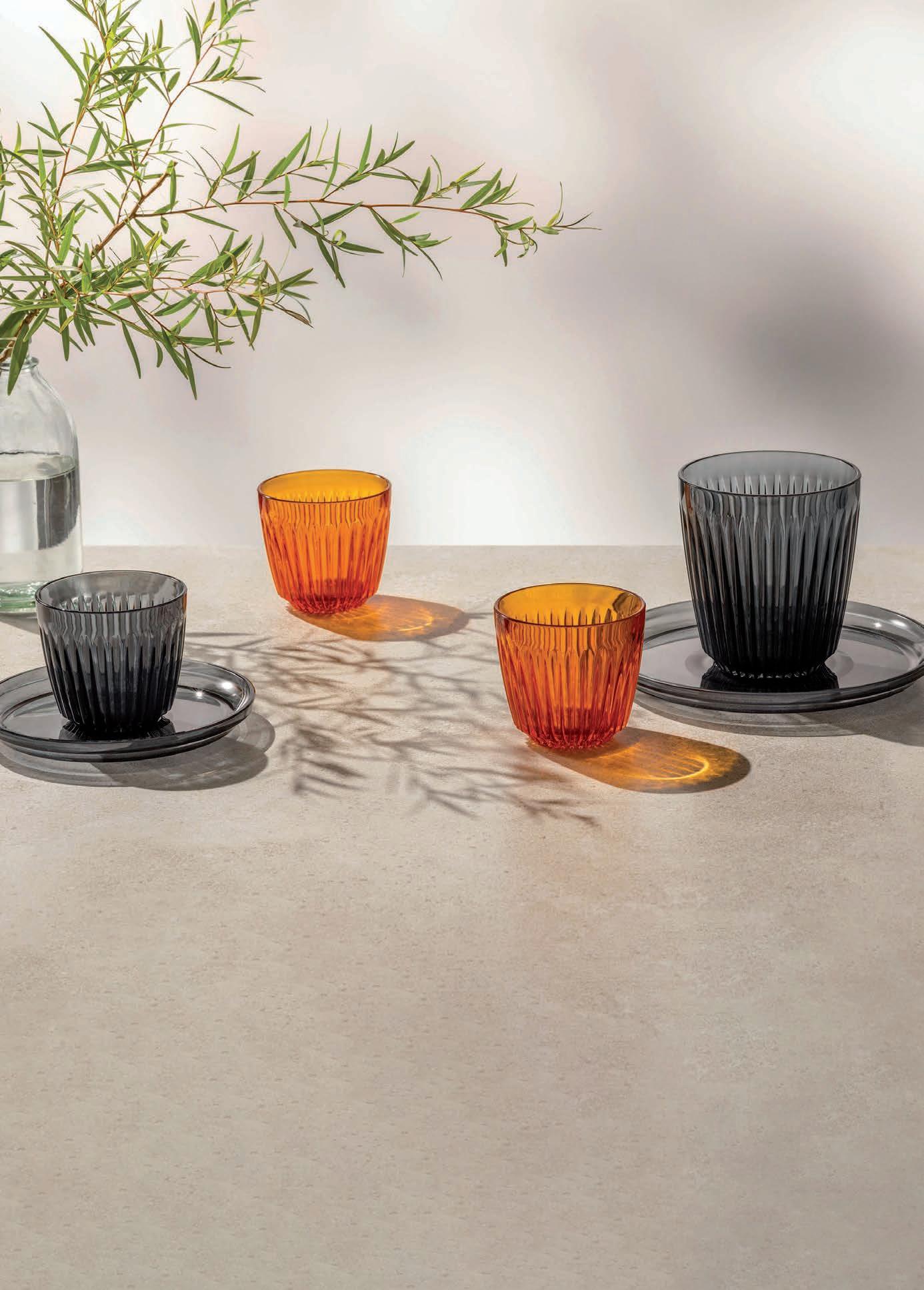
DESIGNED FOR A WASTE-FREE WORLD www.huskee.co
To infinity and B-eyond
Becoming a Certified B Corporation is no easy feat, and not one many companies achieve on their first try, but Nomad Coffee Group, the parent company of Veneziano Coffee Roasters, is happy to join the exclusive club.
“This certification allows us to make a statement to the industry and to our customer base that meeting high standards of verified performance, accountability, and transparency is incredibly important to us,” says Nomad Coffee Group Sustainability Manager Nick Percy.
“This is something that we put a lot of time and effort into. We knew how extensive the process would be and went into it wholeheartedly and hopeful. The initial mindset was ‘we think we’re ready, so let’s have a crack and see how we go’. We were expecting a list of areas to improve on between then and the next application. But we had done the hard yards and achieved the certification on our first attempt.”
B Lab is the non-profit organisation that
certifies Benefit Corporations (B Corps), the name given to successful companies that achieve the certification. It is a unique undertaking that measures a company’s entire social and environmental impact. Those that make it through the rigorous process are considered leaders in the global movement of an inclusive, equitable, and regenerative economy.
The process began back in 2020 when Nomad Coffee Group’s sustainability committee, which includes Nick, People and Culture Manager Amie Jacobson, and Head of Procurement Jack Allisey, considered the company’s materiality matrix and what was important to its internal and external stakeholders. What came to the surface were two clear sustainable goals: becoming carbon neutral certified by governmentbacked initiative Climate Active, and achieving B Corp certification. It ticked off the first objective in 2022, then set its sights on the second.
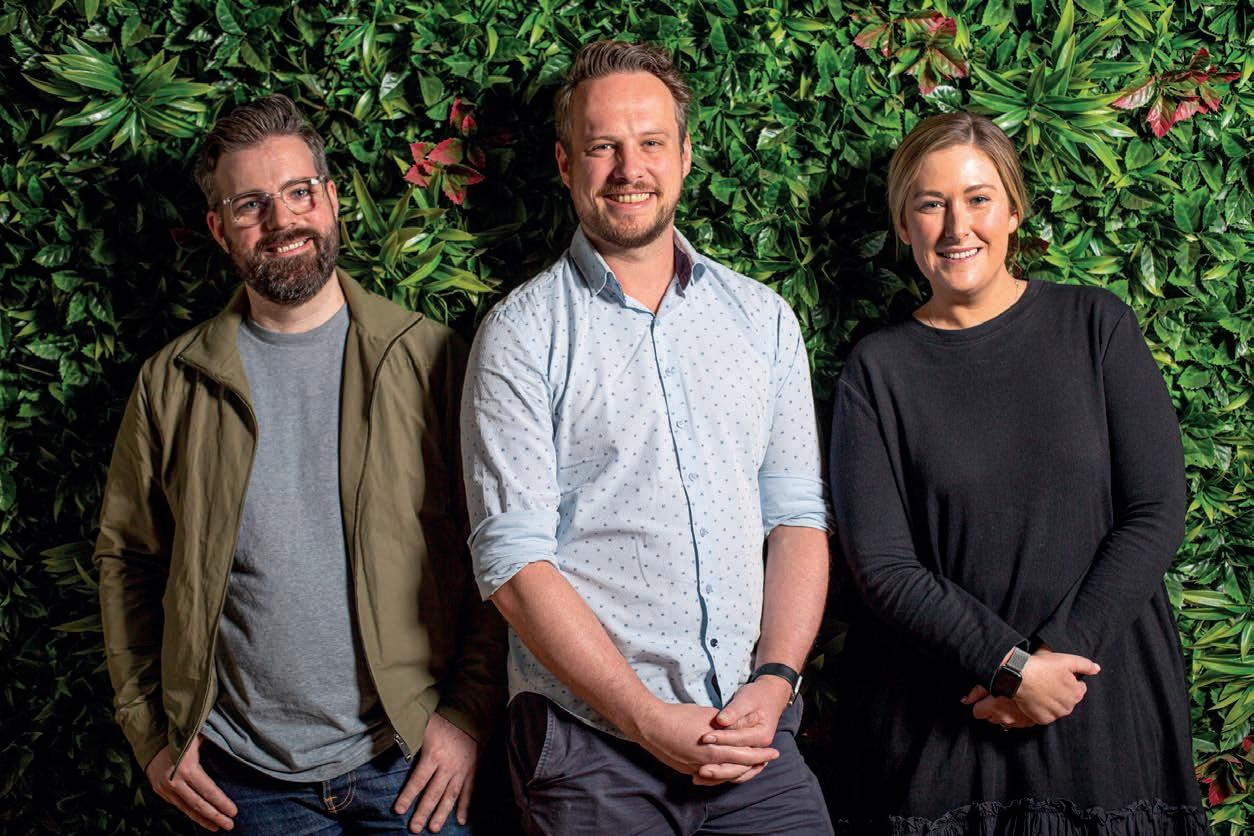
“We liked B Corp because it was an allencompassing certification. There are quite

a few certifications out there that are pretty narrow in their focus, whereas this involved many impact area pillars, including our employees, our customers, the environment, the community, and all the ways in which we generate a profit,” Amie says.
“As far as our day-to-day operations go, we do a lot of good work here because that’s who we are as a company. Becoming B Corp Certified was a great way to demonstrate that and measure our success.”
DOWN TO BUSINESS
Jack says the process of becoming B Corp Certified was much more in depth than simply “a tick and flick” or marking a checkbox.
“We definitely identified this as quite an aspirational goal of ours. We’d been very coffee-focused up until we set our sights on B Corp, so switching gears and focusing on all aspects of the business was an important step for us,” he says.
To become B Corp Certified, a company must demonstrate high social and
Nomad Coffee Group discusses the road to becoming B Corp Certified, what it means to its collection of specialty coffee brands, and how it ensures continuous improvement.
beanscenemag.com.au 27 COVER STORY
From left: Nomad Coffee Group Head of Procurement Jack Allisey, Sustainability Manager Nick Percy, and People and Culture Manager Amie Jacobson.
environmental performance by achieving a B Impact Assessment score of 80 or above and pass a risk review. The median score for businesses who complete the assessment is currently 50.9. Nomad Coffee Group scored 90.3.
The B Impact Assessment is broken down into five key areas: governance, workers, community, environment, and customers. Governance evaluates a company’s overall mission and engagement around its social and environmental impact, ethics, and transparency. Nomad Coffee Group scored 13.5 in this area, while the average score for comparative sector and business sizes is six.
“In 2022 we implemented a paid parental leave scheme offering to employees which covers paid leave and superannuation to help close the gap between superannuation retirement funds,” Nick says.
“Our policy aligns with key Workplace Gender Equality Australia guidelines, and we are proud to share a values-driven policy which positively impacts the lives of our employees.”
wellness, career development, and engagement and satisfaction. Nomad Coffee Group scored 20.8, while the median score for similar-sized businesses is 17.
“Nomad Coffee Group has established wellbeing programs including companysubsidised work outs, an RUOK wellbeing committee, and onsite massages. We also initiated annual leave programs to allow employees to purchase up to two weeks of extra leave over the year, to support work life balance and longer holidays,” says Amie.
The community sector evaluates a company’s engagement with and impact on the communities in which it operates, hires, and sources from. In this area, Nomad Coffee Group scored 27.6. The median score is 20.
“We continue to source the highest quality coffees to go into our blends and our seasonal microlots. As our business grows, we’ve increased our purchases from key partners at origin in Central and South America as well as new relationships in Vietnam,” says Jack.
One of those key partners is farmer
Barista Gabrel Tan used this lot in the 2023 Vitasoy Australian Barista Championship.
“We’ve been working with this farm for many years now and seeing the progression of these coffees and how Rigoberto has dialled in the processing technique to achieve the flavour profile has blown us all away,” says Gabrel.
The environment category evaluates a company’s overall environmental management practices as well as its impact on the air, climate, water, land, and biodiversity. This includes the direct impact of a company’s operations and, when applicable, its supply chain and distribution channels. Nomad Coffee Group scored 25.5, which is about the same as the average.
“We continue to embed sustainability culture into our every day at Nomad Coffee Group. Our commitment to sustainability and protecting the future of coffee is paramount and at the forefront of our business decisions, primarily evident in the achievement of our Carbon Neutral Organisation accreditation by Climate Active in March 2022,” Amie says.
Customers evaluates a company’s stewardship of its customers through the quality of its products and services, ethical marketing, data privacy and security, and feedback channels. Nomad Coffee Group scored 2.6, and the average score is two.
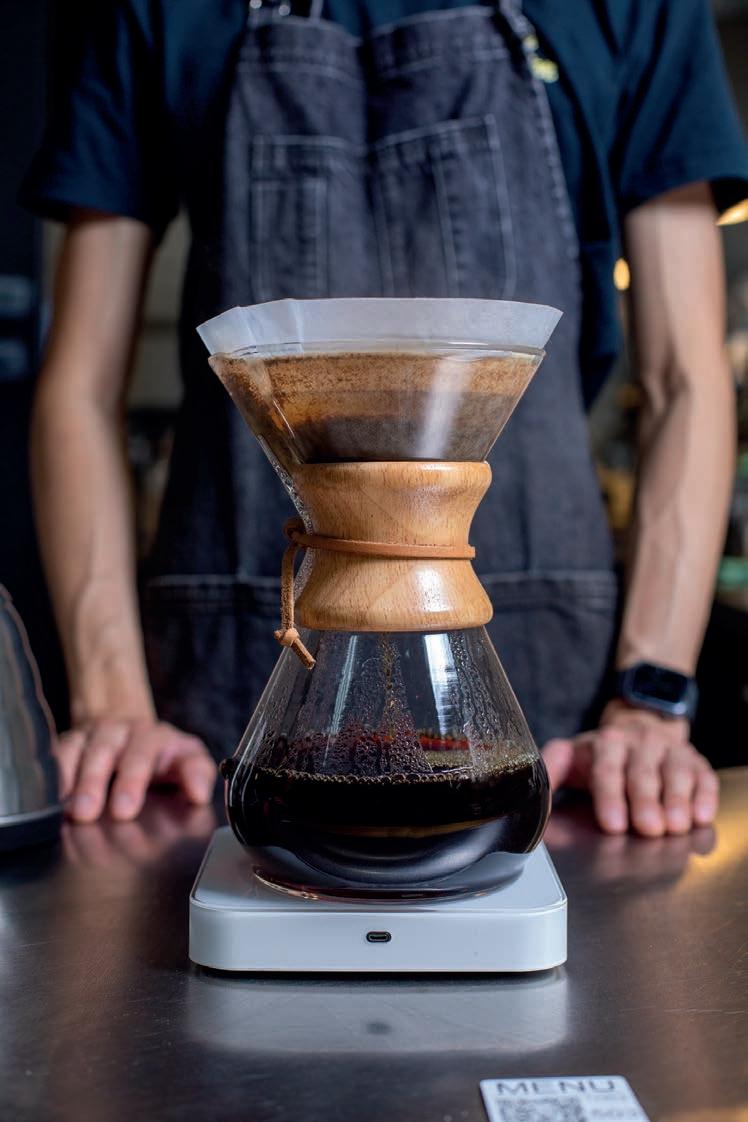
“We have partnered with Miir, a reusable coffee container manufacturer and have implemented a swap-and-go program where customers simply fill their canister with beans which helps reduce packaging consumption, and with Closed Loop to give our café customers options for recycling single use coffee cups,” says Nick.
Nomad Coffee Group CEO Craig Dickson says the certification allowed the company to highlight the areas of business it already excelled in on a daily basis.
“A positive thing that came out of this process was recognising where we were already doing a great job, especially in our people and culture engagement scores. It gave us a chance to celebrate and reflect on the good that we do and have done for a long time. This includes launching a paid volunteering program allowing employees to work in employee nominated charities on Nomad Coffee Group paid time,” he says.
The company has made a significant investment in the last year to achieve its B Corp and Climate Active certifications.
“Our size certainly made the process more complicated than if we were still a smaller, single brand business. We have over 140 employees across Australia and New Zealand, operate across six sites, and roast 80 to 100 tonnes of coffee a week. For us to achieve this certification allows us to set a benchmark for bigger companies in the industry to understand the magnitude of this process,” Craig says.
28 beanscenemag.com.au COVER STORY
The Colombia Cerro Azul La Esperanza Geisha Natural produced by farmer Rigoberto Herrera.
FORWARD FOCUS
As leaders in the movement for economic systems change, Jack says being B Corp Certified reaps remarkable benefits.
“The certification underpins a lot of our values within the business and reflects our overall mission of ‘everyday evolution’. It builds trust with our consumers, communities, and suppliers, attracts and retains employees, and draws mission-aligned investors. It shows that we operate in a sustainable way, makes us reputable within the industry and displays that we’re a high-class employer and a great place to work,” Jack says.
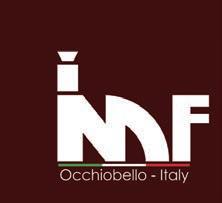
“It’s always been in the business’s DNA to go down this road. Primarily, we’re in business to make coffee and a profit, but we have an opportunity through that process to make a positive impact and use our business as a force for good.”
B Corp certification applies to all companies under the Nomad Coffee Group: Veneziano Coffee Roasters, Black Bag Roasters, Coffee Hit, and Flight Coffee. To ensure Nomad Coffee Group maintains and retains its high sustainability targets, the company reports its progress to the company board quarterly.
“It’s definitely not a ‘set and forget’, it’s something that’s constantly monitored. We’re proud of the work we do and want to continue making a difference every day,” Amie says.
While Nomad Coffee Group is extremely proud of its B Impact Assessment score, there’s always room for improvement.
“Although we’re healthily above the benchmark, we want to get our score up to triple figures within the next certification period of three years,” Nick says.

Jack adds that Nomad Coffee Group is still looking to improve its waste reduction, minimise use of packaging and make it even more recyclable, and tackle carbon offsets.
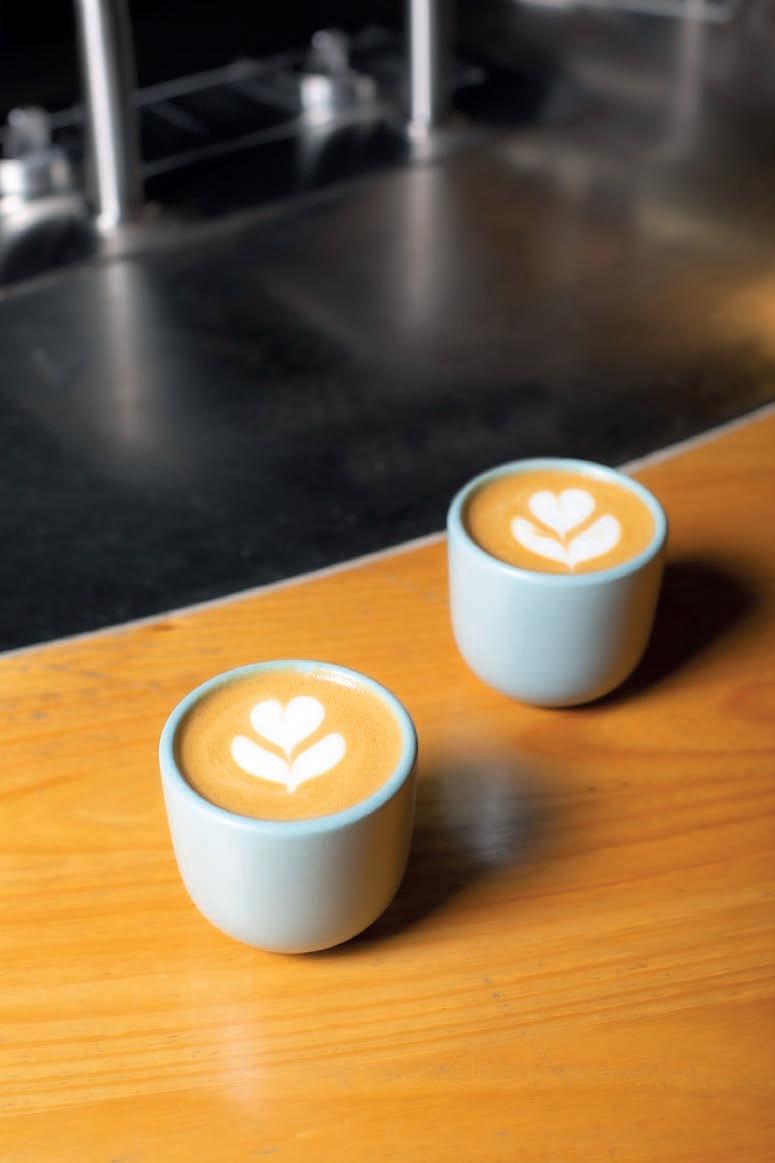
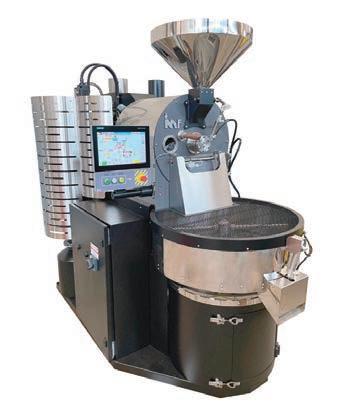
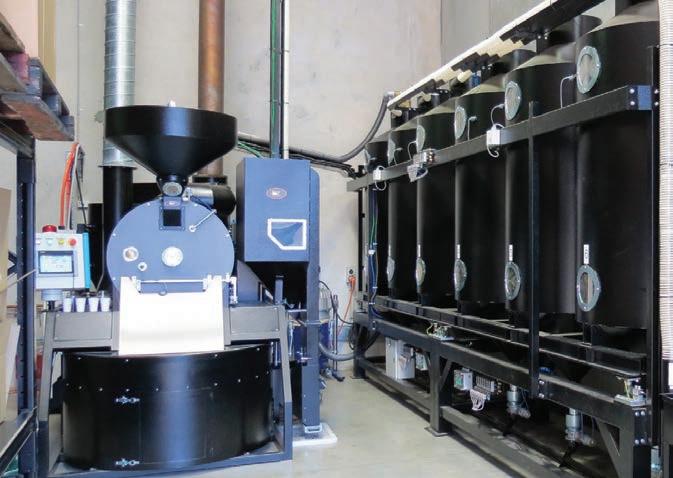
“We’re constantly challenging ourselves to be better. Being B Corp Certified helps us set a benchmark and pushes us to improve,” he says.
“It’s vital that we do our part and step up as an industry leader in Australia, to show that not only is it possible for larger businesses such as ours to obtain B Corp Certification, but that it’s affordable and accessible for all.”
For more information, visit nomadcoffeegroup.com.au
Roasters Exclusive VORTEX & EQUALIZER TECHNOLOGY for uniform roasting & consistency. WATCH THE VIDEO DEMONSTRATION Industrial Roasters - www.roastquip.com.au/video_ind.html Shop Roasters - http://roastquip.com.au/video_shop.html OVER 70 PLANTS SOLD IN AUSTRALIA & NZ RECIRCULATING HEAT TECHNOLOGY SAVES UP TO 47% IN GAS CONSUMPTION • LOW INSTALLATION COSTS - ARRIVES FULLY ASSEMBLED • • MODEM FITTED - ONLINE PLC SUPPORT WITHIN AUSTRALIA • • FULLY INTEGRATED SILOS & BLENDERS AVAILABLE • • 6KG,15KG,30KG,60KG,120KG, 240KG, 480KG MODELS • Complete DRUM roasting plant in ONE compact integrated unit. (roaster, afterburner, loader, destoner) ROASTQUIP PTY LTD 11 Fred St, Lilyfield (Sydney) NSW 2040 Contact: Will Notaras - sales engineer Ph: 0404-879-107 sales@roastquip.com.au www.roastquip.com.au Visit us at MICE Stand #C06 MADE IN ITALY IMF s.r.l. exclusive Australasian agent: • PRECISION ROASTING TO ONE DEGREE ACCURACY • NEW 15KG MODEL
Veneziano Coffee Roasters aims to source the highest quality coffees for its blends and seasonal microlots.
The MILKLAB Barista Battle is back!
This July, we’re hitting the road and kicking off the MILKLAB Barista Battle State Heats!
Compete against the best baristas in your area for the chance to represent your state at the finals held at the MILKLAB Stand at MICE in August.

Don’t miss out on this incredible opportunity to showcase your latte art skills and go up against MILKLAB barista representatives from across the globe for the chance to win a trip for two to Toronto Coffee Festival!
Spots are limited, secure your tickets now! milklabco.com/barista-battle

The missing piece
hen Scott Nightingale
Founded Flow telemetry software in 2018, he knew from the start that the grinder would be the “king pin” solution to so many challenges experienced in coffee making.
“Manual grinder adjustment is an absolute nightmare. I spent plenty of time on the coffee machine myself when I owned a café in New Zealand. I’d make lots of tiny little adjustments to the grinder all the time to stay on target because it was just so sensitive – we’re talking about changes to particle size in microns. It’s ever so slight but it matters. It slows down service and you play mental gymnastics trying to average extraction times in your head and figure out what direction and amount to change the grinder,” says Scott, a former software developer and Head of Innovation at Flow.
“If you’ve got any inconsistency in your process. If your machine is not operating right or you’re chasing uncontrolled variables such as thermal expansion in your grinder, you’re not going to consistently achieve your desired recipe output, so let’s start by measuring, then come back and solve the problems with objective data.”
Flow telemetry was designed to connect or “talk” with any commercial coffee machine on the market and understand
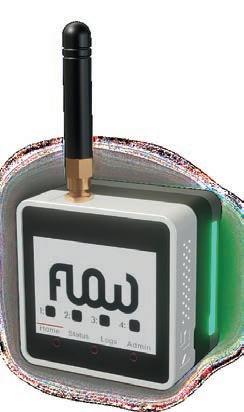
recipe execution. But the missing piece of the puzzle, Scott says, was connecting Flow to a grinder to control the grind setting and dry dose, two of the biggest contributors to shot time variance. That’s where the new Flow Grinder, powered by Fiorenzato, comes in.
Baristas simply set their preferred shot time (length of shot) and volume target via the Flow interface. The Flow Grinder then talks directly to the Flow Gateway, meaning it can work with any volumetric coffee machine, and monitors the coffee extraction in real-time.
The Flow Grinder uses data analysis from millions of captured espresso extractions in the Flow ‘cloud of data’ to determine if the grind size should be adjusted slightly finer or coarser according to the output of the espresso extraction. It updates the grinder continuously to make micro adjustments according to the set recipe parameters.
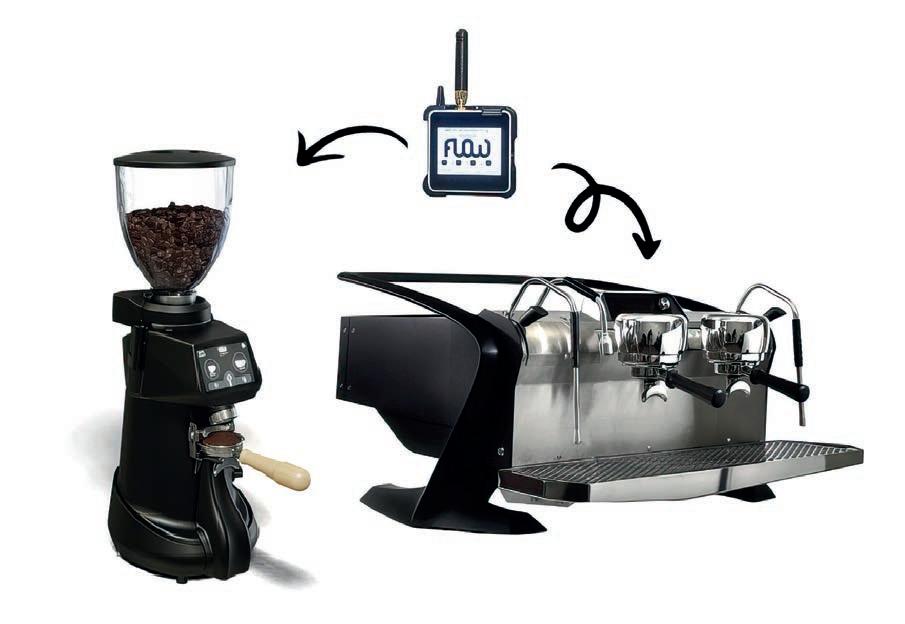
Fiorenzato’s F83 E XGi platform and the XGi grind-by-weight system manage the dose and particle size adjustment.
“There’s nothing the barista has to do other than push the button to start the grind. The grinder will adjust if it needs to, and all that’s left to do is keep making coffee,” Scott says.
“Our testing has shown that we can increase recipe execution by 10 per cent in an already high-performing café. The potential for improvement in lower performing sites is even higher. Once we start to see all the shots trending slightly too fast, for example, the grinder can be slightly adjusted to bring the grind back to the ideal target for your espresso recipe.
“We’re not defining the quality of the shot, what we measure, is consistency.”
Brett Bolwell, CEO of Barista Equip, formerly called Barista Technology Australia, is the distributor of Flow. He bought Flow and Fiorenzato together to
Flow is determined to release baristas of a simple time wasting and mundane task with the launch of the Flow grinder, powered by Fiorenzato, that eliminates the worry of adjusting the grinder ever again.
The Flow gateway monitors coffee extraction in real-time.
Flow telemetry now “talks” with the grinder to control the grind settings and dry dose.
beanscenemag.com.au 31 TECH PROFILE
collaborate and bring this new technology to life.
When Scott saw the grinder that Fiorenzato had developed with selfadjustment capabilities, he knew he could use the smarts of Flow technology to take it to the next level.
“We were really attracted to the way Fiorenzato approached their grinder. I think their grind-by-weight solution is really smart. Managing dose and grind setting is pivotal in the whole coffee production. The only thing missing, was that it needed the data we can provide to be self-adjusting,” Scott says.
“They’ve also built it for speed, which is essential. You can’t afford to slow the barista down while the grinder tares or weights the dose. The Fiorenzato doses based on the previous grind weight, and adjusts when required. This is robust, fast, and more than accurate enough.”
The Flow and Fioranzato development team worked together to create the selfadjusting grinder and four months later, had a prototype working better than they had anticipated.
Scott says the current formula is already outperforming skilled baristas, but he believes it can still be quicker and more accurate. Brands such as Pablo & Rusty’s and Altura in New Zealand are involved in a pilot program to test its functionality and consistency. The data learned from trials will further refine the algorithm to better identify statistical trends and predict changes required even earlier.
“On the first day of testing in a realworld café, the site achieved a higher met recipe score than we’d ever seen from their baristas manually managing the grinder,” Scott says. “This is a sophisticated site. It has some nice equipment with good training and experienced baristas, but the bottom line is that nobody wants to manage a grinder. It’s not very glamorous and it’s not the best part of making coffee.”
For a venue with high output and low skill, Scott says shot to shot variation can be so high that it’s impossible for the barista to know how to manage their grinder to maximise their recipe. Statistics can solve that problem by identifying the setting that will land the most shots in recipe.
Aside from increasing the accuracy of shots, the Flow Grinder will help reduce wasted shots – those thrown away that didn’t meet a high standard, or those served of poor quality that Scott says can “destroy” a customer’s experience and be even more costly.
“We want to free up a barista’s time so they don’t have to worry about the whole aspect of self-adjusting the grinder during service and focus on what they’re doing on the machine instead,” he says.
The Flow Grinder, powered by Fiorenzato, officially debuted at the Specialty Coffee
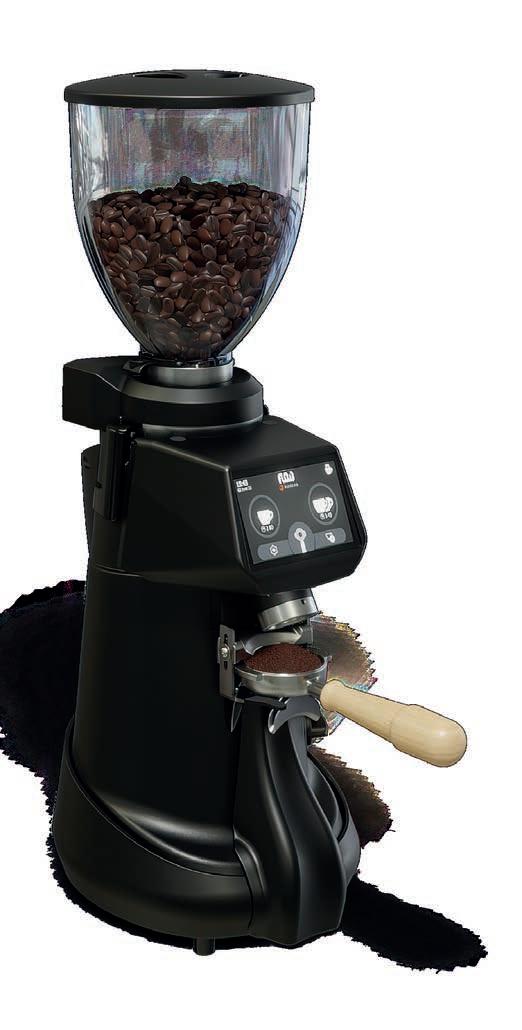
Expo in Portland in April. It will launch to market in Q3 2023.
Barista Equip’s Brett says the exciting thing about the software is its potential.
“Because it’s built an algorithm within it, with millions of coffee shots going through it, it has historical data. And because we have so much data, we are starting to build our own AI within Flow. We’re starting to forward read, predict, and make micro adjustments before it gets to the point where a barista has to throw a shot away,” he says.
“It will use the millions of shots in the database that the program knows about, and the algorithm and AI within the historical data, to forward read and make adjustments accordingly. That’s where we know it’s going be the smartest grind-by-weight autoadjusting grinder in the world.”
Brett adds that over time, gathered data on the freshness of coffee and its extraction output will help build an algorithm to identify how a shot behaves.
“As coffee ages, the bean density changes and it extracts differently. So, we’ll be able to start building algorithms where we know at two weeks or three weeks old, the output is going to change because the coffee’s older,” he says.
Scott hopes that one day, Flow will be
operational workflow in the not-so-distant future. The aim is to help improve overall efficiency and speed up service, including flow metres, solenoids, temperature readers, machine mainboards, milk steaming solutions, even automated tampers.
“It is a game changer. I think it’s really, really interesting and disruptive to see what this product can do for the coffee industry,” Scott says.

“There’s a lot of misconception about what are really important factors in making coffee and what are the normal things we’re doing that are undermining the outcome. I just want to bring those very tangible insights to the surface for the barista.
“I’m such a believer in objective feedback and data, and most people don’t really fully understand data yet. It’s not numbers and charts. That’s not at all what we’re about. What we are about is giving you that one little gem of information that’s going to make your game to the next level. My end goal is the same end goal as when I was a coffee drinker, and that’s just to be able to get amazing coffee all the time.”
For more information, visit baristatechnology.com.au
32 beanscenemag.com.au TECH PROFILE
Testing shows that recipe execution with the Flow Grinder can increase by 10 per cent in an already high-performing café.

Time to shine
he first ancient Olympic Games can be traced back to Olympia, Greece in 776 BC, and the first modern Olympics were held in Athens in 1986. This year, the Mediterranean city and capital of Greece will host another prominent battle when the World Barista Championship (WBC) takes place at World of Coffee Athens from 22 to 24 June.
The ancient Olympics celebrated extraordinary athletic ability and strength, with a horse for chariot racing and discus and javelin for track events. Barista’s competing in this year’s so called “Olympics of coffee” however, will have one important tool to rely on: the Barista Attitude
Tempesta Gara espresso machine.
“We’re excited to have the Tempesta multi-boiler machine used again by the world’s best baristas. The machine was designed to enhance the user experience and put the barista in the spotlight, and we’re confident the machine will do just that on the competition stage,” says Cinzia Pietrobon, Barista Attitude Brand Manager.
The Tempesta made its competition debut at the 2022 Melbourne International Coffee Expo, which hosted the WBC in September 2022. Now it’s time for the industry’s best baristas to show the world their talent using the WBC Qualified Espresso Machine for the second year.
“The Tempesta is with the barista from the start to the end of their routine. They must prepare their espresso shots with absolute accuracy. They must create a well textured milk-based beverage, and they have to let their creativity shine in the signature drink. All of these elements involve using the Tempesta to bring their coffees and routine to life. It’s a big responsibility but one we believe the Tempesta can handle with ease of operation,” Cinzia says.
Released in 2022, the Tempesta Gara is the result of Barista Attitude’s collaboration with baristas who asked the Italian manufacturer to develop a machine with the highest level of features that can make the biggest different to their extraction, such as the inclusion of a WST ridgeless competition filter.
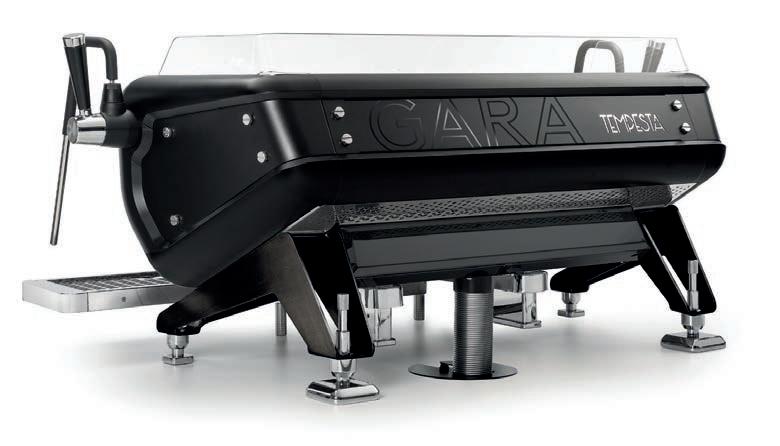
The Tempesta’s touchscreen interface is designed to make life easier for the barista, as well as arming them with knowledge and the power to control the brewing of the
coffee. Displays on the group head make it simple for operators to receive performance and extraction data in real-time. It includes information and the adjustability on preinfusion, pressure, flow and brewing and water temperature, extraction time, and the profile for each group.
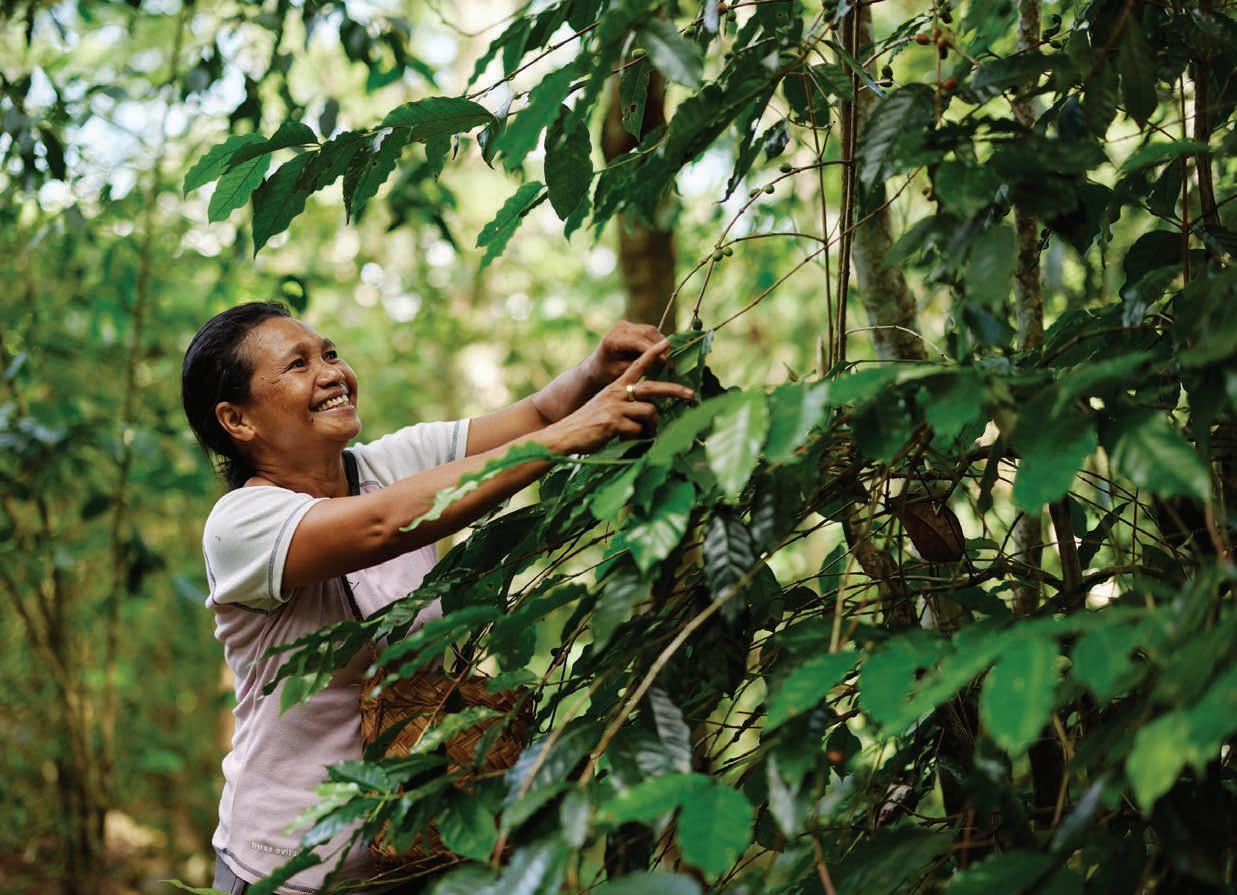
With the multi-boiler system, the operator can control pre-infusion and individual temperature settings on each group, to be changed with a precision of +/- 0.5.
Cinzia says active temperaturecontrolled group heads combine maximum precision in water delivery with high responsiveness to temperature adjustments. It takes less than five minutes to navigate up and down the full temperature spectrum allowed by WBC rules, all while complying with WBC’s strict temperature and pressure requirements.
“This is a feature I’m confident baristas around the world will be impressed with,” Cinzia says. “The Tempesta multi-boiler machine is designed to make any barista feel confident and empowered to make a quality espresso, whether it’s in a busy café environment or on the competition stage. But especially when it comes to using the Tempesta in the WBC – in what can be the most important routine of a barista’s career – they want confidence in their espresso machine, the possibility to experiment, but be in total control.”
Tempesta’s long steam arms support baristas to be more precise and customise milk froth for specific demand. It also allows them to move the steam wand to any position they desire, and control the
temperature and speed of steam via the lever for desired consistency and texture.
The machine features Super Dry technology without need for additional water. Cinzia says it’s also particularly useful for plant-based milks because they are not a mix of fat and protein, but are already full of water.
“The Tempesta machine is designed to optimise the milk frothing process for dairy and non-dairy milk. It has been shown to work exceptionally well with oat milk, as shown during previous WBCs, producing a delicious taste that rivals full-cream milk,” Cinzia says.
The automatic steam wand also has a temperature sensor and a compressor. The auto steamer pushes the steam directly into the milk jug, and the temperature sensor ensures that baristas can set different recipes and temperatures for the desired froth level.
Under the umbrella of CMA in Veneto, Italy, which has been manufacturing espresso machines since 1969, Cinzia says Barista Attitude embodies a wealth of technology and ergonomic consideration.
“The technology in Tempesta is at the highest level,” Cinzia says. “It has every feature a skilled or entry-level barista would need, now it’s up to the individual to use it as their tool for brewing excellence. We can’t wait to see what this year’s WBC baristas do in Athens with the world watching.”
For more information, visit www.barista-attitude.com or contact Australian distributor Coffee Works Express at www.cwe.com.aju
Lights. Camera. Action. The world’s best baristas are set to compete in the World Barista Championship, and Barista Attitude’s Tempesta multi-boiler machine is ready to ride the journey every step of the way.
34 beanscenemag.com.au TECH PROFILE
The Tempesta can control preinfusion and individual temperature settings with a precision of +/- 0.5.





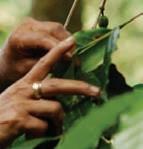










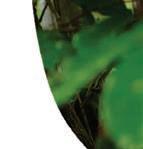






Co�fee is not sustainable unless the farmers are paid fairly.
fairtrade.org @fairtradeanz Choose Fairtrade.
Only then can they nurture the environment and plan for the future.

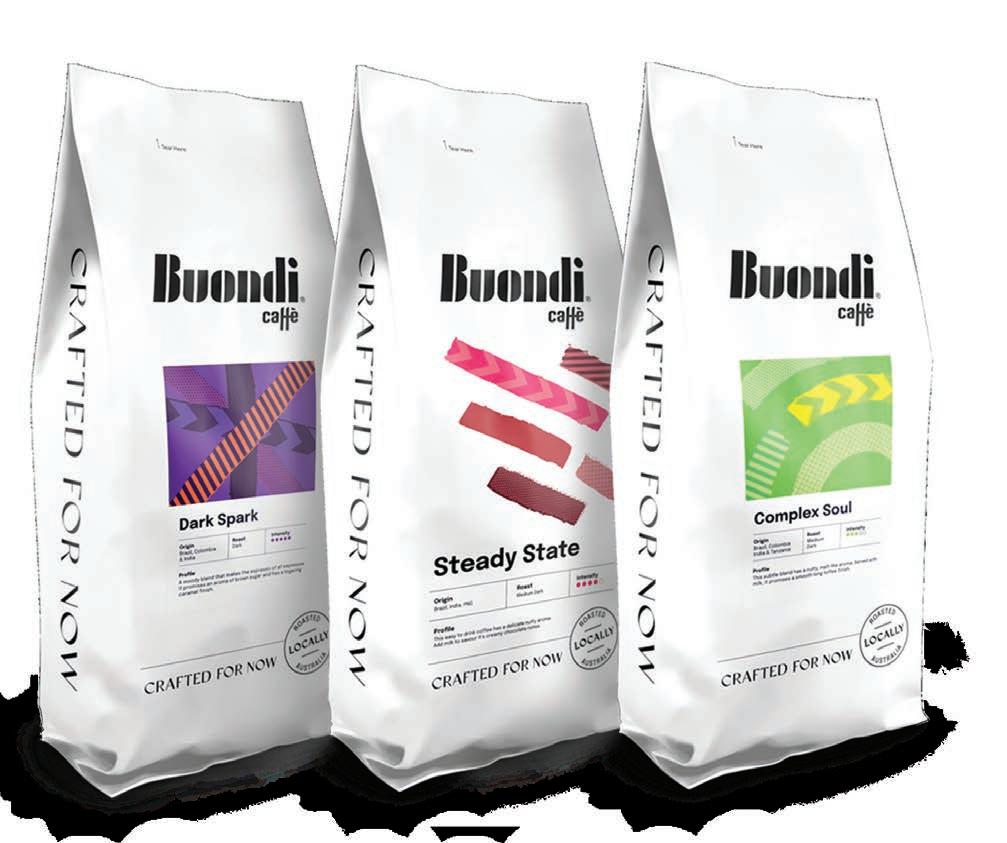
Take the pressure off
he last decade has seen an evolution in the development of coffee consumption in Australia. Hand-held coffee tampers are becoming a thing of the past, ready-to-drink coffee has been embraced beyond a sugary caffeine hit, and there’s more milk varieties on the shelf than one can count.
That’s where dedicated products like the Viper can assist. This innovative tool is an independent milk steaming device that provides baristas with greater flexibility and output through its ability to consistently texture milk with its own under bench boiler.
“This not only eliminates the need for another coffee machine on the bench, but by separating the steamer from the machine, it ensures that pressure is not being taken away from the coffee machine, thereby promising the perfect extraction. This also allows a café to use any single boiler heat exchange espresso machine,” says John Colangeli, Founder and Managing Director of Coffee Machines Technologies.
“It is designed for any business that demands the very best from its equipment and strives for success. The Viper milk steamer aims to add value to the coffee machine while saving baristas and businesses time and money.”
According to the company’s research, traditional coffee machines were not designed to produce the volume of milk-based coffees that are consumed in Australia. After closely studying deficiencies in workflow across hundreds of businesses, the Viper was born in 2012 from a desire to modernise the coffee making process.
“It has been apparent that the production of steamed milk is unable to keep up with the number of doses of coffee that are extracted. This causes a bottle neck in the workflow, at the same time making it very uncomfortable and inefficient for multiple people to work on a coffee machine at once,” says John.
The Viper’s official title, ‘Vapore integrato per ergazione rapida’ meaning ‘built-in steam for quick delivery’ in Italian, embraces the steamer’s ability to streamline workflow and increase efficiency.

“The Viper milk steamer allows cafés and its baristas to expand and optimise their workflow and helps them to continually keep up that high performance across both high- and low-volume stores,” John says.
Since Coffee Machines Technologies created the Viper, it has been patented and developed into different sizes to accommodate different businesses. “It is now a key piece of equipment in any successful coffee shop,” he says.
The Viper milk steamer is customisable with a variety of standard finishes and colours to match any venue’s brand or fit-out.
It won Best New Australian Made Product Award at Fine Foods Australia 2015, and has seen success in the wider market from large-scale quick-service restaurants to boutique coffee roasters including Chatime, Zarraffas, Gong Cha, and McDonalds.
“We didn’t expect to win the award. We entered because it was a new product that we were extremely proud of. We knew that we were up against some other really big products, so to achieve the award was a huge honour,” says Coffee Machine Technologies’ National Sales Manager Carmelo Corallo.
The reward for winning is a licence to use the Australian Made logo. The iconic green-and-gold kangaroo logo is Australia’s only registered country-of-origin certification trademark for the full range of genuine Australian products and produce.
“The Viper steamer is made in Victoria using all Australian-made components, right down to the packaging and badges. We didn’t outsource overseas manufacturers, we spent $80,000 to maintain the manufacturing and be in control of how the equipment was constructed,” says John.
It’s not just in Melbourne or Australia

Coffee Machine Technologies discusses the Australian designed Viper, an independent milk steaming device that aims to provide a better customer experience.
beanscenemag.com.au 37 TECH PROFILE
The Viper can consistently texture milk with its own under bench boiler.
that Viper has seen success. The product has excelled on the global arena where Coffee Machine Technologies currently exports to, including the United States, United Kingdom, United Arab Emirates, Singapore, Germany, New Zealand, Vietnam, and Canada.
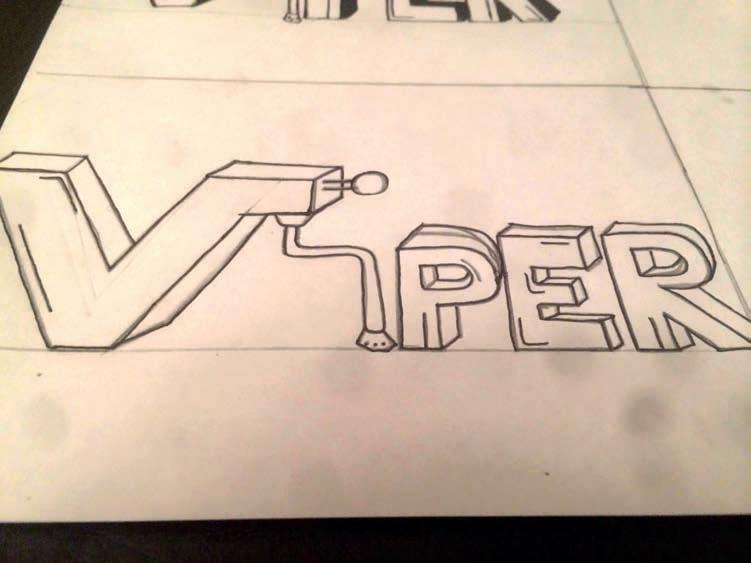
“We launched the Viper overseas at Host Milano in 2017, which allowed the product to gain international recognition. We were able to find distributors to resell the Viper all over the world,” Carmelo says.
“The coffee industry is heavily dominated by Italian manufacturing. We wanted to continue that collaboration with the Italian coffee community in a whole new way but with the same level of quality manufacturing. By creating something Australian-made and presenting it in Milan, we were turning the tables and bringing something new to the industry.”
The company has continued to develop innovative ideas and introduce new technologies to the market, creating more reliable and cost-effective solutions. This includes Australian designed Tech-Bar, an under-the-bench modular espresso machine which hit the market more than five years ago.
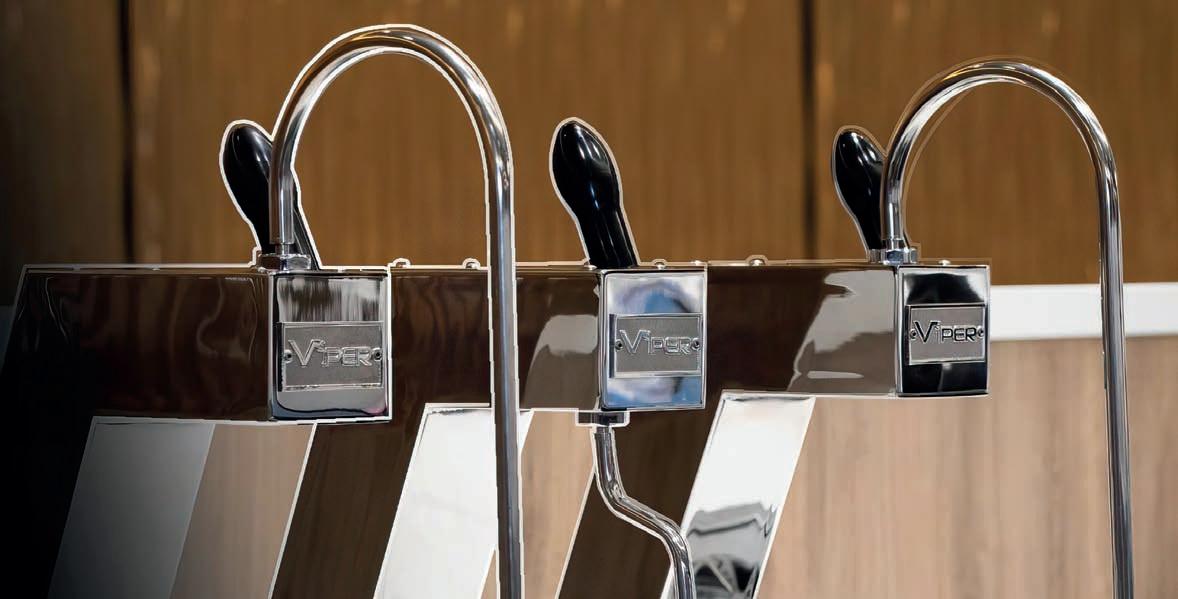
“We are a world industry leader and proud to be at the forefront of innovation in all types of coffee equipment,” says John.
“The global coffee community keeps a close eye on Australia, it’s a testing ground for many products. Australia’s reputation for appreciating specialty coffee means people are keen to support Australianmade products and be a part of that culture.”
Coffee Machine Technologies has built its reputation as one of Australia’s first,
independent service companies and today, is a leader in international and domestic markets for coffee equipment service, repairs, and sales.
The company ensures personalised service by understanding each of its customers’ requirements and offering preventative maintenance solutions.
“Nowadays, excellence lies in being able to manage changes and where possible anticipate it. Coffee Machine Technologies is made up of motivated people who are committed and passionate in offering outstanding solutions and exceeding expectations,” says John.
In future, Coffee Machine Technologies will continue to service nationally and

build its strength throughout New South Wales and Victoria, with coverage in the Mornington Peninsula, Geelong, Bellarine Peninsula, and the Melbourne CBD with its head office in Tullamarine.
The distributor is also shifting its focus to automation and developing more products to streamline workflow even further.
“We’re seeing the trend of automation ramp up, especially since the pandemic, due to lack of staff. We want to contribute to this space and increase people’s knowledge and skill levels. Stay tuned,” says Carmelo.
For more information, visit www.coffeemachinetechnologies.com.au
The Viper operates independently from the coffee machine, allowing for greater flexibility and an increased output.
38 beanscenemag.com.au TECH PROFILE
The first drawing of the Viper logo design.
Climate Initiatives Climate Initiatives
CARBON NEUTRAL
Happy Happy Foods is proud to announce that our products and our people are now completely carbon neutral!
CLIMATE STRIPES
By printing the Climate Stripes graph image and source information on the Happy Happy Soy Boy limited edition cartons we wanted to highlight the speed of climate change to our customers.

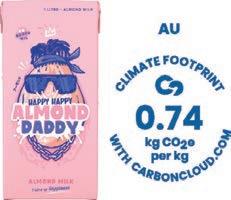
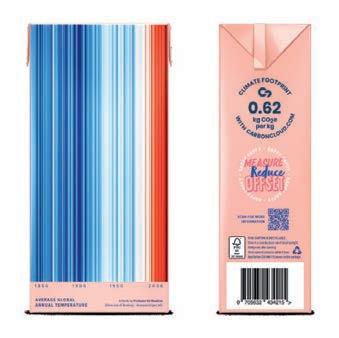
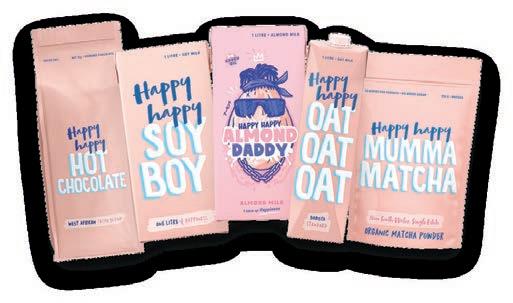
CLIMATE CLOCK
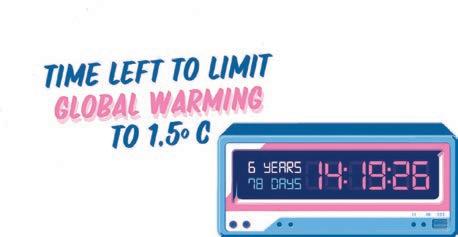
This clock reflects the critical window we have to limit global temperatures to 1.5 degrees above their pre‑industrial levels.
CLIMATE FOOTPRINT COMPARISONS
Every choice we make about the food we consume has a climate impact. We have engaged CarbonCloud, a Swedish climate footprint specialist, to calculate the seed to cup life cycle of all of our products.

WHAT? WOW! 14.5%
Wow! There is a lot of data out there. Footprints, impacts, emissions, it can all seem overwhelming. Where to start? Reduce your impact – Choose Happy!
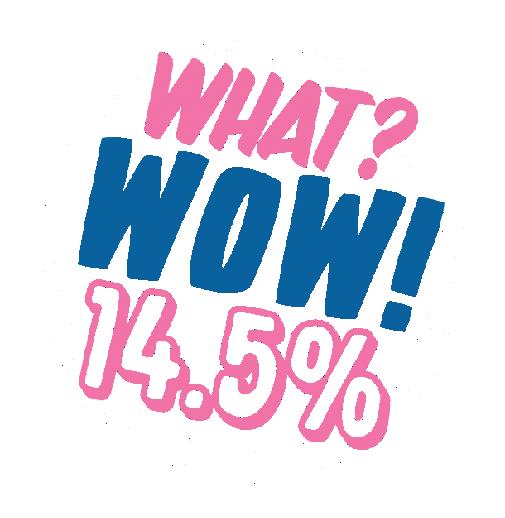
eatdrinkhappyhappy.com/climate-initiatives eatdrinkhappyhappy.com/climate-initiatives
Discover our
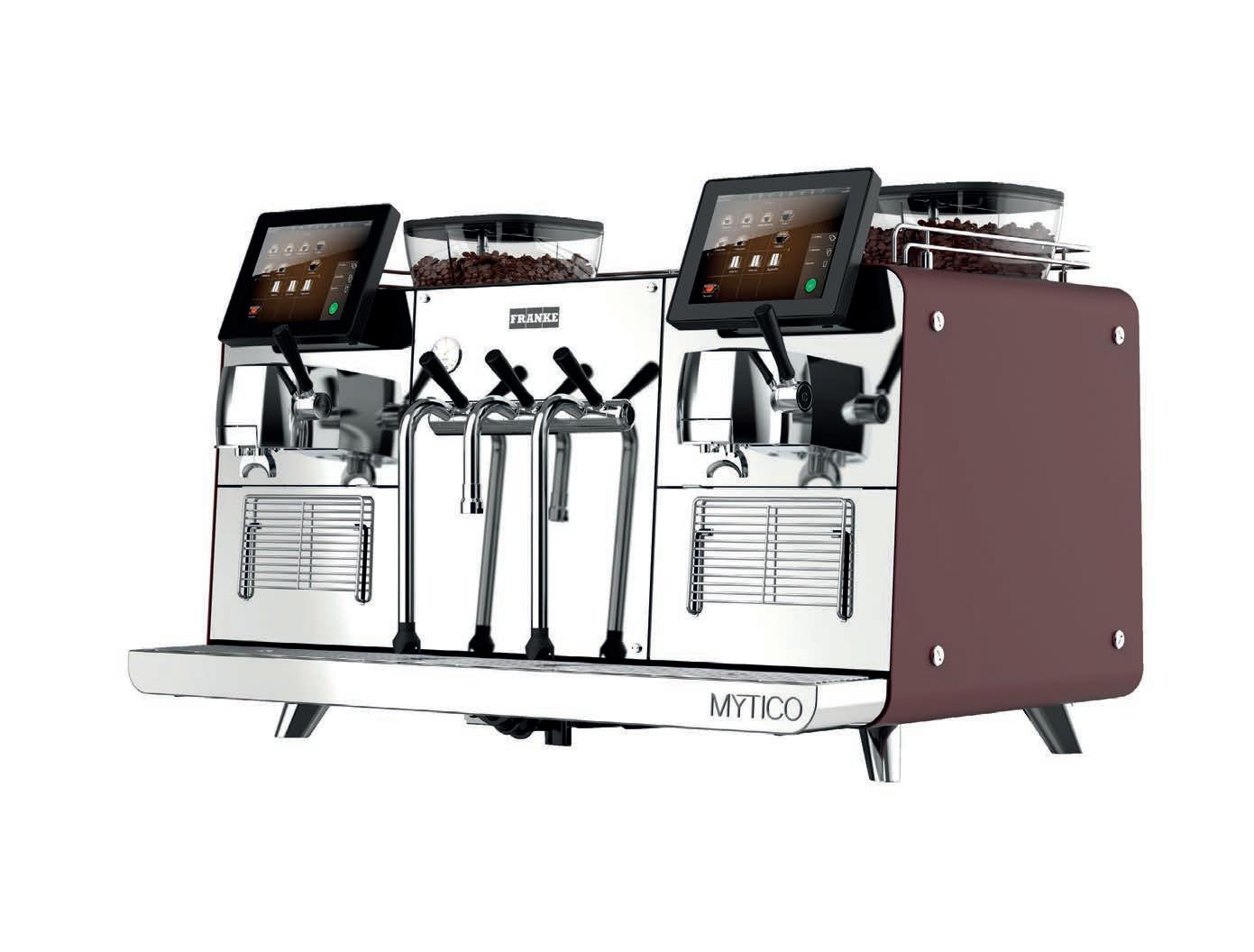
All about the grind
hen baristas take to the stage in this year’s World Brewers Cup (WBrC) in Athens, they’ll know their routine inside out, have their speech rehearsed, and be confident that the Mazzer ZM grinder –the official grinder sponsor this year’s WBrC – will be ready to perform with them. Just as competing baristas strive for excellence in their routine, Italian grinder manufacturer Mazzer feels the same way about delivering a product of the highest level.
“It starts from the high quality of the materials we choose, the accurate in-house creation of each metal component, the thoughtful process behind the design of our new products, not to mention endless quality tests. We look at our grinder as a promise made to a barista. We feel committed and excited at the same time [to share the stage with them],” says Luigi Mazzer, Vice President of Mazzer.
Mazzer was born in 1948 as a local company focused on Italian style espresso grinders. Over decades, its grown to serve a global community of different coffee cultures and brewing methods. Luigi says Mazzer’s sponsorship of this year’s WBrC competition will be an opportunity to showcase how the Mazzer ZM grinder can help baristas brew stunning filter coffees.
Luigi says this device embodies technological innovation and engineering craftmanship to make the grinding process more precise and easier for the barista.

In the last few months, Mazzer has released a set of tool steel 83-millimetre flat burrs into the ZM model to grant a more precise geometry with better planarity and parallelism, together with a longer lifespan. It’s also gives baristas the power of choice to use the burrs that best suit their needs.
“These burrs are specifically suited to guarantee the best grinding experience for different brewing methods, in terms of
particle size distribution and dimensional homogeneity of the coffee particles,” Luigi says. “Barista can choose the most suitable burrs ranging from the highest to the lowest fine production: k151B for espresso; k151I hybrid burrs for espresso and filter coffee; k151F for a good bodied filter coffee; or k151G for high clarity filter coffee (lower quantity of fines).”
In the ZM, the number featured on the display is the actual distance in microns (1/1000 millimetre) between the burrs. Luigi says such a small step allows almost infinite settings and consistent grinding for all brewing methods.
It’s most impressive feature, Luigi says, is its patented stepper-motor-operated digital grind adjustment system.
“In 1977, Mazzer patented the stepless system, which became a standard for the industry. Now, we have designed another revolutionary tool that allows baristas to adjust the distance between burrs with

Mazzer explains how it embraces 75 years of grinding expertise to continue making new models and adaptations to grinders that move with the evolving needs of baristas – on and off the stage.
The ZM features a patented stepper-motor-operated digital grind adjustment system.
beanscenemag.com.au 41 TECH PROFILE
micron-level precision, to have a clear, accurate and repeatable setting. Thanks to tight tolerance machining and strict quality controls, the ZM has no need for manual burr alignment. Its automatic True Zero calibration ensures that the grind settings are consistently identical from grinder to grinder, from cafè to cafè. This is something unique,” Luigi says.
He adds that the ZM’s low coffee retention (under 0.45 grams) and the possibility to record up to 20 grinding positions for quick recipe recall, also allows baristas to switch seamlessly among different origins and brewing methods.
The ZM double fan cooling system with electronic control and the 900 revolutions per minute (at 50 hertz) is designed to respect the beans preserving flavour and taste compounds.
The ZM is easy to maintain, with the electronic flipping display allowing quick access to the grinding chamber for cleaning and burr replacement.
The ZM model was born in 1958, first as an “old grocery” vertical-burr shop grinder.
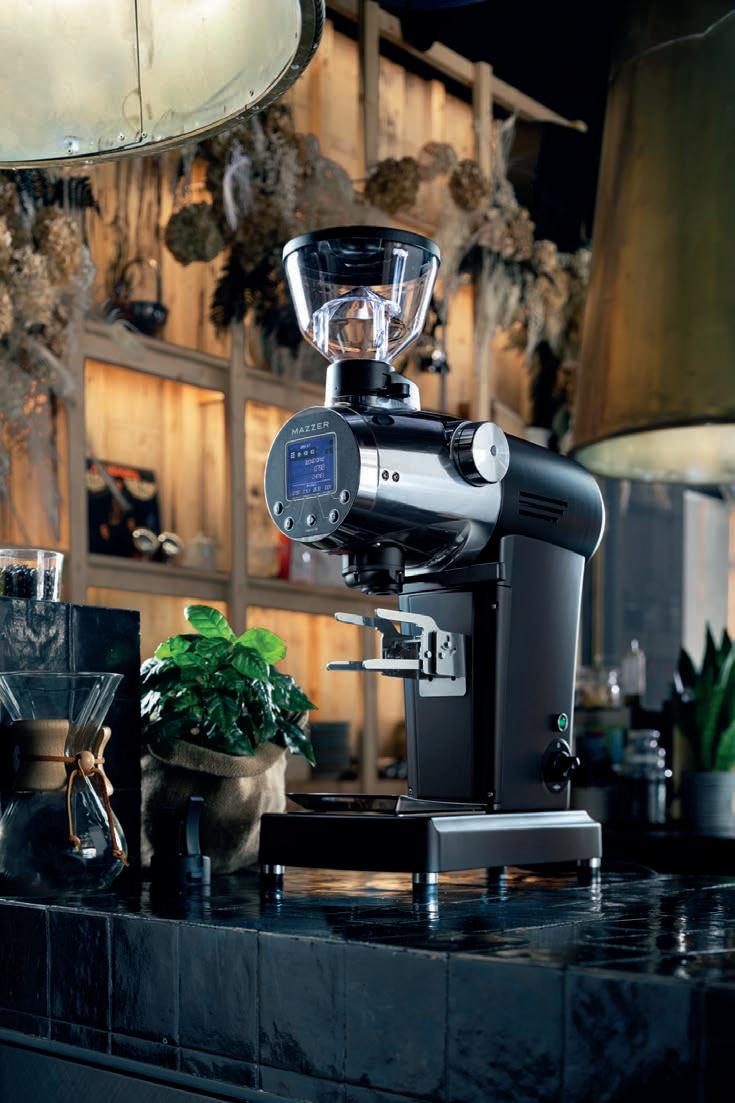
“While sharing the same name of ZM and the same attention to aesthetics, this grinder still embraces our 60 years of technological advancement,” Luigi says.
“The old ZM was an inspiration for our engineers who transformed it into a modern grinder while keeping its soft lines and vintage design. It’s a tribute to those who made Mazzer history with commitment and hard work.”
The new ZM version released in 2015 was a traditional mechanical grinder featuring low retention and consistent output.
In 2017, Mazzer decided to keep its vertical-burr design and add a digital motor-operated control to guarantee utmost precision and consistency. The digital ZM can be used for espresso and filter, but at the beginning, baristas had to use different sets of burrs. The only option was to collect coffee using the lockable canister or the bag holder.
In 2022, ZM Plus introduced an important upgrade for espresso users: a chute with lever and a multi-adjustable portafilter holder. It allows barista to grind hands-free and centre the flow of grinds directly into the basket without clumping or static charge in the ground coffee, nor the barista having to transfer coffee from the canister.
“It is the one and only commercial single dose grinder which grinds straight into an espresso filter with no spillage,” Luigi says.
If baristas want to switch to filter coffee, they can simply fold the portafilter holder and substitute the chute with the fast lock canister to collect ground coffee.
ZM plus also features the Mazzer Grind Flow Control (GFC) system, which Luigi says is Mazzer’s answer to four main issues.
“It reduces the static charge which causes the coffee powder on tray and counter, prevents the clumping, improves the dose consistency, and allows ease of cleaning. The system dynamically responds to the coffee grinds flow with a superior control level along the entire chute,” Luigi says.
“With the recent release of the ZM hybrid burrs (k151I) to be used both for filter and espresso, the grinder is even more flexible. [Thanks to] its extremely low retention, you can use it for any method, passing from one origin to another without contaminations of coffee.”
The target market for the ZM Plus are espresso specialists looking to offer a wide range of coffee tasting opportunities in their café, and flexibility in offering multiple beans and extraction methods.
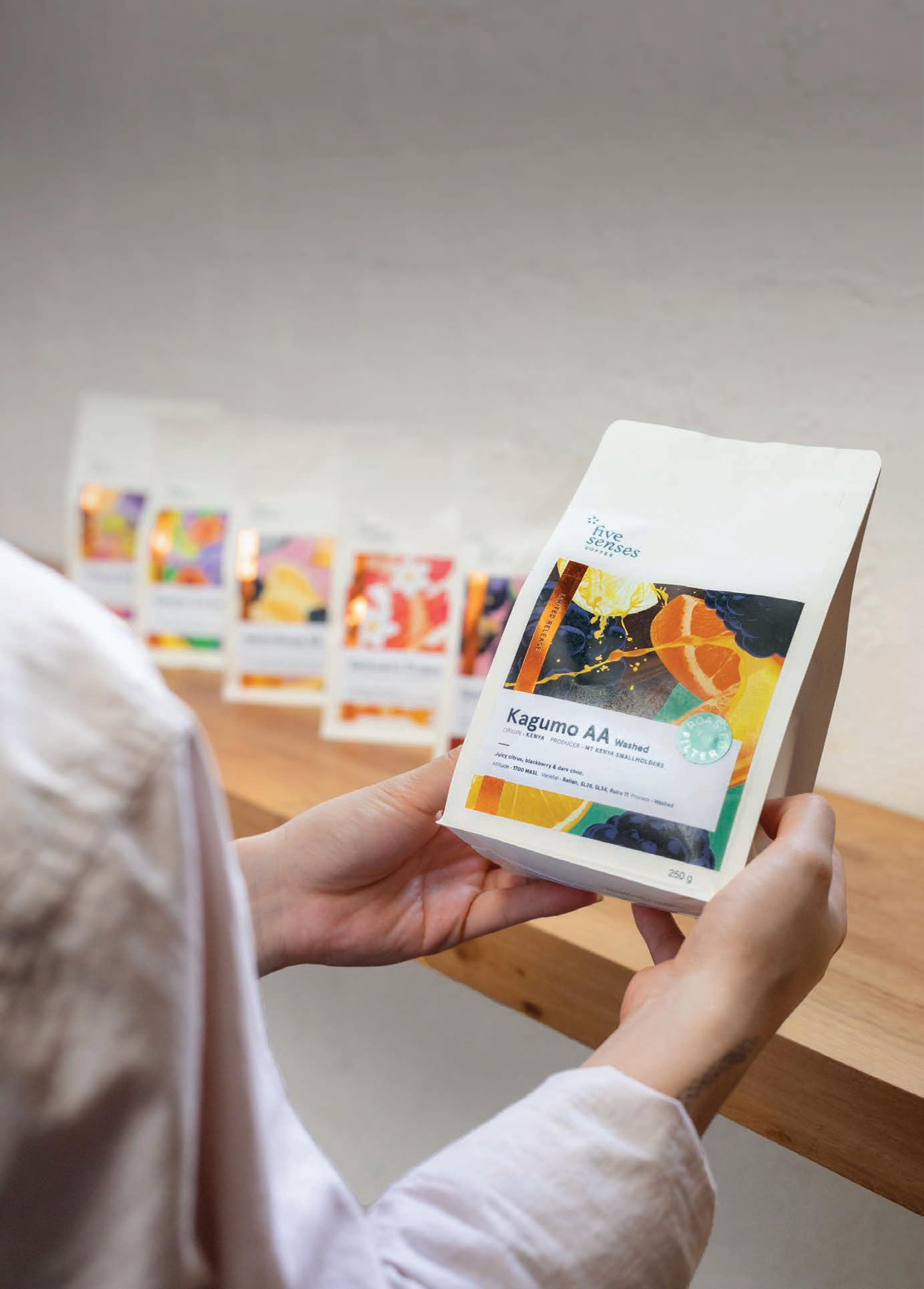
“Having just this grinder on the counter enables baristas to quickly serve customised
coffee beverages to demanding customers, while purity and clarity of taste in every bean are preserved, as ZM Plus retains no grinds,” Luigi says.
Whether it’s a competition barista or an experienced café looking to use the ZM or ZM Plus, Luigi says the core purpose of the grinder is always the same: to help them get the most out of their coffee beans.
“Quality in the cup is the first requirement but it’s not enough,” he says. “They need equipment for consistent results, precise, easy to use and to maintain. Less time spent in taking care of the grinder means more time to take care of the customer. We see technology as a way to help baristas reach the maximum quality with the minimum effort.”
For more information, visit www.cwe.com.au
42 beanscenemag.com.au TECH PROFILE
The ZM Plus single dose grinder grinds straight into an espresso filter with no spillage.


&
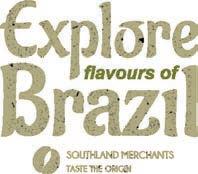
Your sustainable connection among producers and conscious consumers +61 (0) 409 007 565 info@southlandmerchants.com.au southlandmerchants Let's talk about co ee
Triple threat
Barista Group General Manager Joe Chalhoub unveils the latest milk foaming technology from Übermilk, a device capable of texturing three different milks at once.
names in contention – yet Barista
Group General Manager Joe Chalhoub says the new countertop milk frothing device from German manufacturer Übermilk is preparing to take the Australian specialty coffee market by storm, due to its ability to froth three different milks at once.

“The Multimilk is a modular milk foam and dispensing system, meaning we’re able to modify the product specifications depending on a customer’s needs,” says Joe.
“Multimilk automates the milk frothing process, delivering consistent, ready-to-pour hot and cold micro foamed milks at the barista’s desired temperature. Compact and customisable, the system looks minimalistic
predecessor – the Übermilk automatic nanofoamer – is known for reliability and delivering “perfect texturised milk at the push of a button,” he was receiving requests from consumers for a machine with greater flexibility, capable of producing more than one milk really well.
“Übermilk heard this feedback loud and clear. The Multimilk is a direct response to this advice with its ability to produce multiple milk options at once, proving that the German manufacturer creates equipment with customer needs in mind,” Joe says.
Two or three hoses, depending on the option selected, directly connect the unit to milk sitting in the refrigerator, reducing the
by the pump and then controlled by a proportional solenoid valve to inject the desired amount of air and create a silky milk foam. It then runs through a high-power heater and filter, resulting in micro foamed milks pouring out of its nozzles.
“Once you dial it in, Multimilk will produce consistent milk all day, all week,” Joe says. “This reduces wastage at a café because you’re always getting exactly the amount you need. Not to mention the Multimilk will save café operators plenty of money and addresses the staff shortage issues the industry is currently facing.”
While the Multimilk is compatible with all dairy alternative options, Joe says no cross-contamination occurs between
beanscenemag.com.au 45 TECH PROFILE
The Multimilk is a modular milk foam and dispensing system.
the milk source and electrical inlet and outlet, as the milk frothing device has three dedicated outlets for three different milk types. The machine will also be Hazard Analysis Critical Control Point (HACCP) approved.
“Many other machines only have one outlet with a rinsing system, which still causes cross-contamination to occur, and wastage from flushing milk through the circuits. With three dedicated outlets, Multimilk offers hygienic and allergyfriendly milk frothing from the first to the last cup,” Joe says.
“Multimilk also has a dispense function for non-foam beverages, such as cold milk to make a milkshake or hot milk without foam for a hot chocolate or tea. This technology is derived from the previous Übermilk model, guaranteeing customers the same reliability.”
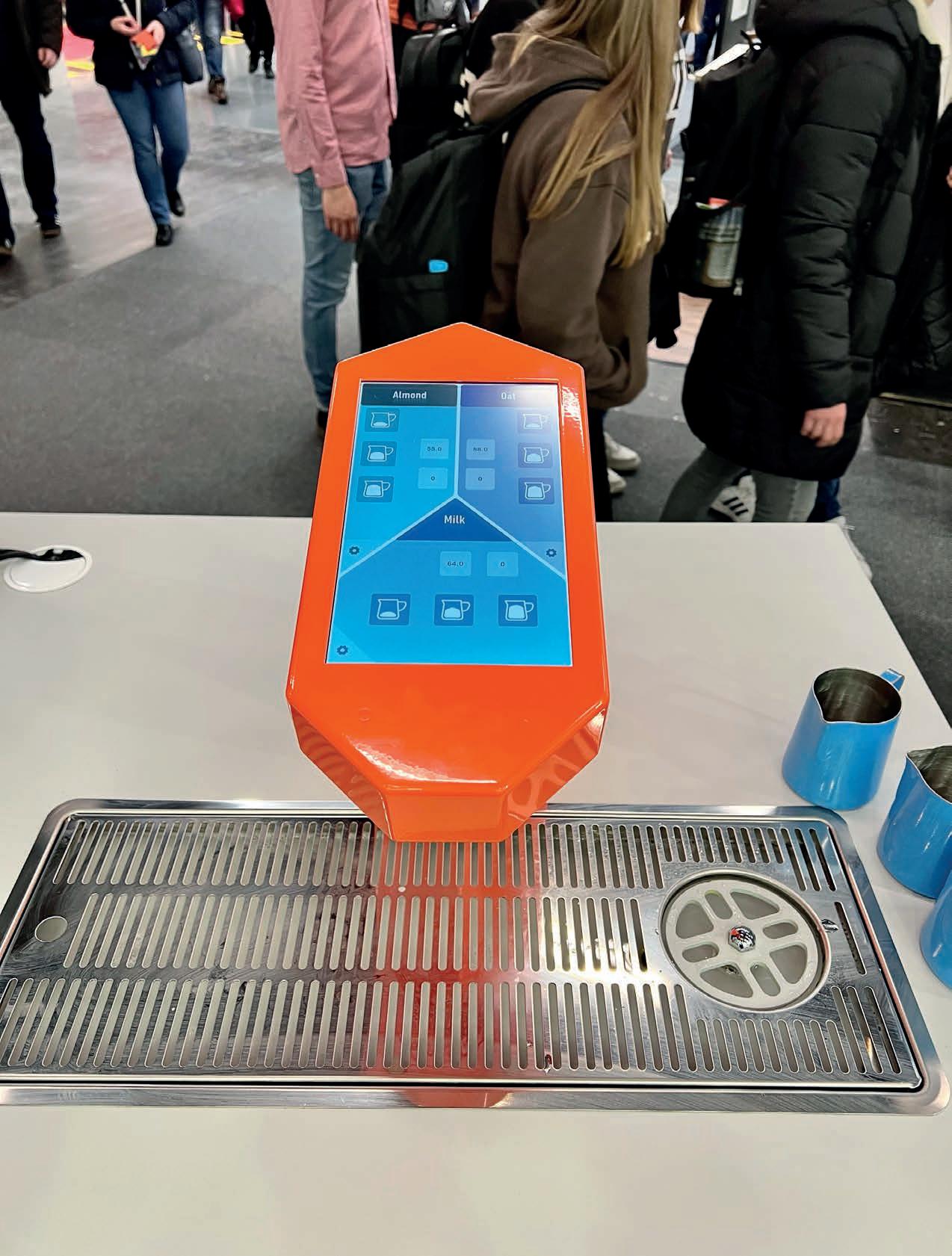
Joe says Barista Group saw slow and steady international growth of the Übermilk in its first few years, which rocketed towards the end of 2018 after it the reached Australian shores.
“The first shipment of Übermilk landed in 2017, but we didn’t start rolling it out until mid-2018. Even then, it was only limited to a few people, but that helped spread the word and created awareness of the product, which helped things really take off,” Joe says.
“A lot of people were sceptical about the Übermilk at first. Milk is tough to handle properly, and people can be hesitant when it comes to automation, but the technology was way ahead of its time. The reason it connected with everyone was that it delivered the quality, consistency, reliability, and efficiency every café or organisation needs.”
Joe says Multimilk improves on this concept of workflow speed and efficiency without compromising coffee quality.
“By the time you grab your milk bottle, pour it in a jug, and steam it, to put it in coffee terms, it’s like you’re dosing, tamping, and extracting it. Essentially, you’re spending the time it would take to make a second cup of coffee,” he says. “This is about 20 seconds per cup, which adds up over a day. Whereas Multimilk does all this at the touch of a button and frees up the barista to focus on customer service or café operations.
“Its ease of use and facilitation of greater barista-customer interaction makes it nearly a no-brainer for high volume cafés to implement into their workflow.”
Joe adds that Multimilk’s user interface is easy to navigate, allowing baristas to find whichever option they need, whether that be dine-in or takeaway, latte or cappuccino, and hot or cold milk. However, Multimilk’s benefits go beyond its operator to the owner of the café.
with trusted partners over the last few months and received rave reviews. We’re super excited to get this product out in the market and show people what automation of the future looks like,” Joe says.
With every innovative product that Barista Group imports to Australia, Joe asks himself one simple question: “Would I use it in my own café?”
“It all comes down to streamlining
Multimilk makes them easier to produce consistently, while freeing up the barista to focus on their espresso or latte art,” Joe says.
“The goal of Barista Group is to introduce more products like Multimilk that improve workflow while saving our customers precious time and money.”
For more information, visit www.baristagroup.com.au
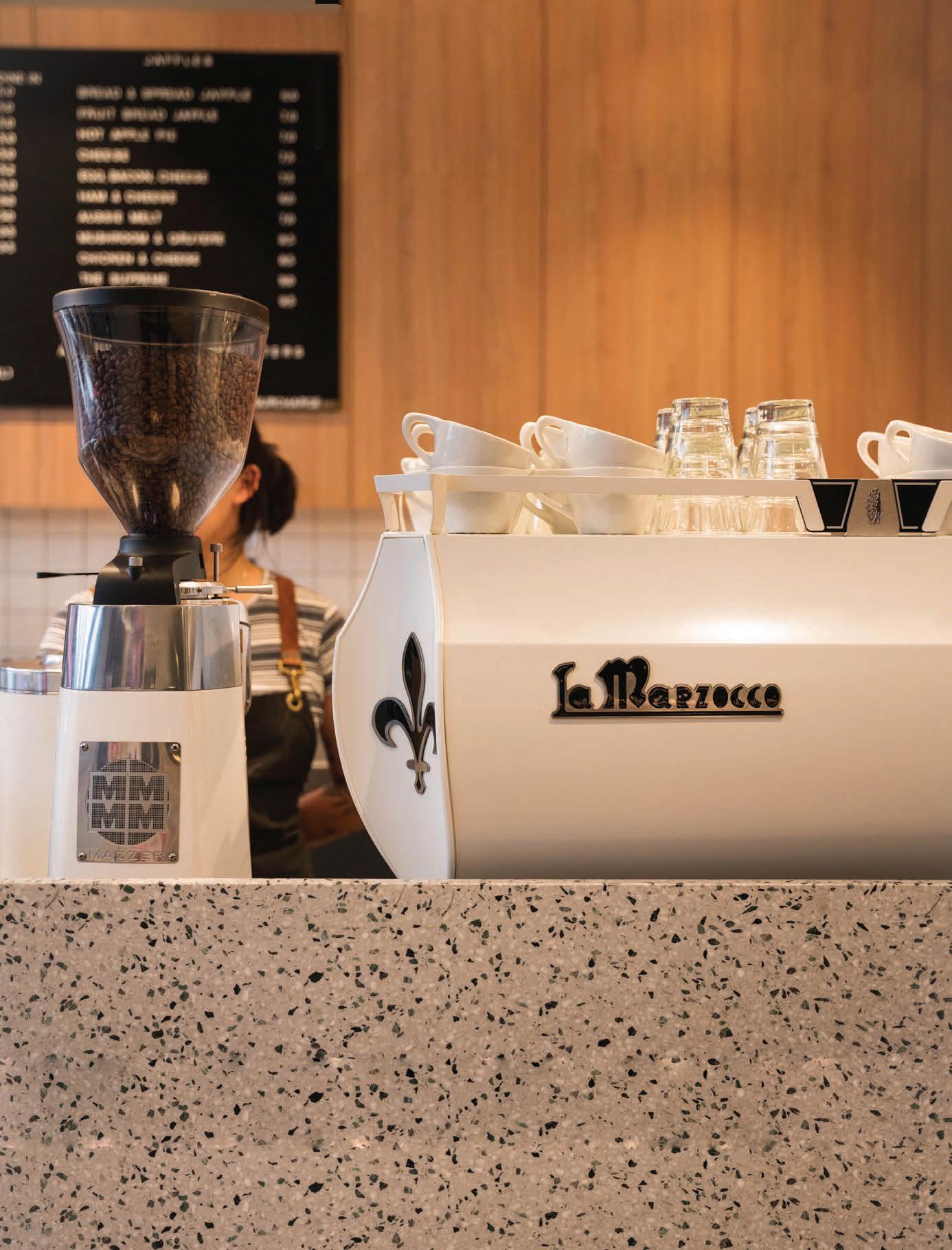
46 beanscenemag.com.au TECH PROFILE
The touchscreen allows users to choose three different milk configurations.
We look forward to working with you.



Become an Axil Coffee wholesaler!
Powers combined
Franke Coffee Systems is launching a new product category and automatic machine line that is intended to provide greater efficiency and flexibility to the Australian specialty coffee market.
hen coffee machine manufacturer Franke Coffee Systems unveiled its new product category, BeyondTraditional, at German hospitality expo Internorga 2023, Franke Coffee Systems Head of Global Marketing Jessica Zoehner was blown away by the positive response it received.
“BeyondTraditional combines existing concepts and technologies with new trends and demands and brings to life solutions that go beyond industry standards. The European coffee market has responded very well to this concept,” says Jessica.
The first result of this new professional coffee making approach, Jessica says, is a new product line called Mytico.

“The pioneering new coffee line is equipped with advanced technology that produces consistent, barista-grade coffee, while enhancing any location with its unique Italian design. Mytico’s ease of use and reduced height provides space for the barista to converse with the customer while easily producing the perfect beverage. This creates the unforgettable coffee moment that keeps customers coming back for more,” she says.
Franke Coffee Systems Business Development Director Oceania, David Downing, says the first two products in the product line, Mytico Due and Mytico Vario, both include a large variability of beverage options on two eight-inch touch screens. Mytico Due has a daily capacity output of 300 cups, while Mytico Vario contains a higher daily capacity output of 360 cups.
“Each machine features two coffee modules, allowing two baristas to operate the unit at the same time. Mytico maximises efficiency and effectiveness for a more streamlined service by requiring less effort and training, and their small form fits comfortably on any café countertop at an appropriate height for greater client connection,” says David.

“Both machines include our Barista Modules, which come with a traditional Franke S1 steam wand and a Autosteam Pro S3 steam wand that automatically froths milk to an ideal consistency, ensuring barista-made quality with every coffee.”
The patented Franke iQFlow intelligent coffee extraction technology also ensures a consistent, high-quality coffee in each cup.
multiple flavour profiles and efficiently extracts the full aroma, flavour, and body from every roasted coffee bean, revolutionising the traditional extraction concept,” David says.
Mytico Vario features a simple configuration, automated operation, and an integrated milk system that stores and prepares separate products. Dairy and dairy alternatives can be textured at the same time on both the left and right coffee module.
“The integrated milk system opens up an additional beverage range, while the steam wand allows even more variety with milk or plant-based alternatives,” David says. “Franke’s FoamMaster technology provides the unique ability to pre-set a custom foam profile for each beverage and milk selection, allowing your customers to enjoy baristastyle coffee at the touch of a button.”
BeyondTraditional and its Mytico line may have already received encouraging feedback from the Europe and Middle East region, but David says the team is eager for the new equipment to make its debut Down Under.
The Mytico line will officially launch in Australia at the 2023 Melbourne International Coffee Expo (MICE), taking place from 17 to 19 August at the Melbourne Convention and Exhibition Centre.
“MICE is recognised as the largest dedicated coffee show in the Southern Hemisphere, where the coffee industry in Australia comes together in one place, at one time. Therefore, it is clear for us that it would
line to the Australian market,” says David. This will be the first time Franke Coffee Systems attends MICE with its own booth.
“We are looking forward to showcasing the Mytico line at booth number C02, as well as to connect with new and existing Australian customers. With so much of the coffee community brought together at MICE, we are anticipating the opportunities to generate businesses, to start partnerships, and continue to network with the Australian coffee community,” David says.
He adds that it’s important for Franke Coffee Systems to penetrate the Australian market due to its importance in the coffee world and emphasis on high-quality coffee.
“Firstly, the Australian coffee market is projected to grow continuously. Secondly, we understand coffee in Australia is not about quantity but quality. Consumers are looking for consistent, superior coffee experiences in every location out of home and choose their favourite coffee shops based on their offering of coffee specialities and interior design,” says David.
Aside from MICE, Head of Global Marketing Jessica says Franke Coffee Systems has exciting things planned for the year ahead.
“Franke continuously strives to reflect the trends and latest technologies in their coffee solutions, and more novelties are to follow. Stay tuned,” she says.
For more information, visit mytico.franke.coffee
48 beanscenemag.com.au TECH PROFILE
Franke Coffee Systems’ Mytico line is designed to deliver a consistent cup of coffee every time.

Time-honoured tradition
rom the aroma of a freshly brewed coffee to the steamy warmth of a cup, creating your own coffee can be a sensory and self-reflective moment of self-care before the day unfolds.
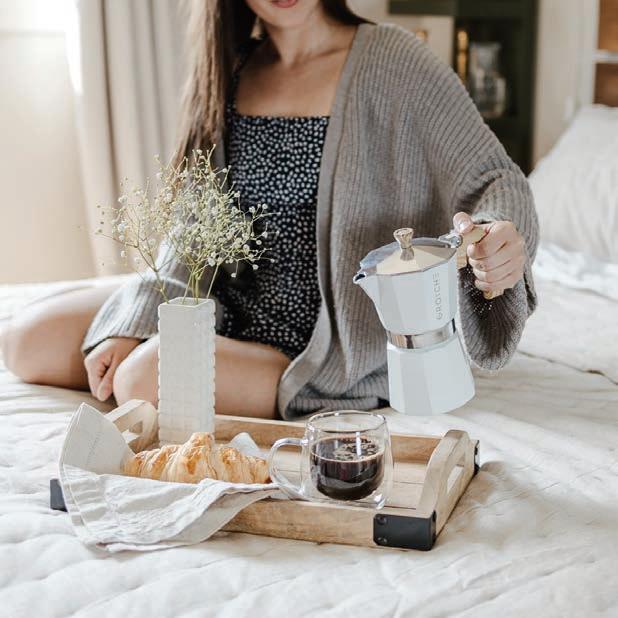
According to GROSCHE International CEO Helmi Ansari, there’s no coffeemaking tool as traditionally aligned as the Italian-made, pressure-driven moka pot.
“Australian coffee drinkers have always loved crafting coffee. During the pandemic, many customers who weren’t going to local coffee shops and their usual drive-thrus sought out other ways to make delicious coffee at home. Throughout this process, many of them learnt about and discovered moka pots as an easy way to brew delicious stove top espresso in the comfort of their own home,” says Helmi.
“Moka pots are nearly a century-old way to make coffee. They make a rich and flavourful cup in three to five minutes right on your stovetop. This is called moka coffee and is recognised for the chocolatey flavour notes that it highlights in your coffee beans of choice.”
Its method is relatively straightforward. Fill the bottom chamber with water, add fine-ground coffee, heat the pot on a stovetop, and slowly percolate a bold coffee that sits somewhere between espresso and drip coffee. Today, ‘moka pot’ might refer to the original, beloved product, or the entirely new category of similar brewers with a modern take on the traditional style of coffee making.
GROSCHE is just one brand that has iterated on the style with its Milano Stovetop Espresso Maker. While the form changes, Helmi says this product preserves
the time-honoured spirit and simplicity of the technology.
“The GROSCHE Milano Series is a top seller everywhere it goes. GROSCHE Milano moka pots are recognised for their quality, design, and style. The handle of the Milano moka coffee maker is soft to touch and features a burn guard to protect your fingers from accidentally touching a hot pot. And, as each pot is a pressure vessel and should be handled with care, we only use Italian safety relief valves,” Helmi says.
“We have classic aluminium moka pots, the new Milano Stone premium line, and Milano Steel, an all stainless steel version for induction stovetops made for camping and the outdoors.”
The profits made from the sales of all GROSCHE products are used to fund the GROSCHE Safe Water Project.
“The Safe Water Project gives community members access to safe drinking water by installing Biosand water filters in remote and poor locations. The project currently impacts communities in South Sudan, Uganda, Malawi, India,
Pakistan, and the Philippines. Every GROSCHE product gives back more than 50 days of safe water to a person in need,” says Helmi.
GROSCHE Moka pots have more than 20,000 five-star reviews from its many customers worldwide. The brand distributes to North America, South America, Japan, South Korea, France, the Middle East, and Australia, where it’s distribution partner Coffee Tools Distributing is located.
“As customers look for new ways to prepare their coffee that they may not be familiar with, moka pots are an essential tool in their home-brew toolkit. GROSCHE moka pots are a quality- and design-forward way to make delicious coffee at home with a look that will complement their kitchen design and style,” says Company Director Curtis Arnold.
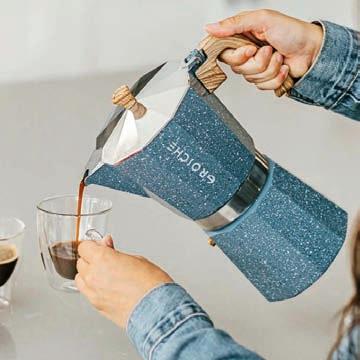
“You don’t have to spend hundreds or thousands of dollars to make delicious craft coffee. Moka pots are easy to use, clean, and maintain, and last a long time. The coffee they make is strong and delicious, what’s not to love?”
Helmi says Coffee Tools Distributing’s Curtis is a true expert in the coffee industry and is well respected as a importer of quality coffee gear for coffee retailers.

“We are thrilled to partner with them not only for that reason, but also because they give back via [international organisation] 1% for the Planet. This ethos of giving back is something that has always really resonated with both companies and makes this an ideal partnership,” he says.
For more information, visit www.coffeetools.supply and www.grosche.ca
Coffee Tools Distributing explains the history behind moka pots and why they’re still a mainstay in the specialty coffee scene.
The Grosche Milano moka pots are made from durable, food-safe aluminium.
50 beanscenemag.com.au INDUSTRY PROFILE
The new Milano Stone premium line comes in four different sizes and colours.

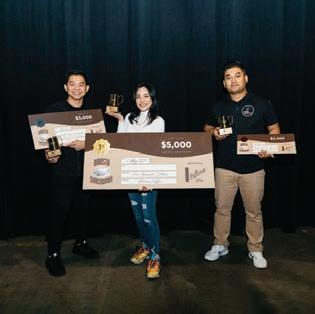
Congratulations to the winners $ 5K FIRST Rawirat Techasitthanet $ 3K SECOND Enzen $ 2K THIRD Ashik Shrestha
The Alternative launched their first series of podcasts, celebrating all the women in the industry from roasters to baristas. We spoke to women in coffee who are breaking barriers, creating change, and shaping the future of the industry – and all whilst having fun doing so.
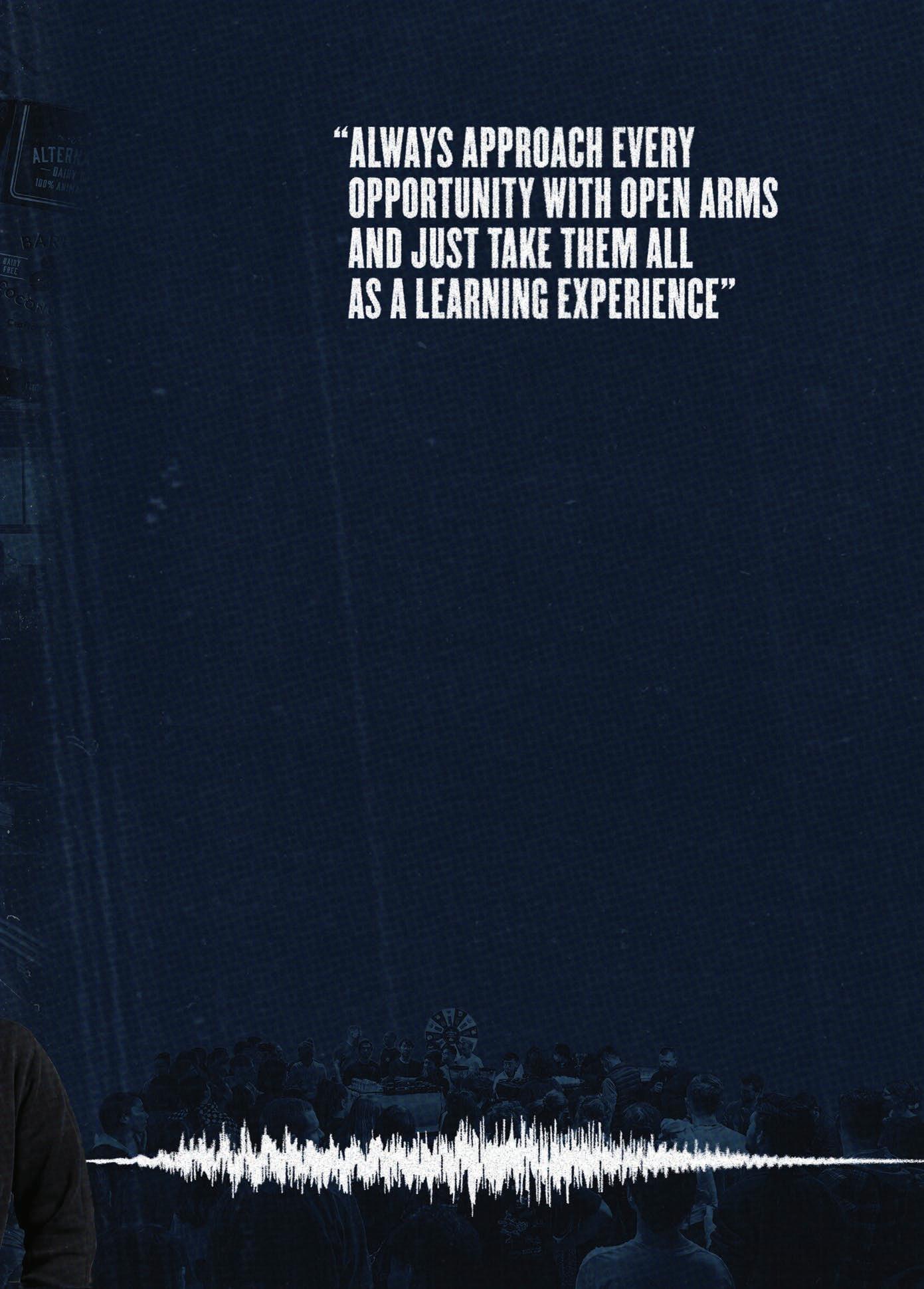
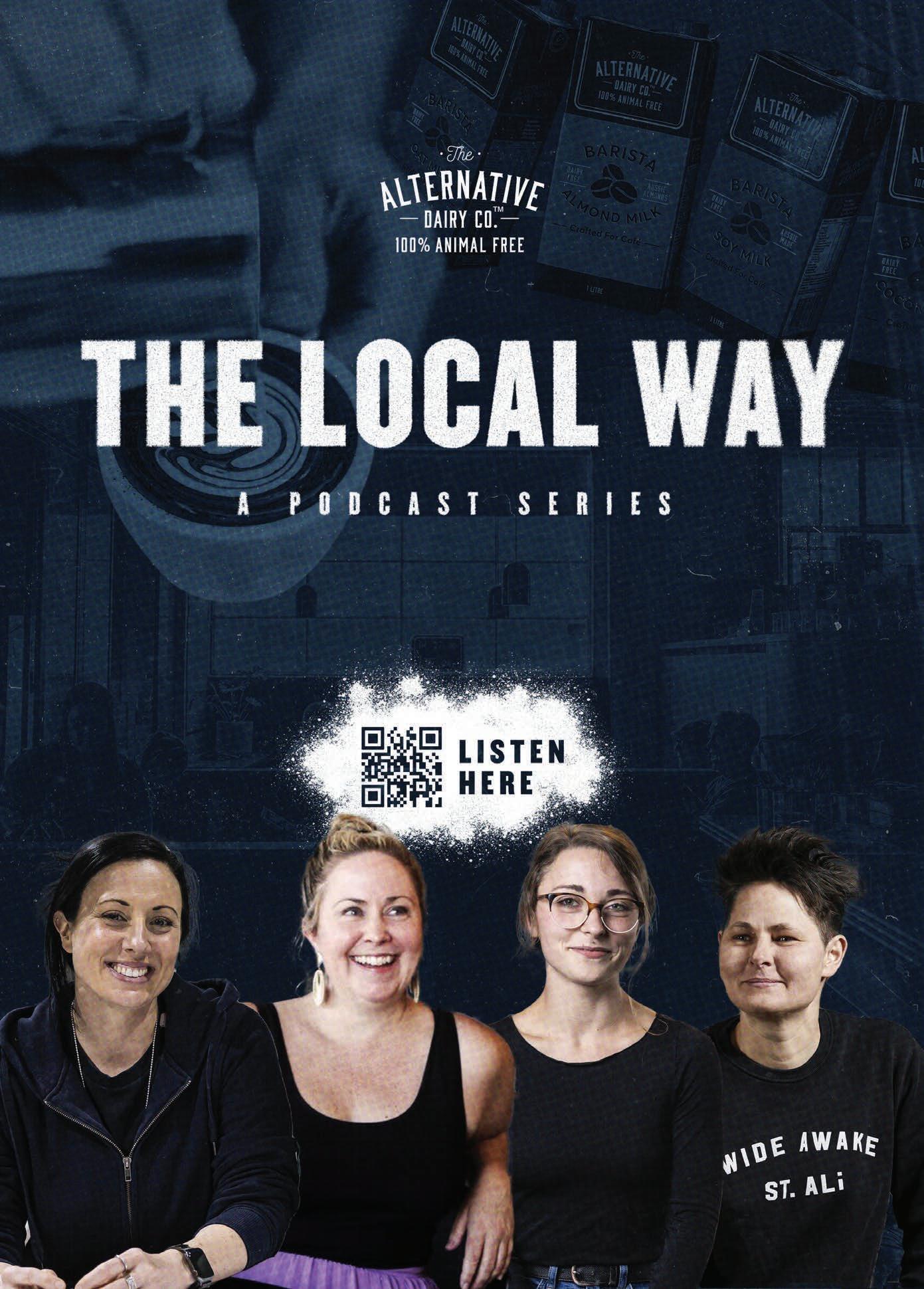
Australia and New Zealand boast a rich coffee culture. They have garnered international recognition for both quality and performance and foster a powerful sense of community.
Driven by passionate individuals, the Australian specialty coffee industry has created a supportive, collaborative environment that nurtures skill development. This is evident from the proliferation of competitions, product innovations, and talented professionals making a career from their passion.
It was a desire to share and celebrate the unique stories of individuals in the hospitality community, which led to the launch of The Local Way podcast.

“The Alternative Dairy Co is all about collaboration and celebrating the hospitality community that we are so proud to be a part of, and a podcast is a wonderful way to do that,” says Rachel Glasbergen, Senior Business Leader Café and Food at The Alternative Dairy Co.
A COMMUNITY FOR NOW AND THE FUTURE

Kicking off on International Women’s Day on 8 March 2023, the first series focused on women in the industry with key themes around self-belief, empathy, empowerment, and passion.
“Always approach every opportunity with open arms and just take them all as a learning experience. Be tenacious, don’t give up,” says St ALi Head of Operations and Sourcing Lucy Ward, on The Local Way podcast.
With donations going to Tip Jar, a charity supporting the future generation of hospitality workers, the podcast aims to share helpful advice with those looking to break into the industry.
“There are many jobs that exist in this industry that I didn’t know existed for years, back of house, warehouse, support, training, production, and it’s fantastic. I think no matter what your personality is, if you have a passion for coffee, you will find somewhere you fit. It is such a delightfully diverse industry,” says Emily Oak, St ALi Coffee Roasters, New South Wales State Manager on The Local Way podcast.
AN INDUSTRY WITH MOMENTUM

The industry is far from standing still. Its professionals are not afraid to experiment and push boundaries, solidifying their reputation
as leaders. This is evident through coffee roasters’ innovating to meet diverse needs and occasions, and the rise of plant-based barista milk now representing well over one third of the market.
“We are always willing to help, it’s about bringing other people up and that’s been the last 10 to 15 years of my life through the New Zealand Speciality Coffee Association (NZSCA) and with world coffee events. Building resources and tools helping others and ultimately the baristas are leading the forefront of our industry, they are telling us – we are judging them, but they are teaching us,” says NZSCA Events Manager Emma MarklandWebster on The Local Way podcast.
CHALLENGES AND OPPORTUNITIES
There is still a skills shortage rippling through the coffee and hospitality community.
Melita Farraro, Senior Manager for Food and Beverage Development and Capability at The Star Entertainment group says finding the right people in the right volume is one of the industry’s largest challenges post-COVID-19. The next step is upholding education and training to maintain industry standards.
“There is a lot of training and upskilling required at the moment and even people wanting to brush up on their skills,” Melita says.
Melita says it’s important people think about the longevity of the industry and the opportunities it can provide.
“Once upon a time, hospitality was that steppingstone for a lot of people while they were studying. I think now, it’s a career rather than that ‘make do’ while doing something else,” she says.
SELF–BELIEF AND AUTHENTICITY
Entering any new industry can be challenging, but the prevailing theme on the The Local Way podcast is the importance of authenticity.
“I have been able to achieve my goals thanks to a little self-belief and having other people who have believed in me. So, it’s really rewarding seeing people grow, seeing them grasp new concepts and new skills and then applying that and seeing them move through their own career,” says Michaela Gerard, Veneziano Coffee Roasters Queensland State Manager on The Local Way podcast.
Brodie Roberts from Proud Mary Coffee Roasters echoes the same sentiment: “Once you are sure of yourself there is nothing you can’t put your mind to and achieve.”
With a commitment to collaboration and a strong community, the industry is poised to continue driving innovation for years to come, and that makes it an exciting market to be part of and contribute to.
“We love the hospitality community and feel privileged that we are a part of such a fastpaced and innovative network. We believe it is important to showcase the hospitality industry and its projects, share the stories for a future generation, and inspire the community of tomorrow,” says The Alternative Dairy Co. Senior Business Leader Rachel
Details to donate to the future hospitality community Tip jar can be found here:
THE LOCAL WAY OF CELEBRATING THE HOSPITALITY INDUSTRY
Lucy Ward - Head of Operations, ST. ALi
The app that ties it all together and guided brewing with detailed results: follow the guided brewing system, while DiFluid Café tracks your progress. In the end, you'll be able to see exactly how well you did, and what you can do to improve.
Presicion Coffee Scale with auto-detect timing. You start brewing it starts timing and flow-rate tracking.
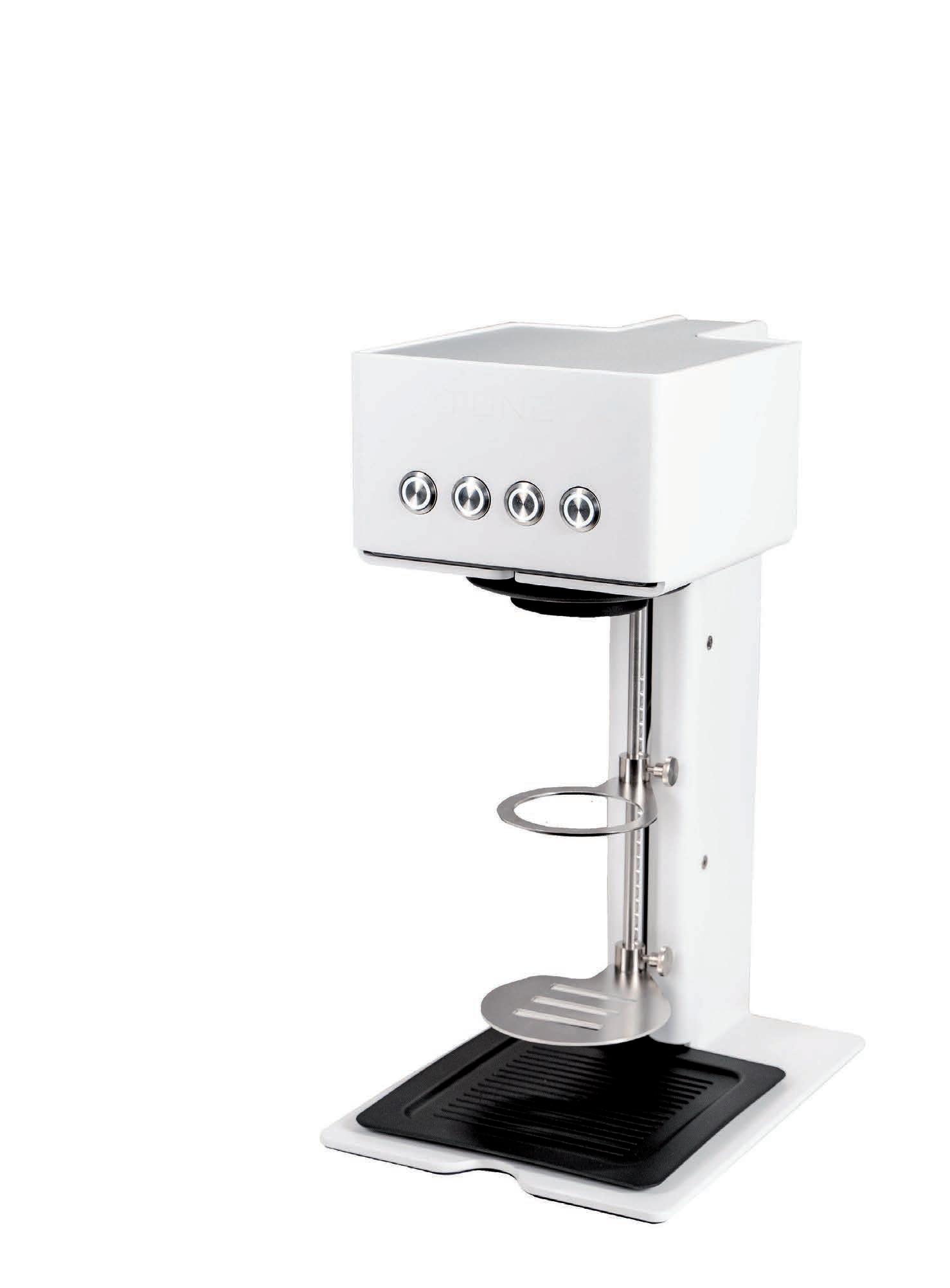
sales@baristagroup.com.au
baristagroup.com.au

 Brew Control System (R2 Extract + Microbalance + Café app) was newly launched by Shenzhen Digitizing Fluid Technology Co., Ltd. in Nov. 2022.
Brew Control System (R2 Extract + Microbalance + Café app) was newly launched by Shenzhen Digitizing Fluid Technology Co., Ltd. in Nov. 2022.
Unleash the full potential of coffee and tea
TONE‘s powerful Touch 03 single serve brewer unleashes the full potential of coffee and tea at the touch of a button. The intelligent recipe development system enables 100% customization of coffee and tea beverages including the ability to vary product, volume, flow, strength, and temperature.
The Touch 03 offers controlled agitation, programmable flow rates, and detailed adjustment of pulse patterns at different stages of brewing (e.g. blooming-, turbulence-, development-).
The boilerless standalone brewing system sustainably channels brew water through a highly innovative heating element that eliminates the need for a traditional heating phase. The barista is empowered to easily adjust brew recipes to profile various coffee and tea beverages by varying temperature, brew time, and a host of other parameters.
The most revolutionary brewer on today‘s market has all the operational capability to take the modern brew bar to the next level.
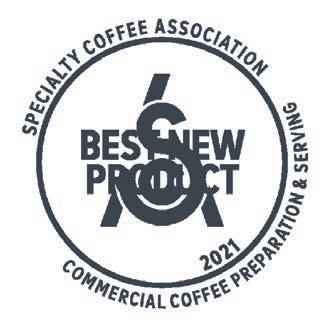

sales@baristagroup.com.au

www.baristagroup.com.au
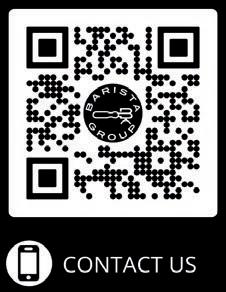

More than just H
ith more than 50 years of experience in water filtration, BRITA believes the perfect coffee starts with the perfect water. The taste of water – and therefore coffee – is significantly influenced by the volume and types of dissolved minerals.
It also depends, to a certain extent, on the overall mineralisation (sum of all the minerals) and alkalinity (carbonate hardness) of the water.
Water is an excellent solvent that consists of more than just the pure chemical compound of hydrogen and oxygen, or H2O. Substances from the environment and minerals are also dissolved in drinking water. These influence the taste of coffee because they determine the chemical properties and solvent behaviour of the water.


The most important minerals occurring naturally in drinking water are calcium, magnesium, sodium, potassium, chloride, sulphate, and hydrogen carbonate. The latter is responsible for alkalinity, and together with calcium and magnesium, it represents the carbonate hardness of the water. This has a strong influence on the development of the coffee’s flavour.
My team in the BRITA Organoleptic Department and I know that the dissolved minerals mentioned above influence the way water extracts from coffee grounds, which affects the flavour profile. Some minerals like hydrogen carbonate also interact with components in coffee.
When there is a lot of hydrogen carbonate or the water contains too much carbonate hardness, it reacts with the fine caffeic acids. The coffee then may taste unbalanced, bitter, and flat. In general, most people prefer coffee made with soft water. It has the perfect balance of acidity and bitterness so that delicate coffee aromas can
unpleasant aroma.
Water is the main ingredient in coffee. It’s a pretty big deal. To achieve the ‘perfect water’, we have developed the Purity C500 MinUp.
The professional filter solution is specifically designed to deliver the ideal degree of mineralisation, allowing coffee to develop its full aroma and flavour.
Combining the cartridge with the Purity
excellence and achieving the perfect brew.
But coffee quality is only one reason to embrace water filtration. Using a good filter will reduce mineral build-up in the boiler –limescale – leading to the longer life of the espresso machine.
Water hardness and quality differs across Australia, from state to state, even town to town, meaning the best water solution in one case could be completely

Birgit Kohler, Head of Organoleptic Department at BRITA, explains how minerals influence the taste of coffee and why water filtration can bring out the best of coffee.
The ideal water composition for coffee should not contain organic compounds or substances from water treatment.
Birgit Kohler is the Head of Organoleptic Department at BRITA.
56 beanscenemag.com.au WATER WORKS
different to another. If you were to take standard tap water in Perth and use that in your espresso machine, it will probably break down very fast. The mineral content in Western Australian water is relatively high, resulting in a level of hardness which can cause a build-up of limescale within a coffee machine over time. Filtration is key to machine protection.
BRITA offers three main types of filters for professional use – the activated carbon Fresh filters, hydrogen exchange Quell, and sodium exchange Finest – each tailored to different levels of water hardness and types of machinery.
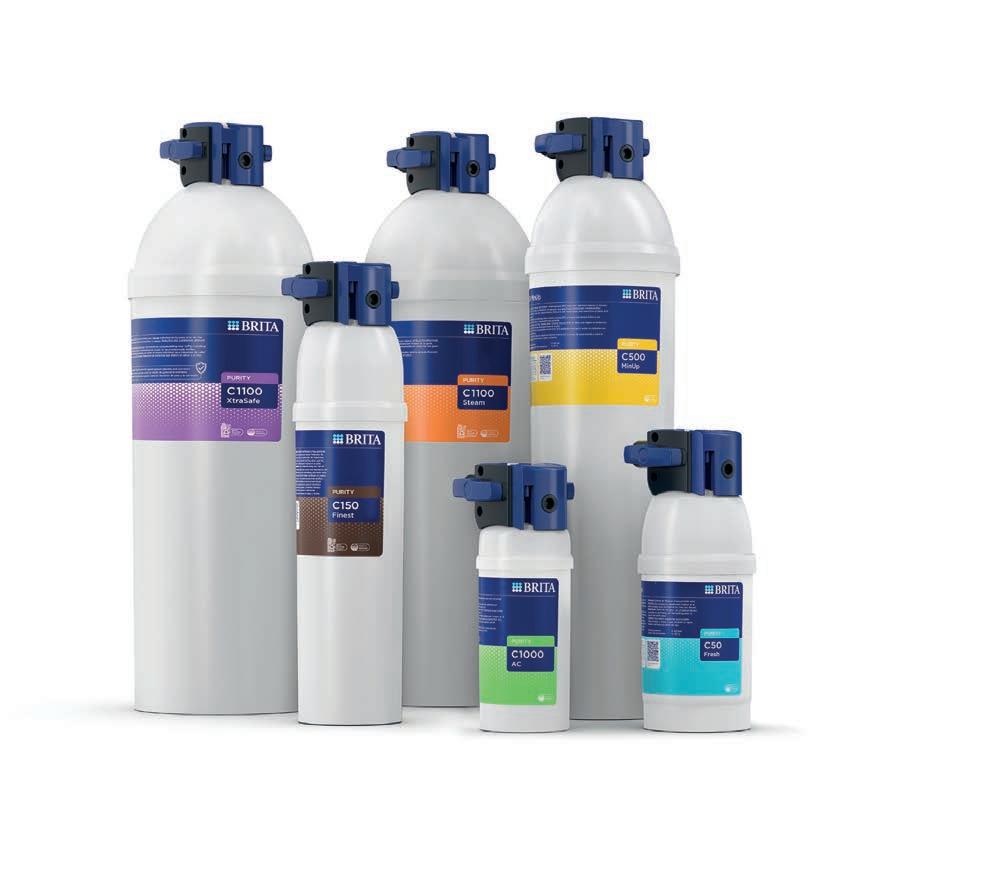
A big part of finding the best solution is BRITA training its partners and distributors, so they have the knowledge and resources to make the right decision.
Our distributor partners are essentially an extension of BRITA. They often provide the coffee machine and sometimes beans and accessories to café operators – and play a critical role in understanding where the machine is going to be placed and how it’s going to be used.
We do a lot of training with our dealers so they can go directly to site, test the water, know which filter they’re going to need, and marry that up with the machine. They’re usually trained baristas themselves, so can even drop by a café, get behind the bar, brew and taste the coffee, and make adjustments to the filter or machinery for an even better cup.
This relationship and share of education and information goes both ways. BRITA works with its roasting partners, locally and globally, to find their intentions and how to help bring those to fruition. We learn where they’re getting their beans from, how they’re roasting the coffee, and how they’re going to take it to market, so we have a better understanding of what flavour profile they want to produce and what water condition they’ll need.
We can provide a tailored multi-filter system to give them the right amount of hydrogen carbonate, calcium, and magnesium in that water solution for a more robust flavour.
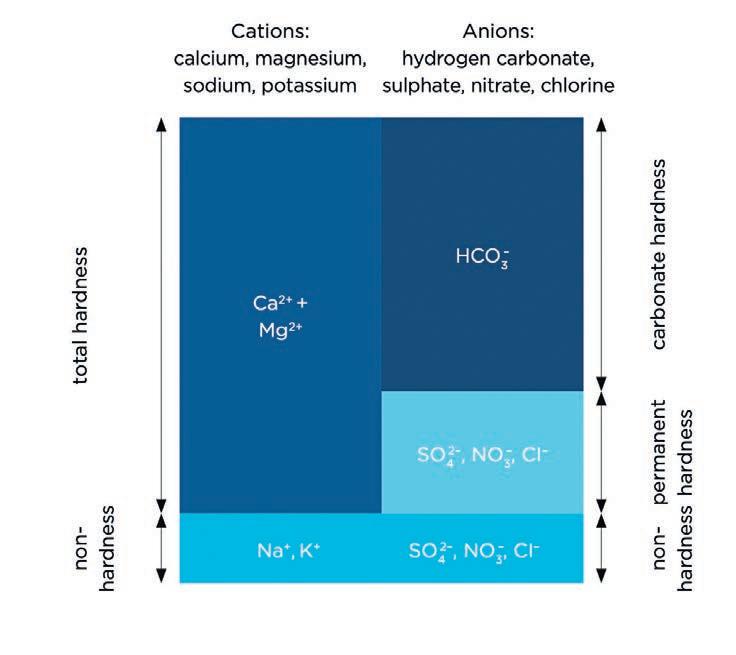
Education has also been an important element to how BRITA approaches the retail and at-home market, with additional information on water hardness and filtration also available online. Many people are trying to replicate the café experience at home and realising the key role water quality plays.
You can buy a good coffee machine for your own home, but if you don’t have the right information, you won’t get the best out of your coffee, or the machine could break down from limescale build-up without regular cleaning and maintenance.
A breakdown of the chemical compounds that exist in water.
Consumers nowadays are quite knowledgeable. Everyone is online and knowledge is power. If we can give our consumers the right information from the start, they’re able to make a very simple decision on what’s the best value for them, how they can look after their machinery, and deliver the cup they deserve.
This focus on education and sharing of information will continue to be a key pillar in BRITA’S service to the coffee industry and consumers going forward. Globally, we have educational days where we do coffee
and water tasting, and it’s something we want to bring to Australia.
The ideal water composition for coffee should not contain organic compounds or substances from water treatment. When it comes to minerals, instead of lacking these ingredients, it just needs to be the right amount. It might sound simple, but a good quality filter is all you need to achieve a consistent water quality.
For more information, visit www.brita.com.au
BRITA’s Purity C line is specifically designed to deliver the ideal degree of mineralisation.
beanscenemag.com.au 57
Who’s your cheerleader?
you up, empowers you, and becomes the biggest cheerleader of your career?
I have lots of mentors, but one in particular, was my dear friend Cassandra. When I was studying at university, she was the one who guided me, and encouraged me to realise that I could do whatever I set my mind to. Even though she has sadly passed away, her words of encouragement have stayed with me all these years later.
For Peter Wolff, his mentor was Chris Bryant, Co-Founder of Aromas Coffee in 1981. Peter joined the team in 1984, at a time that was quite pivotal to the company’s growth.

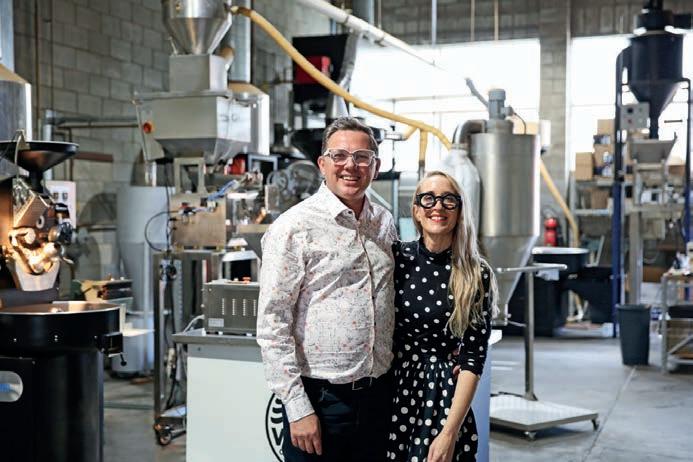
Peter started off as a dishwasher and worked his way up to become a sort of wingman for Chris, who was a trailblazer
– not just in roasting but the mechanics of running a company. He taught him about single origin coffees and tea, the craft of blending, and how to complement flavours through the roasting process. He even took Peter on endless origin trips at a time it was quite unheard of. Chris helped Peter set up for success. From strong mentorship and a long employment period, Peter was provided guidance, confidence, and contacts in the industry.
Peter has remained friends with Chris all the way through his career. Even when we opened our new roastery in 2015, Peter thanked Chris, for it was his early support and guidance that helped shape the businessman, roaster, and person Peter is today. It is so important we respect those from the past who have passed on
sources of wisdom, often professionally and personally, steering us to succeed, standing tall like proud parents when we do. That’s the true making of a leader.
Peter worked at Aromas for 11 years. It was this longevity in the company that allowed him to deep-dive and understand all areas of the business. He grew his knowledge and skill, but what also grew over time, was a sense of loyalty.
In today’s current market, people have access to so many career options. Those options bring excitement with immediate change and potentially a financial increase, but it’s not always the answer to career trajectory or success. If you’re a coffee professional, ultimately, you’ll find that cafés and roasters do similar things. They typically roast, make and sell coffee, but
58 beanscenemag.com.au PENNY FOR YOUR THOUGHTS
Peter Wolff has mentored hundreds of people in his career, providing opportunities for the next generation of coffee talent.
what differs, is the values that sit behind a business. If you stay embedded in a business for a long period of time, that feeling of belonging and longevity makes you an asset.
I like to think of loyalty as a three-step process. Coming together is the beginning, keeping together is progress, and working together long-term is success.
I read through heaps of resumes a year, and if I see that someone moves ‘here, there and everywhere’, they go straight to the bottom of the pile. I’m not interested in someone who likes to hop around from employer to employer, or jumps ship when the going gets tough. I’m interested in someone who applies themselves.
For our management positions, we use a recruitment agency. After several applications, the person who stood out the most was the one with longevity of five or six years in a previous location. That tells me they’re a keeper, and if they’re happy and interested, they’ll stay.
It’s important that we recognise and celebrate loyalty. Mauricio Belarmino has worked at Wolff Coffee Roasters for the past five years. Over time, he’s moved through various roles at the company, studied, has excelled at his English, and now works in our marketing team and loves it. Mauricio’s skills and knowledge are so valuable because he’s been exposed to so much of our business and understands the products we sell. It’s not replicable even if we advertised for it.
Mauricio sees Peter and myself as his mentors, and I personally think we need to see more of it.
But who’s going to speak for you? It’s a question Wall Street veteran Carla Harris asked in a Ted Talk on how to get ahead in the workplace.
It’s important to note that a mentor
is someone who has walked your path, someone who has the wisdom to guide you. A mentor’s job is to give you tailored advice that is specific to your career aspirations.
A sponsor however, is someone who has your best interest at heart. It’s not a person who can support you with a piece of paper to stay in the country. It’s someone who will raise you up and make you feel like you can enter a coffee competition or try your hand at roasting. It’s someone who pushes you to succeed in whatever it is you want to accomplish.
A sponsor is not a coach. That’s reserved for someone who gives you real direction to keep you aligned with your goals. A sponsor doesn’t have input in this area. They are a “yes” person in your corner.
Being a mentor or a sponsor, is a powerful responsibility. There’s something very attractive and rewarding about guiding a young barista or coffee professional through their career development.
Implementing a mentor program in the workplace is a solid way to further invest in your team and ensure you embed a methodology and mindset that enables you to ignite both individual and group organisational performance.
I am grateful to see fellow coffee companies like Aromas Coffee focusing on the importance of mentoring. The company carries on the mentoring legacy Chris instilled through funding Indigenous barista training programs in The Murrai and Hymba Yumba schools in Brisbane.
“We want to break down barriers so that the students can earn good money, be confident in their skills and make better lifestyle choices. We’ve funded 11 kids to go through the program and for every 11 in the program, there’s another 20 watching.
If they can see they have a good outcome and get jobs as a barista in the industry, they’ll also want to get involved,” says Adam Williams, who shares the current ownership of Aromas Coffee Roasters.

“One of the issues for our Indigenous kids is that most of the time their parents don’t work, and neither do their aunty or grandparents so they don’t have a workplace discussion around the dinner table. It doesn’t occur. What we see in the program, is that the kids come up with really cool entrepreneurial ideas which they don’t feel safe to voice anywhere else.”
Adam says it’s his job to ensure that he’s educating the next wave of barista talent and investing in their training and skills, which in turn creates job satisfaction.
“As leaders in the industry, it’s our responsibility to ensure that the next generation are more informed and inspired to do better,” he says.
If you’re a business operator, be accessible to our next generation of talent. Remember an experience or individual that once gave you a start in the industry. Peter sure does, and has paid it forward by mentoring hundreds of people in his career, in celebration of the knowledge and opportunities that was once provided to him.
And for baristas looking to take their next career step and grow personally, don’t be afraid to seek out a sponsor. It needs to be someone who has exposure to your work, someone who knows you, and can champions you 30 years down the line when you take the same step to sponsor someone else. That’s the power of a good sponsor.
For more information, visit wolffcoffeeroasters.com.au
beanscenemag.com.au 59
Current Owner of Aromas Coffee Roasters, Adam Williams, (left) with Wolff Coffee Roasters Co Founder Peter Wolff.
Merlo goes greener
Sustainability may have become a buzz word in recent years, but for Brisbane-based coffee roaster Merlo Coffee, it’s still a core commitment.
Merlo Coffee Head of Operations Simon Brooks has a strong focus on continuing a range of sustainability endeavours. He says the long-term economic, environmental, and social health of the coffee industry are vital considerations.
“Coffee comes from the environment. If we can’t look after our ecosystem, there won’t be any coffee left. We’re not going to leave change to farmers or overseas companies or importers, we want to do our part at the other end of the supply chain,” Simon says.
“With COVID-19 in the rear-view mirror, sustainability is at the forefront of our minds.”
From June 2021 to July 2022, Merlo Coffee has made many positive contributions to replace conventional foodservice packaging, such as offsetting more than 1.2 million kilograms of carbon, the equivalent of driving more than 4.5 million kilometres in a modern car.
“We’ve also avoided almost 49,000 kilograms of plastic by choosing sustainable alternatives to finite fossil-based plastics,” says Simon.
Outside of the factory, Merlo Coffee has made a wider environmental contribution by planting 163 trees to support Rainforest Rescue, Greenfleet, and Ecologi with tree planting and environmental restoration initiatives.
“We’ve always been very sustainably focused, since [company founder] Dean Merlo started the business. We want to contribute as much as possible to support the Rainforest Rescue, Greenfleet, and Ecologi initiatives so we can replenish trees and the coffee industry as a whole,” Simon says.
Merlo Coffee’s goal this year is to reduce its emissions even further. To help reach its target, the roaster in the process of switching from polylactic acid lined takeway cups to the new Aqueous based lined cups, produced by sustainable packaging company BioPak.
“Aqueous BioCups are manufactured using a unique water-based dispersion coating certified to AS5810 home compostable standards. This process
needed while still providing the same leakand grease-proof benefits as other coatings like traditional polyethylene,” Simon says.
“Single wall Aqueous cups are available in four sizes with compatible plastic-free lids for a completely home compostable solution. This means that when paired with one of BioPak’s sugarcane lids, customers can enjoy a takeaway coffee knowing that they can compost the cup and lid right in their own backyard.”
According to BioPak, this breakthrough technology is a “game-changer” in the world of disposable paper cups, offering an eco-friendly alternative that is food safe, odorless, and can be disposed of in a compost bin.
“Our goal was to keep more than three million Merlo takeaway cups out of landfill. With BioPak’s Aqueous coffee cups, we can potentially save 20 million cups from landfill, meaning we would have easily surpassed this goal by now,” says Simon.
Merlo Coffee also practices sustainable packaging methods, re-using old boxes that are shredded and used for packing fill in its deliveries. This removes the need for plastic air bubble wrap or polystyrene fill.
To add to Merlo Coffee’s growing list of sustainable projects, the roaster launched its first specialty coffee capsules in December 2022, based on two of its most popular blends, Forza and Organico. The capsules are made with aluminium packaging, meaning they come with multiple functional and environmental benefits.
“We use aluminium capsules for infinite recyclability and to ensure there is no moisture or oxygen transfer. Capsules are compatible with all original line Nespresso machines, or machines of the same standard from other manufacturers,” says Simon.
The use of aluminium capsules highlights the roaster’s continued focus on operating sustainably. Among other initiatives, Merlo Coffee is also improving its energy usage, with solar panels installed at its two main roasteries in Bowen Hills and Eagle Farm in Queensland.
“We have over 400 solar panels covering our two facilities, which has reduced our carbon emissions by 533,000 kilograms, equivalent to 10,000 plants. Any excess that we need to offset we purchase large-scale generation certificates (LGCs) from a solar farm in northwest New South Wales. We currently purchase about 110 LGCs every quarter,” Simon says.
Despite an array of sustainable achievements, Simon says Merlo Coffee isn’t slowing down anytime soon. He says the roaster is fine-tuning all areas of the company to strategise the most effective changes to do business in a more sustainable way.

“There’s always more you can do with sustainability. It’s about getting the resources in place and operating with carbon neutrality in mind. We’ve even put in an order to change all of our vehicles to Toyota Hybrid models, from sales through to delivery, combining the power of petrol engines with the efficiency of electric motors,” he says.
“It’s vital that we do our part and step up as an industry leader in Australia, to show that not only is it possible for larger businesses such as ours to obtain sustainable practices, but that it’s affordable and accessible for all.”
For more information, visit www.merlo.com.au
Merlo Coffee provides an update on the roastery’s sustainability initiatives and discusses why offsetting emissions and reducing its environmental impact are still front of mind.
60 beanscenemag.com.au
FEATURE
Merlo Coffee re-uses old boxes that are shredded and used for packing fill in its deliveries.
Sustainability
Sustainability
Ahead of the Pak
ecyclable, plastic free and biodegradable’ coffee cups are among the common terms used to validate a company’s commitment to the environment.
However, when used without accordance to state and national legislature, these statements can contribute to greenwashing, in which false or misleading claims are made about the environmental benefits of products.
According to Gary Smith, Chief Executive Officer of BioPak, a sustainable packaging manufacturer, it’s important businesses understand the differences in each terminology and use them appropriately to build trust with customers.
“Greenwashing is a serious issue that can undermine the efforts of companies and individuals who are genuinely committed to sustainability,” Gary says.
“We encourage consumers to look for clear and verifiable evidence of environmental claims before making purchasing decisions, and to support companies that are transparent and honest about the environmental impact of their products.”
Gary says titles such as recyclability, biodegradability, plastic-free, compostable, renewable/recyclable and sustainably sourced, can often be used to sell packaging as a sustainable option.
“Currently, however, no paper cups –
regardless of lining material – are accepted for recycling in kerbside paper recycling streams in Australia,” Gary says.
“This is based on the Australian Packaging Covenant Organisation –Packaging Recyclability Evaluation Portal (PREP) tool that verifies what packaging is and isn’t recyclable in close consultation with the recycling industry.”
Further still, he says the bulk of single-use coffee cups within Australia have polystyrene lids, but certified compostable bioplastic and plant fibre lid options are widely available for purchase.
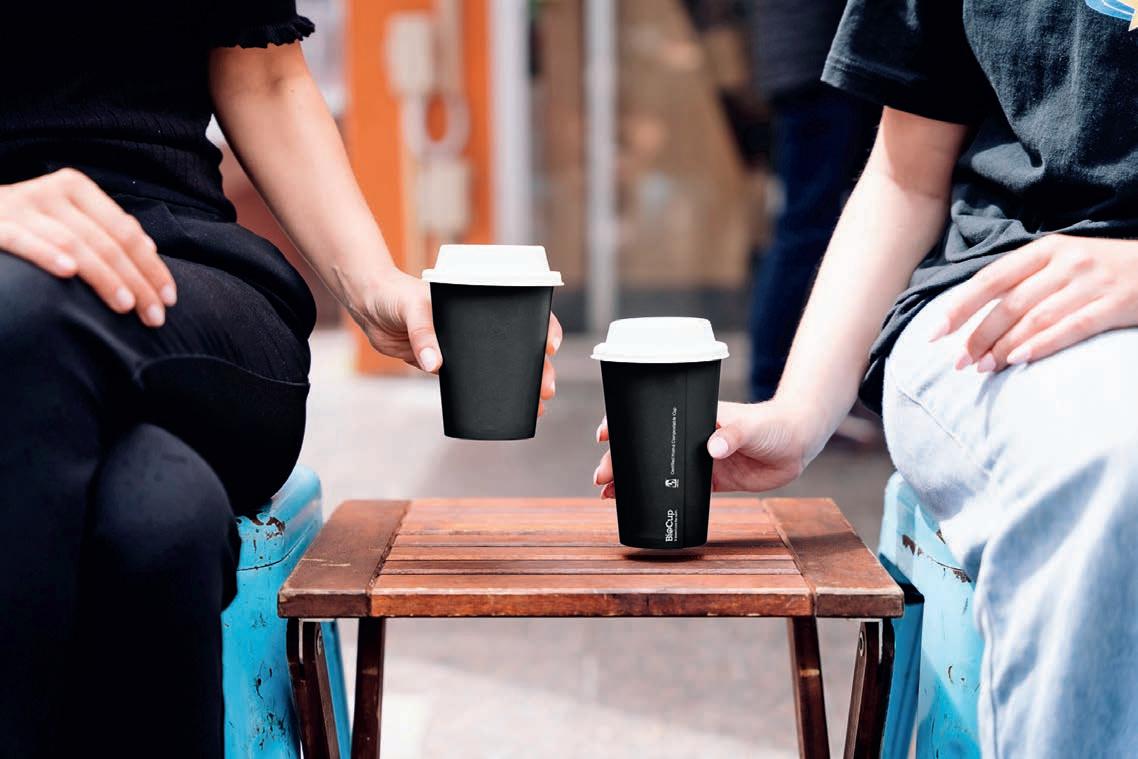
“It is natural for cups to go to compost, where the complicated separation of the lid, cup, coffee and sugar, is not required. The whole cup can be composted in the one bin,” Gary says.
“We, however, need councils, composters, and the government to align in the acceptance of foodservice packaging in the compost. It works incredibly well in Adelaide, for example.”
BioPak has developed pulp-based compostable lids, which behave in the same way as typical polystyrene lids when it comes to usability, and can be composted after use.
“They don’t transfer taste and have clips on the lip of the lid to prevent it from coming loose from the cup,” Gary says.
“They are plastic-free and certified home compostable. We are confident these lids will be a gamer changer for the cups market.”
The sample package of compostable lids,
distributed by BioPak to 15,000 cafés across Australia, contain 10 small lids and 10 large lids, allowing businesses to see first hand that there are pulp compostable lids that work.
“We’re sending these out to show people that we have been able to make this technology work, and that they are just as functional as plastic lids. Home compostable single-use cups and lids are the solution,” Gary says.
He believes certified home compostable cups will resonate with environmentallyconscious customers.
Gary says while the industry has demanded a swath of transparency and traceability when it comes to sourcing green beans and the process of growing coffee, the same transparency should be applied to the producers of single-used cups.
“Both suppliers and customers should look at sustainability from all perspectives, like end-of-life solutions, ethical standards of production, environmental practices of the facility, and the sustainable certifications of the raw materials used,” he says.
“The industry needs to move towards holistic sustainability, instead of chasing the title of ‘sustainability’ to sell products.
“Be transparent. Use credible certifications. Avoid vague or misleading language. Provide detailed information. Set measurable goals.” For more information, visit www.biopak.com
How a care package of compostable lids shipped to 15,000 cafés around Australia is a testament to the sustainable change BioPak seeks to make.
beanscenemag.com.au 61 ‘ Sustainability FEATURE Sustainability
BioPak has developed new pulpbased lids that are plastic-free and certified home compostable.
Coffee connection
rom the moment Nadia Moreira and Andre Selga became involved in the coffee market, they noticed the inequality between growers and all parties past the farmers.
This was one of the reasons they formed Southland Merchants in 2017, with the goal of not only sharing the great coffee of their native Brazil with the Australian community, but supporting and empowering families and producers back home.
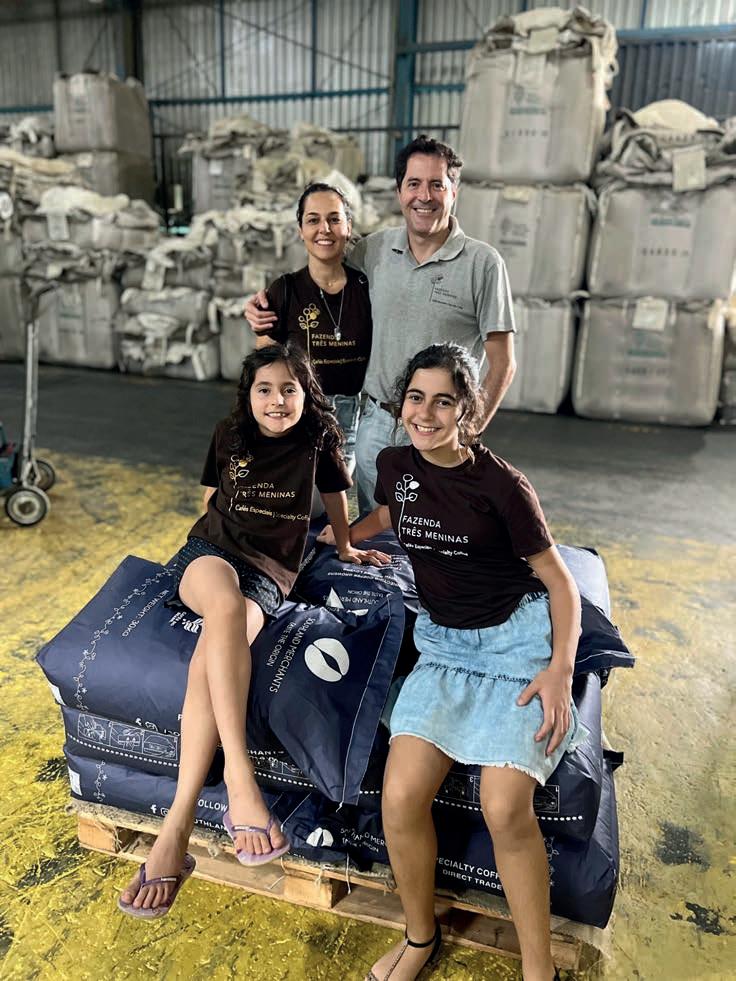
“Traceability has become important to many coffee roasters, sharing the stories of their coffee and how it travelled from farm to cup, but rarely are small-scale coffee producers provided with the same view of the supply chain,” Andre says.
“We want to work with not just good quality and specialty coffee, we also want to work with farmers who build on the pillars of sustainability.”
Nadia says Southland Merchants has a responsibility to its farmers and customers to connect them and start meaningful conversations about what sustainability in the coffee industry looks like.
“There’s a misconception that sustainable practices often mean lower levels of production or lower quality coffee. But that’s not the case at all. These practices – especially those used by partners such as Fazenda Três Meninas farm – have actually had increased production and even more rich tasting coffee,” she says.
Located in the Cerrado Mineiro region of Brazil, Owners of Fazenda Três Meninas Marcelo Urtado and Paula Curiacos have implemented regenerative agricultural methods to enable higher quality coffee and production levels, while also creating a farm they can be proud of.
“Sustainability is inherent to our values and present in every corner of the farm. We also focus on preventive management with professional technical monitoring, green and biological fertilisation, use of organic fertilisers, yeasts, bacteria, fungi, and insects,” Marcelo says.
In avoiding monocultures and the abuse of pesticides and chemical fertilisers, Fazenda Três Meninas has built balanced, resilient production that also contributes to the health of the planet and increases cup quality. To this end, they have invested in raised African beds and other postproduction infrastructure. Additionally, they are engaged in fermentation studies
to contributing to the improvement of the planet through significant carbon sequestration,” Paula says.
“We strongly believe that a naturebalanced production farm tends to be a transforming agent in the region, improving the livelihood of rural producers and employees, beyond transforming the landscape of the region.”
It’s this transformative approach that Southland Merchants lives by, embracing the philosophy of improving the triple bottom line of people, planet, and profit.
“We engage with farmers in a meaningful way, supporting them financially through educational programs such as the Educare Coffee project. Through Educare Coffee, we’re making it possible for producers to access technical, sciencebased knowledge so they can do things in a different way and see their farmers progress,” Andre says.
“Fulfilling that lack of education at
changing. People are more open to featuring Brazil as a single origin coffee and using them as competition coffees,” Andre says.
“Our capabilities of sourcing coffee from our country of origin allow us to embrace the diversity and potential Brazil has to offer.”
Andre says that, combined with the want to make a difference and contribute to improving local growers’ lives, makes it easy to come to work every day.
“The open relationship and legitimate interest to see growers thrive and to focus on all parties involved have made the journey really rewarding. Seeing the positive results for the growers through to the end consumer, the hard work and the many challenges are all worth the effort,” he says.
For more information, visit www.southlandmerchants.com.au and follow @southlandmerchants on Instagram.
Southland Merchants explains the company ethos of supporting an economically viable supply chain through transparency with specialty coffee growers.
62 beanscenemag.com.au Sustainability FEATURE Sustainability
Fazenda Três Meninas is a partner of green bean importer Southland Merchants.
The ticking Climate Clock
Happy Happy Foods has committed to a single mission: to make plantbased products more mainstream, tastier, and better for the environment than the generation of products before them.

The company’s commitment to the environment is not just lip-service. Founder Lloyd Smith emphasises that reducing the industry’s carbon footprint is critical, and encourages consumers to join him in being carbon-conscious when making decisions about what they eat and drink. His aim is to make switching to plant-based foods and beverages as easy as possible.
“It’s all about changing and realigning consumer habits, educating people, and making the transition to plant-based milks as tasty and as easy as possible,” Lloyd says.
To emphasise the urgency of collective action on climate change, Happy Happy Foods has debuted the Climate Clock, a virtual timer on its website to show the positive steps people can take to enact change across all sectors of its business and help reduce emissions.
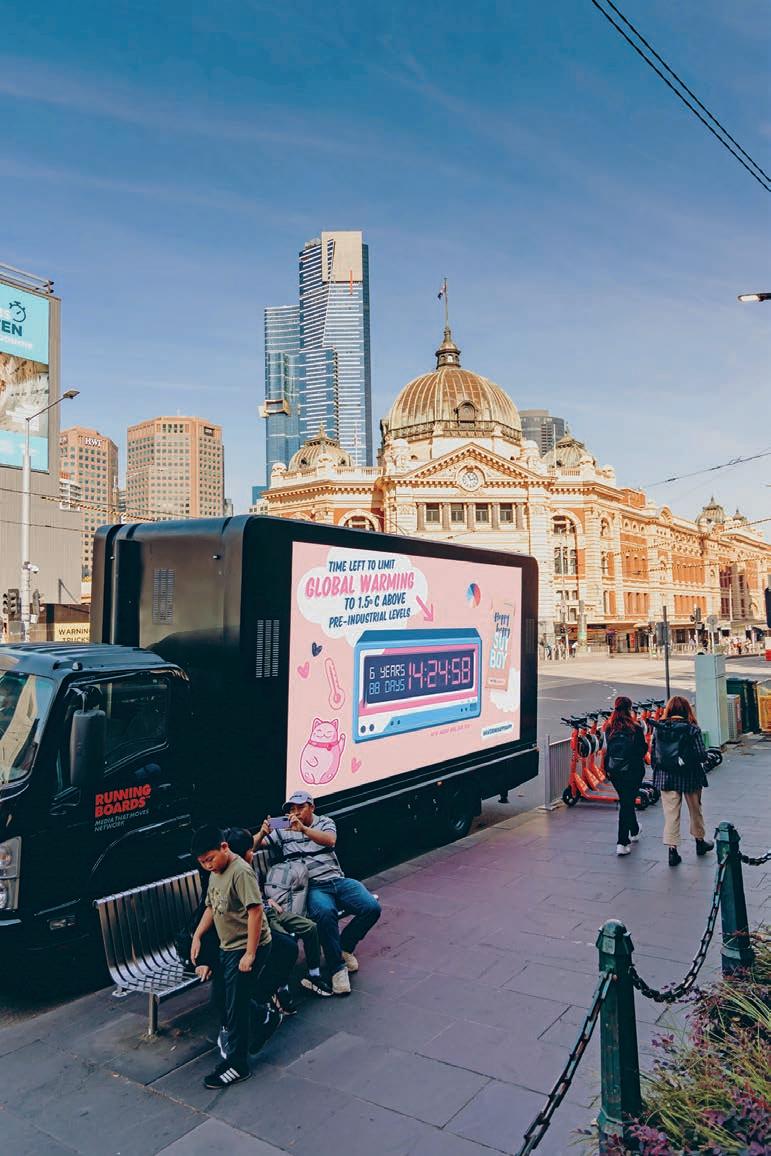
“This is the first generation to truly see the impact that our consumption, as a whole, is having on the environment and the world we live in. Moving away from consuming animal products contributes significantly to reducing your climate footprint,” says Lloyd.
The purpose of the Climate Clock, while confronting, is to remind consumers to start acting now if global temperatures are to be limited from rising above the 1.5ºC target, and to avoid the negative effects of climate change.
Lloyd explains that the Climate Clock is an important reminder that everyone shares the same planet and has the same time to act.
The Climate Clock is the latest ‘Climate Happy’ initiative from Happy Happy Foods. In 2020 the company put its principles into practice and became wholly carbon neutral – leading the field in transparency and
corporate responsibility.
“Our people and our products are 100 per cent carbon offset so our products are delivered to the café 100 per cent carbon neutral. We measure our total carbon footprint on an annual basis and purchase carbon credits to offset all our generated emissions,” says Lloyd.
In 2021, Happy Happy Foods released
a limited edition ‘Climate Stripes’ carton highlighting the rate of global temperature increase.
Through its Climate Happy initiatives, and its commitment to carbon neutrality, Happy Happy Foods is setting an example for others to follow. As the company says in its mission statement: “We should never underestimate, on an individual level, how we can contribute to making change.”
As the Climate Clock highlights, the time to act is now, and by collectively embracing sustainable alternatives a brighter and more sustainable future can be secured for generations to come.
For more information, visit www.eatdrinkhappyhappy.com
Happy Happy Foods unveils its new Climate Clock to educate consumers about the active steps they can take to make a positive climate contribution.
The climate clock on display in Melbourne.
beanscenemag.com.au 63 Sustainability FEATURE Sustainability
Happy Happy Foods believes the future is plant based.
A force for good
estern Australiabased roaster Five Senses has always shown a commitment to impacting people and the environment positively. Founder and Owner Dean Gallagher lived in the Highlands of Papua New Guinea in the late 1990s where he first saw the seasonal rhythms of coffee production at ground level. As the roastery was established and later expanded, Five Senses has built strong business and personal relationships with coffee growers and traders at origin.
An extension of Five Senses’ commitment to community is demonstrated in the roaster becoming B Corp Certified in April 2023.

“We’ve always known that we do good for our community, but becoming a B Corporation gave us a sense of internal validation. It was invaluable to authenticate the ways in which our systems and processes operate but also a great opportunity to highlight areas of improvement,” says Dean.
B Corp Certification is a designation that a business is meeting high standards of verified performance, accountability, and transparency on factors from employee benefits and charitable giving to supply chain practices and input materials.
Businesses must demonstrate high social and environmental performance by achieving a B Impact Assessment score of 80 or above and passing a risk review. Five Senses’ overall B Impact Score was 101.7, putting the company in the top sector of B Corp Certified companies from around the world.
“This certification is one of our proudest. Using our business as a force for good has been independently verified and we’ve come out on top, being awarded for our high standards of social and environmental performance, accountability, and transparency,” Dean says.
The B Corp Impact Assessment investigates five impact areas of the business, including Governance, Workers, Community, Environment, and Customers. One of the reasons Five Senses has achieved such a high score, Dean says, it because the company established a ‘Busy B’ action group during COVID-19, a small group of internal staff engaged to conduct shifts in policy, system reviews, documentation, and procedural change.
emissions including power usage, freight, and waste disposal. It set targets and achieved some substantial reductions and then purchased offsets to become officially Carbon Neutral from April 2020.
Five Senses Coffee enjoys strong business and personal relationships with coffee growers and traders at origin. The roaster built a Tiga Raja coffee mill in the town of Permatang Purba, Sumatra in 2013, which is run by farmers in the region.

“The supply chain works independent of world market prices which provides huge benefits to the Tiga Raja mill and farmers and enables us to set our own market price for parchment purchase. Setting our own price encourages loyalty and enables us to engage farmers in a quality development program run by the mill, thus promoting sustainable practices for the benefit of the mill and the farmers,” says Dean.
To further highlight its commitment to operating ethically, the company also supports Streetsmart Australia’s annual initiative CafeSmart, which raises funds to support Australians affected by homelessness.
achieve this certification, but actually identifying what we were doing and fitting it into the B Corp criteria was a really tough process,” he says.
Although Dean is thrilled to call Five Senses B Corp Certified, he says the certification doesn’t change the way he does business. It is simply “a snapshot of how Five Senses is currently doing business”.
“With or without B Corp, we will continue to operate in the same way. The certification allows us to speak confidently about our founding mission of ‘impacting people positively’ and continues to be the hallmark of what we’ve done every day since,” he says.
“Years of significant and thoughtful company changes, at considerable time and cost, have enabled us to achieve such a result. It is with deep satisfaction that we produce delicious coffee at such a worthy standard of social and environmental excellence.”
For more information, visit fivesenses.com.au
Five Senses Founder Dean Gallagher explains why becoming B Corp Certified was a natural progression of its ethos to make positive global impacts in the quest for delicious coffee.
64 beanscenemag.com.au Sustainability FEATURE Sustainability
Five Senses became B Corp Certified in April 2023.
manufacturer Huskee, takeaway cups need to be more than environmentally friendly if they are to be sustainable. They need to provide an elevated experience, be convenient and viable for a café to use long-term, and at volume. This is an area where Huskee Head of Sales and Marketing Michael McFarlane says most reusable cup solutions struggle.
“When a barista in a café starts to receive a lot of reusables, they suddenly have a stack of cups to fill and need to speed up their workflow to manage different sizes, shapes, and lid configurations, all the while remembering whose is whose. It becomes tough to manage on a daily basis,” Michael says.
To overcome this, Huskee designed and launched the HuskeeSwap system in 2019, allowing consumers to exchange their used HuskeeCups for a cleaned one when ordering coffee at a participating café. A coffee shop just needs to stock HuskeeCups to take part in the program, as well as retail cups so customers can join in.

“The advantage of HuskeeSwap is streamlined inventory. When someone arrives at a café with a HuskeeCup, they just have to hand in their cup and lid, the café puts it aside to wash at a less busy time, and the customer gets one of the café’s floating cups kept on top of the machine,” Michael says.
“The hygiene is exactly the same as you’d expect from dine-in cutlery. They’re washed, sanitised, and put through a commercial dishwasher onsite, so the barista just grabs
Buy, Drop,
and off they go.”
The company has recently launched an update of its phone application to further streamline the HuskeeSwap program and improve user experience.
“The new version includes guides on how to use the swap system, easy logins, and a locations map to find and exchange HuskeeCups at over 1200 locations worldwide,” Michael says.
“With the HuskeeSwap app, you can search cafés and find your nearest swap site. You can also store a cup with a café, withdraw a cup from where you stored it, and borrow or return a cup if you left yours at home, for example, by simply scanning a QR code.”
A new loyalty card feature has also been included in the app update.
“We’re now offering a digital loyalty card for free to participating cafés to further incentivise the use of reusable cups. Customer can receive a free coffee after a number of purchases determined by the café, by scanning the digital rewards card each time they use HuskeeSwap,” Michael says.
“We’ll soon be expanding our loyalty program to allow customers to earn points, which will be redeemable on all Huskee products and with partnering brands.”
Huskee Partnership Manager Chad Buxton says the best thing about the HuskeeSwap system is that it is designed for scale and applicable for corporates, Council areas and universities to enable large impacts and behavioural change.
“This is where a reuse system really shines,” he says. “A great example of corporate impact when applied at scale was
recently shown by our partner Canva, who eliminated over three million single-use items in 2022 alone, utilising HuskeeCups across three global office locations and saved an estimated $400,000 in packaging.”
Huskee completed a case study in May 2023 with long-time supporter Cat & Cow café in Randwick, Sydney. It showed that with only 10 per cent of its customers using HuskeeSwap regularly, the café was able to add an additional $3400 in revenue and saved $600 in packaging costs.
With the majority of Australian states and territories committed to completely banning single-use plastics by 2025, Michael says businesses will need to consider making the switch to reusable cups sooner rather than later.
“Venues will in essence have two choices: switch to compostable takeaway cups, which are still single use, further increase costs, and likely don’t have a composting pathway. Or, commit to a Swap system that meets customer’s expectations, saves significant money on packaging costs, and in the case of HuskeeSwap, adds an additional revenue stream to the business. Reuse is simply better for business, and for the planet,” he says.
“Everything we do is about eliminating single-use cups. Selling reusable cups isn’t enough and puts the burden on the consumer. Integrating HuskeeSwap facilitates more people choosing reusables over single-use, with easy implementation for cafés and a convenient, positive consumer experience.”
For more information, visit huskee.co
Huskee provides an update on the renewed HuskeeSwap system, its new loyalty program, and how the company is helping society transition from a single-use world.
beanscenemag.com.au 65 Sustainability FEATURE Sustainability
The HuskeeSwap system aims to reduce landfill and streamline inventory.
The future tastes sweet
uality and reliability are key for any café looking for consistent customers, but it’s no longer the only consideration.
Adopting a ‘coffee for every cup’ mentality, roaster Piazza D’Oro is focused on creating blends that appeal to a broad variety of coffee drinkers around Australia, and also carry a sustainable focus.
“People care about not just the taste of the coffee, but also where it comes from,” says Piazza D’Oro Coffee Ambassador Shaun Kumar.
“By providing consistent and sustainable coffee, cafés can attract a reliable customer base that keeps coming back.”
Piazza D’Oro’s wholesale Mezzo and Organic blends are Rainforest Alliance certified (RFA) – a certification that supports the sustainability of both workers and the environment through aid levied to the communities in and around where the coffee is sourced.
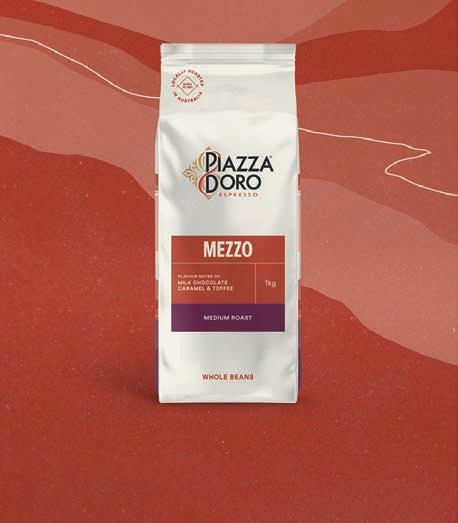
Piazza D’Oro also champions an inclusive and regenerative approach to sourcing coffee for blends, acting through the principles of responsible sourcing, minimising footprint, and connecting people.
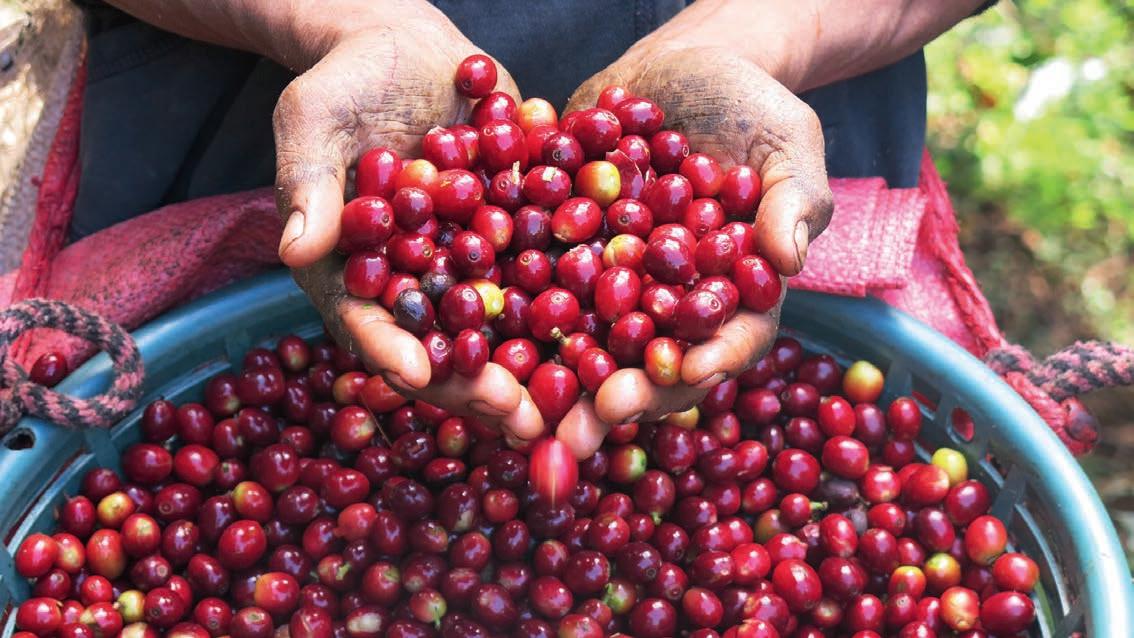
“We want to deliver an end-to-end solution with our café customers,” Shaun says.
“From farmers to consumers, we are acting intentionally to ensure every cup contributes to a better future.
“We do this by sourcing from farms with traceable coffee that uphold sustainable practices.”
At the roastery, stringent quality control procedures are followed to ensure a high
level of product is consistently delivered to market.
“We make sure to have less than 3 per cent oxygen in the bag and that the seals are sealed properly when the bags are packed,” Shaun says.
“We also measure the moisture level and limit the amount of moisture inside the bag because oxygen is the biggest fear when it comes to the quality of the beans. Lastly, we ensure that the colour value of the beans is correct to make sure the blend is medium bodied.
“The work we do with quality processes is so important because the Mezzo blend is made for the café market, and cafés do best when they have customers who know the coffee is consistent and come back for that specific blend.”
Mezzo is Piazza D’Oro’s number one selling blend in Australia.
“As a medium roast coffee, it’s a real crowd pleaser,” Shaun says. “The flavour profile is milk chocolate caramel and toffee, which is really popular with the Australian
“Part of our research and development process in Europe is identifying the flavour profile of our markets and for Australia. It was also really important that the blend paired extremely well with milk and dairy alternatives.”
Shaun says the milk chocolate and toffee notes of the Mezzo blend cut through dairy and plant-based products, complementing rather than overtaking the coffee profile.
“Whether it’s with milk, a dairy alternative, an eight-ounce or a 16-ounce coffee, we have made the recipe for the Mezzo blend to ensure that regardless of when people get their coffee from their favourite café, the coffee tastes the way they love,” Shaun says.
“People come back for consistency and that philosophy is integrated into how we develop our blends.”
Piazza D’Oro’s Organic blend – RFA and Australian Coffee Organics (ACO) certified – also carries a milk chocolate note, which is balanced with caramel and honey sweetness.
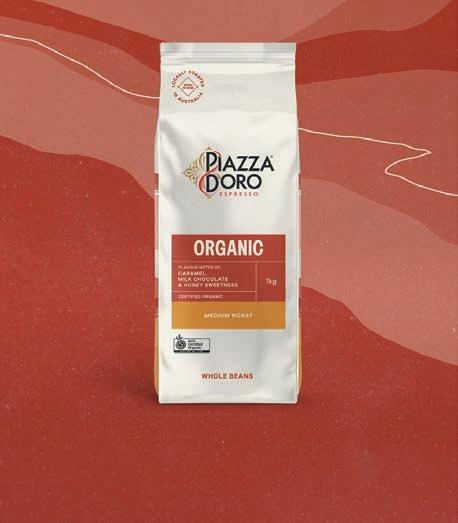
“Being able to give cafés the tools to make a coffee that all customers can enjoy, is central to our goals at Piazza D’Oro,” Shaun says.
“The development of the Mezzo and Organic blends came from a desire to provide cafés with great tasting coffee that they can assure will taste the same every time customers visit.”
For more information, visit www.piazzadoro.com.au
Piazza D’Oro explains how it develops an end-to-end solution for its café customers and why consistency is key.
Piazza D’Oro’s Mezzo and Organic blends are Rainforest Alliance certified.
66 beanscenemag.com.au Sustainability FEATURE Sustainability
Piazza D’Oro acts through the principles of responsible sourcing, minimising footprint, and connecting people.
Small actions, big change
Detpak, a part of the Detmold Group, assesses each stage of its packaging production to ensure its products have minimal environmental impact. Detmold Group General Manager of Innovation and Sustainability Tom Lunn says this includes reducing inputs such as lowering power and water usage, and minimising the use of solvent-based inks and adhesives.
“We are a company with an environmental focus, so we are constantly striving for improvements and innovations to sustain our planet, and contribute to a better tomorrow,” says Tom.
One such improvement is releasing RecycleMe Wholesale Coffee Bags, which Tom says is an easy way to remove single use plastics from the environment.

“Our RecycleMe Wholesale Coffee Bags feature our next-generation lining which uses 40 per cent less plastic, making our products genuinely recyclable. This is verified by the use of the Australasian Recycling Label for easy identification in our efforts to provide a fully recyclable coffee bag solution,” he says.
The RecycleMe Wholesale Coffee Bags are certified to the globally recognised PTS-RH 021/97 Standard for fibre-based recyclability and fibre recovery, providing an alternative to soft plastic coffee bags.
The bags are available in three standard sizes of 250-grams, 500-grams, and onekilogram bags, as well as two-kilogram and three-kilogram sizes for custom manufacture. The bags can also be custom printed to showcase a coffee roaster or café’s brand.
“The 250-gram, 500-gram, and onekilogram sizes also feature the same width and gusset measurements with variable heights, providing the best on shelf visual merchandising for any coffee shop. The bags are designed for small batch roasters or subscription-based roasters sending out roasted coffee every couple of weeks to customers,” says Tom.
“The base of the bag has been designed to allow for the natural release of carbon dioxide and other gasses, while creating positive pressure to counteract any ingress of oxygen into the bag. This natural process creates the perfect environment for the coffee beans to mature before being ground.”
Detpak has also introduced a range of carry bags made with 100 per cent recycled paper. Like its existing range, the company can customise the bags to elevate a café’s branding.
“These recyclable carry bags come in a range of different sizes, with sturdy twisted paper handles. The bags are strong, stand upright for easy loading, and are ideal for holding takeaway food or large grocery items. With its wide base, the large carry bag size is used by popular food delivery services and is ideal for restaurants and cafés,” Tom says.
To add to its assembly of sustainable products, Detpak has recently also released a range of Renewable Wraps made with natural plant based wax. They are certified Home Compostable to Australian Standard AS 5810 and Commercially Compostable to Australian Standard AS 4736 and European EN 13432.
Available in two vibrant designs, the Sandwich Waxed Wrap has a lighter weight tissue and lighter wax weight application on one side, providing a light moisture barrier and breathability. These wraps are ideal for cold sandwiches, baguettes, and baked goods, and can be used as a liner in packaging for light grease foods.
The Burger Waxed Wrap has a heavier weight tissue and heavier wax weight application on one side. This provides excellent grease resistance, which is ideal for wrapping juicy or saucy burgers, kebabs, hot dogs, hot rolls or sandwiches.
Tom says these wraps are further indication of Detpak’s commitment to providing the best in sustainable packaging.
“Countries around the world are making commitments to eliminate problematic plastics and switch to sustainable alternatives. At Detpak, we’re reducing the impact of packaging on the environment to preserve our planet for tomorrow. We’re innovating our packaging range to provide environmentally responsible solutions made from renewable resources,” says Tom.
“Detpak’s dedicated Sustainability and Innovation Team keeps us at the forefront of global research and product development. Our solutions are designed to meet your needs and the world’s leading environmental, quality and safety standards,” he says.
“When you choose Detpak, you know you’re making a responsible choice.”
For more information, visit www.detpak.com
Detpak discusses its sustainable packaging options for roasters and cafés and its all-encompassing approach to operating with the environment top of mind.
beanscenemag.com.au 67 Sustainability FEATURE Sustainability
Seven Seeds Coffee Roasters uses Detpak’s customisable RecycleMe Wholesale Coffee Bags.
Recycle ready
Grinders Coffee engaged as an early adopter to test and trial Jet Technologies’ recycle ready coffee packaging, especially given its high volume of production.
“[Grinders] wants to be ready. They want to have done all the trials, which they’re currently doing through their high-speed environment,” he says.
The new packaging material is being tested to assess shelf life, coffee freshness, and integrity of product, which Daniel hopes is “ideally as good as” aluminium foil performed.
to the city of Melbourne in 1962. In that time, roasting technology has evolved, dairy alternatives have become mainstream, and coffee can be bought over the internet. But there are two things that have remained the same: Grinders Coffee’s passion for producing quality coffee, and its sustainable focus.
That focus has ramped up with Grinders Coffee’s sustainable mission, in line with parent company Coca-Cola Europacific Partners’ (CCEP) goal to move to 100 per cent recyclable packaging by the end of 2025.

In 2022, the Australian Packaging Covenant (APCO) also tightened the criteria on managing packaging materials in Australia. Its 2025 targets include that 100 per cent of packaging is reusable, recyclable, or compostable.
As such, the challenge for Australian roaster Grinders Coffee was to find a flexible packaging solution that would adhere to such criteria and maintain product integrity to meet the demands of its café and restaurant customers, and supermarket channels and their distribution centres.
Grinders Coffee’s Giuseppe Cianchi, Master Roaster and Procurement Manager, says the most important change was the elimination of the inner layer of foil used in its coffee packaging that keeps coffee fresh once packed.
One promising solution has come to light from packaging specialist Jet
highest designation within APCO’s criteria to being “recycle ready”. The choices were either mono materials: Mono Polypropylene (PP), Mono Polyethylene (PE), or a Polyolefin material composition.
“Polyolefins are mixtures of PP and PE. These materials achieve very high recyclability designations since they are just like mono materials. They’re from the same family of compounds, chemically speaking. Therefore, their melting points are very similar. When you’re going through the process of recycling them, they’re interchangeable as mono materials,” says Daniel Malki, General Manager of Jet Technologies.
Daniel says the two main challenges of recycling soft plastics from kerbside are related to sorting of the various kinds of soft plastics materials into clean streams, and the aftermarket demand for the recyclate from industry to create new products. He says these challenges are a major focus for the APCO and industry who are making a great progress.
While some would argue that composting is an easier solution, Daniel says much of the compostable packaging available is ‘industrially compostable’, and there is no collection scheme countrywide to process the material, which requires special conditions to compost.
Once a collection scheme is up and running, Grinders Coffee will have the right material structure in place for its coffee bags. Daniel says it’s impressive to see
Grinders Coffee has always maintained a sustainable ethos. It buys green beans from all over the world and believes its environmental responsibilities start at the source. That’s why 100 per cent of Grinders Coffee is ethically sourced. More than 50 per cent of beans used in production are Rainforest Alliance Certified. The rest is screened via EcoVadis, a corporate social responsibility organisation that ensures coffee is sourced in an ethical and environmentally friendly way.
At its Melbourne roastery, Grinders Coffee is passionate about its sustainable efforts, taking steps to decarbonise its operations. It has implemented new roasting software to optimise its roasting processes, reducing gas consumption per batch.
Grinders Coffee also diverts used coffee grounds and soft plastics from landfill in partnership with social enterprise Reground. This year, the roaster will also complete its shift from using PE-lined takeaway cups to water-based lined Aqueous takeaway cups. It will also transition to pulp lids throughout the year, which are made from white sugarcane pulp, a plant-based, 100 per cent renewable alternative to the standard plastic lid.
Grinders Coffee’s General Manager Sally Byrne says the company’s sustainability is an important focus, and one that it is committed to prioritising and upholding at all levels of the supply chain, including the packaging of coffee.
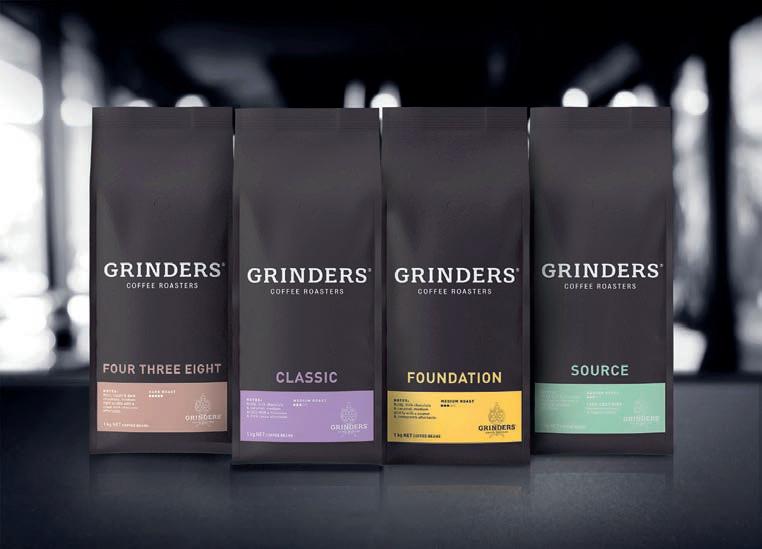
“We’re not just going to sit back and comply with the current rules but have an eye on the future to what’s the next evolution of packaging so that we can be more sustainable and not just wait for it to be a mandatory requirement,” Sally says.
For more information, visit www.jet-ap.com
Grinders Coffee explains why it’s committed to finding the most sustainable solutions, which includes trialling new packaging with current partner Jet Technologies.
68 beanscenemag.com.au Sustainability FEATURE Sustainability
Grinders Coffee is trialling new mono material packaging options with Jet Technologies.


A Buondi new look
Nestlé Professional has introduced a new look for its Buondi roasted coffee beans in Australia, featuring a modern brand design that reflects the country’s everevolving coffee culture.
The updated Buondi brand is tailored for Australian consumers who frequent pubs, clubs and cafés, and aims to enhance the coffee drinking experience in these locations.
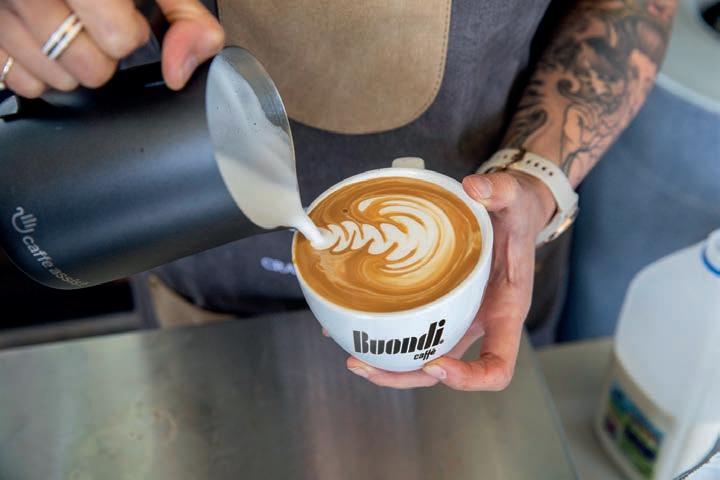
The brand philosophy is based on the concept of “Crafted for Now,” which emphasises the importance of connecting with a specific mood and life moment. It is built on the belief that individuals deserve experiences and occasions that are enhanced by the enjoyment of good coffee.
“Buondi drinkers lead a busy life,” says Jo Yuen, Nestlé Professional National Barista.
“Between work and family commitments, they want to make the most of their leisure time, which often includes out of home food and dining experiences.”
Whether it’s a smooth espresso after dinner at the pub, or an early afternoon cappuccino at a café catching up with friends, Jo says it’s important to make these moments count.
“Alongside great food and beverages, a good coffee can complement an experience and positively influence a person’s perception of the venue. An enhanced coffee offering can also encourage customers to stay longer at venues, providing additional revenue opportunities for pubs and clubs,” Jo says.
The finest beans from all over the world are sourced for each of the three coffee blends in the Buondi range, which Nestlé Professional roasts and blends in Gympie, Queensland, to suit the Australian palate and lifestyle. Jo says each of [Buondi’s] three blends are versatile and produce great tasting coffee, with or without milk.
The Dark Spark and Steady State blends contain 100 per cent Rainforest Alliance Certified (RFA) beans. The Complex Soul contains 90 per cent RFA Certified beans.
Nestlé Professional showcased these blends at its annual Buondi Barista Competition aboard the Pacific Adventure P&O Cruises ship. Six professional baristas from around Australia took part in a skillbased competition using the Buondi Dark Spark blend.
“Dark Spark is the coffee of choice on board P&O Cruises, and it is increasing in popularity in Australian pubs, clubs and cafés due to its rich roast,” says Jo, who was the barista trainer and judge for the event.
The judges critiqued the competitors on technical ability, cleanliness, self-conduct, and creative latte art.
Gilbert Mapa, a bar waiter at NZN Ice Cream & Coffee Bar won the event and title of ‘Pacific Adventure’s Champion Barista’. Michelle Fernandez, a bartender at Charlie’s Barplaced runner-up.
Speaking for the judging panel, Jo says all baristas from venues located onboard the Pacific Adventure ship did an incredible job regarding their skills, knowledge, and versatility in using the blend.
“It was clear that the baristas were experts in their fields, showcasing the versatility of Dark Spark,” Jo says.
The Buondi Good Day Out Festival was another opportunity to connect customers to the Buondi range. The family festival took place on 2 April at the Wallarah Bay Recreation Club in New South Wales, with attendees surrounded by scenic water views, live acoustic tunes, and served fresh cups of Buondi’s Complex Soul blend.
“With milk, Complex Soul brings out a delicate sweetness, and in a black cup you can taste the nutty and fruity notes,” Jo says.
Lucas Laird, Executive Chef of Dish Group, says more than 300 patrons attended the festival at Wallarah Bay Recreation Club during the breakfast period – a time that’s usually very quiet for the venue.
“Coffee lovers were able to take the time to step back and hit pause while they enjoyed their unique coffee moments, with attendees commenting, ‘it’s been awesome. I think they should do it every week,’ and, ‘the event was nice and relaxed, enjoying a coffee and some breakfast’,” Lucas says.
Nestlé Professional has provided pubs, clubs, and cafés with food and beverage solutions for more than 30 years.
Jo says events such as the Pacific Adventure P&O Cruises ship competition and Buondi Good Day Out Festival brings to life the unique coffee moments Buondi is created for, and was a great way to support Nestlé Professional’s customers.
“Our ambition is for Buondi to be the coffee of choice in Australian pubs, clubs, and cafés, and this is only possible through true partnership,” Jo says.
For more information, visit www.nestleprofessional.com.au
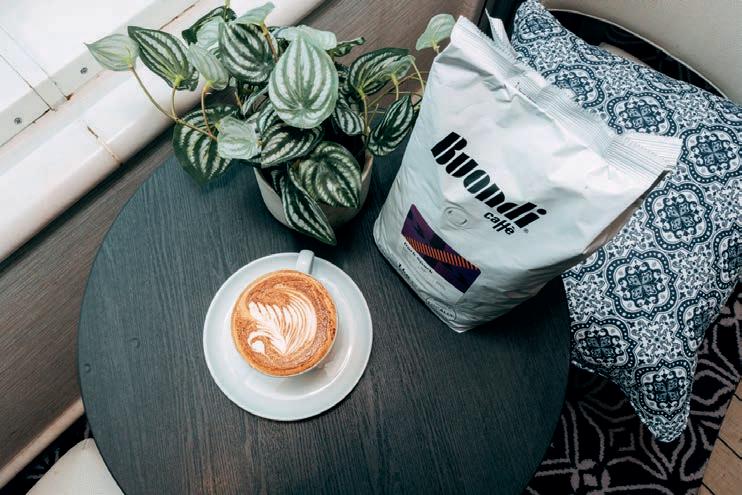
Nestlé Professional explains how it uses more than 30 years of experience to create precious moments for all Buondi coffee drinkers.
Dark Spark delivers a rich tasting milk-based coffee.
70 beanscenemag.com.au INDUSTRY PROFILE
Complex Soul is a blend for when customers need to hit pause.
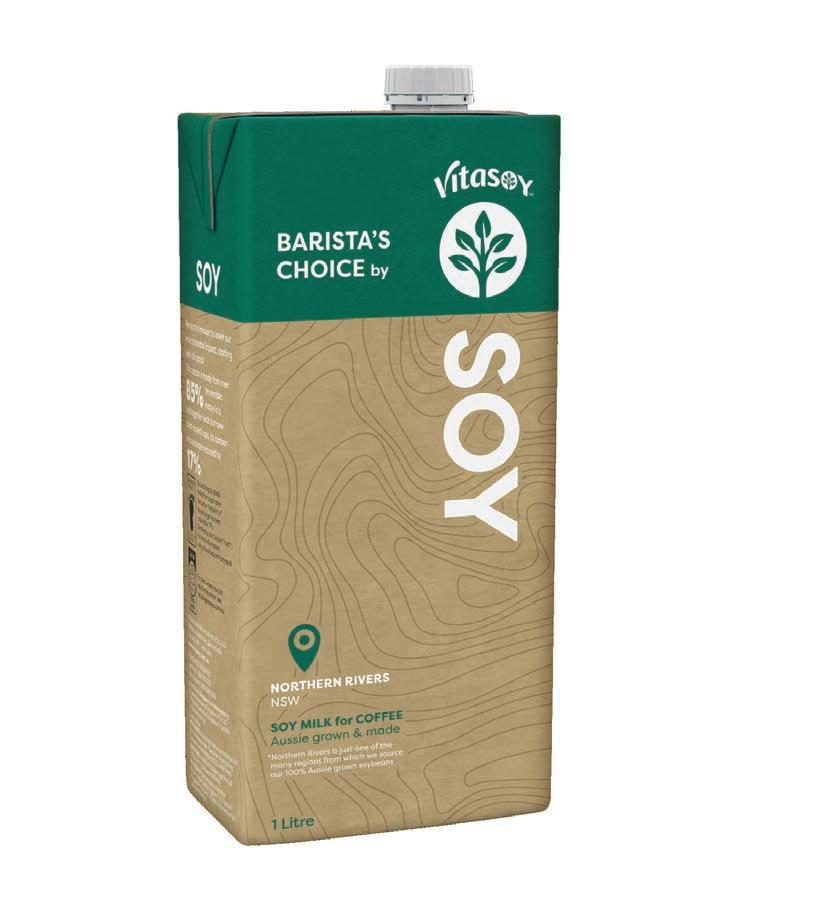
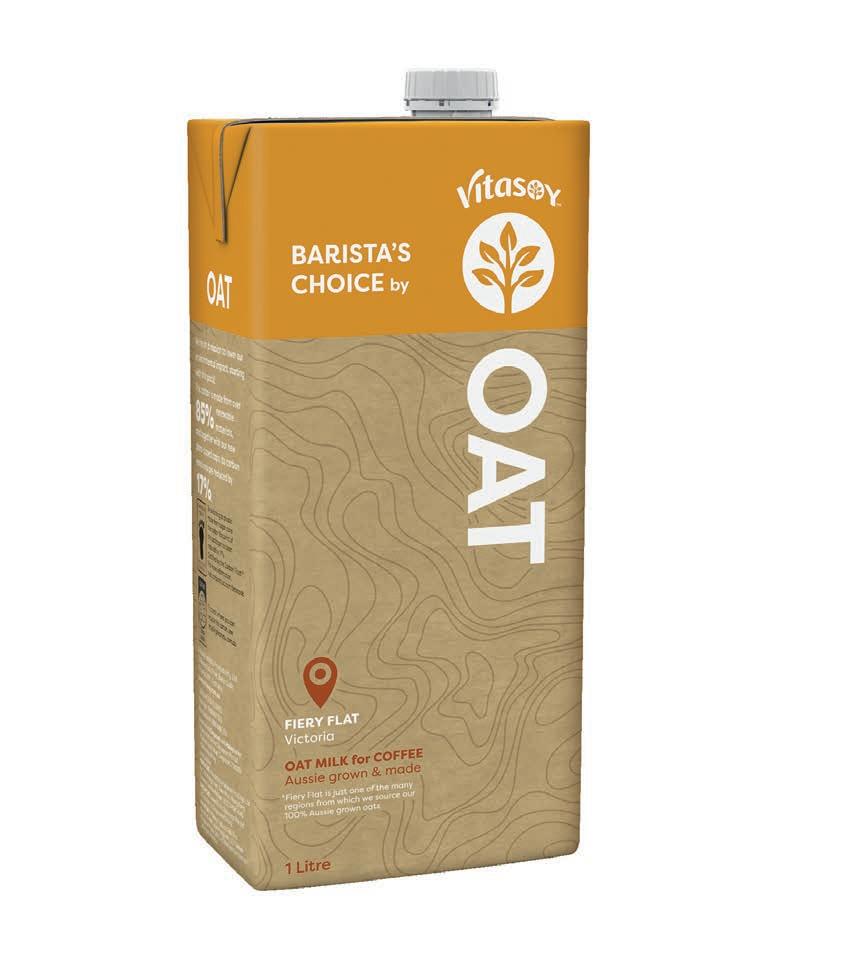
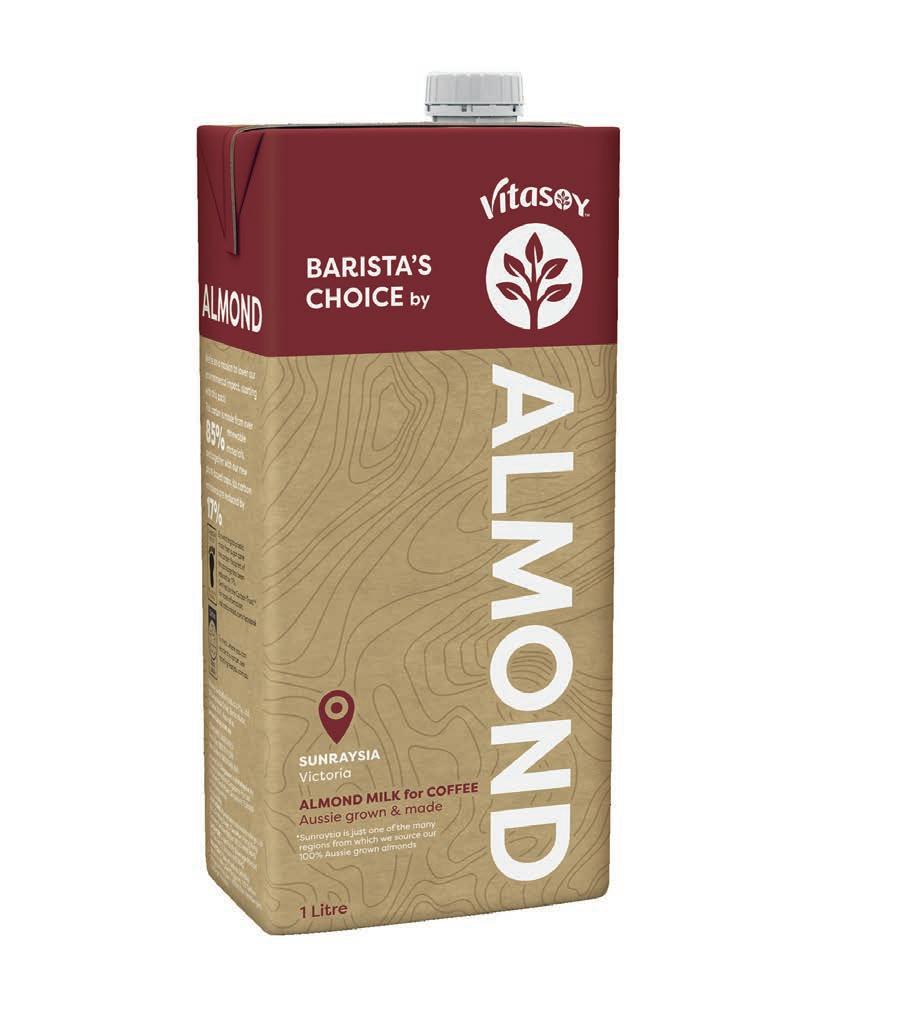
Vittoria victory
Vittoria Coffee unveils the winners of the Vittoria Coffee Barista Smackdown Competition, showcasing the barista talent
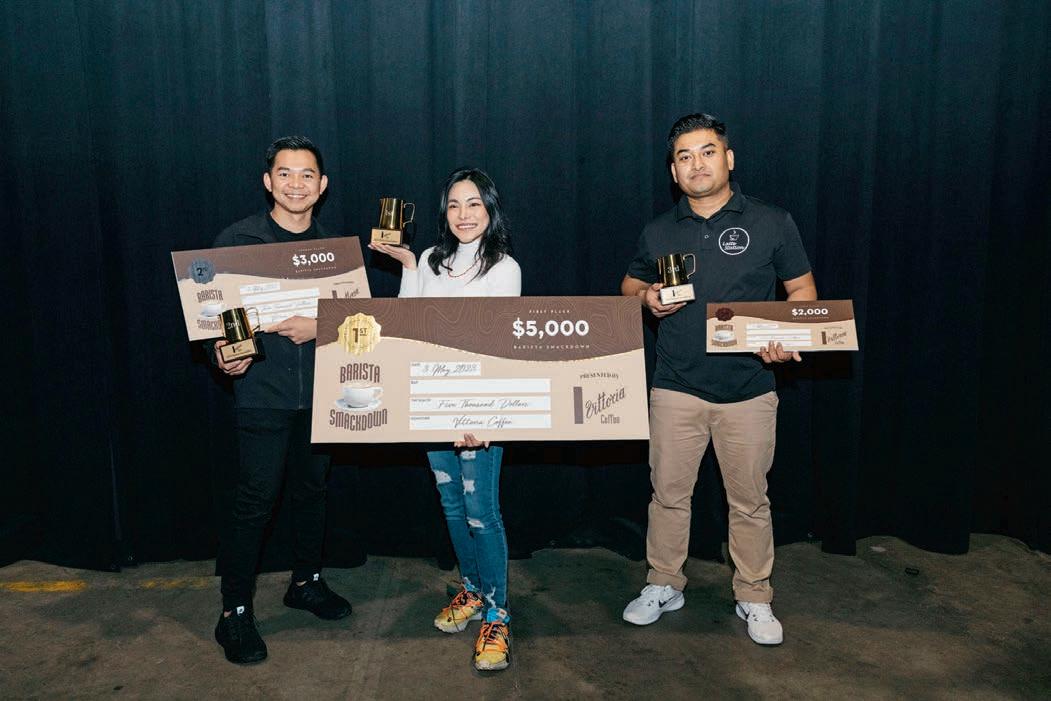
Combining over 65 years of roasting experience with one of the most technologically advanced roasting facilities in the Southern Hemisphere in Sydney’s Silverwater, Vittoria Coffee is not only about the art, but the science of coffee.
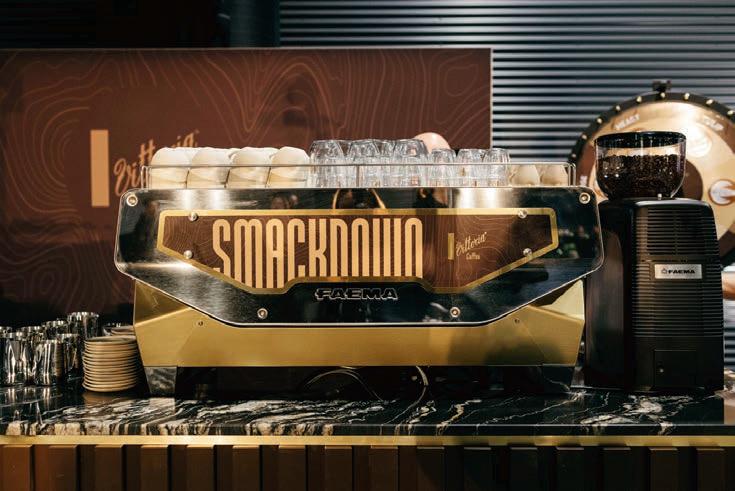
This dedication to coffee design was on full display at the Vittoria Coffee Barista Smackdown Competition, held on 3 May at The Venue in Alexandria, New South Wales. The event featured 40 of Sydney’s top barista talent, showcasing their latte art skills for their share in the $10,000 prize pool.
“We’re excited to have brought together over 150 hospitality guests in celebration of Sydney’s most-talented baristas. There was some incredible talent on display and I’d like to thank all the baristas who competed,” says Vittoria Food and Beverage Managing Director Rolando Schirato.
“Things have certainly changed since I joined the business over 20 years ago when free pour latte art was only just starting. We’re proud to support the people who continue to make Australian coffee culture the best in the world.”
The competition featured four head-tohead knockout rounds, judged by Rolando; Orazio D’Elia, Owner of Da Orazio Pizza + Porchetta and Mia Dolci; and Adrian Duquilla, TNB Café Owner.
Round one, dubbed the ‘Wheel of Latte’, consisted of 20 heats where baristas replicated a latte art design determined by a spinning wheel. Patterns included simple hearts and complex phoenixes. Round
espresso, latte, piccolo, and flat white within three minutes. Points were awarded for speed and aesthetics. In partnership with dairy alternative brand Califia Farms, round three saw 10 competitors pour their best tulips using oat milk.
The final round allowed five baristas to draw on their own creative flair. They made four coffees each including their own unique designs. Competitors created designs including a seahorse, fox, and bunny rabbits.
Australian latte art champion Rawirat
placed second, taking home $3000. Ashik Shrestha placed third and took home $2000.
Master of ceremonies Danny Clayton facilitated the tense competition while guests enjoyed a night of live music, street food and drinks.
Thanks to event partner Faema, event attendee Gina Filardi went home with a one-group Faemina coffee machine and grinder valued at over $10,000.
Vittoria makes a special thanks to all event partners, including Faema, Gartelmann Wines, Home Grown Cocktails, Food and Dairy Co, Califia Farms, Sydney Brewery, and Santa Vittoria.
“We are fortunate that Australia is recognised as a leader in specialty coffee so I think it is a great opportunity for baristas to test and showcase their skills at events like this,” Rolando says.
“For over 65 years, Vittoria Coffee has been instrumental in the evolution of Australia’s pure coffee industry and have remained a proud third-generation family business where our expertise in coffee making has been passed down from one generation to the next.”
For more information, visit www.vittoriacoffee.com
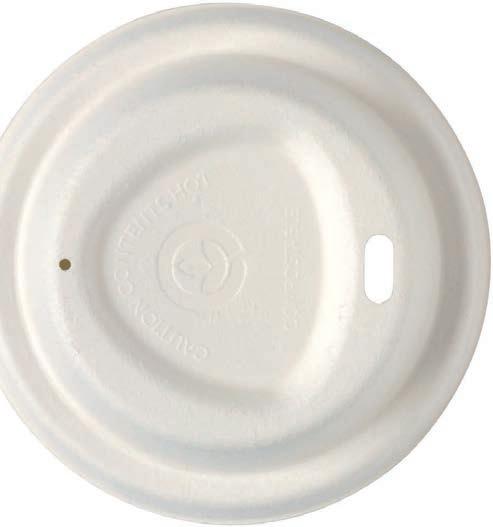 Competition winners from left: Enzen, Rawirat Techasitthanet, and Ashik Shrestha.
Competition winners from left: Enzen, Rawirat Techasitthanet, and Ashik Shrestha.
72 beanscenemag.com.au INDUSTRY PROFILE
The Vittoria Coffee Barista Smackdown Competition is designed to test the latte art skills of baristas.

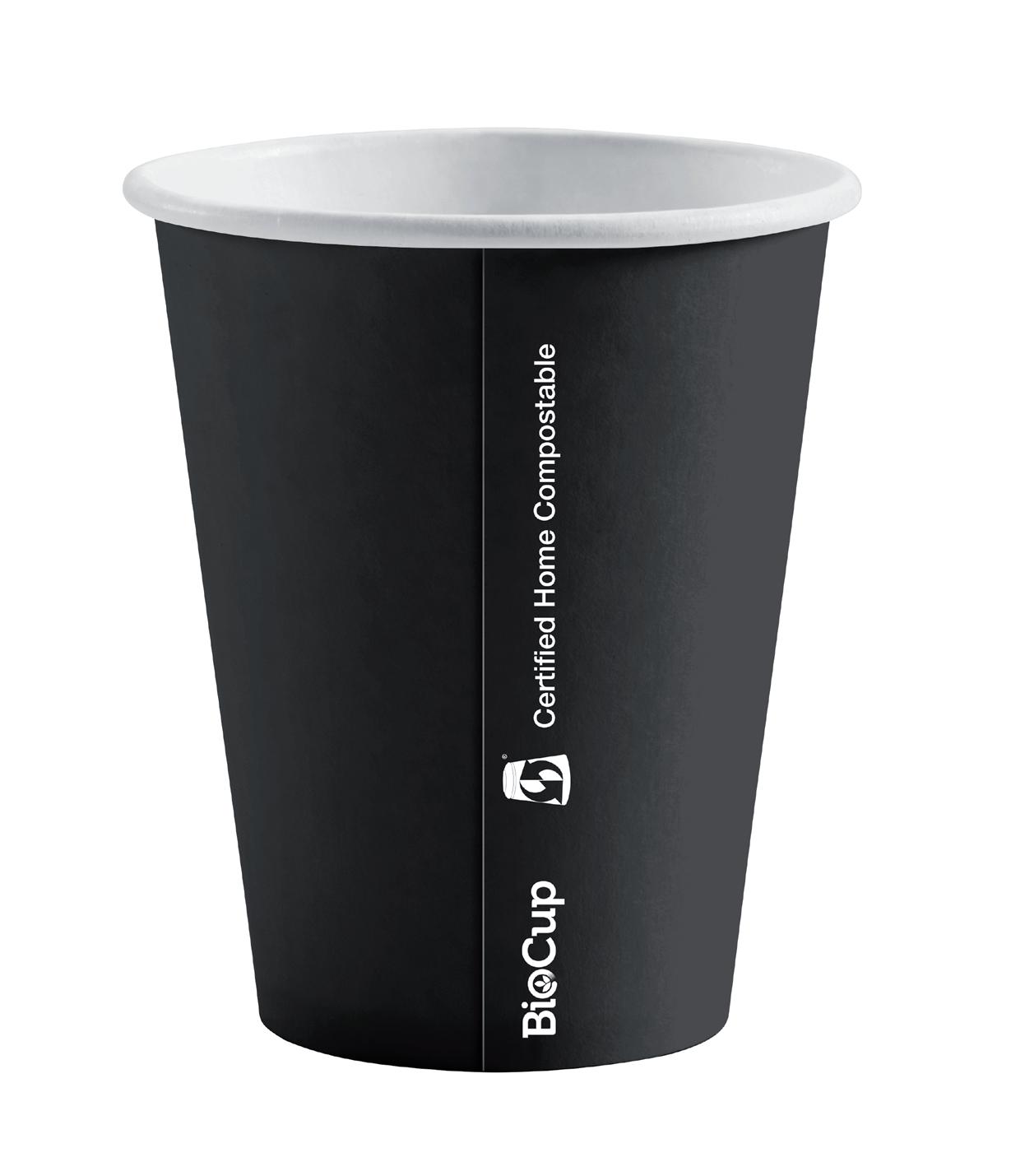
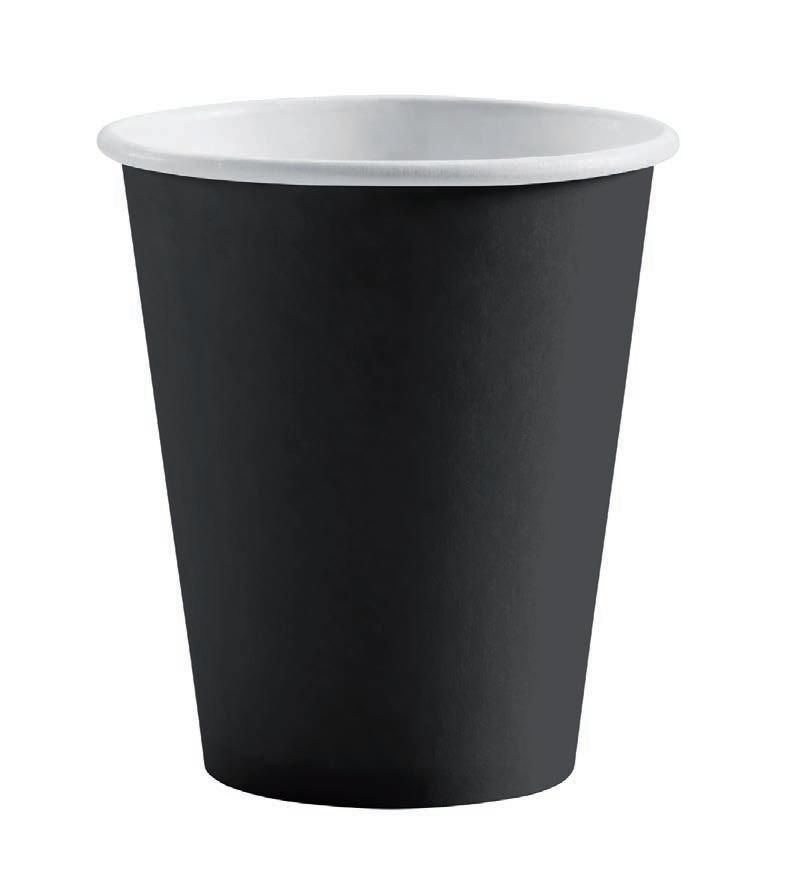

HOME COMPOSTABLE BIOCUPS & LIDS Plastic-Free Plant Fibre Lids Certified Home Compostable Cups & Lids Water-Based Aqueous Coated Cups biopak.com
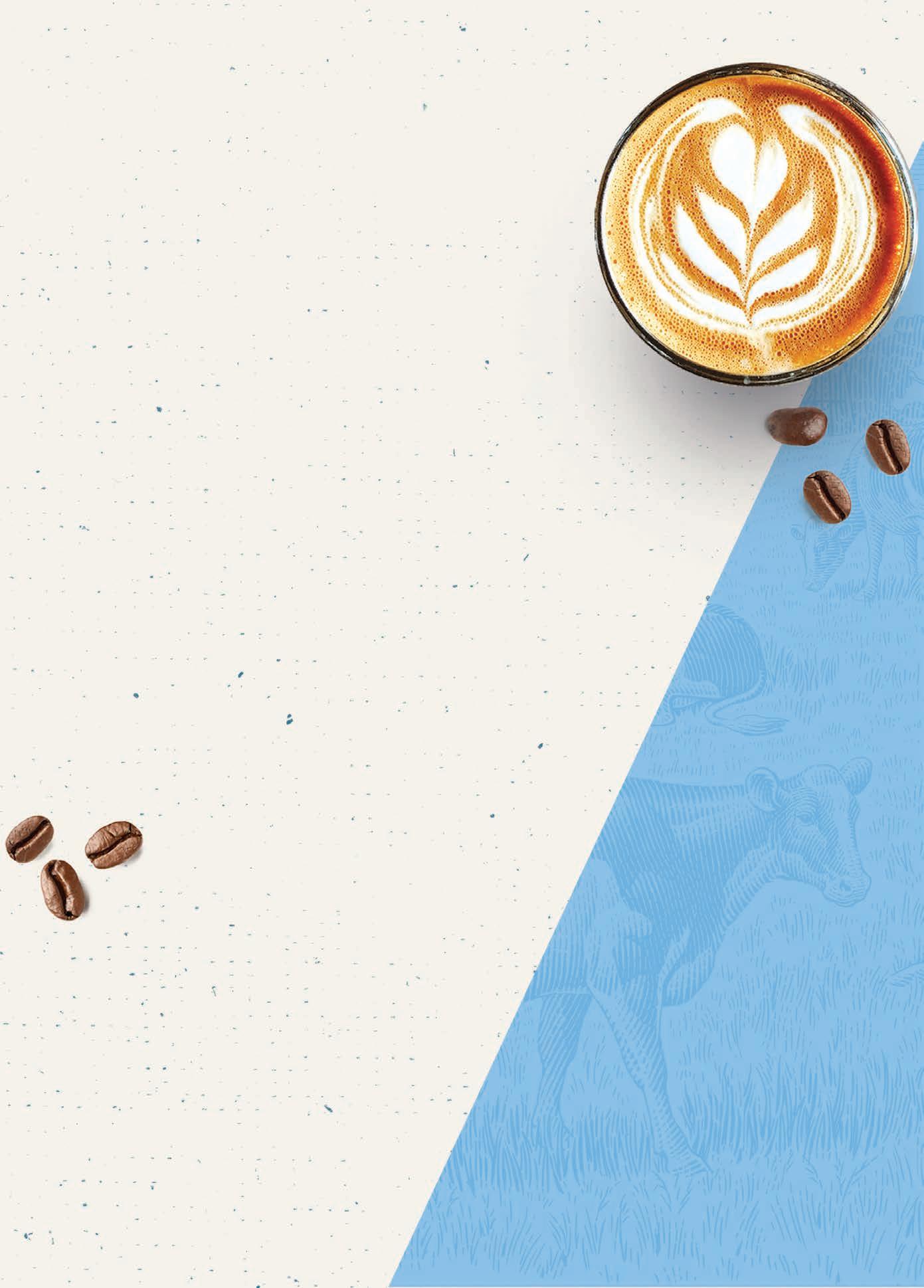
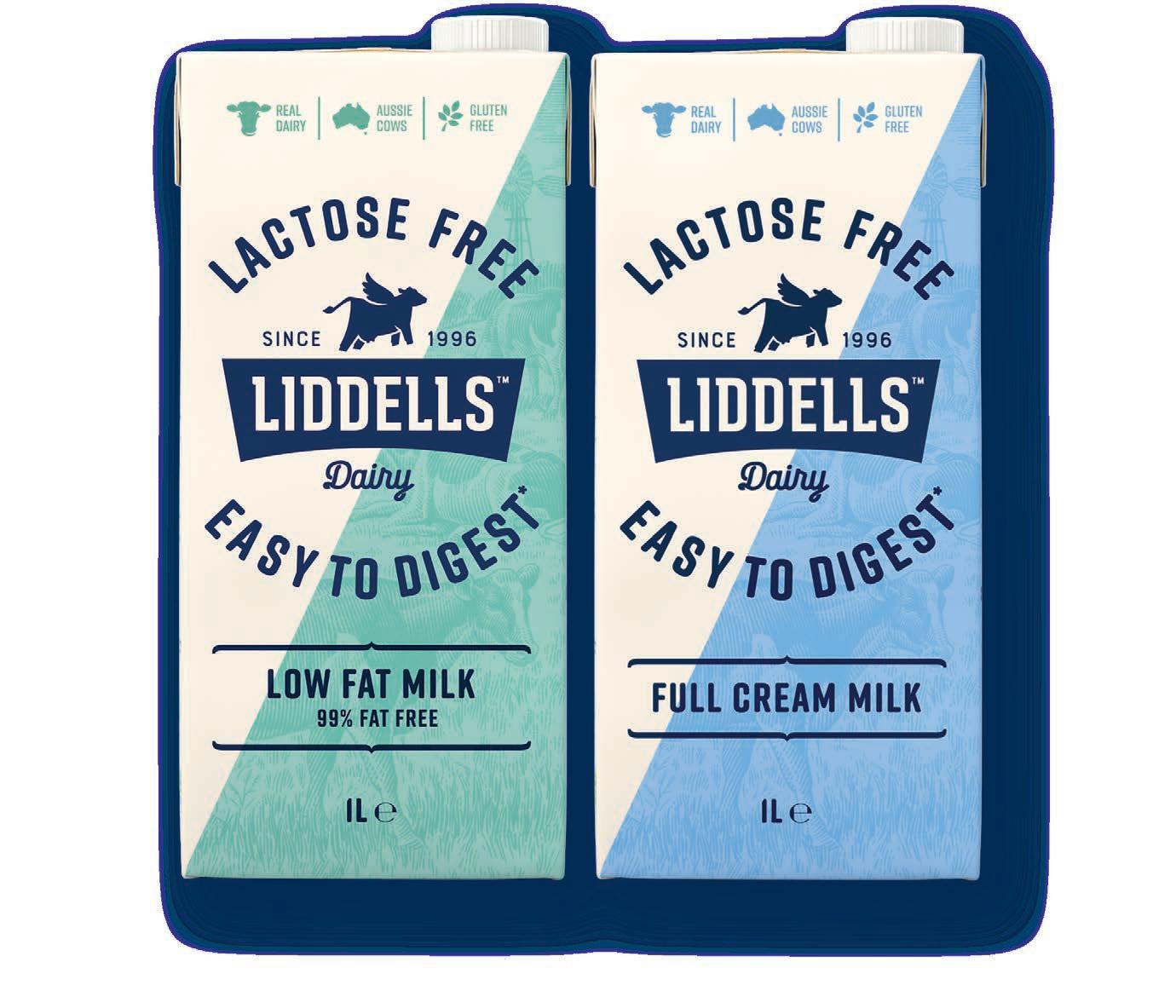
*Liddells products should form part of a healthy diet containing a variety of foods. Food images are serving suggestions only.
With Liddells your customers can have the freedom to enjoy the delicious taste and nutrition of real Australian dairy without the lactose.
Ultimate office incentive
hen COVID-19 first hit, many employees had little choice but to recluse at home and leave the peak hour traffic, shared working spaces, and sub-par office coffee machine behind.
Fast-forward out of the pandemic darkness and into the light, and there’s an obvious movement of city workers creeping back into the office for social, ritual, and productivity gains. But there’s an added incentive being used to lure workers back – a quality coffee offering – and St Ali is all over its potential.
“We’ve been watching on the sidelines over the last couple of years and have seen the technology in the super automatic coffee space come a long way. We’ve seen that change roll into coffee shops such as Blank Street in the United States and Europe [using super automatic machines], and now in the office space too,” says Lachlan Ward, CEO of St Ali Coffee Roasters.
“Historically, it’s been a space that we’ve steered well clear of because we’ve been passionate about getting the best cup of coffee in our customer’s hands. We did a tasting at a super automatic manufacturer and were blown away with what can now be produced at the touch of a button. It gave us a bit of confidence and sparked some intrigue.”
St Ali started looking into the corporate coffee space around and during COVID, and parked its involvement until the market settled. But what’s emerged out of the pandemic, Lachlan says, is a demographic of coffee drinkers who want what they want, when they want it.
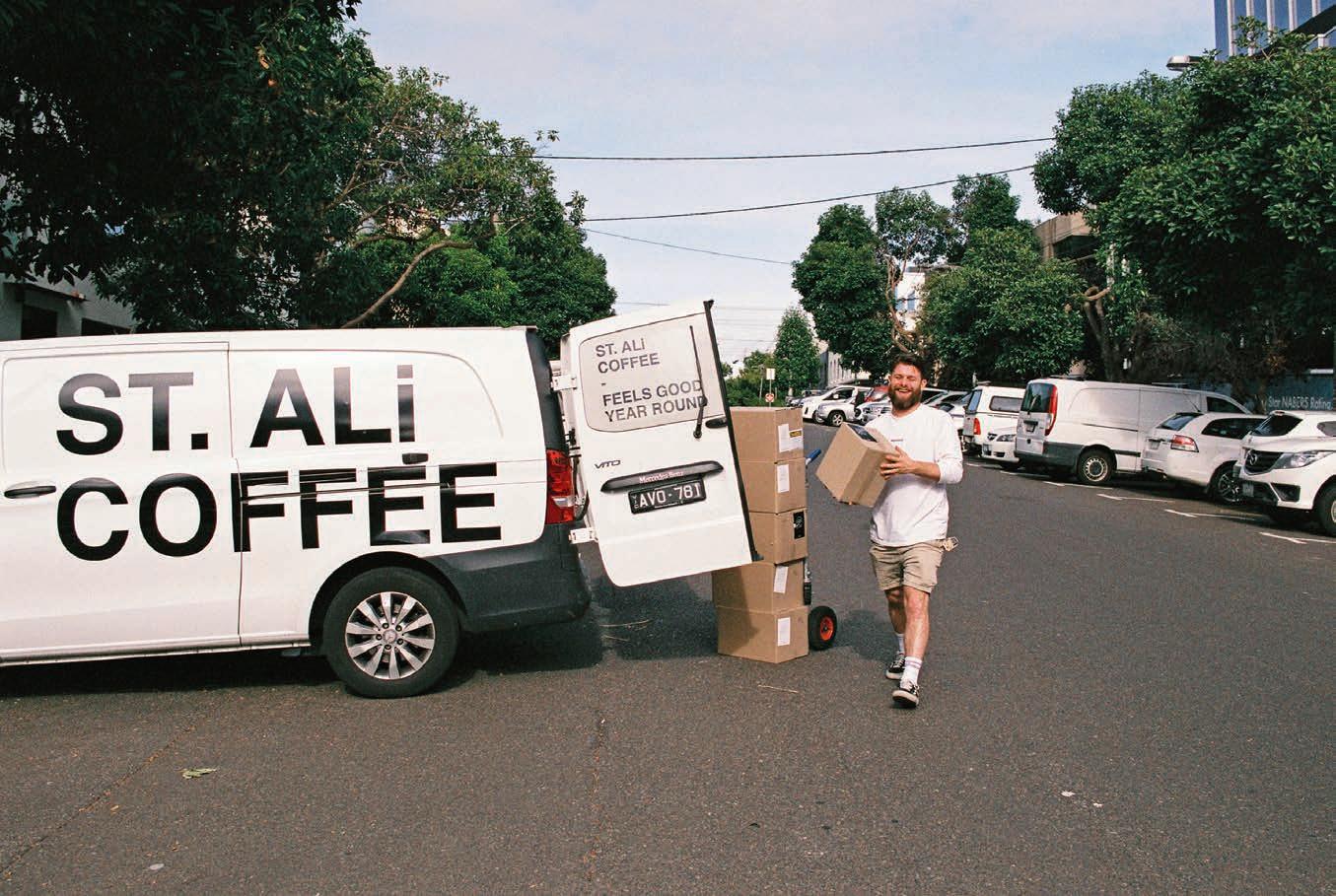
“The great thing about living in this day and age is that technology exists where you can get what you want on demand. How often do you watch live TV these days? You can get whatever you want, when you
want,” Lachlan says. “With that in mind, we decided, with people pushing back to the office last year and particularly this year, that the time was right to get into the office coffee space.

“We’ve always been passionate about trying to bring specialty coffee to weird and wonderful places, and the office should be no different.
“Previously, office coffee has been solutions-driven and not roaster-led. We saw a gap in the market. There’s a loyalty with coffee roaster brands, which gave us the confidence to really take a step forward into this space.”

St Ali embarked on a “painstaking” testing and trialling process with different super-automatic manufacturers to see how their coffee offering would be best adapted.
“Finding the right equipment partner and solution was really important. We needed to develop a coffee where the average Joe could press a button and still receive a quality coffee. That’s where the journey started,” Lachlan says.
“In terms of the coffee, we had to swallow our pride a bit and work out which of our blends do and don’t work in those machines, as the technology is very different [to an espresso machine]. What we usually suggest a café to use, isn’t necessarily right within the office environment.”

Corporate coffee is on the move. St Ali says the time is right to put average instant coffee aside and lift office coffee standards because there’s really no place for bad coffee.
beanscenemag.com.au 75 INDUSTRY PROFILE
St Ali has adapted its current blends for the office coffee space.
Due to the machine’s typically smaller doses, baskets and faster extraction time, St Ali adapted its current blends to be slightly more developed with richer-tasting notes.
“The thing that was lacking in a lot of the cases was body and richness, which we had to spend more time developing. In some cases, it meant using or adding another Brazil or Colombian coffee to make it a bit more robust,” Lachlan says.
“We’re really proud of the result. It’s about having the confidence in our products and their taste, and that’s the only way you’re going to get people to buy into this space.”
St Ali worked with its corporate partners to trial its adapted office offering to see what worked and what didn’t with their office equipment set-up, which Lachlan says spedup the learning curve.
He says there’s a time and place for different types of coffee consumption. Workers are still going to frequent a café for a cup of barista-made coffee, to get away from their desk, and a social catchup. On the other hand, they’re conscious of spending habits with rising inflation and cost of living.
“If they’re looking for a second, third, or fourth cup, you want to think about having that option available in the office where you can also keep your staff productive and on task without leaving the building, so an office coffee solution is a no-brainer,” Lachlan says.

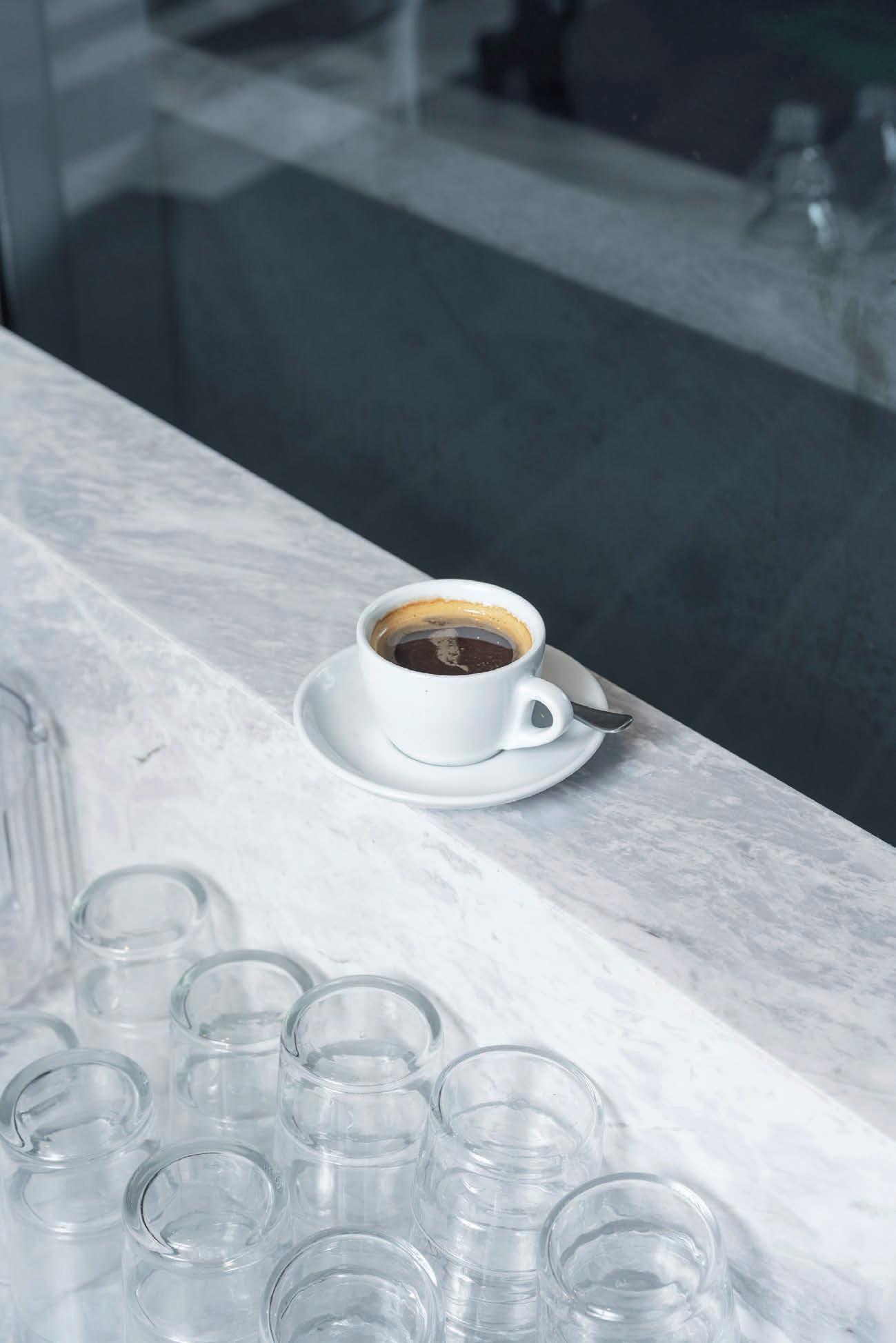
“The standard office kitchenette with a jar of instant coffee next to the water cooler and urn is not really going to cut the mustard anymore. Coffee has come a long way, and we’re really proud to offer a great coffee product that’s accessible.
evolved is customers’ expectations of high quality coffee.

“Great coffee has never been more accessible in Australia. You can’t afford to give people a bad experience,” Lachlan says.
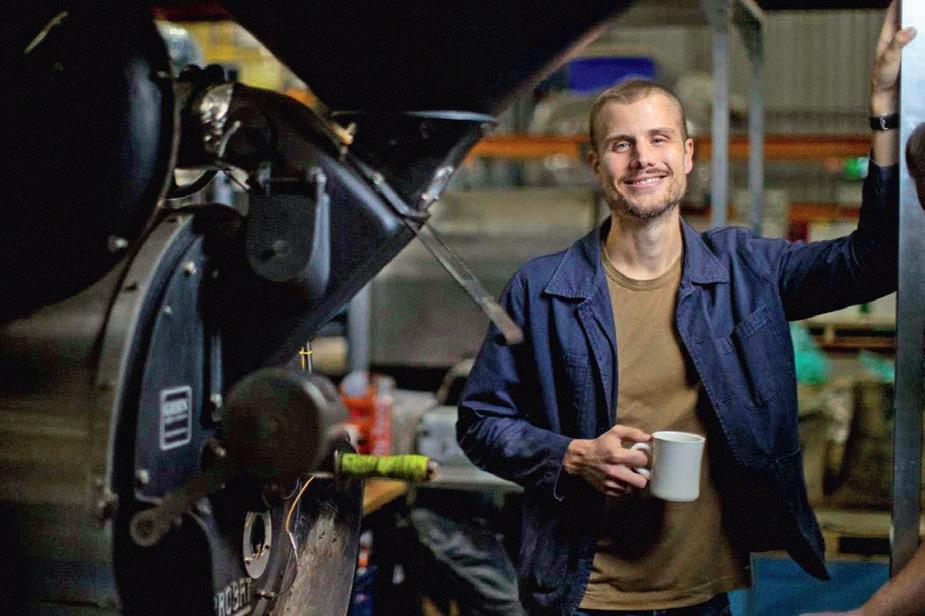 St Ali has been inundated with coffee requests as more businesses lure employees back to the office.
St Ali has been inundated with coffee requests as more businesses lure employees back to the office.
76 beanscenemag.com.au INDUSTRY PROFILE
St Ali CEO Lachlan Ward says the office market is another opportunity to get specialty coffee into the hands of more people.
PACKAGE YOUR COFFEE BEANS THE RECYCLABLE WAY
Introducing Detpak’s new RecycleMe™
Wholesale Coffee Bags, the easy way to remove single-use plastics from the environment.


Featuring our next generation lining, these bags are readily recyclable and can be placed straight into your customer’s kerbside recycling bin.
For more details, to request samples or to place an order, contact us:
AU 1300 362 620 | NZ 0800 338 725 connect@detpak.com | detpak.com
Key features & benefits:
• Designed to sit upright allowing for easy filling
• Easily heat sealed using existing equipment
• The base is machine glued, enabling oxygen egress for degassing
• Available in sizes 250g, 500g and 1kg. 2kg and 3kg available for custom manufacture
• Available for custom print in up to six colours
each round.

Half of these baristas will progress to round two: the latte art smackdown. Each barista will prepare three different patterns, displaying a mix of traditional latte art and their own creations. The winners will then proceed to the finals. The final round will be a three-round cup tasting competition. Baristas will have to accurately and quickly identify which coffee out of the three groups, is the odd one out.
Competition sponsor, Naked Syrups, sees Richest Barista as an opportunity for baristas to test their creativity using readily accessible ingredients, like its flavourings, powders, and sweet sauces, which can upgrade any café menu.
“It will be fantastic to see the Naked Syrups range in action and the most creative finished products baristas can come up with in the Richest Barista competition, which hopefully will be put into action once back in the workplace,” says Naked Syrups Business Development Manager Ryan Kalatzis.

“The beauty of our industry is that it is so diverse. Having local and international

The competition is designed as a fast-paced, knock-out style event.
baristas take part in this event presents a great opportunity to share and adapt ideas and see talent from near and far on display.”
Held at MICE from 17 to 19 August, baristas will have the chance to win a share of a $40,000 prize pool, the richest cash prize on offer for a barista competition final anywhere in the world. The winner will receive $25,000, runner-up takes home $10,000, and third place wins $5000.
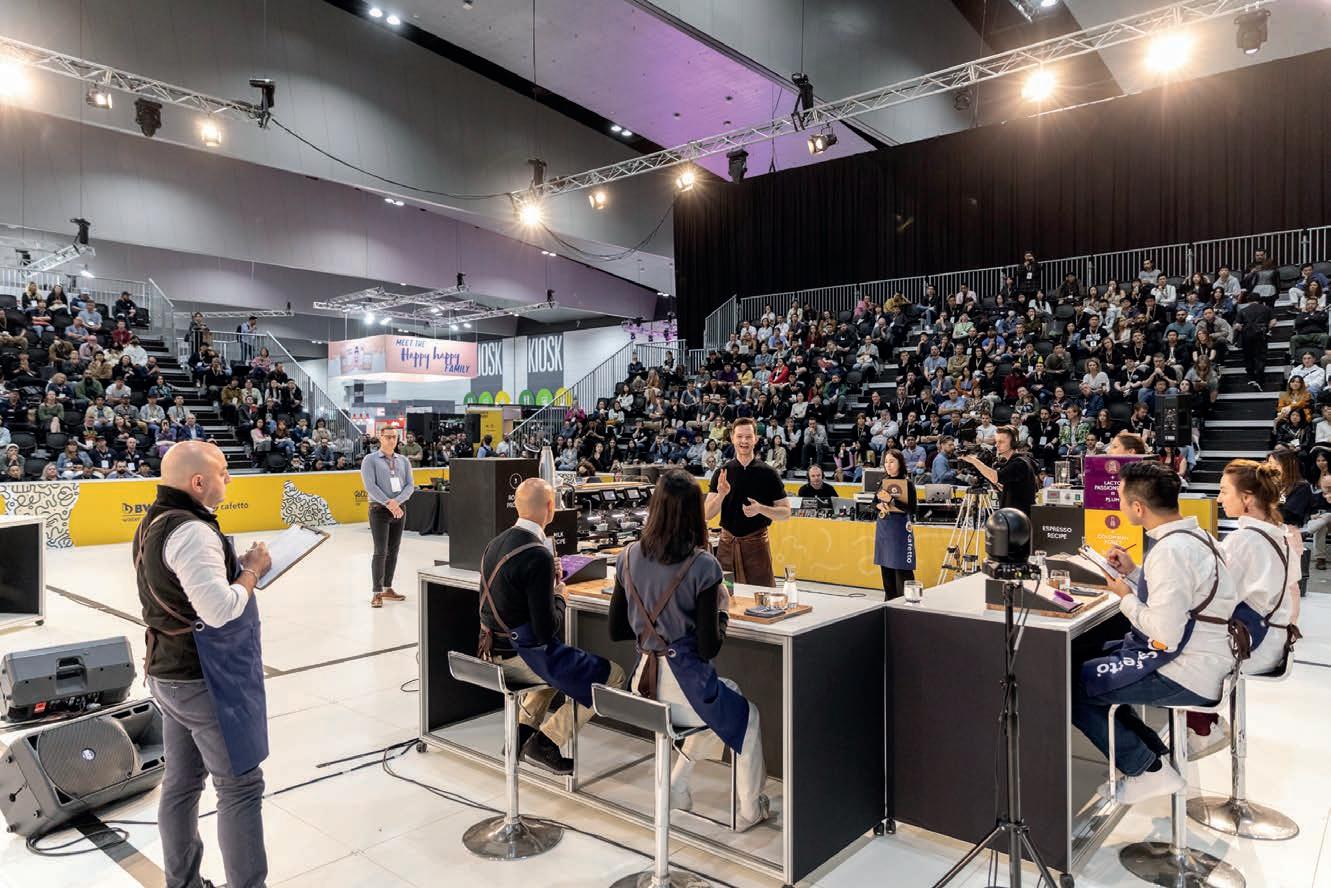
The Alternative Dairy Co. Senior Business Leader for Café and Food Service Rachel Glasbergen says supporting competitions like this are what drives the coffee industry. She says the alternative milk brand is eager to be a part of that journey.
“Celebrating 10 years of MICE is quite a milestone and working with the team to raise the profile of plant-milks in the competition space is important,” Rachel says.
Rachel says The Alternative Dairy Co. looks forward to connecting with the café community in a different environment and wants to bring something fresh to the plantbased barista space.
“Plant-based barista milks are a massive part of the industry now and specialty is where you find passion and innovation, which is who we are as a company. MICE helps keep us on top of trends and pioneers
78 beanscenemag.com.au
Today's Blue, is tomorrow's Green

As a carbon-neutral organisation, Merlo Coffee is dedicated to sustainable business practices that preserve our environment for tomorrow's generations. From our zero-emissions policy, to our solar energy infrastructure, compostable waste management and our quest to keep 3 million takeaway cups out of landfill, we pride ourselves on greener thinking when it comes to being blue.
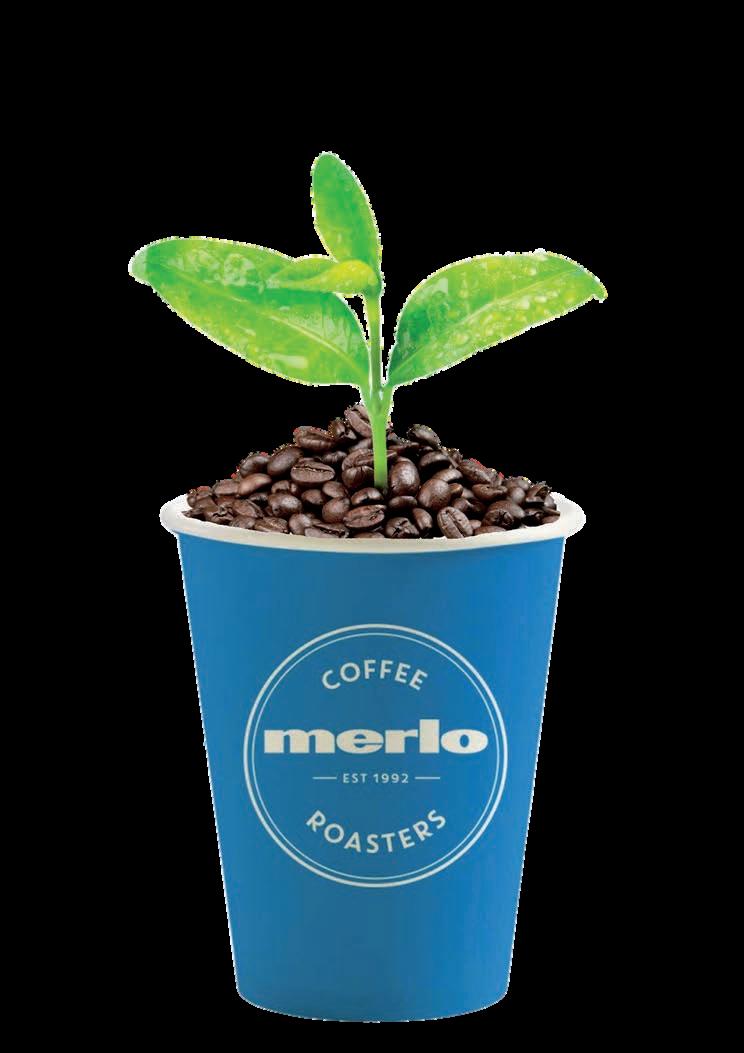

If you'd like to partner with an environmentally conscious, Australian owned, leading coffee roaster, call us today on 1800 637 567.





Frothin for more
Move over espresso martinis, Irish Coffee and muggaccinos, there’s a new froth in town. Known as ‘Cold foam’ or ‘milk cap’ internationally, with a push for it to be identified as a ‘frothy’ in Australia, MONIN Advocacy and Innovation Manager, John Davidson, says the flavoured foam on top of a beverage is on the cusp of breaking into the Australian market, it just needs a helping hand from the café market to turn from a potential trend, to an actual one.
“People are always looking for the newest café or the latest new craze. Nothing stands out as a huge trend of 2022. We’ve seen the
revival of slushie machines and cocktails on tap, but I think this year, people are looking for something to take them through to summer,” John says.
“The cold foam concept started in Taiwan food and market stores, it’s become huge in China, Singapore, Malaysia, Hong Kong, and the United States, and it really should be big here in the Australian hospitality market. There’s so much effort being put into this drink internationally and Australian should too.”
Already, John says PS40, a Sydney bar, is doing a reverse Irish coffee with cold coffee cocktail and hot cream floating on top. Iced tea franchises including Chatime are doing their own version, as is Bubble
Tea, Kang Tea, Gong Cha shops, and Starbucks.
“Pandan, osmanthus, and hazelnut flavours are big overseas, but I think we can challenge Australian baristas to be even more exploratory,” John says.
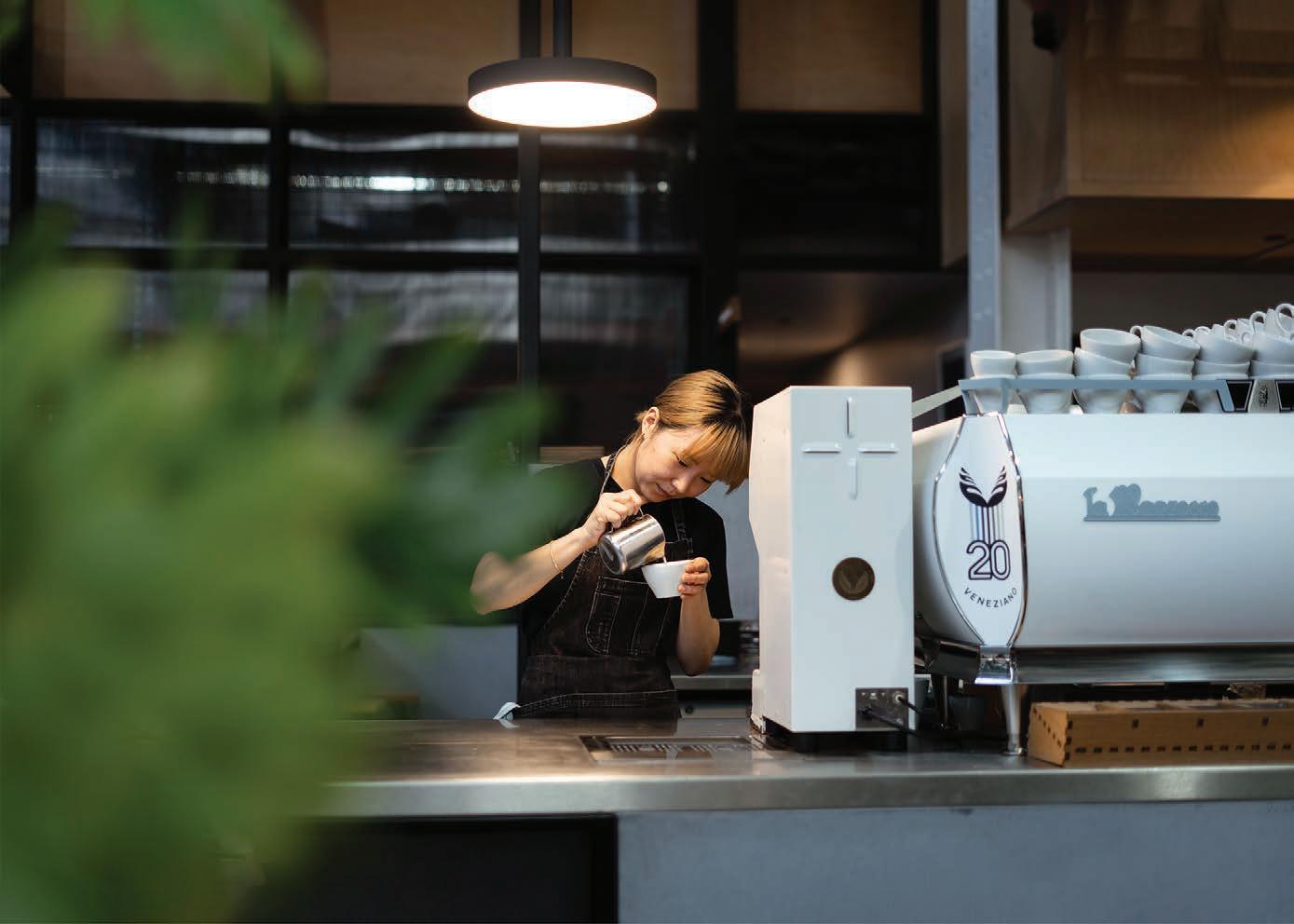
The master ingredient to creating the foam cap on any beverage is MONIN’s flavourless Liquid Frappe concentrate product, a vegan alternative to egg whites or chickpeas, which John says is essentially Xanthan gum, a common food stabiliser additive.
“It gives more texture because it holds air for a longer period of time, and gives a drink more composure,” John says.
“Mixing citrus and milk together
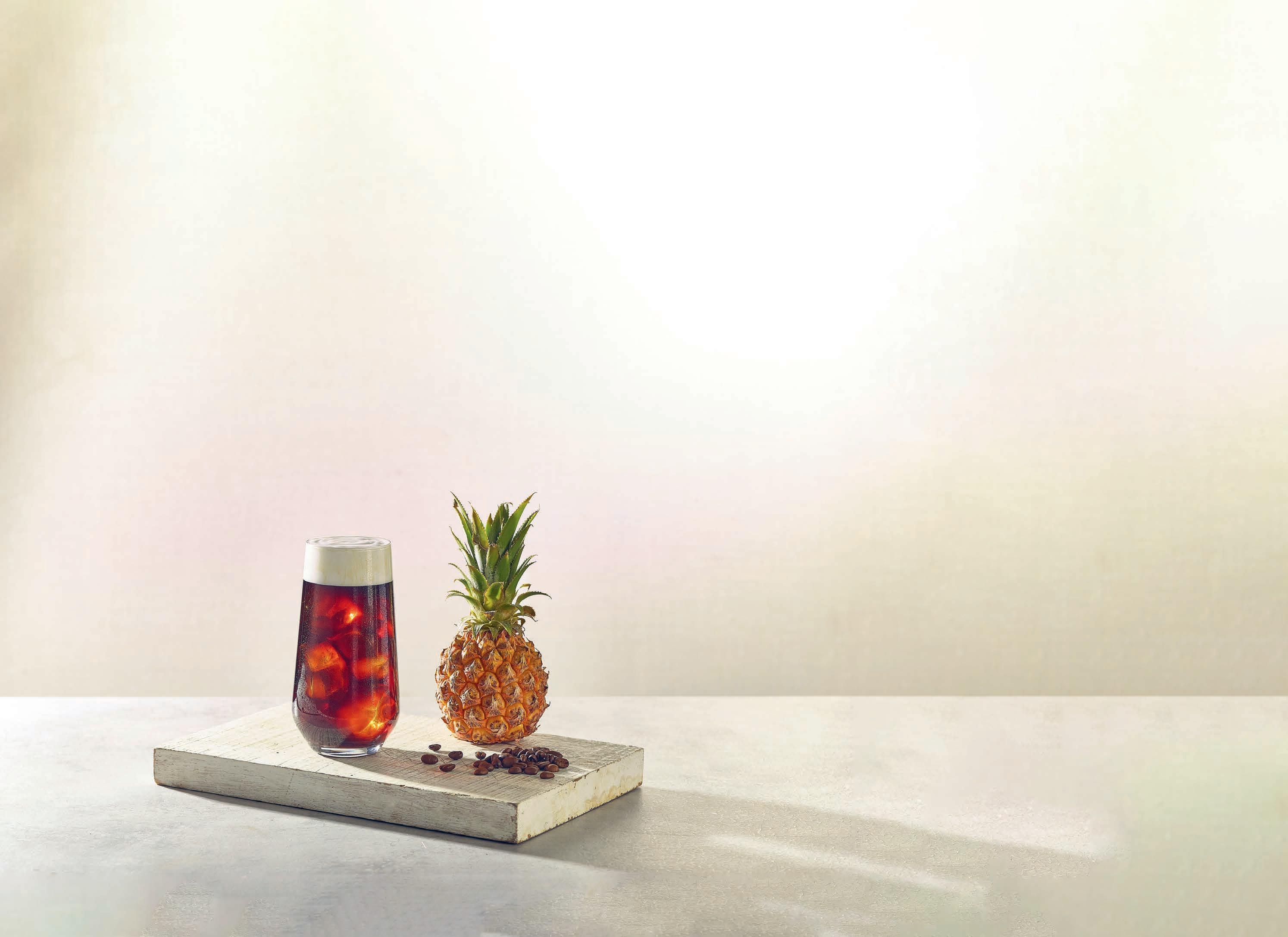
MONIN explains why it’s time for baristas to champion change with a new category of beverage that’s tasty, visually appealing, and looking to be a menu mainstay.
80 beanscenemag.com.au INDUSTRY PROFILE
MONIN says its time for baristas to get creative and introduce the cold foam to café menus.
would typically split, but aggressively whisking some of the MONIN Liquid Frappe concentrate through it helps to bind the ingredients together and make some really cool combinations. For example, a lemon cheesecake-style drink with fresh lemon juice, cream cheese, a bit of salt, and MONIN frappe has been really fun to create, and could be a really great garnish to any interesting beverage or cold brew.”
John encourages baristas to use the frappe concentrate experimentally and come up with flavour combinations that not only add something enticing to a menu, but will likely add a few extra dollars to a café’s daily takings.
“The texture and mouthfeel when you drink a beer with a really nice foam head or a whiskey sour is really enjoyable and pleasurable on the palate, but it also just looks really sheik. Why serve a simple juice in a cup when you can create and use MONIN Mandarin Syrup with fresh mangos or tea or juice, topped off with a macadamia foam?” John asks.
“It also adds something to the toolkit
Xanthan gum product from MONIN. If a barista can excel in getting more flavour into the milk, more flavour into the cream, and more aromatics into that drink head, then I think people would spend some hardearned Australian currency on that.”
The key for any café contemplating creativity with workflow, John says, is in the mise en place with all kitchen preparation done in the morning, and on-hand to assemble beverages throughout the day’s service.

“Preparation is key. If I knew I was going to make 150 to 200 of these drinks a day, I would do my prep and store it in the fridge. The beauty of MONIN products is that it will keep its composure all day. Then it’s just a matter of creating your infused tea, smoothie, juice blend or cold brew coffee, and pouring this cap over the top,” he says.
This type of experimentation is exactly the creativity John is seeking from MONIN Cup Challenge entrants for this year’s competition. Applications are now open. John says beverages that insight creativity and are already leaning towards emerging
in mind, and a great way to elegantly put some really beautiful mouthfeel and texture into your drink, which ties in with the criteria of the espresso-based competition incorporating at least 10 millilitres of any MONIN product, which is all about the five senses,” John says.
“It would demonstrate to the judging panel that you’re on-top of trends, reading educational material like BeanScene, and can confidently hold your own when representing Australian overseas in the international final.”
Participants are required to submit their recipe details to the MONIN Cup website for their chance to be flown to Melbourne to perform live, one night during the week of the Melbourne International Coffee Expo (MICE) from 17 to 19 August.
“It’s time to get creative, get inspired, and experiment. Change the norm, be ambitious, and get excited about the potential of beverages, rather than just conforming to the mould,” John says.

“Hopefully this time next year ‘the cold foam frothy’ has taken off and holds a

Imagine this: unspoilt coastline and World Heritage-listed Fraser Island on your doorstep, upclose encounters with humpback whales, a short drive north to Brisbane or south to Sydney, the promise of Queensland’s tropical sunshine, and the opportunity to serve the local community with quality-driven coffee.
Now consider turning this dream into reality. Miss Cocoa’s drive-thru coffee shop is up for sale, and as current Owner Jasen Barrie attests, it presents a unique opportunity for the right person.
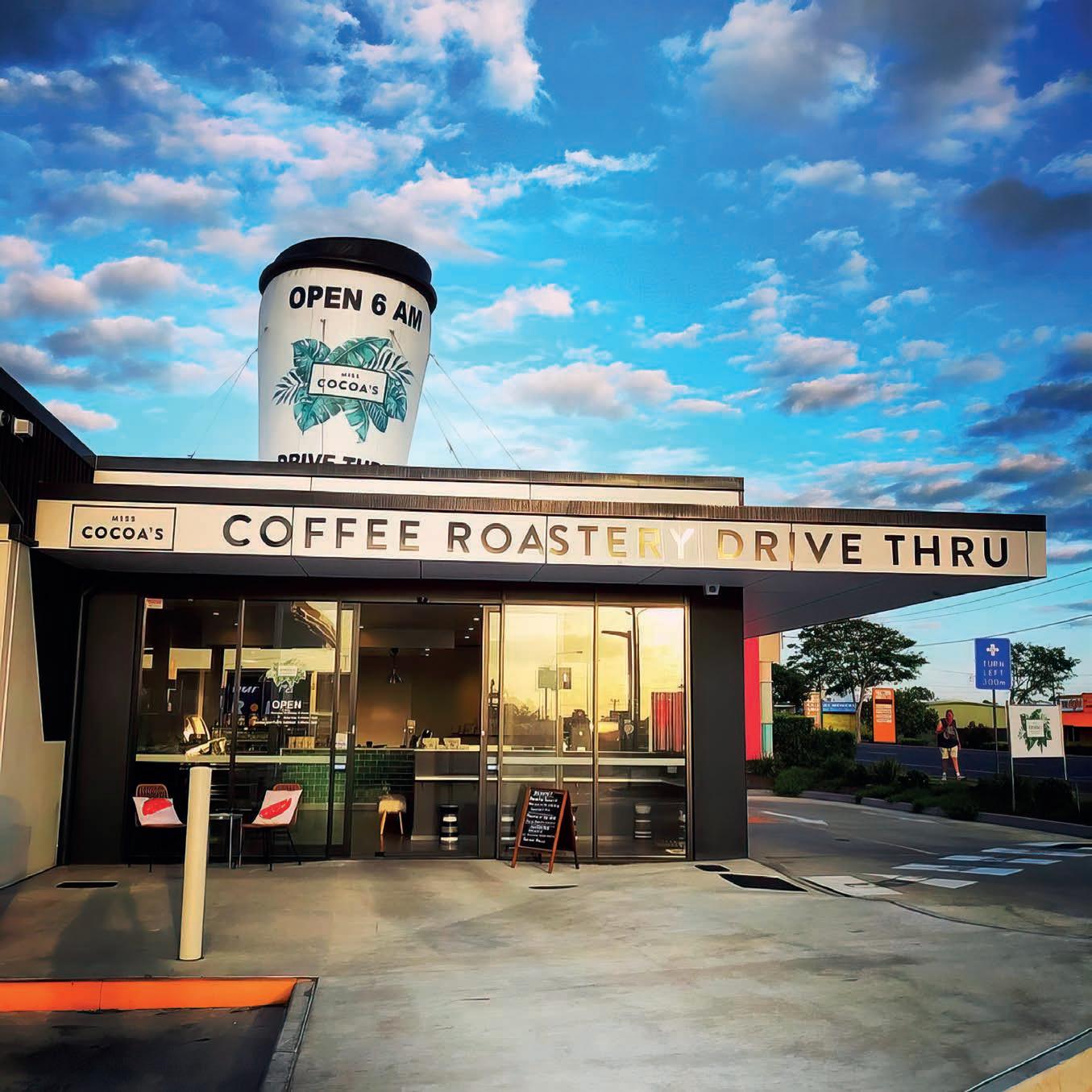
“The glowing opportunity here is that the business is in its infancy. It’s only four years old in a booming area of housing and population, and a beautiful part of the world. It’s got everything you need. If you’re
passionate about coffee, you’ll not only make it work, but take the business to the next level,” Jasen says.
“If you can control the product, you control the opportunity.”
Jasen first made his foray into the coffee industry in 2002 when he established a roasting operation on Queensland’s Bruce Highway, which he operated for 17 years. Back then, he earmarked the drivethru concept as the next “big” opportunity for coffee and identified a lack of specialty coffee shops operating in this space, aside from large coffee chains. Jasen trusted his instincts and embraced his own version of a drive-thru café concept by adding a roaster inside the venue for a point-ofdifference.
As cars approach Miss Cocoa with
their windows down, customers smell the wafting aroma of roasting coffee. As they make their order at the telecom booth, baristas identify the customer just by hearing their voice, and as they receive their coffee, they’re greeted with a smile and a quality-driven product. As they drive off, they get a glimpse of the active 22-kilogram Phantom roaster from Coffee Roasters Australia. It’s an in-and-out experience that takes place in a lightning pace of 1.5 to two minutes.
“We started Miss Cocoa’s drive-thru in 2019 with all guns blazing, then COVID-19 happened. While it changed the way people went about their work, and many felt the brunt impact of it, it changed the way the hospitality industry traded. Drivethru became a booming industry and it
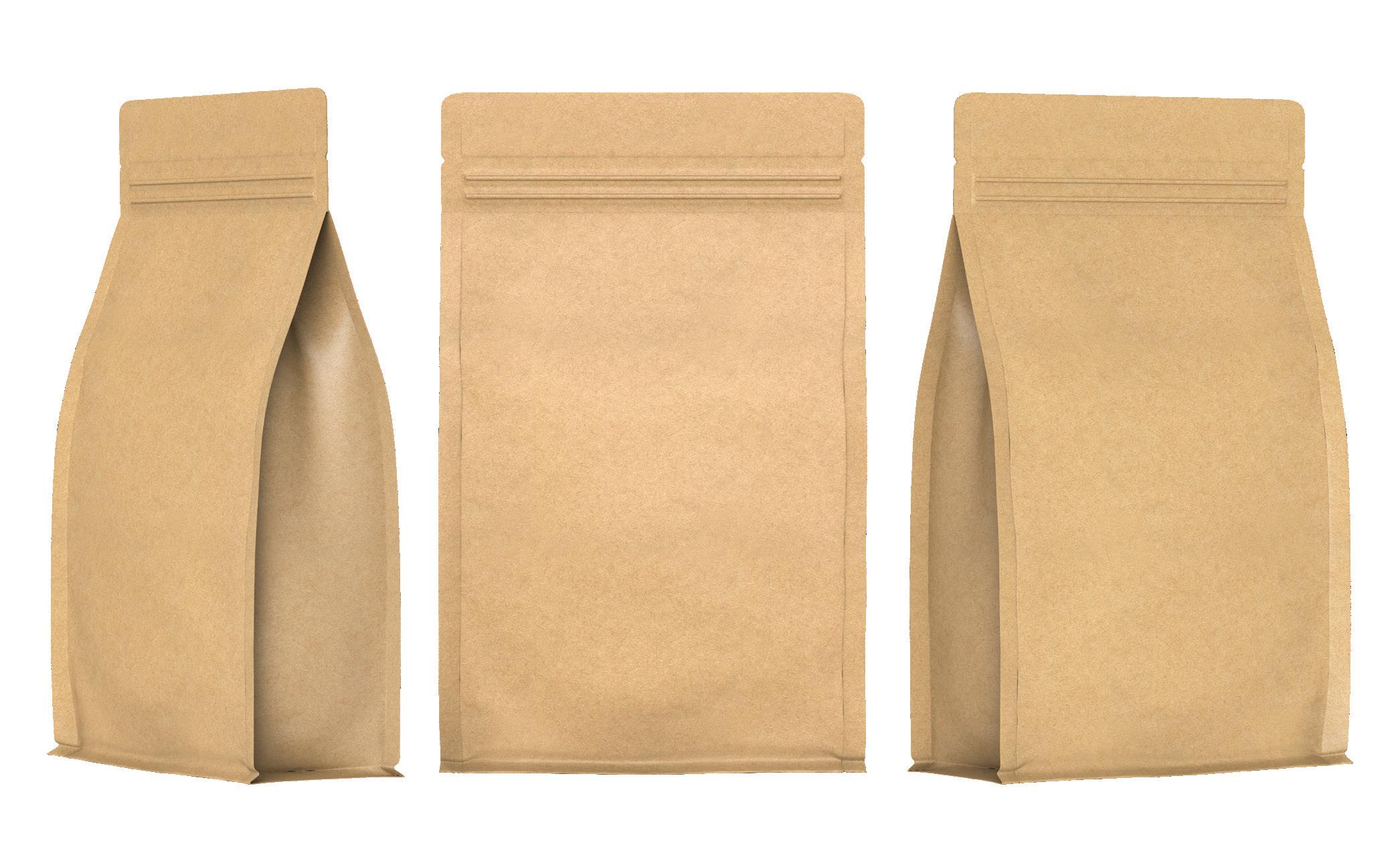
C M Y CM MY CY CMY K
“location, location, location”, and in the case of Miss Cocoa’s Coffee Roastery in Hervey Bay, it doesn’t get any better.
82 beanscenemag.com.au INDUSTRY PROFILE
Miss Cocoa is looking for a new owner who is passionate about business and a sea change.
hasn’t looked back. People on the Fraser Coast became used to it. They enjoyed the freshness and quality of our product but delivered at speed,” Jasen says.
“We thought we were doing a strong volume pre-COVID, but now we do around 200 kilograms of coffee each week out of the window, showcasing the need for people to enjoy their coffee with convenience, and their request for good coffee is only getting stronger and stronger.”
Jasen says this growth is not limited to out-of-window sales, but the roastery’s retail products. He’s seen a massive increase in the sale of roasted coffee for home consumption.

“Customers can park their car and come inside to browse our retail offering, or we can simply grind the coffee for the customer’s chosen coffee method at home, and deliver it to their car window,” he says.
Coffee quality is not the only thing booming in Queenslanders. Off the back of COVID-19 restrictions, the state saw a net interstate migration of 30,939 people in the year to June 2021 according to the Australian Bureau of Statistics.
“Hervey Bay is ideally positioned two hours from the Sunshine Coast and receiving lots of visitors from Melbourne and Sydney – and they know how to sniff out good coffee,” Jasen says.

“What I also love about this coffee shop,
is that it’s a community-based business derived from quality. The clientele of Hervey Bay are so loyal. We see our customers five to seven days a week and have 12,000 people on our loyalty program. We talk to our customers, we know what they want, and they know we can deliver. As a result, they become local, loyal customers because they know we pride ourselves on freshness and the processes we have in place to deliver the fast turnaround time.”
Those processes are a result of Jasen’s 20 years of industry experience, management, and strong leadership in training baristas who are driven and passionate about a career in coffee. Miss Cocoa’s baristas learn kitchen operations, how to prepare cold drinks and use a headset before getting familiar with the venue’s three La Marzocco machines and grinders.
“Only when our staff master shots with quality and consistency do they then get taught how to texture milk,” Jasen says.
Customers can select from Miss Cocoa’s “tried and tested” recipes that Jasen has been perfecting over the past 20 years to suit a majority of palates. They include the espresso-forward Cosy house blend, which dominants 80 per cent of roasting operations; the Adventure blend, suited to alternative brewing methods, which Jasen describes as “a little extra”, and
a seasonal single origin.
“There’s something for everyone. We’re roasting anywhere from four to five days a week. We then store the coffee until it’s at its peak consumption phase at the 10- to 12-day mark, and channel it through our espresso machines for customers to enjoy, so it’s a constant rotating cycle,” he says.
Jasen has refined that cycle to a fine art, which is why it’s been a tough decision to sell the business and find the best candidate to carry on the brand’s legacy. Jasen is excited to explore a new opportunity involving coffee waste, of which he’s been working on for the past few years.
“I love roasting coffee and I love this industry. I fell into it 20 years ago, and now is the time where I want to explore other growth areas in coffee, but I’ll definitely be involved in coffee in some way,” he says.
“The time is right to offer this unique business model to anyone tired of the nine-to-five grind, looking for a change of scenery or an opportunity to grow a business passion.

“You also gain my 20 years of knowledge and experience to help with a smooth transition and set you up for success. This could be the perfect opportunity for you.”
For more information, contact misscocoas1@gmail.com
Flexible Packaging, Pre-made Bags, Machinery, Rewind, Valves Talk to us now P: +61 2 8999 4999 | E: info@jet-ap.com Scan to learn more about Jet Technologies, or visit www.jet-ap.com Confused about what co ee packaging material to use? We’re here to help Introducing our Recycle-Ready Coffee Packaging - designed to meet APCO's criteria for soft plastics and the coffee industry needs in mind. Say goodbye to uncertainty and reach out to us to learn more about our packaging solutions. Coffee Packaging.pdf 3 8/5/2023 1:31 pm
The power of a cup
How do you celebrate CafeSmart week? Do you don bright yellow attire?
Pour smiley faces in latte art? Or use the occasion to educate consumers about the importance of supporting Homelessness Week?
The team behind CafeSmart hope it’s ‘all of the above’. The event, taking place from 1 to 7 August, is StreetSmart’s annual coffee industry-led event that unites hundreds of roasters, cafés and coffee lovers around the country to fundraise for their local grassroots homeless charities.
This year, in addition to raising muchneeded funds, event organisers hope to see bright canary yellow, limited editionengraved CafeSmart cups in the hands of consumers to celebrate made by Fressko becoming a Principal Sponsor, along with La Marzocco and Vitasoy.

“Last year we were simply known as a ‘friend of CafeSmart’ and they helped push our brand and our message to raise as much funds as we could. It felt like a really good alignment,” says Hayley Culley, made by Fressko Director of Marketing and Partnerships.
“Kindness has always been a major pillar of the business. Right from the beginning our philosophy has been, ‘Be kind to Mother Earth to others and to yourself’, so we’ve always looked at ways we can give back, whether it’s through small charity donations for schools, or through bigger partnerships as we’ve grown, including the National Breast Cancer Foundation and now CafeSmart, and it just feels right. Being a Melbourne business, going through COVID-19 and seeing homelessness’s rapid rise firsthand is awful. I was a single mum for a number of years, and the growing statistics around homeless females is quite scary. It is something everyone should be more aware of because it can happen to anyone, at any time.
“We need to be mindful that most people haven’t chosen to be in this situation, it’s by circumstance, so anything that we can do now to help prevent that happening to others in the future is super important,” she says. made by Fressko started in 2014 making tea infuser flasks, then drink bottles. In the last few years, it has adapted to the world of coffee with the release of a reusable coffee cup, designed in Melbourne. In 2023, the manufacturer will distribute its CafeSmart dedicated range (the Smiley Cup) through its own channels and wholesale accounts. $2.50 from each sale will be donated to the charity. It also hopes to ignite some inperson interactions with roasters and cafés throughout CafeSmart week.
Registrations to take part in CafeSmart 2023 are now open. Roasters and café partners are invited to sign up and help spread the word across all Australian states and territories.


From every coffee sold from participating cafés on Friday 4 August, $1 will be donated to CafeSmart. Roasters can help scale the impact of CafeSmart by raising funds per kilogram from the sale of blends. They can even offer wholesale customers one kilogram of complimentary coffee to show their support as a coffee supplier, like Padre Coffee is doing.
“Every dollar invested in StreetSmart creates a 3.8 social return on the community. If on average a coffee is $5, it creates close to $20 in social return. The power of one cup of coffee is huge,” says Cynthia Mac Caddon, Partnerships Manager of StreetSmart Australia.
Last year 650 cafés and around 50 roasters across the country took part in CafeSmart, including long-term supporters and roasters Single O and Five Senses Coffee. Each CafeSmart participant helped raise a total of $159,000 after what had been a challenging two years for the Australian hospitality community amid lockdown
restrictions. Now that the industry is bouncing back, Cynthia has strong hopes for this year’s event.
“I’d love to see close to 1000 cafés participating across the country. The more cafés that are on board and come together, the more powerful this year’s campaign will be,” she says.
“It’s just one week when we can all do something meaningful. I’m confident the coffee industry will back up this great event with more brands wanting to be part of it. Sign up, create awareness, and cover yourself in yellow. Tell your colleagues, go to a café, and talk about CafeSmart, and let’s break some fundraising records.”
This year marks the 13th year of CafeSmart. While the event has been running for over a decade, it needs the industry’s support more than ever before, with more than 122,494 people estimated to be experiencing homelessness, according to Streetsmart. Fifty-eight per cent of those affected are under the age of 35.
“COVID impacted the hospitality industry greatly, but the impact has lingered, it’s only deepened and increased homelessness, and the housing and domestic violence crisis we have here in Australia,” Cynthia says. “There’s economic fallout. The price of food has increased by 9 per cent, petrol by 18 per cent, and rent is through the roof. If it’s stressful for most people, with many looking at their own expenses more than ever before, you can imagine the stress it has on the most vulnerable people in our society at risk of homelessness.”
Another challenge is fundraising and volunteer shortages in charity organisations because demand has increased with more people asking for help.
“Fundraising is hard. That’s why CafeSmart is so important. We can reach so many metro and regional areas with grassroots organisations that know what’s needed in their area: food and pantry
CafeSmart is embarking on its 13th year and with the helping hand of a new Principal Sponsor and an industry in recovery, this year’s event is set to be bigger and more relevant than ever.
COMMUNITY NOTES 84 beanscenemag.com.au
supplies, clothing, whitegoods, medication, and secure housing. They are the glue that holds the community together,” Cynthia says.
PROFITABLE BUSINESS FOR SALE
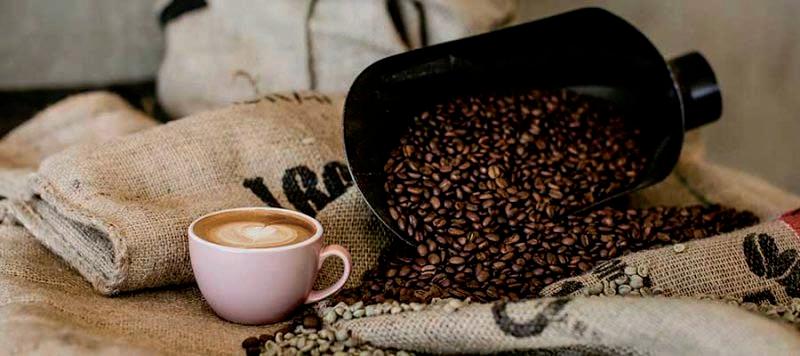



Last year about 96 community grants were issued to 130 frontline organisations on the back of raising $159,000. The projects are largely for preventative homelessness grassroots services and those targeting marginalised communities. These include groups supporting women’s domestic violence, indigenous support projects, disadvantaged youth, migrants and refugees, housing and food security, and mental and physical health or social isolation.
With cafés already a natural community hub, Cynthia says there’s no better place to start a conversation around homelessness.
“CafeSmart is an opportunity to give back and do good in your local community, by providing a rapid, essential response in a local way where it’s needed most,” she says. Hayley adds that the campaign is also an
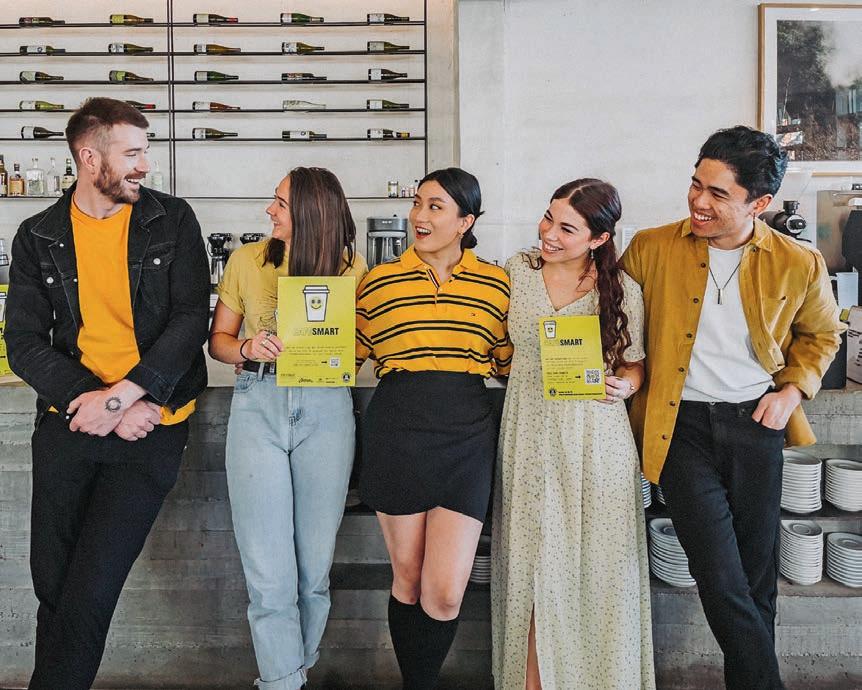
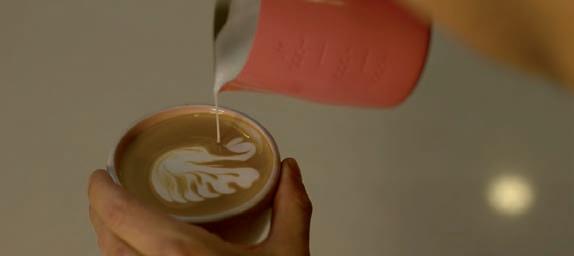

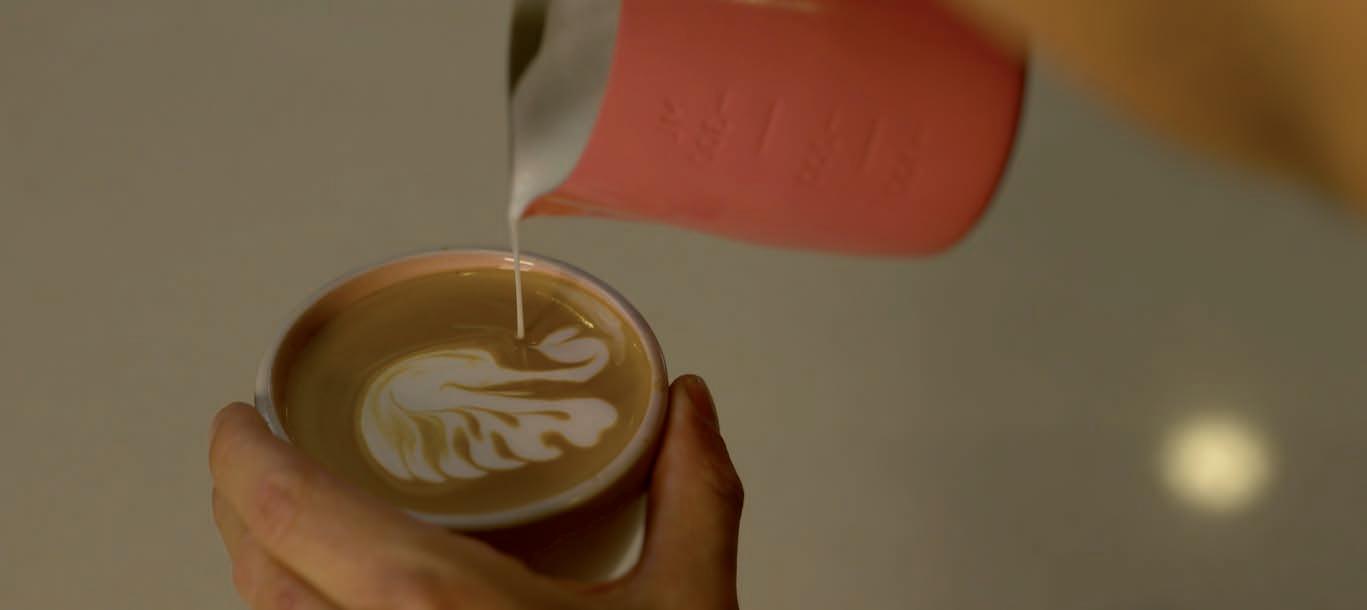
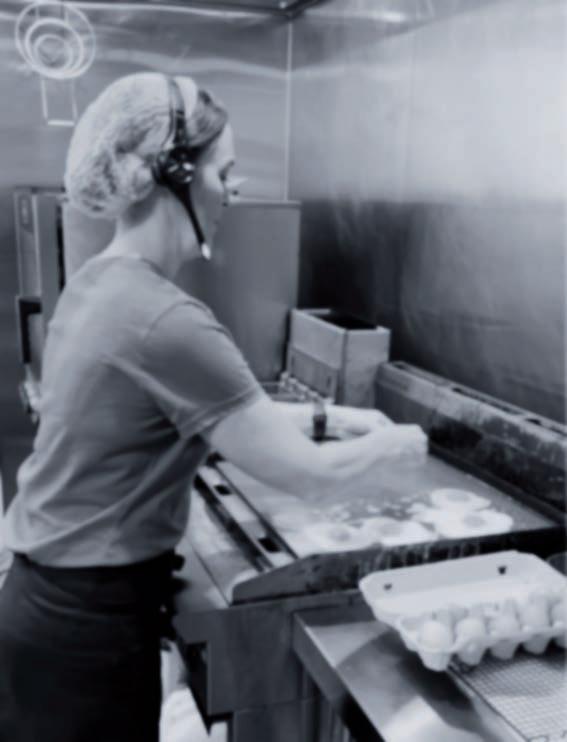
0438 275 723




www.lyndatregoweth.com/business-for-sale

Profitable, stable operating model. Long-term team in place. Full training provided. PROFITABLE BUSINESS FOR SALE COFFEE ROASTERY & DRIVE THRU CAFE INVEST IN YOUR FUTURE Located in a rapidly growing region in Queensland. Accessible to Brisbane, airports, and world-class tourism attractions. Solid income with attractive returns consistently year on year since establishment. 0438 275 723 www.lyndatregoweth.com/business-for-sale
give back to the local community via our Cynthia says. “The industry has embraced
On Friday 4 August, $1 from every coffee sold at participating cafés will be donated to CafeSmart.
Feeling good
In 2009, George Giannakopoulos took a risk. He had a 14-month-old child, a pregnant wife, a mortgage, and was the income earner in the household. After becoming disillusioned with the fading value of customer service in the food service and distribution sector, he decided to resign from his job and put $1000 on a credit card to start his own business.
“I wanted a business where you could walk up to the café owner, give the barista a high-five, have a laugh with the owner, build some real trust, and not be solely focused on profit and our bottom line. My wife was super supportive in the decision,” says George, Owner and Founder of Feel Good Foods.
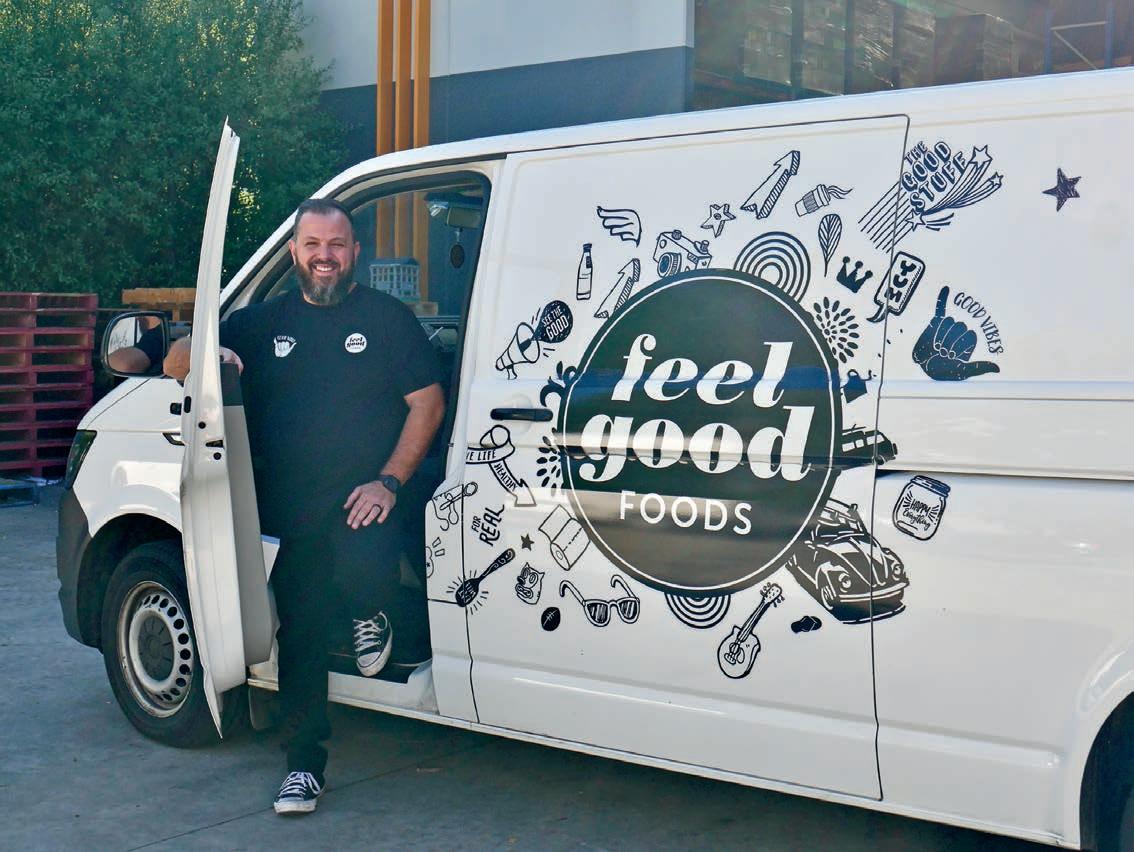
What George has created is an alternative food and beverage distribution business that pushes the boundaries and isn’t afraid to explore new things.
“We’re at the forefront of trends in the market,” says George.
“I’ve been a big supporter of mum-anddad start-up businesses. In the early days,
I used to scout emerging products from farmer’s markets, and cherry-pick items I thought looked pretty cool. My biggest question to the stall operator was ‘can you scale if I buy 2000 jars?’. Those that stepped up to the plate have been really great. We have some that have been clients since we started 14 years ago.”
One of its biggest and best examples is sustainable toilet paper company Who Gives a Crap, of which Feel Good Foods was one of the first crowdfunding donors.
“I rang the owner Simon [Griffiths] when he was crowdfunding and I told him: ‘Hey, I’m a distributor and a start-up as well, I’d love to have your brand on our books.’ He said: ‘George, I don’t even have a toilet roll to sell you.’ He had no product, he was just capital raising for the idea,” George says. “But once the first container arrived six months down the track, we jumped on and launched Who Gives a Crap into the retail and food service market. We now supply approximately 600 venues with that product.”
Other brands contributing to Feel
Good Food’s success stories are New Zealand’s Antipodes Water; and Australian mixer, mineral water and soda brand Strange Love. Gone are the days of George having to seek out new business to stay on top of market trends. These days, brands approach him, and not just Australianbased but global brands wanting to enter the Aussie market.
Feel Good Foods is selective of the brands it works with. Its prerequisite is to trade with “good and passionate people” who want to sell their quality-driven products. But what excites George most, is dealing directly with people and migrating cultures between both businesses.
“My hairs stand up when I sit in front of a founder, brand owner, or someone who’s really working hard in their business. No amount of money will show you how passionate that person is. If someone loves what they do, or what they’ve created, they come into a room and light it up, and that’s the type of people we want to work with,” George says.
Feel Good sales representatives work
How a little bit of belief and a focus on customer service has inspired a business that’s built a network of hundreds thanks to its trust in traditional values.
86 beanscenemag.com.au INDUSTRY PROFILE
Feel Good Foods Founder George Giannakopoulos is passionate about quality-driven, sustainable products.
hard to navigate the needs of their Feel Good Foods customers, which range from café operators to restaurants, independent supermarkets, organic grocers, bakeries, gourmet grocers, and sandwich shops.
The category range is vast. One of the most popular product lines is Feel Food Foods’ plant-based milk offerings, which has become mainstream.
“Cafés are trying to separate themselves from their competitors and exploring how they can do things differently, and that’s when we come in,” George says.
“We list customer’s prerequisites, such as gluten-free, organic, functional, sustainable, carbon neutral etc, and see if we can match up the product that tick as many boxes as possible. Ultimately, our café clients are guided by their own customers telling them what they want.”
And what they want in today’s market, George adds, is quality products, followed by a growing uptake in vegan and sustainable products.
“We do a lot of vegan cheeses and vegan burger patties, mayonnaise, and aioli. It’s definitely a channel where our customers are leaning on us for some guidance and support around what works and what doesn’t,” George says.
Feel Good Foods is also strong in the beverage category. It runs a Feel Good Fridge initiative that supplies venues with full fridges loaded with prebiotics, probiotics, kombucha, and Lo Calorie drinks.
“A typical scenario for us is going into a café that sells mainstream beverages, and offering them alternative brands that bring added value to the business. We stock their fridge with premium and organic beverages,” George says.
“It’s about getting the venue to see the value in ranging alternative brands, helping them separate from their competition, and having a lasting effect on their customers who will return to the café where it tried an awesome new premium drink.”
Throughout the COVID-19 lockdown, George says Feel Good Foods was fortunate to have a growing retail footprint while its café customers turned into providores or worked at restricted levels. With most café operators now back to pre-COVID volumes, George says the company is in growth mode throughout Victoria and Tasmania, especially in regional areas. It also has plans for further expansion to other states in the coming months.
“It’s hard to believe when I literally started this business from nothing. I was knocking on the doors of customers every day, selling three boxes of juice here and three boxes of soy milk there. Within 12 months we had about 50 to 60 customers regularly ordering, and now we have around
40 staff members and approximately 1600 active customers,” George says.
Feel Good Foods is passionate about its customers ‘feeling good’ on the inside, and it’s a message the company embraces internally. It’s for this reason George embraces a company culture that enthuses a strong sense of community.
“About 70 per cent of our staff have been here for more than five years. We have five people hitting long service, and one of those team members has been here from day one. We sometimes spend more time with our work family then our actual families, so it’s important our work culture is a positive experience,” George says, noting that each team member gets their birthday off work, and every Friday lunch is enjoyed together.
“I encourage people to have input, to own mistakes, learn from them, and support each other. The team knows I’m available and approachable. I’m not just a boss, I’m part of the cog just as much as they are.”
It’s this forward-facing team that’s at the forefront of customer needs, which extends to fast and reliable deliveries. That’s why Feel Good Foods maintains a quick and flexible delivery model, works on demand, and supplies customers within 48 hours of ordering.
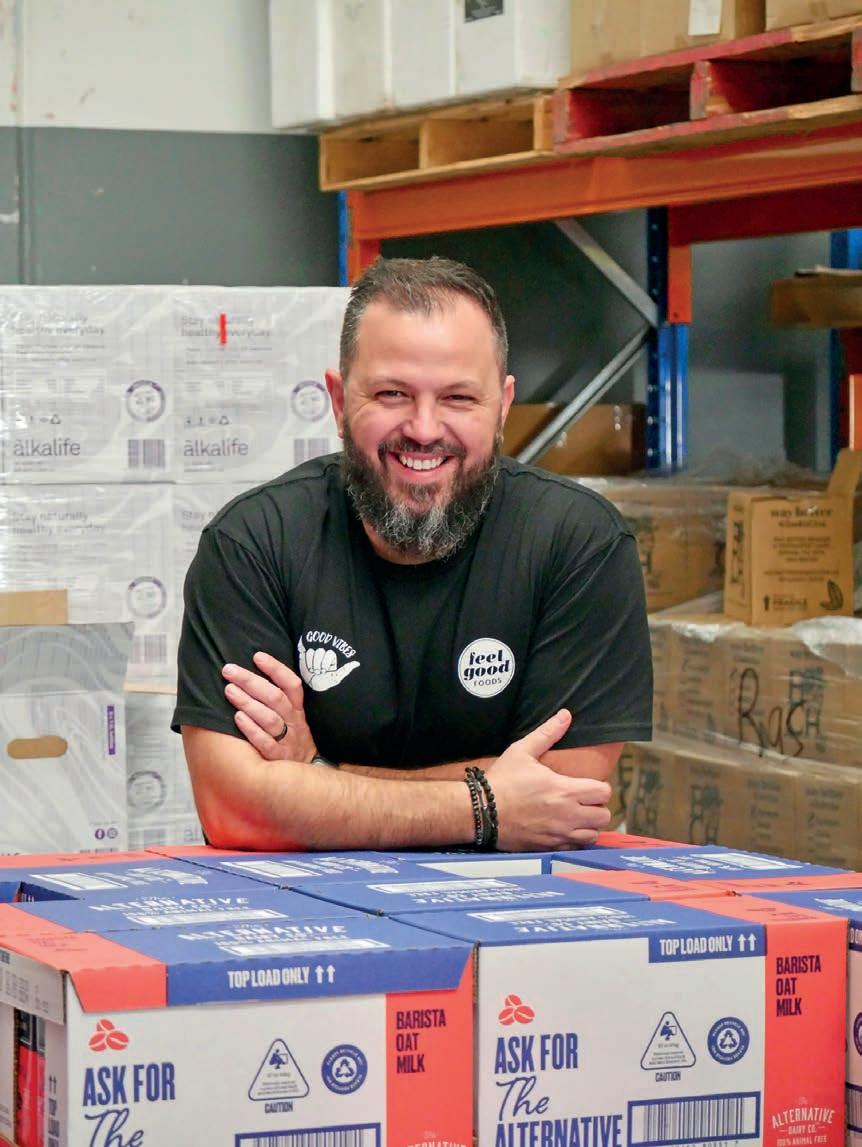
George’s traditional model of operation
pertains that the company has its own delivery drivers and branded trucks for the majority of orders, so that customers become familiar with the same Feel Good Foods driver.
“They get to build a rapport and talk about the footy. It’s a traditional service, pushing the boundaries, delivering alternative products, and shaking up the market. That’s what we do,” George says.
He’s the beating heart of the business and as hands on as ever, driving delivery trucks and visiting customers regularly for coffee catchups.
“It’s not a job for me. I actually love what we do, and we have a lot of fun, but it’s important to stay humble. I still love the customers. That’s what drives me every day. It’s the relationships, the laughs, and the banter,” George says.
“We want them to ‘feel good’ every day through their interactions with us, and that’s where the name Feel Good Foods comes from. If you eat what we sell, you’ll feel good. If you deal with us and build a relationship with good conversation and transactions, it’s going to make you feel good too.”
For more information, visit www.feelgoodfoods.com.au
beanscenemag.com.au 87
Feel Good Foods works with approximately 1600 customers and supplies 600 venues.
Dual purpose, dual goals
ccording to Fairtrade Australia and New Zealand (ANZ), the latest strategy in Papua New Guinea coffee farming is to acquire multiple certifications to open up access to more markets, and provide economies of scale around training and auditing costs.
In response to this, in early 2020, Fairtrade ANZ and the National Association for Sustainable Agriculture Australia (NASAA) launched a partnership to support increased access to dual Fairtrade and organic certification in the Pacific region. The Department of Foreign Affairs and Trade (DFAT) supported this program through its Market Development Facility (MDF).
While the advantages of dual certification were clear, there was a
recognition that meeting the Standards for both certifications was a difficult task for producers, particularly in terms of paperwork and processes.
“Agricultural exporters and smallholder farmers in Papua New Guinea face challenges in meeting international standards relating to quality and sustainable production,” says Fairtrade ANZ Climate and Environment Advisor Sam Platt.
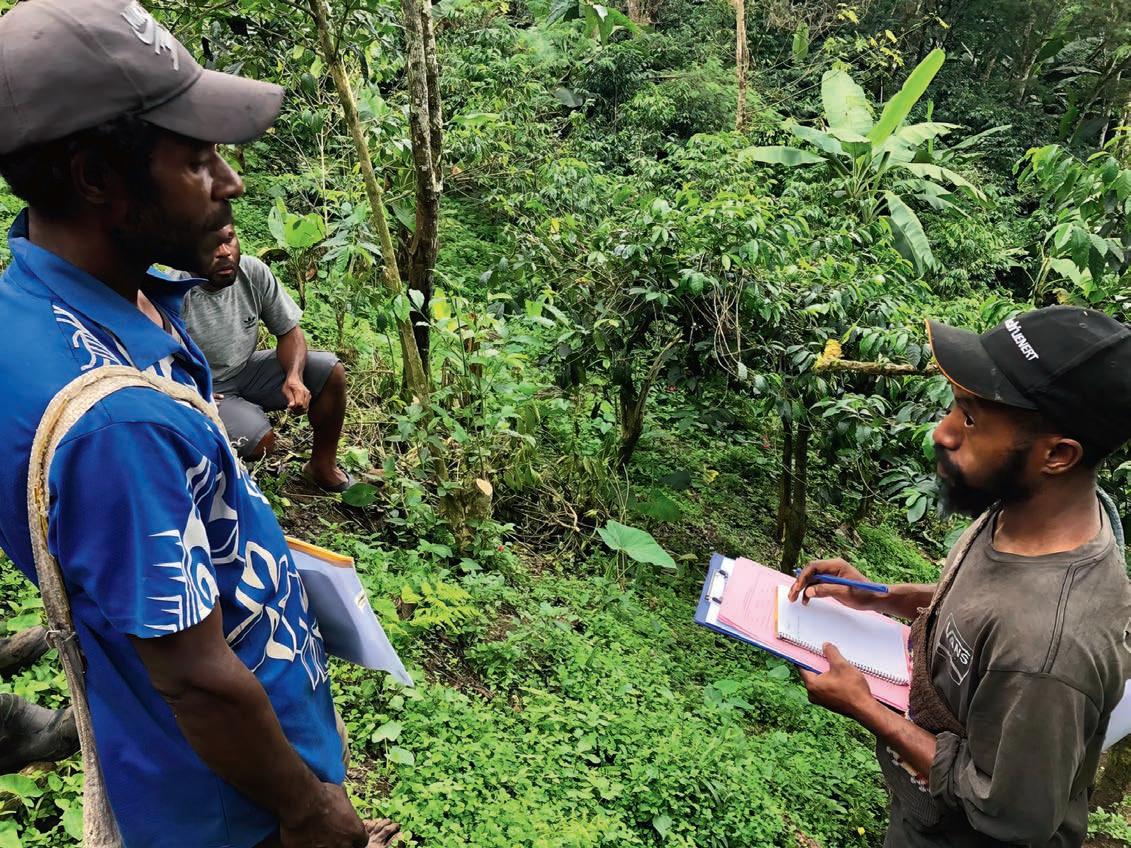
“They are also faced with high costs of acquiring these international standard certifications. With a single certification, they have access to only a limited group of international markets and buyers.”
Fairtrade ANZ and NASAA’s organic subsidiary business — NASAA Certified Organic (NCO) — are globally recognised bodies that provide certification for agricultural commodities in line with
international standards for export and trade. They ensure that best practices in farming and production are met, and that smallholder farmers get a fair price for their produce.
Carolin Möller from NASAA Organic, says the organisation also plays a critically important role in supporting and promoting the adoption of agricultural practices that lead to safer and more sustainable food production systems. She says the association has helped certify farmers in Papua New Guinea for more than 40 years.
“In the last few decades, we’ve identified that there is a need for both Fairtrade and organic certifications at the same time. Often consumers expect to receive the quality of an organic product, its environmental protection, and social justice for the farmers themselves,” says Carolin.
Fairtrade ANZ and NASAA Organic explain how they’re assisting coffee farmers to increase product demand, protect their plants, and maintain ideal living standards.
88 beanscenemag.com.au INDUSTRY PROFILE
Fairtrade ANZ works with the Neknasi cooperative in Papua New Guinea to improve farmer livelihoods.
“We realised Fairtrade and NASAA Organic were seeking similar requirements, so merging us together would streamline the communication process for producer organisations.”
Fairtrade ANZ’s Sam says that dual certification of Fairtrade and NASAA Organic is an important market tool for producer organisations across the wider Pacific. It also provides higher returns for farmers through the combination of the Fairtrade Minimum Price, Fairtrade Premium, and the Fairtrade Organic Differential.
“The Fairtrade Minimum Price is the minimum price that must be paid by buyers to producers for a product that is certified against the Fairtrade Standards. The Minimum Price is a floor price which covers producers’ average costs of production and allows them access to their product’s markets. [At time of print] the Minimum Price is US$1.40 (about AU$2.09) per pound of coffee. It has just increased to US$1.80 (about AU$2.68) which will come into effect in August,” Sam says.
Sam adds that the Fairtrade Premium is an additional sum of money (US$0.20 per pound, about AU$0.30 at time of print), which goes into a communal fund for workers and farmers to use – as they see fit – to improve social, economic, and environmental conditions.
“The additional benefit of partnering with NASAA Organic is offering the Fairtrade Organic Differential, which is the price paid on top of the conventional Fairtrade Minimum Price or the market price, whichever is highest when purchasing Fairtrade organic coffee. The organic differential is US$0.30 (about AU$0.45 at time of print) per pound, which goes directly to the farmers as extra income, and is a financial benefit for doing both Fairtrade and organic farming,” he says.
“We want to incentivise organic farming because it’s better for the planet and improves the soil quality.”
He adds that the partnership between Fairtrade and NCO will also build capacity of exporters and producer groups to manage multiple certification requirements, and thus benefit from voluntary sustainability standards.
“The dual certification is expected to reduce compliance costs, increase price premiums, and improve market access for exporters and small producer groups. The certification program is expected to benefit smallholder producers of coffee and cocoa across Papua New Guinea,” Sam says.
Through the partnership, MDF facilitates Fairtrade ANZ and NCO to engage with industry stakeholders and research the constraints exporters and producer groups face in earning certification.
“While dual certification of Fairtrade
and organic presents the opportunity to increase the benefits received by smallscale producers, it also presents challenges like increased administration burden and financial investment, and can result in non-compliances and decertification,” says NASAA’s Carolin.
The two organisations have developed an innovative training program that meets exporter and producer needs. The training program will work with commodity exporters and smallholder producers to improve the ability of their extension teams to manage a single Fairtrade Organic certification, combining two existing certifications — Fairtrade ANZ and NCO.
“The ‘Increasing Access to Fairtrade and Organic Dual Certification in Papua New Guinea project’, funded by MDF, has developed a package to support producer organisations to better manage and access dual certification. It provides support for producer organisations to apply for, achieve, and maintain organic certification, training materials and a streamlined template to meet Fairtrade and organic standards requirements. The project also includes workshops with producer organisation representatives, exporters, and other industry representatives,” says Sam.
“This program will ensure Papua New Guinea producers are able to meet buyer’s quality requirements and respond to global demand trends.”
The project was intended to run from January to December 2021 but was ultimately postponed due to COVID-19. The most recent workshop was held in October and November 2022.
“The workshop was unbelievably well received. We had an overwhelming number of participants in the classes, so we have reduced the amount in each class to allow one-on-one training, which is a much more efficient method,” says Carolin.
“Our future approach is to mitigate the risk of workforce shortages and create a network of people that are skilled
Carolin says NASAA Organic continues to be at the forefront of organic industry development. She says it was the first organic industry association in Australia, the first to develop an Organic Standard, and is a forerunner in establishing strong international trading ties for organic exports.
“Since the beginning, NASAA Organic has been farmer oriented. Ultimately, producers are taking care of our food and land and without them we would have nothing. It’s our moral obligation to help them stay connected,” Carolin says.
NASAA Organic is still collaborating with Papua New Guinea-based Paradais Review Services to develop in-country competency for certification and inspection purposes against a wide range of voluntary sustainability schemes and food safety guidelines.
“Our mission is to increase the uptake and demand for sustainable organic agriculture and products through innovative and ethical provision of education, market development, advocacy, policy, standards, and certification services,” says Carolin.
Fairtrade ANZ has continued its work in Papua New Guinea by supporting the Alang Doam, Neknasi and Unen Choit cooperatives and is looking to secure funding to build on this partnership with NASAA Organic moving forwards.
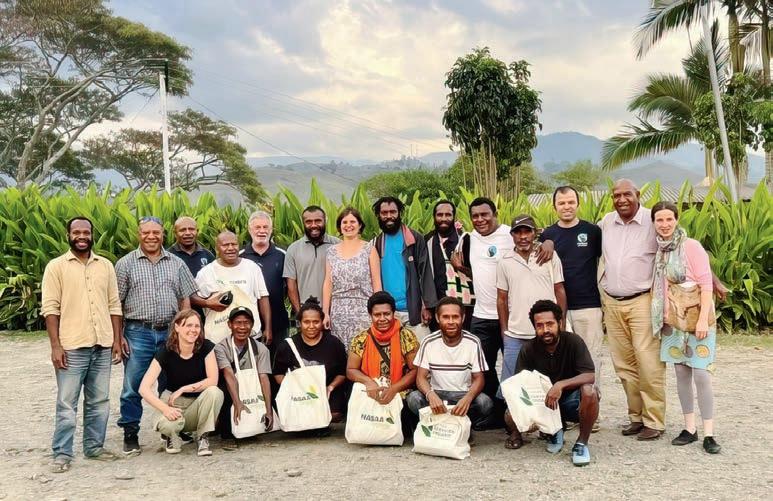
“Supporting farmers and helping them achieve a greater standard of living while also protecting the environment is fundamental to Fairtrade’s and NASAA Organic’s purpose and values as organisations,” says Sam.
“We have some great partner licensees and roasters on the other side of the supply chain in Australia and New Zealand that are also committed to both Fairtrade and organic certification. To see that same dedication across the supply chain is really special.”
beanscenemag.com.au 89
Fairtrade ANZ and NASAA Organic have developed a training program to meet exporter and producer needs.
Plant-based, purpose-lead
itasoy has been producing plant milk for more than 80 years globally, and doing so in Australia for over 20 years. But Vitasoy Australia Managing Director David Tyack says plant milk isn’t static. It’s a rapidly evolving beast, and even more so in the context of coffee.
“What we’ve seen over the last five or so years is a series of monumental shifts, with the explosion of first almond, and now oat, as well as an influx of new brands coming into the market. As such, it’s important to not stand still, and make sure we have the right products, and right proposition, to match the times,” says David.
That’s why the brand is releasing its new Barista’s Choice by Vitasoy range, which will feature a complete overhaul of its brand proposition and revamped oat milk recipe. David says it delivers a “creamy texture and flavour that complements coffee so well”.
“Vitasoy is a company built on the foundations of making positive contributions to society. When it came to our café portfolio, our challenge was around how we could evolve to ensure we had a proposition which accurately reflected our values and propelled our journey towards being a truly purpose-led brand,” he says.
That’s what Barista’s Choice by Vitasoy is all about.
“Whether it’s our commitment to Australian-grown and Australian-made, our efforts to champion sustainable practices,
or our enduring partnership with [national campaign] CafeSmart, we want Barista’s Choice by Vitasoy to be known as the positive choice for Australian cafés,” David says.
Vitasoy will bring together industry partners, including brand ambassador Matthew Lewin, and CafeSmart, to develop a series of new and exciting initiatives to bring the brand to life.
“Fundamentally, Barista’s Choice by Vitasoy is about driving transformational change in the way we approach the coffee market, creating a platform for us to communicate our unique brand purpose to café owners, baristas, and coffee-lovers alike,” David says.
“We want to show the industry how the simple act of choosing Vitasoy helps contribute to growing a better Australian community – supporting Aussie farmers and agriculture, delivering incremental steps towards a more sustainable future, and giving something back to society.”
Vitasoy Australia – now 100 per cent owned by Vitasoy International – first entered the coffee market back in 2009. David says a lot has changed since then.

“The relationship between plant milk and coffee continues to be a journey, and one which requires significant focus, but it’s important to remember that we play only a small part in the grand scheme,” he says.
“Ultimately our role is to help make it as easy as possible for cafés and baristas to serve up the perfect plant-based coffee.”
As the demands of the industry and consumers have evolved, so too has Vitasoy’s approach to its ingredients, processing, and packaging.
“It’s a constant process to ensure we are consistently delivering the high-quality, fit-for-purpose products that the market expects,” says David.
Barista’s Choice by Vitasoy’s new packaging design features topographic lines that reflect the unique landscape of the growing regions where the company sources its almonds, oats, and soybeans, such as Sunraysia in Victoria, and the Northern Rivers in New South Wales.
“Vitasoy Australia employs an Australian-first sourcing strategy on all our nuts, grains, and beans that we use to make our milks. Consequently, we are tightly connected with regional farmers throughout Australia with some longstanding relationships that span more than 20 years,” David says.
“Since 2001 we’ve been converting the best of Australian ingredients into our great tasting products at our manufacturing site in Wodonga, Victoria. What started back then as a relatively small facility, with about 10 million litres capacity per year, has now grown to 70 million litres a year, and we are currently looking to invest in unlocking even greater capacity so that we can continue to meet the needs of the growing Australian marketplace into the future.”
Vitasoy has also embraced sustainable
Plant-based milk company Vitasoy unleashes its purpose-led rebrand on the Australian coffee industry and explains how its driving transformational change.
90 beanscenemag.com.au INDUSTRY PROFILE
Vitasoy Australia’s manufacturing site in Wodonga, Victoria.
practices by enacting two positive measures on its packaging across the Barista’s Choice by Vitasoy range.
“We know that issues around packaging and environmental impact are some of the biggest pain points for conscious consumers and businesses. There is growing demand for action at all levels to reduce waste and help us all tread a little more lightly when it comes to consumption of the Earth’s resources,” David says.
“First, our milk cartons are made with bio-based Tetra Pak Craft paper from 100 per cent Forest Stewardship Councilcertified sources. Second, we’ve used plantbased caps which are made predominantly from sugar cane. The combined effect of these changes is a pack which is made from 85 per cent renewable materials and delivers a 17 per cent reduction in carbon emissions, as certified by [climate change advisory firm] Carbon Trust.”
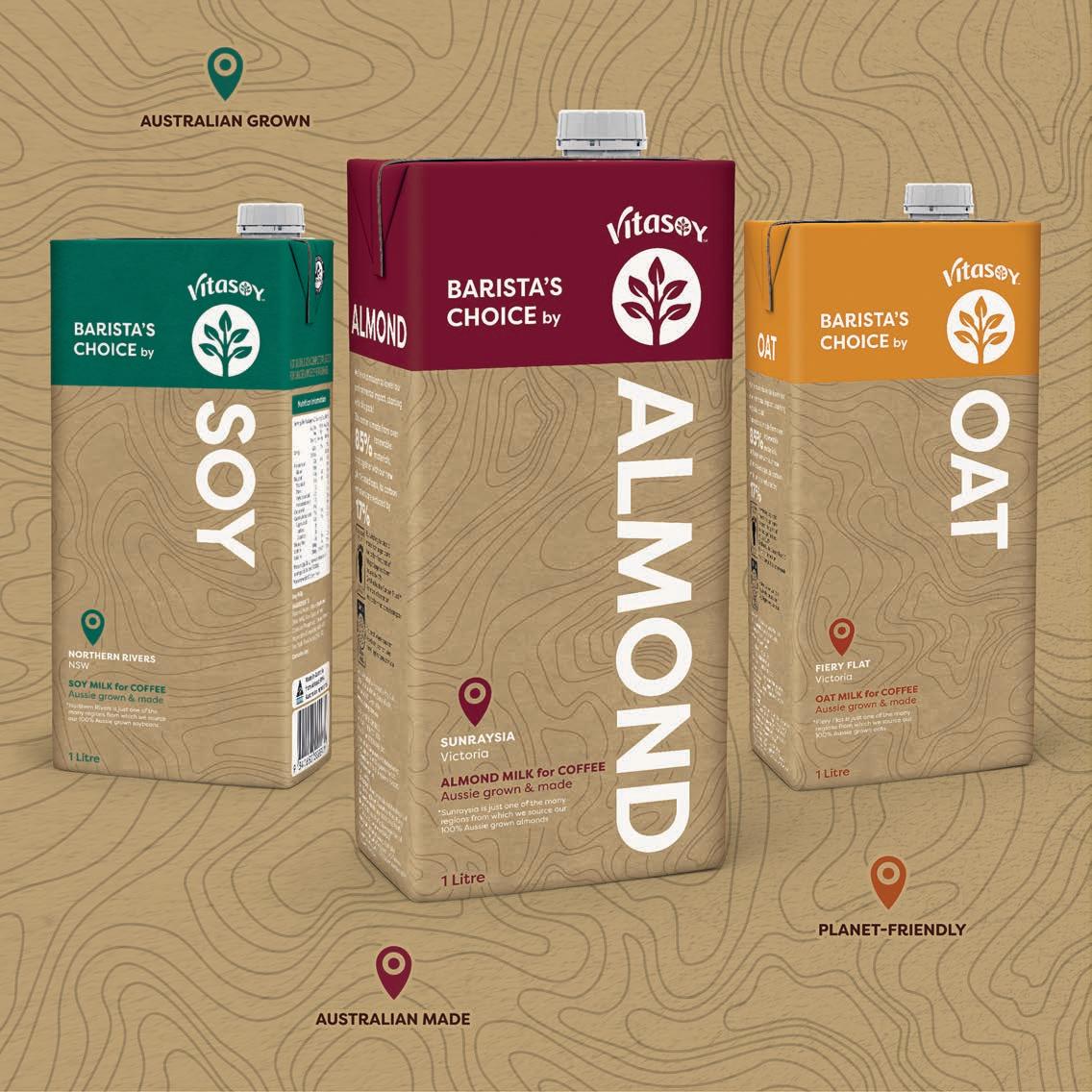
Vitasoy has also partnered with the Mulloon Institute, a not-for-profit, research, education, and advocacy organisation,
which shines a light on how Australian land can become more resilient to climate extremes.
“As a leader in developing sustainable, plant-based foods, we’re about putting words into action, and have a vested interest in ensuring sustainable farming and land management practices become the norm,” David says.
Vitasoy has pledged $1,250,000 over the next five years to help rehydrate Australian catchments through the work of the Mulloon Institute, which will work to restore thousands of hectares of land.
“We are not only looking to develop the right products but want to ensure we are developing the right products in the right way. Anchoring our commitment in and around the catch cry of ‘Let’s Grow a Better World’ has been terrific in driving awareness and buy-in across all levels of our business,” says David.
Vitasoy believes the industry has only scratched the surface of what plant milk and plant-based products can do for the health
and wellbeing of people and the planet, and is committed to driving the movement forward.
“We know that new entrants into the market don’t just bring increased competition but can also bring new standards on taste and performance, and that’s a good thing. It’s what makes Vitasoy hungry to strive for excellence and to continue to be viewed as leaders in the plant-based movement, delivering the best Australian-grown milks to match the world-class quality of the Australian coffee scene,” says David.
“We’ll continue to push the boundaries of taste and performance, championing Australian and supporting communities, and we think that will hold us in great stead for many years to come. We’re always keeping an eye to the future and can definitely say there are many more exciting years ahead in the world of plantbased milk.”
For more information, visit vitasoy.com.au
91
The new packaging design features topographic lines that reflect the growing regions where Vitasoy sources its ingredients.
beanscenemag.com.au
LAIT NOIR
144 Edward Street, Brisbane City, Queensland, 4000
Open Monday to Friday 7am — 5:30pm
Brisbane’s coffee scene has just gotten bigger with the arrival of Lait Noir in March 2023, a Parisian-inspired coffee shop complete with luxe decor. Here, guests can
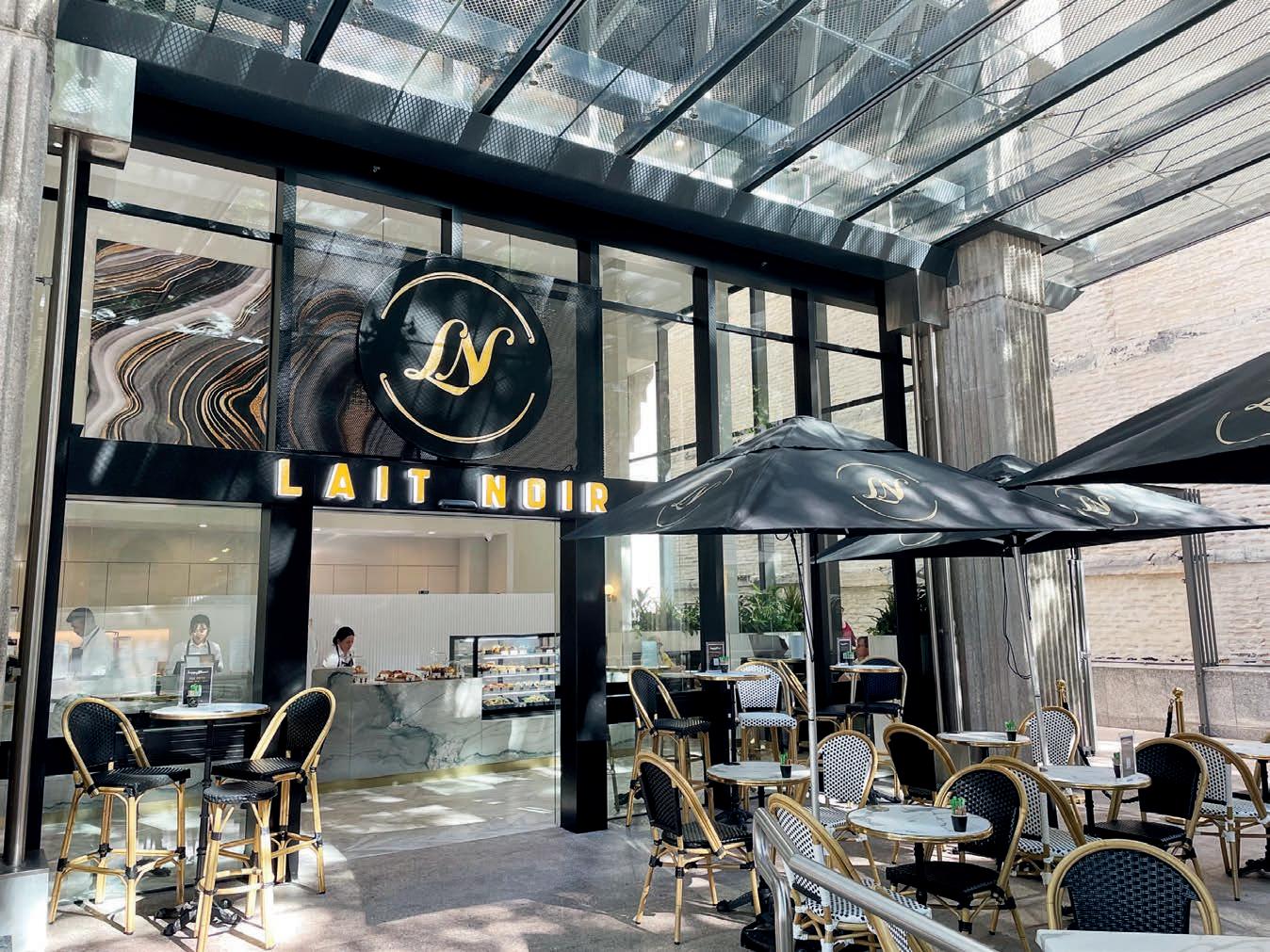
Quiches, frittatas, and beef bourguignon pie are highlights from the café’s savoury menu. For dessert, tempt your tastebuds with lemon meringue and passionfruit tarts, choc-fudge caramel brownies and carrot cake. Sweet bites also include lemon muffins, apple tarts and mini French doughnuts.
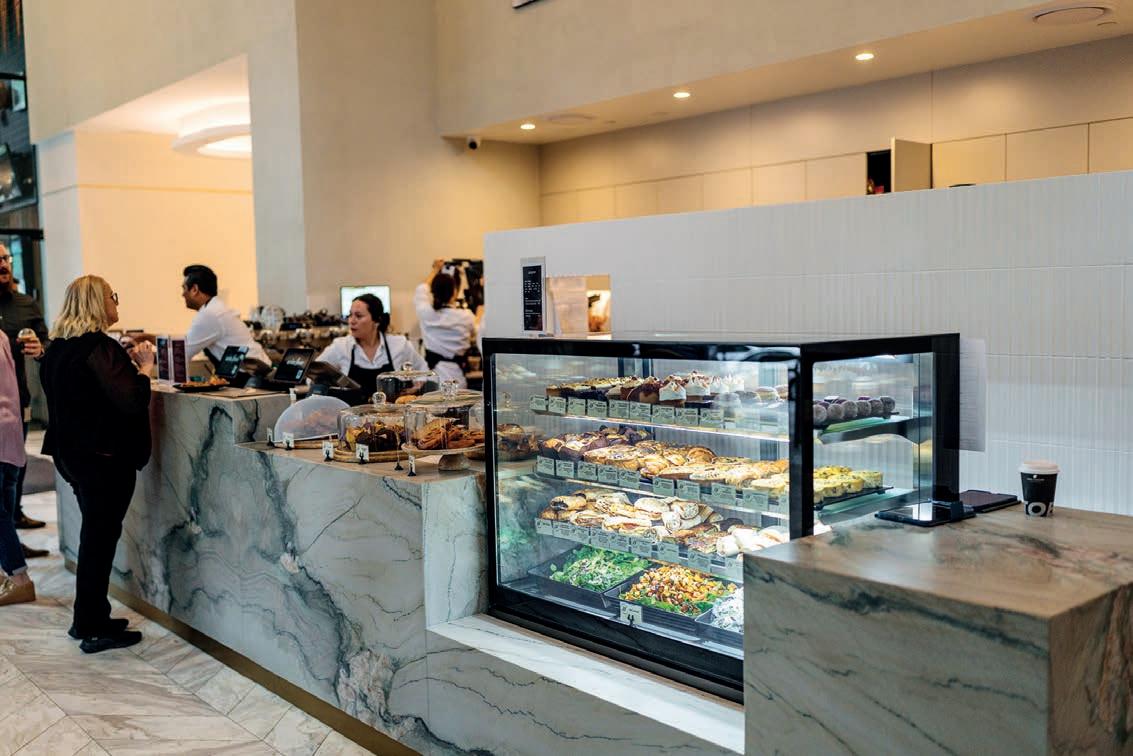
“We pride ourselves on quality and
“We’re very happy with Toby’s Estate coffee. Our customers have loved it from the start. We also have a really great working relationship with the sales representatives. They’re always available to answer any questions I have,” Charlotte says.
Building residents will also be happy that Lait Noir operates on the ground floor, with the café also planning to offer a concierge
92 beanscenemag.com.au CAFÉ SCENE
The café serves Toby’s Estate’s Woolloomooloo brew.
MODUS COFFEE
35/602 Beaufort Street, Mount Lawley, Western Australia, 6050
Open Monday to Friday 6:30am — 2pm, weekends 7am — 2pm
Few cafés embrace traceability quite like Modus Coffee. From the farmer to the customer, Modus Coffee Marketing Manager Abbey Fowler says the team are dedicated to providing a complete service experience that is rooted in quality, transparency, and responsibility.
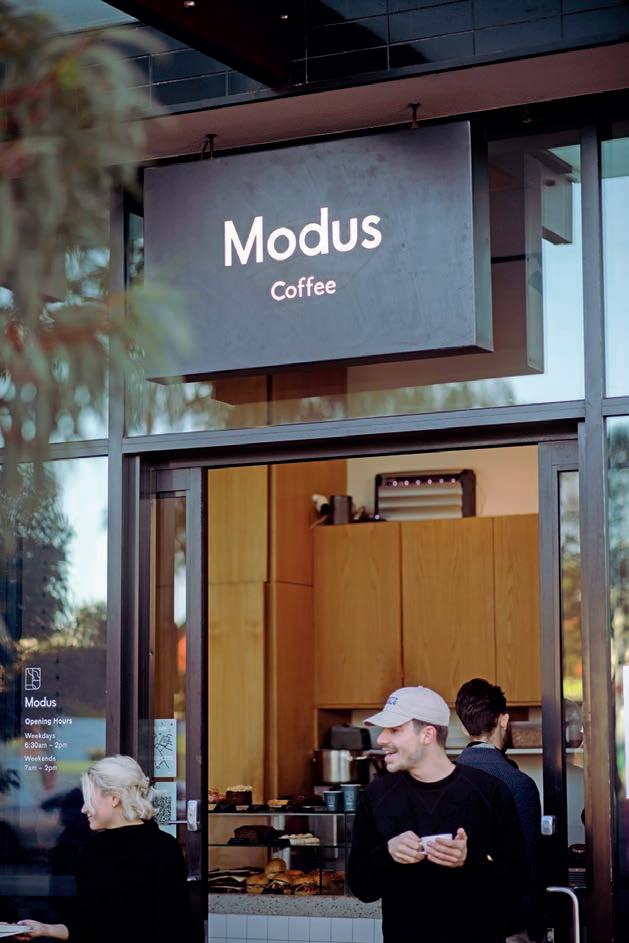
“At Modus Coffee, we are committed to making coffee better for everyone by responsibly sourcing, roasting, and brewing high-quality coffee in Boorloo, Western Australia. We believe transparency is key, and our focus on developing lasting relationships with our coffee suppliers ensures that all our sourcing is ethical and sustainable,” she says.
Owners Sam Robins and Tobias Glass came together with a shared passion for great coffee that led them to begin roasting under their own brand in 2018. This meant they could have complete control over the quality and traceability of the beans used.
“We only buy coffee from trusted
importers who are willing to share all the information about the producer and their farm and are transparent about the financial details of their coffee purchasing. Our customers see this traceability on all of our packaging, social media, and website, where we display illustrations of each coffee farmer we work with,” Abbey says.
“We also show our dedication to the farmers we work with by actively naming our house coffees after them. We did this from day one with our first house coffee from our long-time partner and Colombian farmer Luis Anibal Calderon, whose coffee we still pour today.”
Sam and Tobias have expanded from the flagship shop in Mount Lawley to two more locations in Victoria Park and Wembley. The owners prefer all three sites to be crowded with people rather than with decorative ornaments, so the Modus Coffee aesthetic is clean and modern with polished concrete, simple white tiles, and wooden cabinetry.
“Our coffee, offered as espresso or filter, pairs well with our house made brekky burger or our customer favourite Reuben sandwich. Our cabinet food is made for those on-the-go, easy and simple options to get our customers out the door and on their way to enjoy a great day,” says Abbey.
Peninsula which quickly gained a strong following for its raw, vegan, gluten-free desserts, and treats. Today, the more extensive café menu at both locations is designed with health and wellbeing in mind. Everything is plant based, FODMAP friendly, and predominantly gluten-free. If customers are still hungry, there’s a huge range of healthy smoothies to enjoy.
“Everything is made from scratch, and we’re inclusive of everyone that has dietary requirements,” Dee says.
She describes the atmosphere as “warm and inviting” and a “calming place to inspire the community to eat better and feel great”.

“We wanted [the new location] to look fresh and bright. It’s a wide-open space with natural tones and baby pink walls, benchtops, and a La Marzocco Linea Classic S three-group machine,” she says.
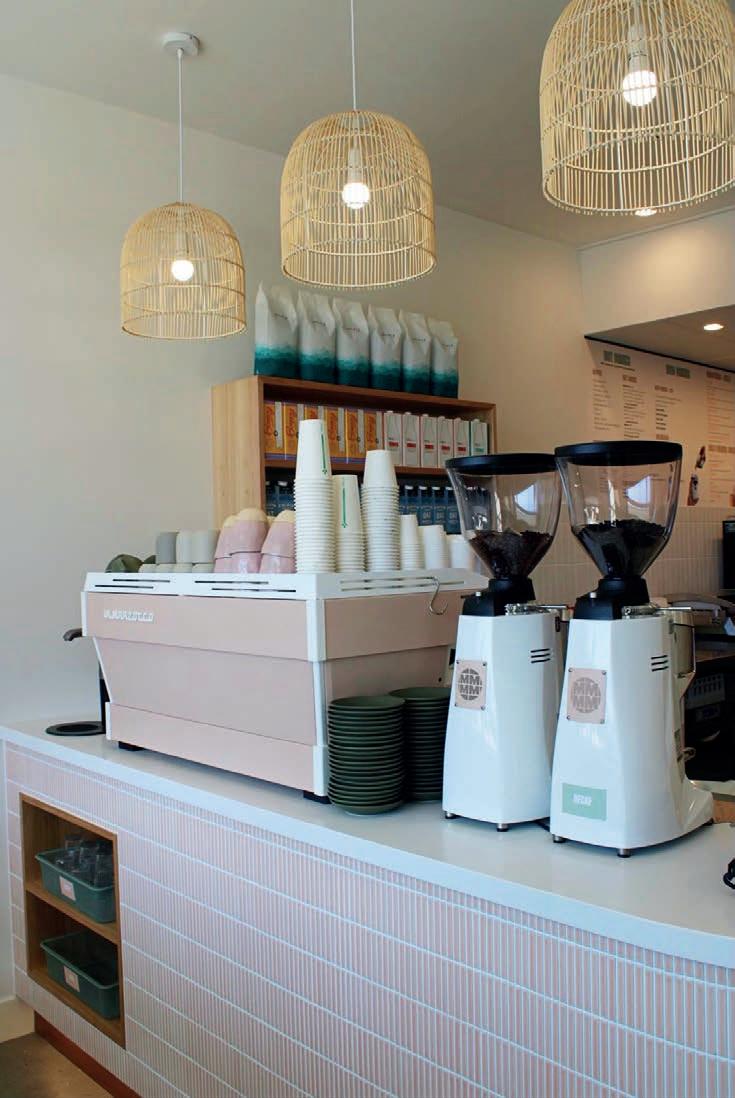
CONSCIOUS CRAVINGS CO
784 Mornington Esplanade, Mornington, Victoria, 3931
Open Monday to Sunday 8am — 3pm
Conscious Cravings Co is a plant-based café with a new location in the bayside suburb of Mornington, south of Melbourne. Since tragically losing her daughter, Conscious Cravings Co-Owner Darelle ‘Dee’ Menzies has been on a mission to
create food that supports gut health and mental wellbeing, without causing harm to animals.
“I have a passion for promoting healthier foods that are consciously made and better for our bodies. I want to make people aware that there are other options, because it’s really hard to find food that’s good for you,” says Dee.
Founded in 2017, the café began as a small home business in Mornington
Soak up the sea breeze and escape the everyday hustle in Conscious Cravings Co’s uniquely designed space, with both indoor and outdoor seating. The view can be enjoyed with Locale Coffee Roasters’ Eco Warrior organic espresso blend, with notes of milk chocolate, sweet spices, raisins.
“I wanted something different that you couldn’t get at every café. It’s a lighter blend that is equally delicious as an espresso or through milk,” Dee says. “And the service from the whole team is unbelievable. They really look after us.”
The plant-based café operates with the health-conscious in mind.
beanscenemag.com.au 93
Modus Coffee roasts its own blends in Boorloo, Western Australia.
MEEBZ COFFEE ROASTERS
3 Milford Road, Milford, New Zealand, 0620
Open Monday to Friday 8am — 3pm, Saturday 8:30am — 2pm
Mike Tan started roasting coffee as a hobby in the back of his parent’s garage in 2015 before turning Meebz Coffee Roasters into a boutique coffee roasting company, which includes a retail store and espresso bar in Milford, North Shore, and roastery located in Otahuhu.
“We’re a small team who are passionate, experienced, and enthusiastic about the New Zealand hospitality industry. We love coffee and our passion is to ensure our customers find their favourite taste whether you are enjoying one from our own espresso bar, or from one of our hand selected café partners,” says Mike.
At any given time Meebz Coffee Roasters has more than 20 different coffee offerings including specialty, organic, and Swiss water decaf coffee for wholesale and retail customers.

“Our sources extend worldwide, and our coffee is often sourced from smaller farms such as cooperatives, small estates and microlots. We not only have a wide selection of fine and premium grades, but our coffee is precision roasted daily in small batches, so your order is guaranteed always fresh,” says Mike.
“We’ve also extended our offering to include the superlative coffee menu, which features a selection of seasonal rare, exotic, and super high-quality coffee. This menu typically contains award-winning coffee and those grown or processed in a very unique manner standing out from the rest.”
For hungry customers, the roastery offers gourmet cookies from Wild Cookie Farm, serving a range of flavours such as
pistachio, macadamia and hazelnut with white chocolate, and triple chocolate and orange.
“We supply coffee to the gourmet cookie bakery and in return they provide these delicious cookies. It’s a win-win,” says Mike.
The Melbourne-inspired café features a minimalistic, sleek design with grey and white tones adorning its walls, furniture, and roasting equipment.
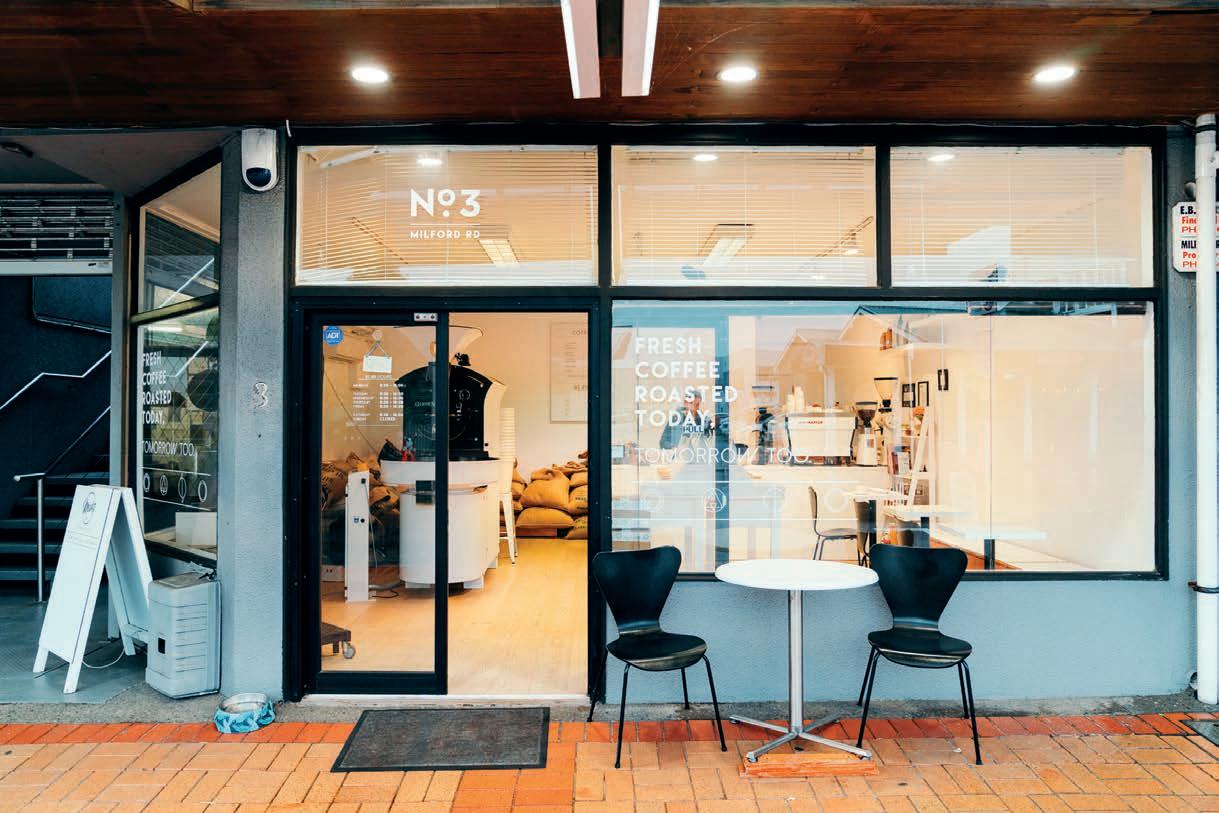
“I’ve always been a big fan of the Melbourne coffees scene. I used to travel there quite a bit to get a sense of what’s trending. I drew on a lot of inspiration from that aesthetic,” Mike says.
Back in New Zealand, Mike recently returned to the world of competition and participated in the New Zealand Specialty Coffee Association Meadow Fresh New Zealand Barista Championship 2023, placing runner-up after a five-year hiatus.
“Since my last time competing in 2017, the barista championship has always been on my mind every year, and getting back on stage was always a goal of mine. Each year [that I’ve competed] has been a new learning experience, not just for the competition scene but for coffee, hospitality, and presentation skills that are applied in my personal and professional life,” Mike says.
“Walking away from the championship with second place is a great achievement and accomplishment.”
The boutique coffee roaster has over 20 different coffee offerings at one time.
94 beanscenemag.com.au CAFÉ SCENE
Meebz Coffee Roasters features a roastery, retail store, and espresso bar.
COMME CHEZ NOUS
97 Grandview Street, Pymble, New South Wales, 2073
Open Monday to Friday 6:30am — 2pm, Saturday 7:30am — 1pm
A world away from their native homeland in outback Australia, a shared love for coffee has brought Frenchmen Michael Lachkar and Alex Murat together. The pair wanted to pay tribute to their motherland and have founded a French café that recreates the tastes and atmosphere one associates with renowned Parisian culture.
“Comme Chez Nous is a welcoming place to bring people together and feel at home. From the moment you enter, you can sense the Parisian atmosphere from the native music to the decorations to the menu,” says Michael.
Comme Chez Nous draws on its French heritage and passion to provide a wholesome, quality-driven menu that is traditional yet innovative. The food offerings feature baguette sandwiches, ham and cheese croissants with housemade bechamel, French pastries, and a French deli.
“Our gourmet sandwiches are prepared fresh every morning. We don’t refill them
YOLK CAFÉ
42 North East Road, Walkerville, South Australia, 5081
Open Monday to Sunday 7am — 3pm
Designed in hues of yellow and white is a bright and inviting café that is hidden off North East Road in Walkerville, South Australia. Owner Zac Mucklow has created a venue with a welcoming atmosphere, where anyone can come in for a sip, bite, and place to relax and unwind, solo or in the company of loved ones.
“My dad owns the building and was pitching to the broader hospitality industry for an owner when I asked if he would let me take on the tenancy. Despite being quite young in my hospitality career, I had developed an affinity for the industry and wanted to give it a crack,” Zac says.
Yolk Café may have opened in peak COVID-19 in January 2021, but it hasn’t taken long to gain a reputation as a new brunch and coffee spot that is packed with a range of exciting food and drink options.
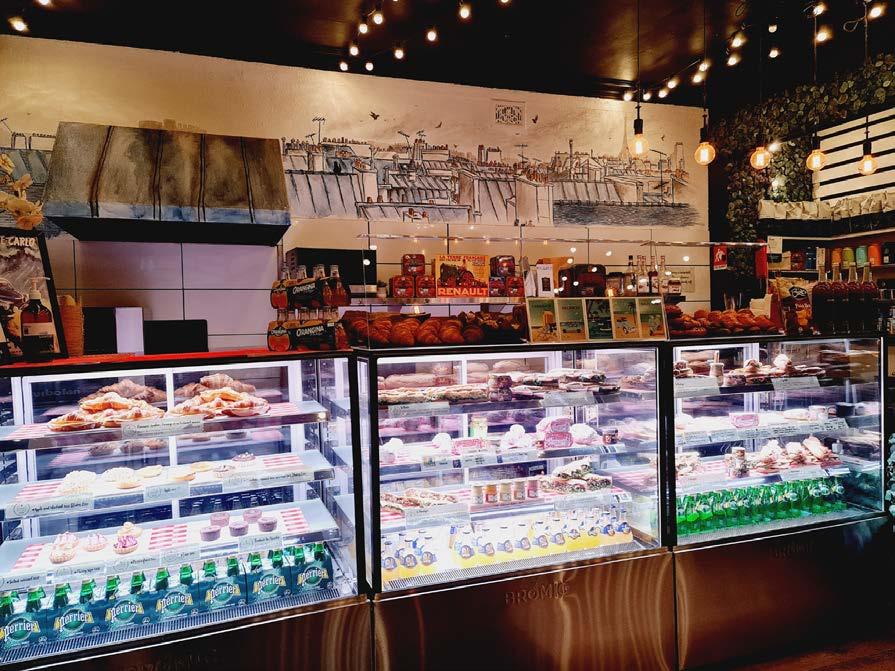

“We found our feet pretty quickly and the team was united from the start. The café wouldn’t be half as successful without the staff. They’ve helped create a really awesome culture and environment for our customers which I’m super grateful for,” says Zac.
throughout the day so we can focus on attending to our customers, so we advise you to get in early to try them,” Alex says.
Michael and Alex have worked in hospitality since a young age. After working long hours and gaining experience by the day, they decided to open their own business in 2019.
“We love interacting with people all day long, so it was only a matter of getting our savings together and opening a coffee shop that incorporates our own style,” says Alex.
Alex and Michael’s years of practice have also allowed them to develop an
Patrons can expect to enjoy quality coffee beans roasted by Veneziano Coffee Roasters, which serves as a much-needed pick-me-up on the colder mornings that have quickly settled in for the autumn period.
“We use Veneziano’s Elevate blend for milk-based coffees and their Soar blend for our black coffee. We tested a lot of coffee before we found Veneziano. We found that the rich, chocolatey flavour notes of Elevate and Soar were too good to pass up. I think both blends cater for specialty coffee aficionado’s and are still really approachable for beginners who want that classic coffee taste,” Zac says.
The café’s autumn menu combines classic brunch favourites such as eggs on toast and a B.E.L.T baguette with unique dishes like affogato waffles and curried egg on toast.
“We were looking for menu recommendations for an exciting eggon-toast option. Many people wanted us to bring our chilli scramble back, but we weren’t feeling inspired by it. Then I noticed the chefs were making themselves the same lunch everyday –curried egg on toast – and I thought: ‘Why aren’t we putting this on the menu if our chefs love it and eat it everyday?’ It’s gone gangbusters ever since,” Zac says.
appreciation for coffee, one that led them to Paradox Coffee Roasters to supply their coffee, specifically its Paper Moon blend.
“Paper Moon has bold and powerful flavours that let it come alive in milk, but the black cherry and plum notes ensure coffee drinkers who enjoy their coffee black don’t miss out. This tasty blend loves to push the boundaries with upfront intensity, clear acidity and a pleasant lingering finish,” Michael says.
“As soon as we tried their coffee, we knew we were onto a winner. Their service is pretty unique in that they are so attentive and make sure our needs are always met.”
Yolk Café presents seasonal menu offerings.
beanscenemag.com.au 95
Comme Chez Nous recreates Parisian culture in the heart of Pymble, NSW.
Espresso coffee has a Jekyll and Hyde personality at times. Just as much as it can be extremely simple and straightforward, espresso can turn, almost on an unseen whim, to a stubborn, unyielding, obstructive obstacle that only wants to ruin your day.
Thinking back on my experience working and operating cafés, it amazes how far we have come regarding the technology we now have at our fingertips. How we achieved anything resembling a decent coffee more than 10 years ago surprises me endlessly. Our jobs are defined and determined by our repeat customers. Our success is measured by our consistency,
Best of three
and that all hinges on this fickle essential ingredient.
What would you think if I told you that it is possible to control the whims of espresso during service while not spending an extra precious cent on new equipment? And it only involves small adjustments to your existing set up. All that’s needed is to focus on three seemingly “overlooked” areas of coffee service: Cleanliness. Workflow. Technique.
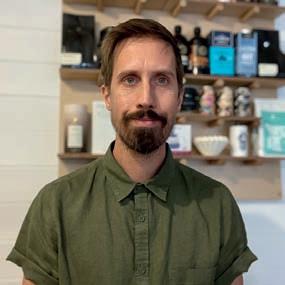
CLEANING
Cleaning is the most important thing we as baristas do between each order.
A clean workstation is an effective altar with which we can pump out order after
order as quickly and consistently as possible. A clean workstation generates less random events that can shift our coffee quality away from that coveted sweet spot. It goes beyond simply dry wiping our portafilter baskets and steam wands, and into the more unseen areas.
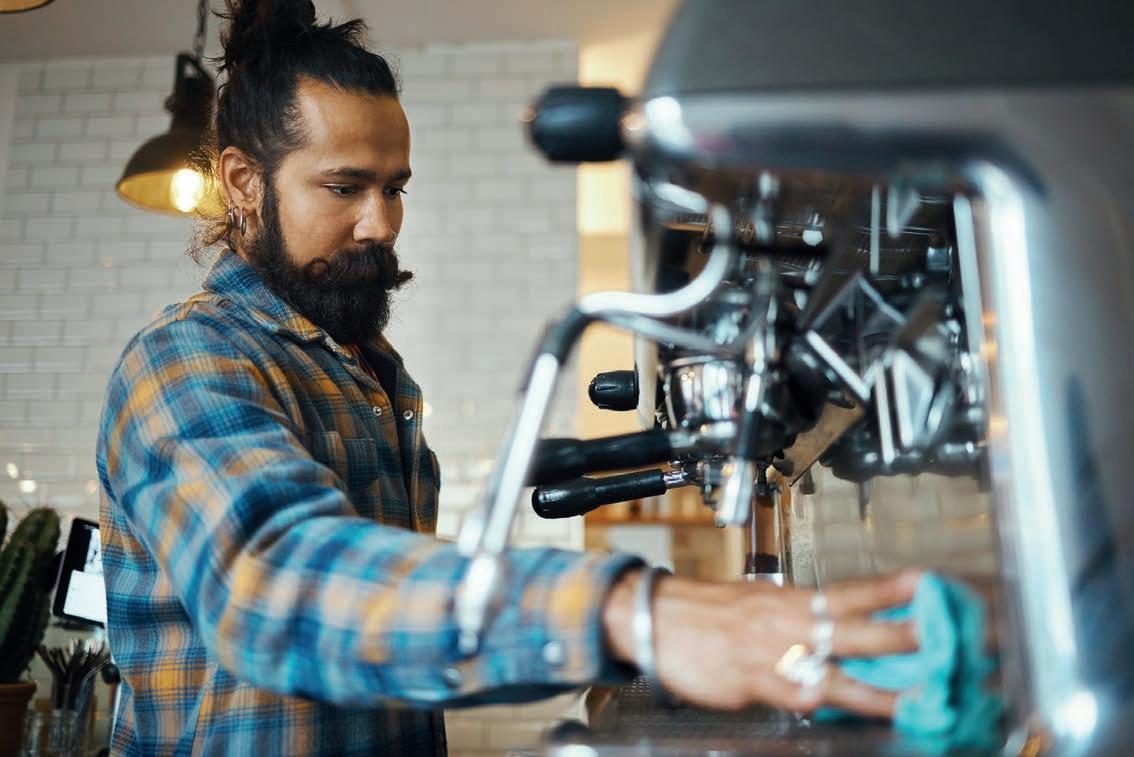
We’re talking about water quality. Not from the filter but the quality of water as it comes out of the group heads. Backflushing with a blind basket throughout the day separates a great barista from a legendary barista, and it takes no time at all. Do a backflush with blind baskets a few times, running eight to 10 seconds. This can flush all that build-up out of your group head.
Water makes up more than 95 per cent
Anthony Lawrence is a barista trainer at UCC Coffee.
Anthony Lawrence of UCC Coffee uses his 20 years of industry experience to solve common problems with three simple solutions.
96 beanscenemag.com.au TRAINING TACTICS
A consistently clean workstation avoids shiting atttention from delivering quality output.
of our espresso material, so if it’s not clean, how can our coffee taste good? Take things a further step and really clean out your group handles during the shift to eliminate any build-up before it affects the quality of your shots.
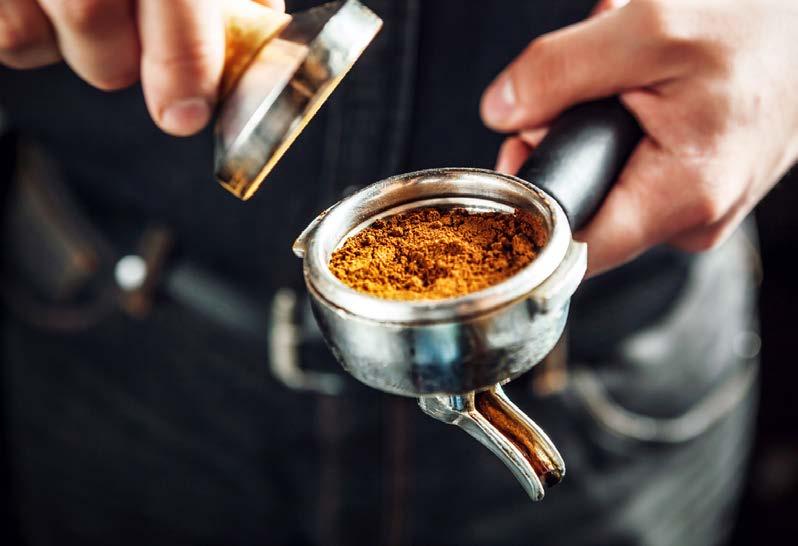
My advice to baristas when chasing that perfect cup is to think big, act small. What is the first step toward getting your workstation in order? Keep it clean. Keep it at a constant state of readiness and your coffee will never taste better, or worse for that matter. That tight proximity is what consistency is all about.
WORKFLOW
If we view cleanliness as foundational to good tasting coffee, then workflow is the facilitator to getting tasty coffee out to our customers quickly. A coffee station with good workflow makes getting through orders effortless. A coffee station without it becomes a chore. A good friend of mine once referred to being in this situation as “death by a thousand cuts”, where you don’t notice the points of friction in your workstation until you have experienced them many times to the point of frustration or pain.
Tiny factors such as putting your grinder too close to a wall or installing the coffee machine at an obtuse angle can create bottlenecks in the way a barista moves about. If a barista must spend a few seconds moving from point A to B, think how much additional time is spent – or wasted – when they replicate that movement a thousand times over. It adds significant minutes to the overall service time.
I once worked at a very busy coffee house sandwiched between two massive weekend markets. The coffee machine was jammed into the very end of the bar with barely four-square feet of space. When it came down to our busy periods, it was impossible the solitary barista could fit into
coffee orders. We couldn’t rebuild the bar, so we got creative and elected the order runner to texture milk-and-pour orders on the outer side of the bar. This simple solution made busy days fun and took care of our biggest workflow issue.
So, if your workstation is not working for you, get creative. Try new positions. Moving your grinder from the left-hand side or the milk station to your service point can make all the difference. Think big, act small.
TECHNIQUE
If we view cleaning as keeping your workstation in a state of readiness and workflow as the ease in which you complete your orders, then technique is how consistently you handle the coffee when in service.

My approach to espresso service is to be deliberate and consistent. Knowing exactly how you are handling your coffee and how to repeat those steps are the essentials to gaining good technique.
Think about the journey the espresso takes from hopper to cup – dosing, tamping, then extracting. Are you being consistent
same way? Are you dosing consistently? When approaching these key variables my thinking is this: where can we get out of the way of the coffee and let it do its thing.
Any variations in these areas can create very different tasting results, even if the difference may at first seem minor. Are you being rough with loading in your shot? This can disrupt your tamped coffee and increase the chances of channelling in your coffee. It is better to move at an easy pace during this crucial stage, not rushing to the point where you are slamming your equipment around.
If you want to keep your dose more consistent, then incorporate a scale into your workflow. If you couple that with a dosing cup that fits to your portafilter basket, you will be surprised how much this can help the transfer of the correct dose while minimising spills without slowing your pace of service. Other tools that can help with tamping are tools like grind distributors, an automated tamper, or even a simple push with your hand to spread the coffee grounds in the basket to ensure a more even tamp. These tools are readily available so a small investment in this step between grinder to coffee machine can ‘help the barista get out of the coffee’s way,’ so to speak.
As a barista trainer for UCC, my goal first and foremost is to make a barista’s job easy. As espresso coffee has seemingly infinite variables, my advice to any barista at any level is to focus on what you can control, which are the areas of cleaning, workflow, and technique. Keep the focus on your workstation cleanliness; arranging your workstation to work for you not against you while keeping an eye on how you are dosing, tamping and loading in your shot will help keep you on track. Your customers will thank you, as well as yourself.
For
Thanks to Calum Mawson for his assistance in this article.
more information, visit ucc-anz.com
Think about the consistency of your dosing and tamping to ensure consistent extractions.
97
If your workstation is leaving you cramped, get creative and reposition.
beanscenemag.com.au
and appreciate their beauty.

oday’s coffee culture is increasingly focused on the visual experience, especially when it comes to creating latte art. More and more baristas see it as a way to explore their personal creativity and skills. In my opinion, coffee is a perfect vehicle for expression. Through latte art, I can convey my ideas and emotions to others.

In this edition’s column of Espresso Yourself, I’m going to demonstrate a pattern that’s been very popular over the last few years. When I started researching Native American art, I was surprised to find some similarities with Indigenous Australian art. Both cultures have a strong connection to
land, nature, and the environment. For example, Indigenous Australian art uses dots and lines to represent environmental elements, while Native American art includes animal and human figures to represent cultural beliefs and values. In this case, for my latte art design, I chose to focus on the facial features of the Native American people and use dots and lines to create the intricate details.
I hope this design will allow more people to understand and appreciate Indigenous cultures. I also hope that through artwork like this, more people will recognise the charm and endless possibilities of latte art.
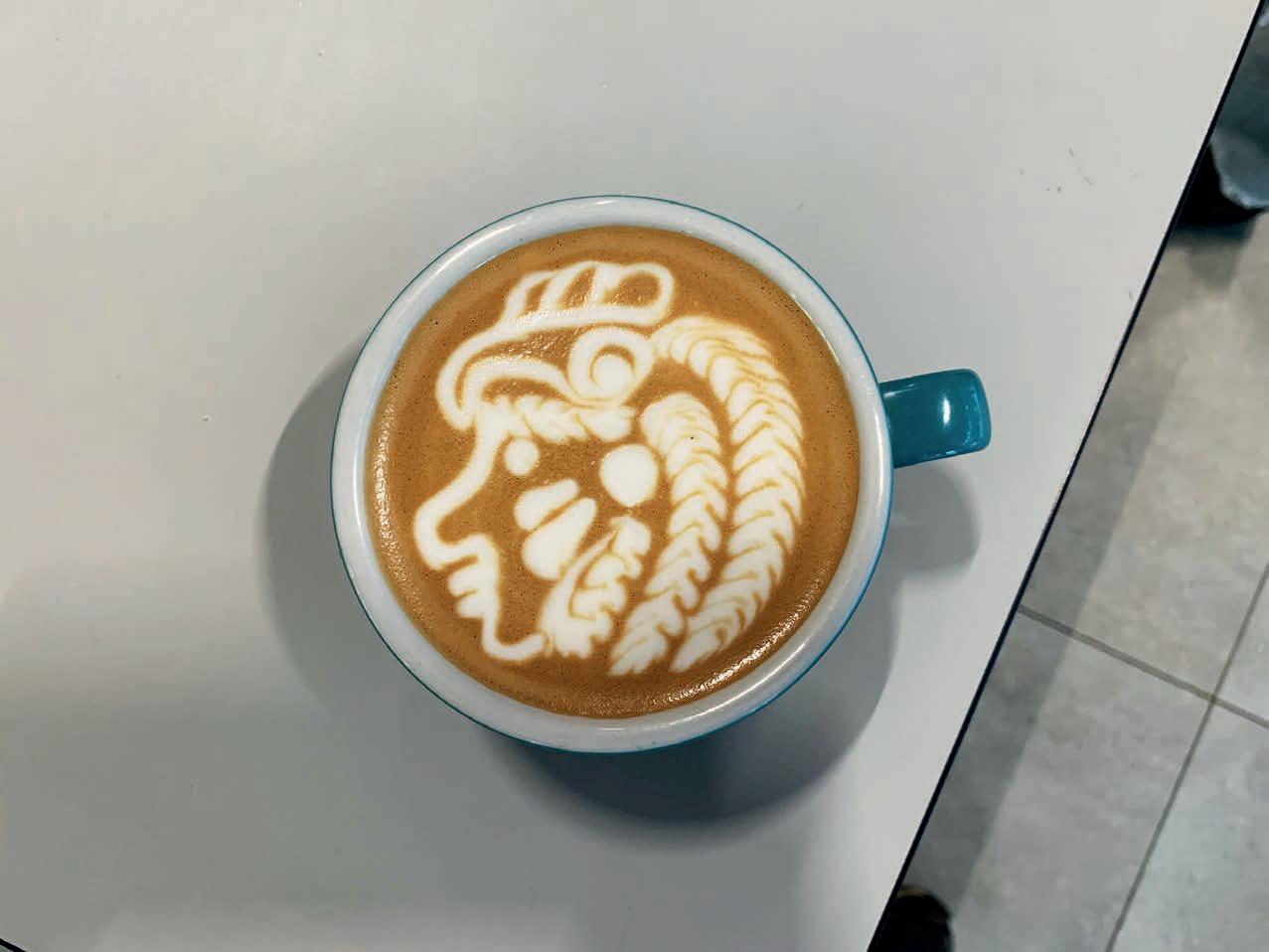
ESPRESSO YOURSELF 98 beanscenemag.com.au
Build your base. Start with the cup handle at 12 o’clock and pour one curved 12-leaf rosetta. Pour another 10-leaf rosetta underneath it, one centimetre in from the start of the first rosetta.

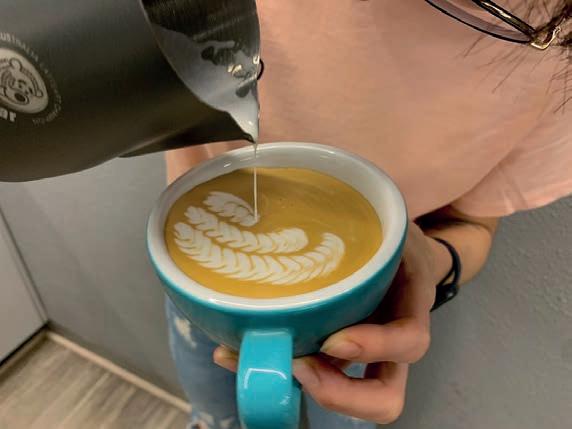

Pour a third rosetta with four leaves, starting at the halfway point of the first rosetta. Pull through underneath the rosetta as you prepare to turn the cup.
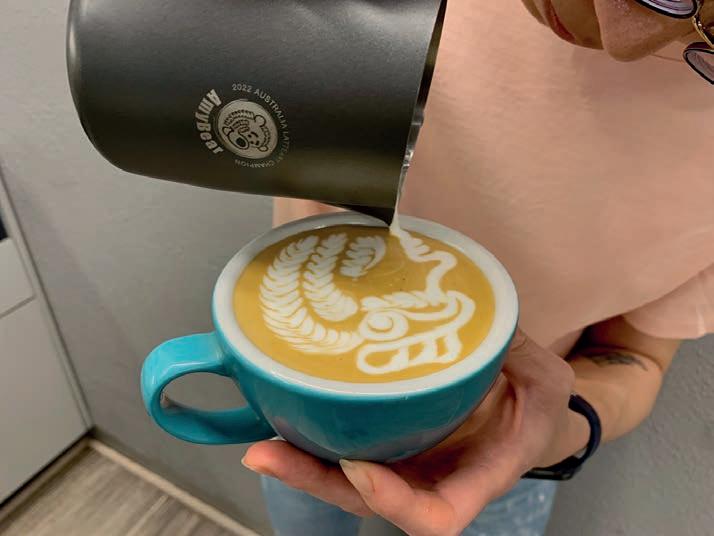
Turn the cup 90 degrees. Directly opposite from the starting point of the second rosetta, keeping the cup handle towards 3 o’clock, pour the fourth rosetta with four leaves.
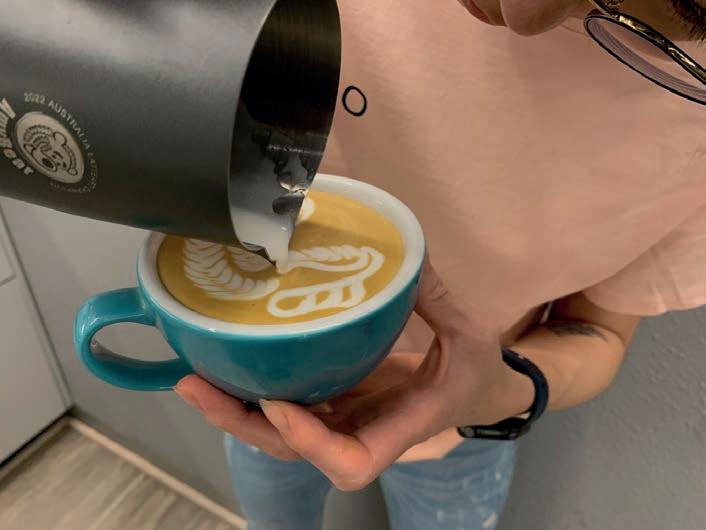
Keep the cup handle at the same position. Directly above the fourth rosetta, draw part of the Tribal Chief’s headdress by dragging a spring-like shape with three to four lines and pull through underneath with a slight curve into the cup.
Use the dragging foam technique to draw lines to complete the eagle beak and eyes of the headdress.
Continue with this technique to draw the sides of the Tribal Chief’s face. Start by drawing the forehead and link to the top of the fourth rosetta. Then draw a nose, mouth, and chin.
Drop a dot of milk to form the eyes, and earring. The earring needs to be larger and positioned in the centre of the cup. To get a perfect circle, slowly allow the textured milk foam to drip down from the jug. Lower you milk pitcher until it’s close to the cup surface.
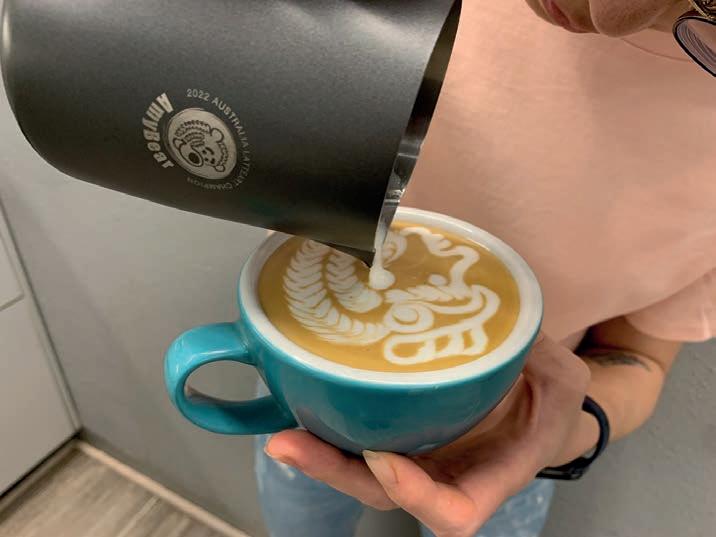
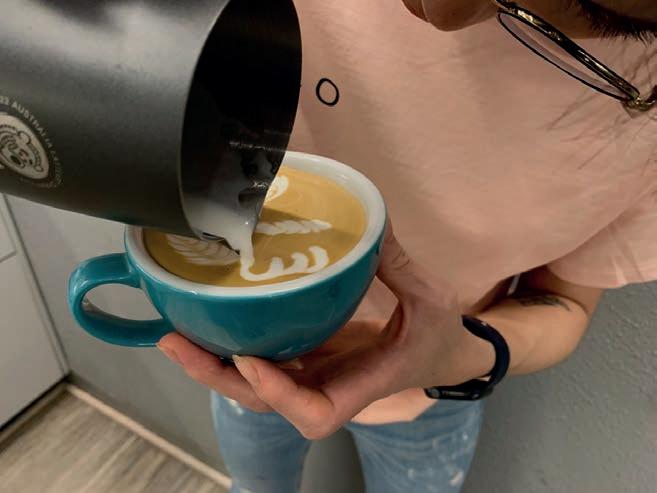
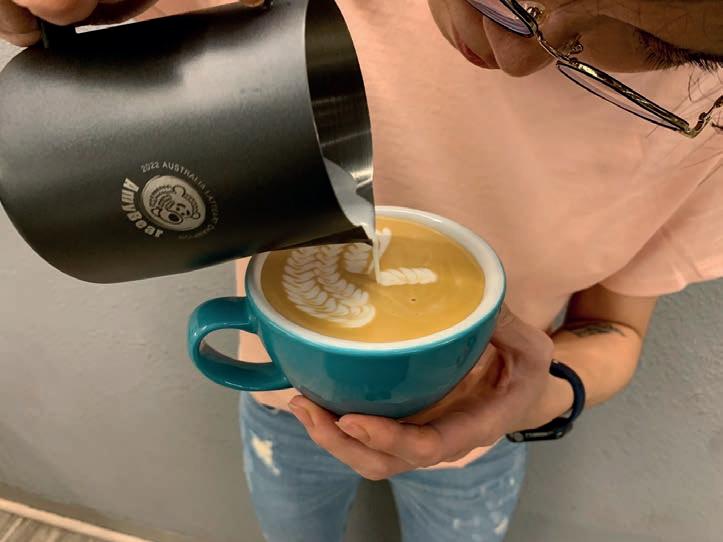

Finish your design by drawing line markings on the Tribal Chief’s face. And there you have it!

beanscenemag.com.au 99

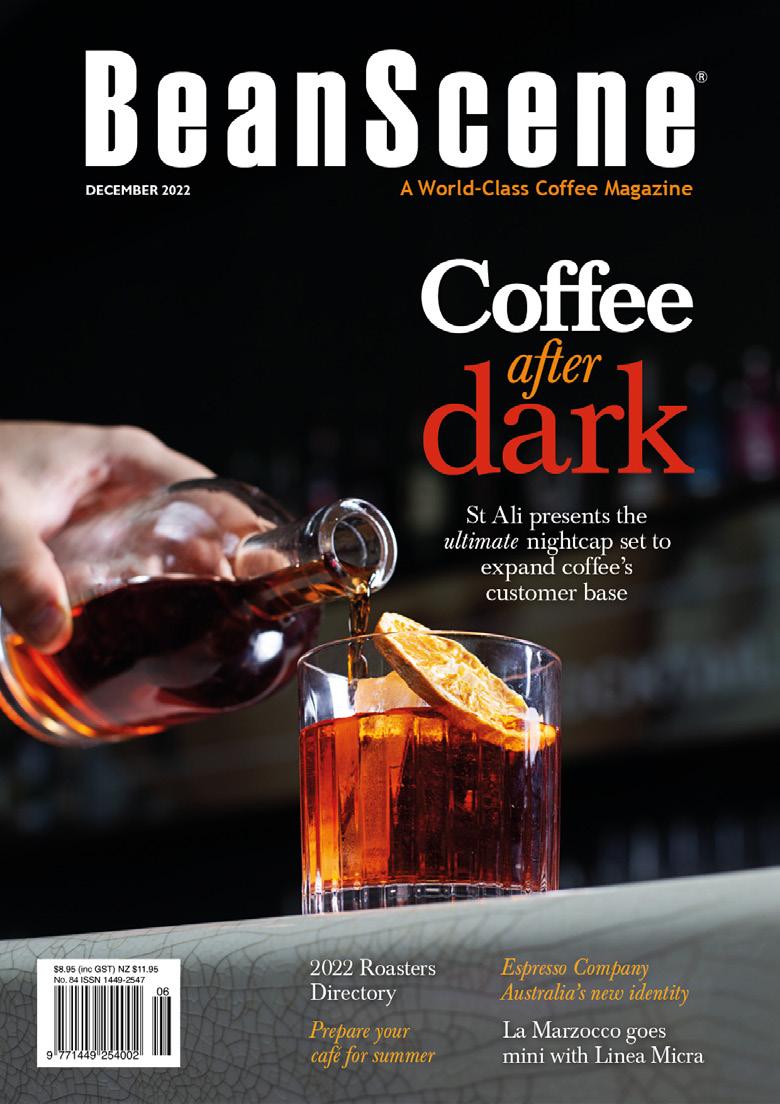
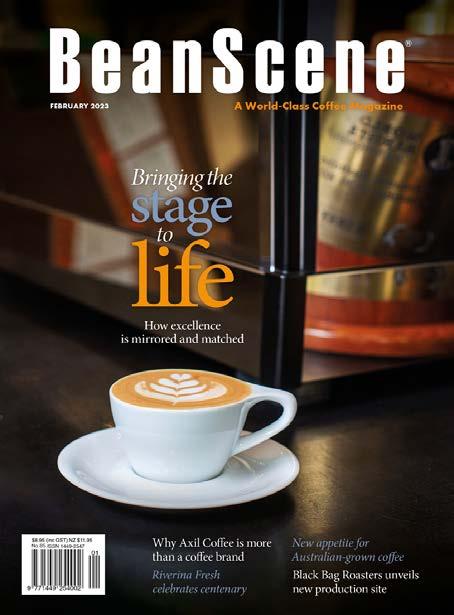
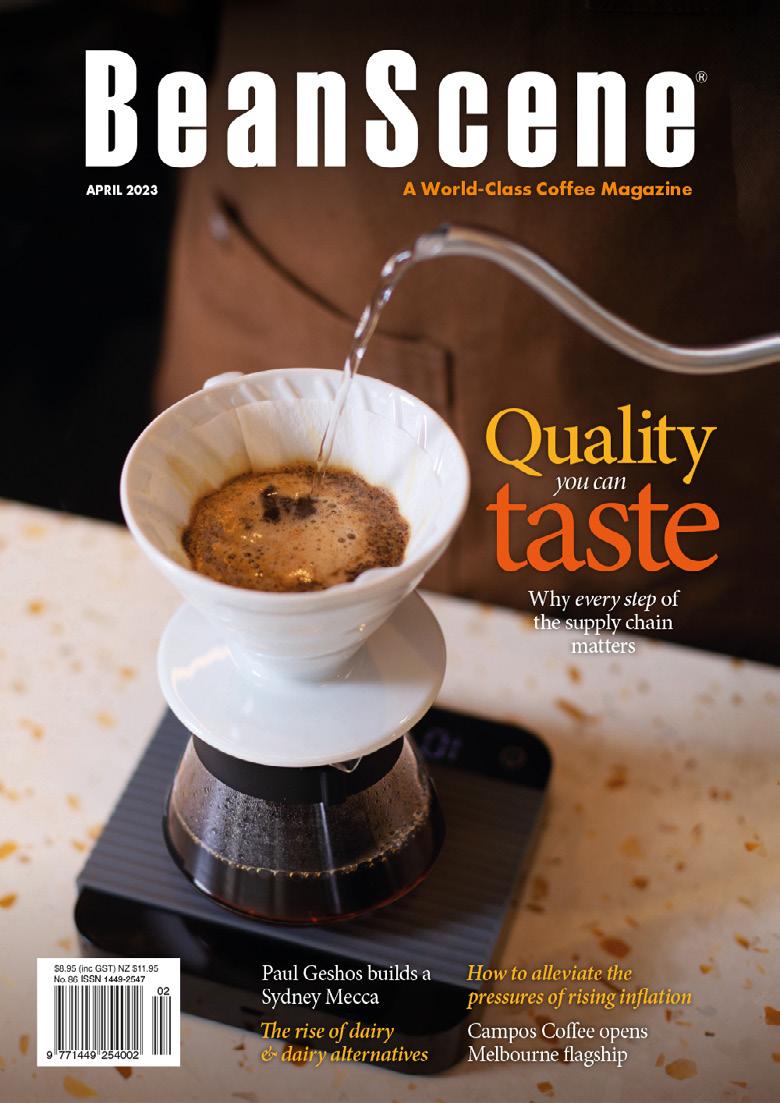
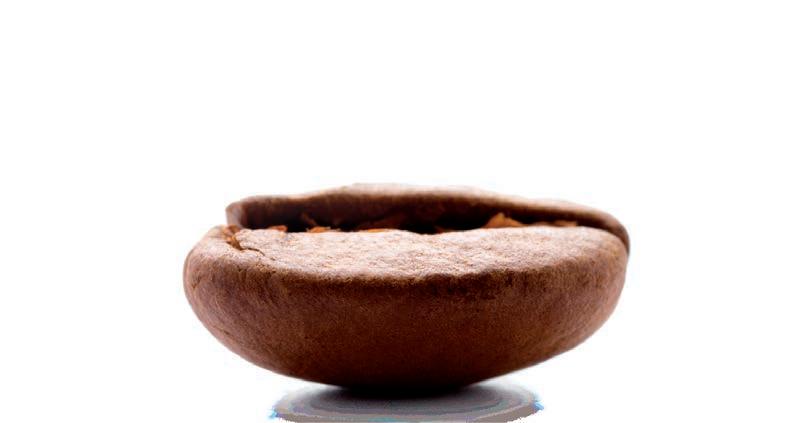
BeanScene Magazine BeanScene magazine is always chock-full of ca einated content, co ee innovation and co ee people. Subscribe today to receive every new issue, delivered straight to your door every two months – and all from just $45! www.beanscenemag.com.au SAVE over and NEVER miss an Subscribeissue. today! 25% Subscribe to now!
First timers fly high
ew Zealand has a new Barista Champion. Honoka
Kawashima of Frank’s Coffee in Wellington won the Meadow Fresh NZ title, which took place from 25 to 26 March at Whirinaki Whare Toanga, Upper Hutt, Wellington.
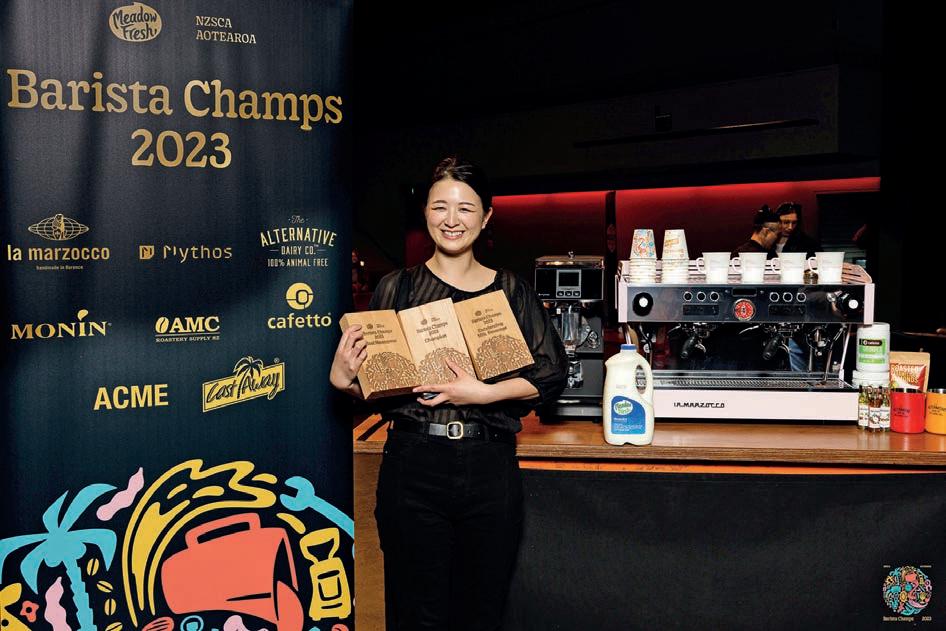
“Coffee gives a connection,” Honoka said in her routine. It was her first time competing on the NZ stage. Honoka took home the winner’s trophy and $2000 for being the Best Newcomer, awarded to the highest placed competitor who hadn’t competed at a Barista Championship before. Honoka also won the prize and trophy for Most Outstanding Milk Beverage. Honoka had previously placed third place in the 2022 Meadow Fresh NZ Latte Art Championship. It just goes to show that a newcomer can win – in more ways than one.
Honoka credits “support from the Wellington crew” for helping her win, including Logan Collinge; five-times competitor himself; and her boss, Frank Hsu from Frank’s Coffee, who roasted her coffee and is no stranger to both sides of the competition stage.
Mike Tan of Meebz Coffee Roasters in Auckland was runner up after a break from competing, and Jenny Kim of Atomic Coffee Roasters placed third.
Back stage, Honoka says it was a “very warm atmosphere, respectful, and professional. The competitors showed a high level”. “All the competitors must have gone through a lot of difficulties and I could feel that any of us could have won this championship. Everyone brings a unique approach to the championship, and that inspired me a lot,” she said.
Honoka spent six months developing her routine. It consisted of a milk-based coffee, an espresso, and a signature drink with notes of strawberry yogurt, hibiscus, pink grapefruit and an orange peel aftertaste.
by One Direction, Isn’t She Lovely by Stevie Wonder, and You’ve got a friend in me thanks to Rex Orange County.

In each of her courses, Honoka used a lactic washed process coffee, produced by Luis Anibal Calderon from Acevedo, Huila region, in Colombia. The concept she wanted to get across was the need to make complicated information on the coffee simpler, and more approachable. “I wanted to share that all the coffee has their different unique characters just like us,” she said.
For the milk-based round, Honoka used Meadow Fresh, 50 per cent freeze distilled cow’s milk. This created a rich texture, reminiscent of melted ice cream. By combining this higher fat milk, Honoka says the coffee’s sweetness was enhanced. The flavour notes included strawberry ice cream, caramel, with a chocolate milkshake aftertaste.
Honoka remembers her first year in the industry with “fear and excitement”.
Her advice for those looking to compete in the future, is to not wait for the “right” time to compete.
“I always wanted to compete in a Barista Championship, but I was freaked out to see

been so much to learn as a barista,” she says. “Luckily, I got a really good team from all over in Wellington, and I say out loud that it is the most important part – that you find a good team because we do [this] together.”
Honoka has massive support from her partner Tsubasa Nico Nozaki, also a head barista and keen latte art competitor. She would like to thank the Wellington coffee community, team Mojo coffee, and Flight Coffee, especially Luise Metelka, “one of her reasons that made me feel that I want to be in the industry”. Thanks also to Dove Chen from Grey Roasting Co who helped Honoka on competition day, green bean supplier Cofinet, farmer Luis Anibal Calderon, and her lovely customers.
“I want to be the barista that brightens your day,” Honoka said in her routine.
I think most people watching her routine would agree she’s already doing that.
Honoka will compete in the 2024 World Barista Championship in South Korea.
For more information on the New Zealand Specialty Coffee Association, or to join, visit www.nzsca.org
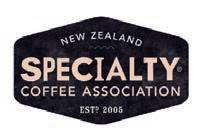 Emma McDougall is the Communications and Administration Co-ordinator of the NZSCA.
Emma McDougall is the Communications and Administration Co-ordinator of the NZSCA.
Emma McDougall of the NZSCA discovers that anything’s possible when you believe, just ask first-time New Zealand Barista Championship competitor and
Image: ATPhoto, Andrew Turner
beanscenemag.com.au 101 NZSCA
Honoka Kawashima is the 2023 New Zealand Barista Champion.
People on the move
BeanScene celebrates the latest industry appointments in the Australian and New Zealand coffee landscape.
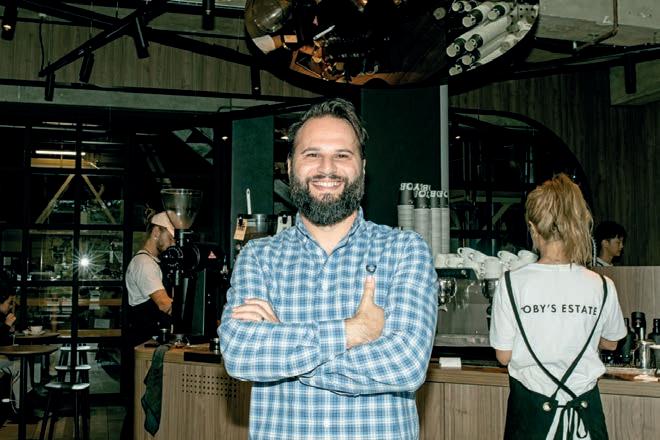
International not-for-profit Fairtrade Australia and New Zealand (ANZ) has appointed Senthil Nathan as its new Chief Executive Officer, effective 24 April.
Senthil was born to a family of small-hold paddy farmers in a Southern Indian village. He grew up watching the environmental and economic challenges faced by his community, which led him to embark on a career developing and implementing sustainability programs in the food and agricultural sector. Senthil comes with experience in both business and development sectors.
Over the last two decades Senthil has helped the world’s leading food and beverage companies with supply chain transparency, responsible sourcing, regenerative agriculture and carbon management initiatives. He has worked extensively with rural communities, producer cooperatives, governments, and businesses in more than 40 countries with a recent focus on the coffee industry.

After five years away, Nic Naso has re-joined the team at Toby’s Estate as the National Sales Manager. Nic started his coffee journey back in 2007, making a switch from IT industry sales and marketing. He was attracted back to Toby’s Estate by the passionate sales team, love for coffee, and drive for continual improvement within the roasting teams. He’s excited to get straight in, set the direction for wholesale, and lead the Toby’s team of state and territory managers across the country.
“Toby’s Estate has made significant progress since my last stint, becoming an exciting brand with impressive international expansion and new product offerings, all while maintaining its exceptional coffee quality,” Nic says.
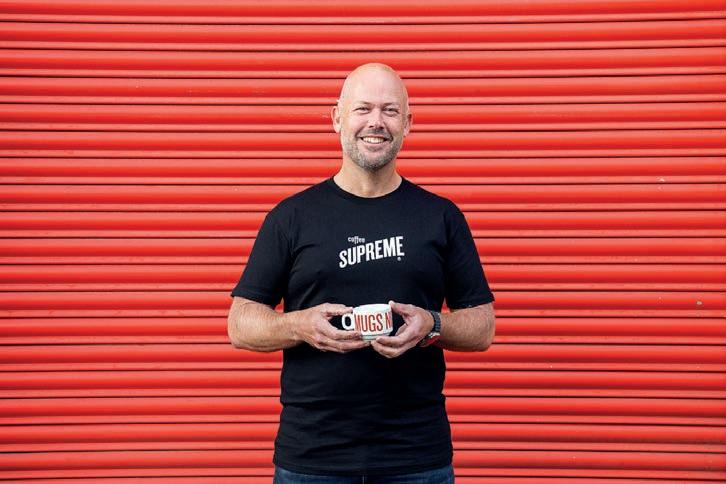
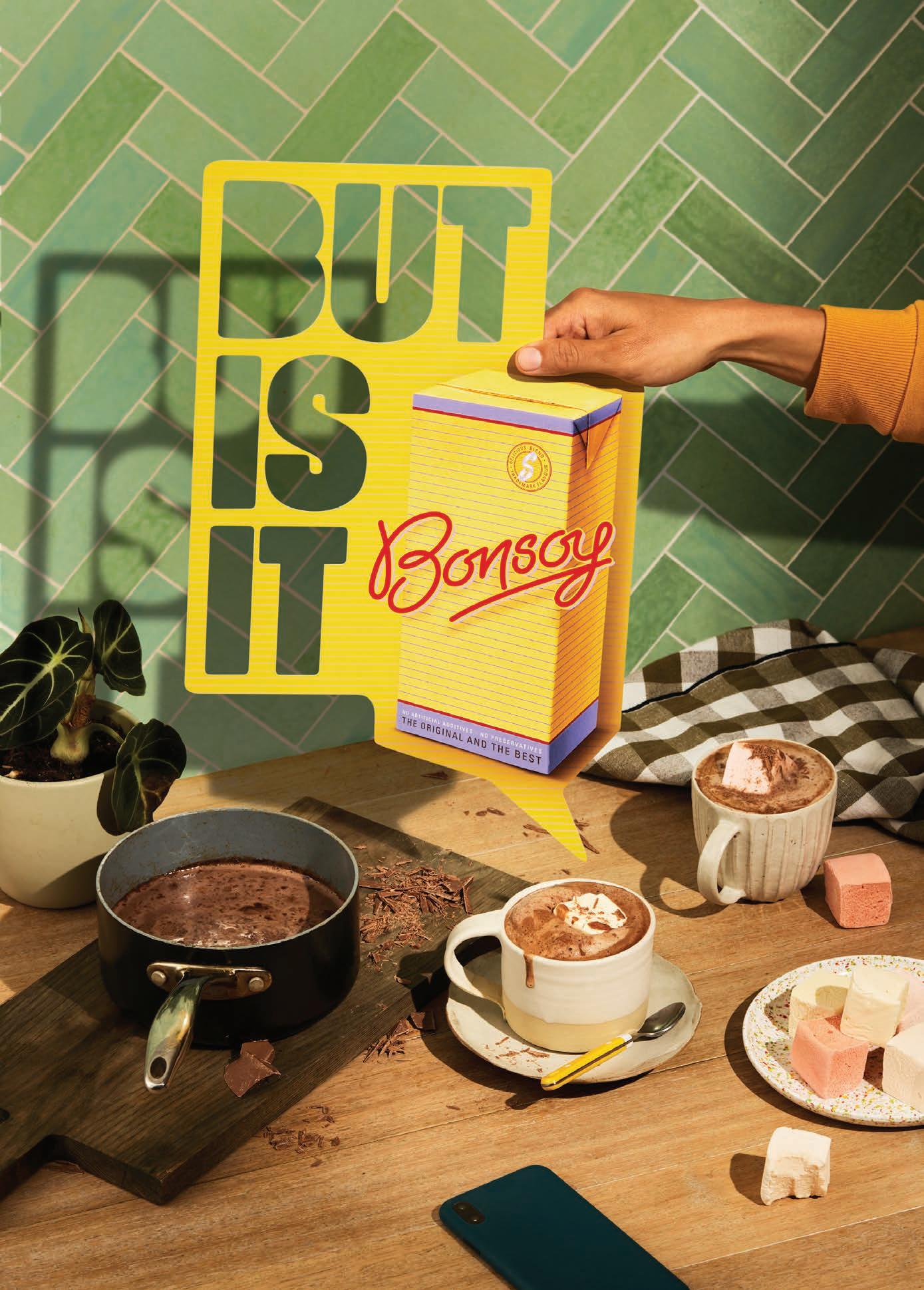
Toby’s Estate has ambitions to keep expanding internationally, and as the National Sales Manager, Nic aims to help the company grow even further and reach new heights. He looks forward to working with the incredible team and partners to bring their exceptional coffee to even more people worldwide.

Coffee Supreme, a company with a rich history as a pioneer
“I am humbled to be the next custodian of a brand that aspires to be ‘the greatest little coffee company in the world’ guided by a single purpose of ‘Better Coffee for All’,” Andrew says.
“I would like to thank the outgoing CEO, Jesse Newson for guiding the business though COVID and aiding the seamless transition to the new owners, Pioneer Capital, over the past 12 months so moving forward, we can continue to invest deeply in our customers, people, brand and the planet for many years to come.”
Ben Graham has recently joined the Veneziano Coffee Roasters team as the Queensland State Sales Manager. Ben has previously owned several cafés and was the founder of Parallel Roasters which he sold in 2021. He brings a wealth of coffee knowledge and a deep passion to see businesses thrive. He leads a team of coffee professionals who strive to ensure that training and business goals are met and exceeded for all their customers.
“Coffee and indeed hospitality begins and ends with people. I’m excited to demonstrate that great coffee should be achievable for any café and emphasise to owners it’s all about relationships,” says Ben.
SENTHIL NATHAN — CHIEF EXECUTIVE OFFICER, FAIRTRADE ANZ
102 beanscenemag.com.au PEOPLE ON THE MOVE
BEN GRAHAM — QUEENSLAND STATE SALES MANAGER, VENEZIANO COFFEE ROASTERS


SALES | SERVICE | REPAIRS www.coffeemachinetechnologies.com.au AUSTRALIA TULLAMARINE Tel: +61 3 9335 2293 CARLTON Tel: +61 3 9681 8115 SYDNEY Tel: +61 2 8880 9917 RYE Tel: +61 3 5911 8002 GEELONG Tel: +61 3 5201 0174















































































































































 Brew Control System (R2 Extract + Microbalance + Café app) was newly launched by Shenzhen Digitizing Fluid Technology Co., Ltd. in Nov. 2022.
Brew Control System (R2 Extract + Microbalance + Café app) was newly launched by Shenzhen Digitizing Fluid Technology Co., Ltd. in Nov. 2022.






























 Competition winners from left: Enzen, Rawirat Techasitthanet, and Ashik Shrestha.
Competition winners from left: Enzen, Rawirat Techasitthanet, and Ashik Shrestha.










 St Ali has been inundated with coffee requests as more businesses lure employees back to the office.
St Ali has been inundated with coffee requests as more businesses lure employees back to the office.































































 Emma McDougall is the Communications and Administration Co-ordinator of the NZSCA.
Emma McDougall is the Communications and Administration Co-ordinator of the NZSCA.





